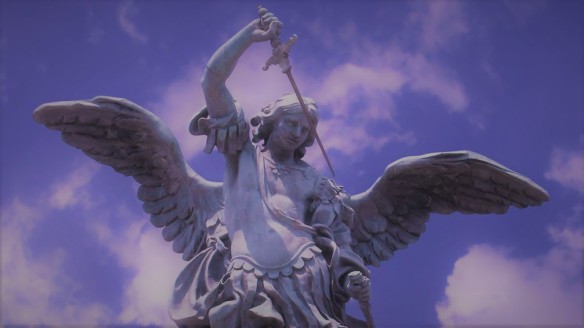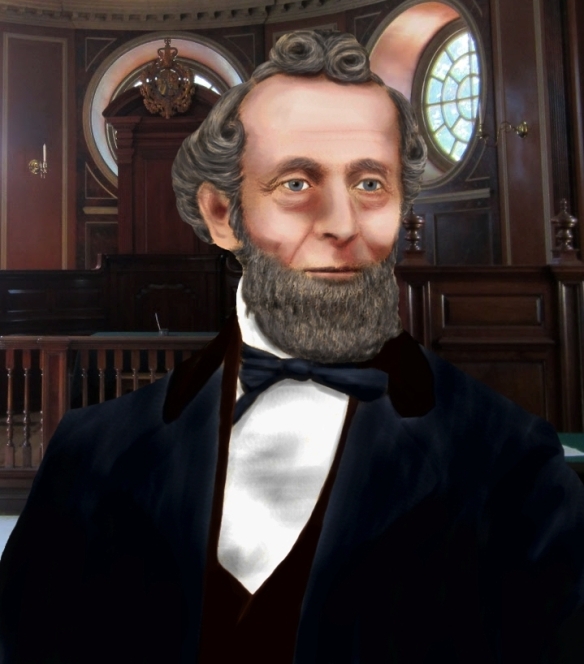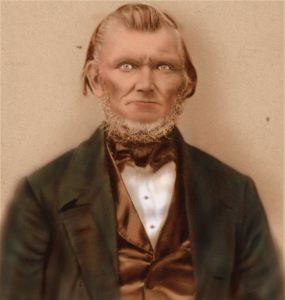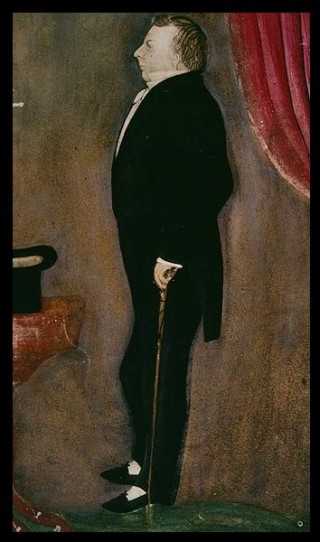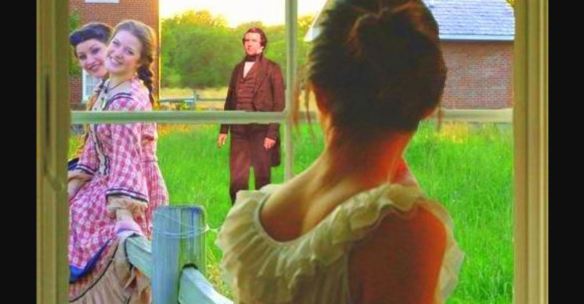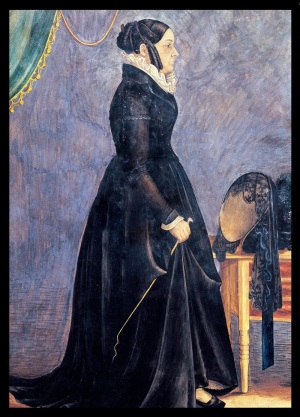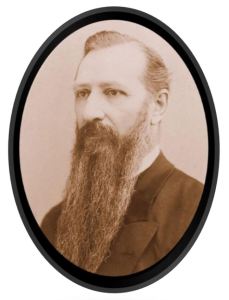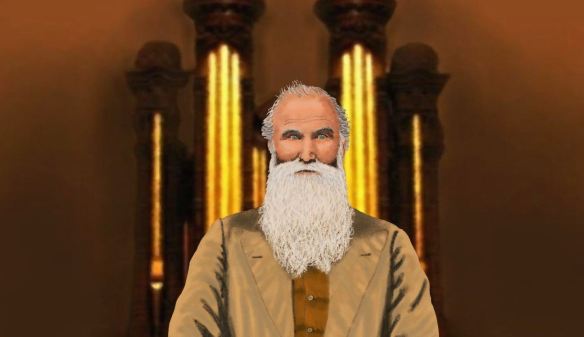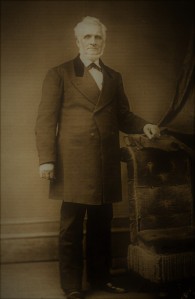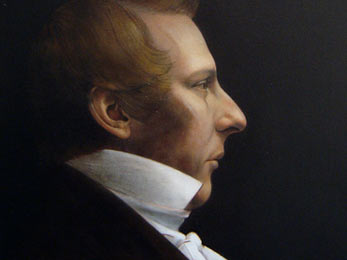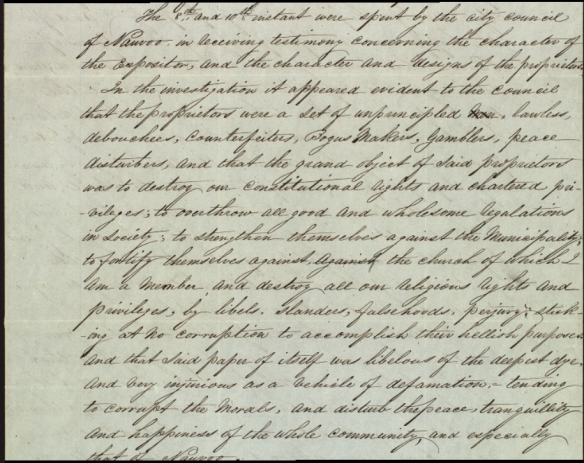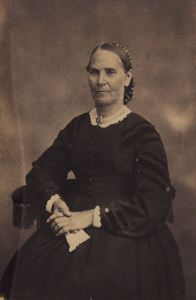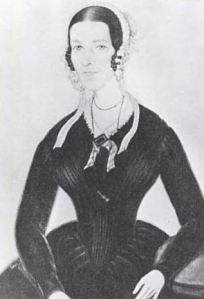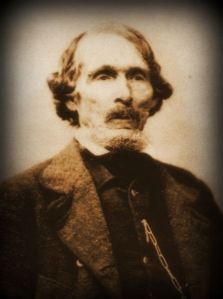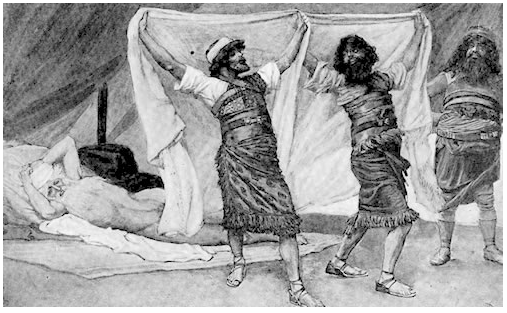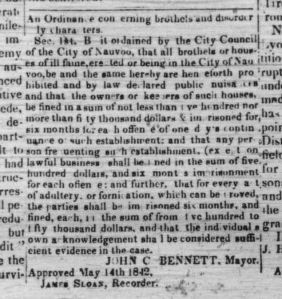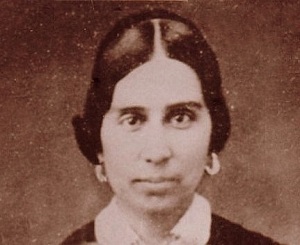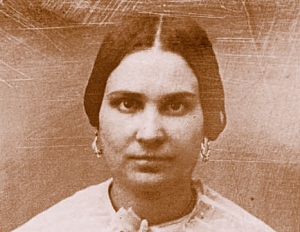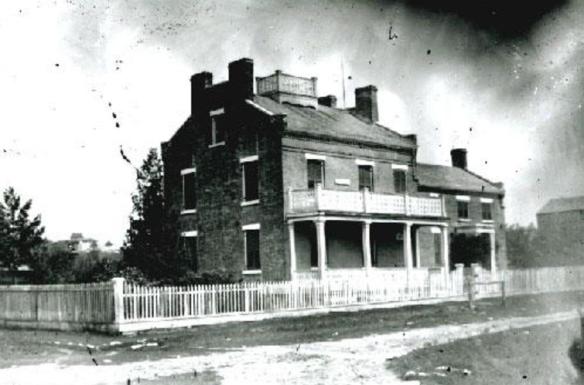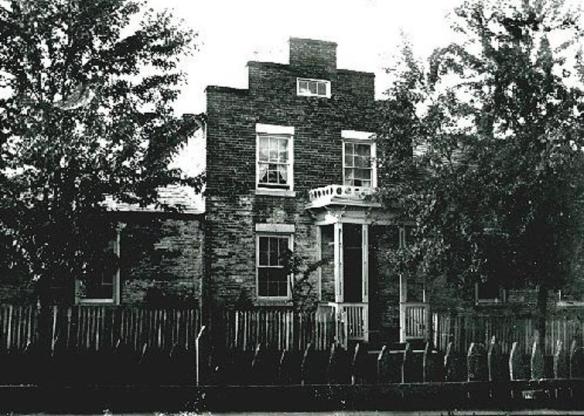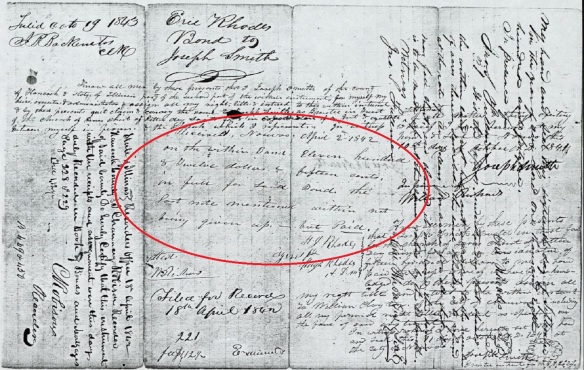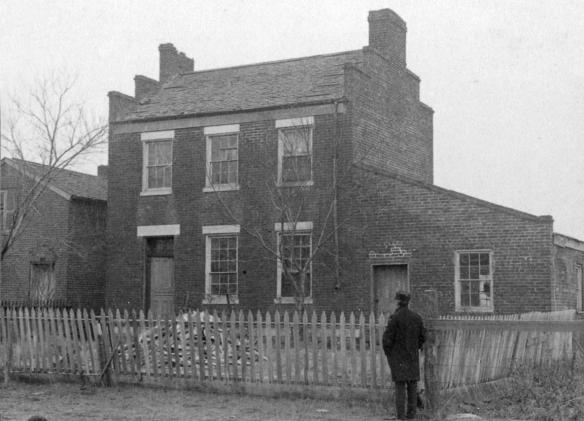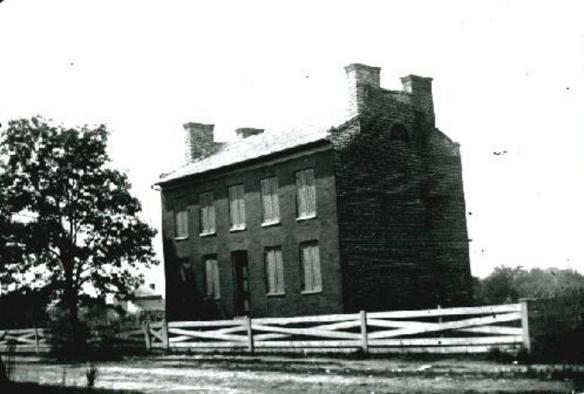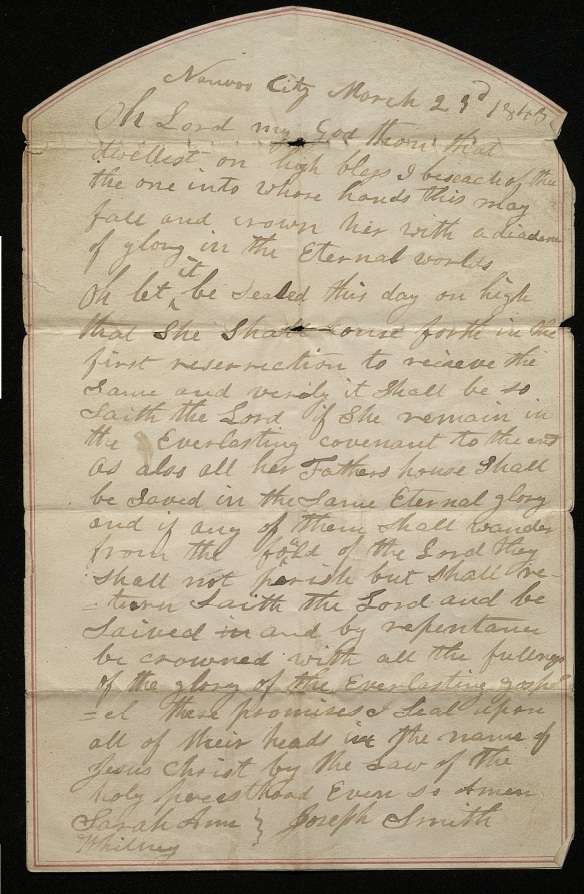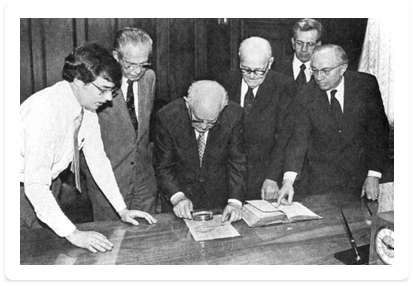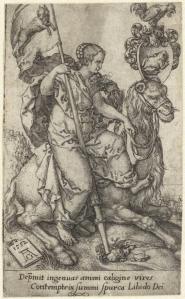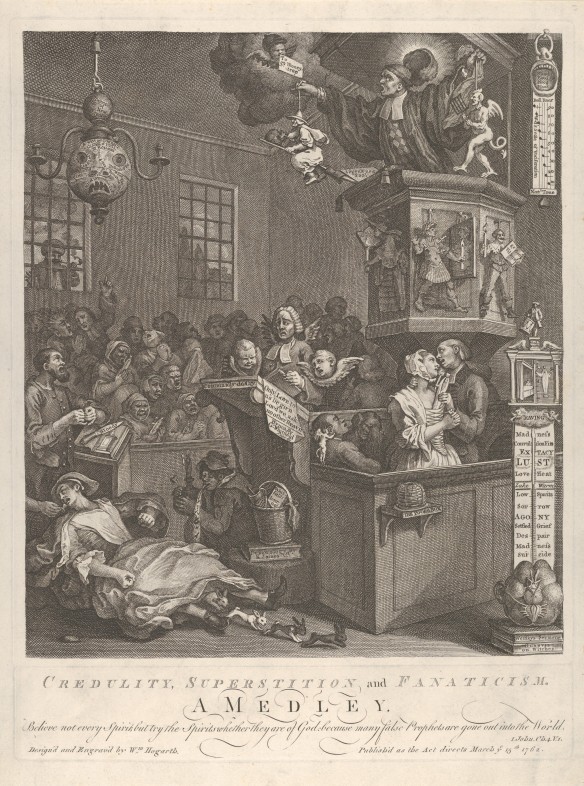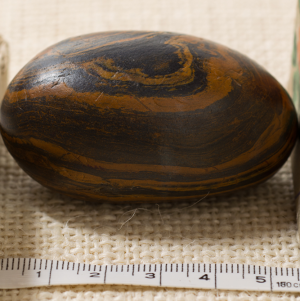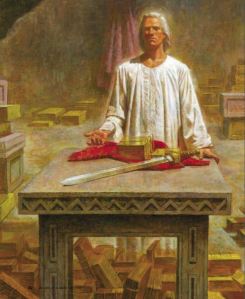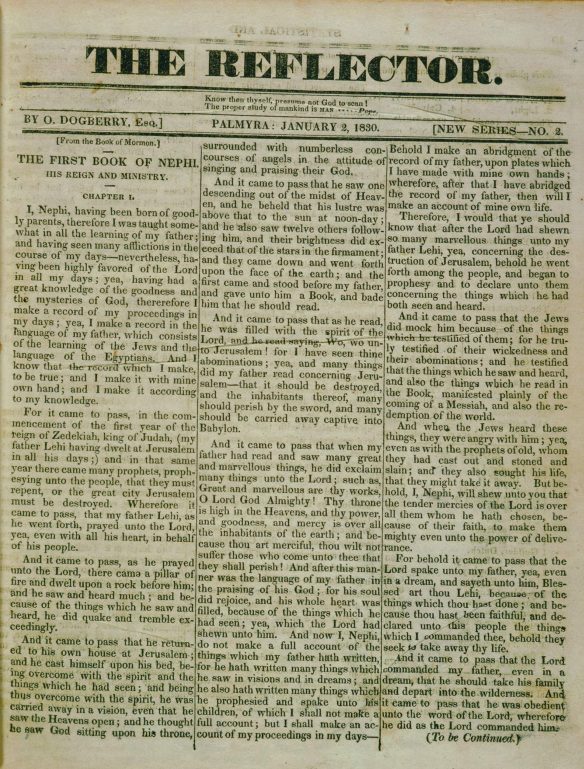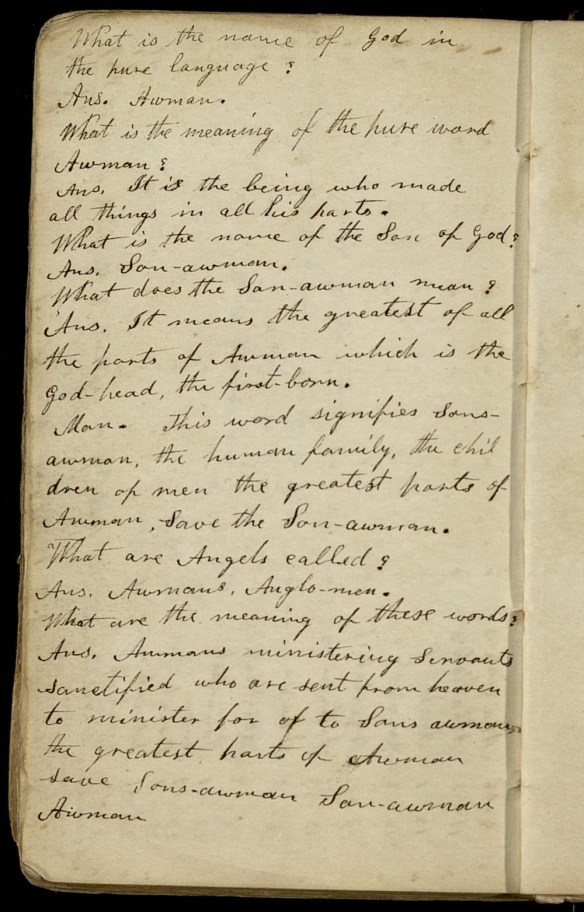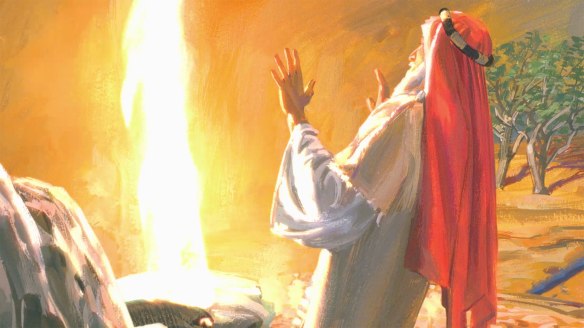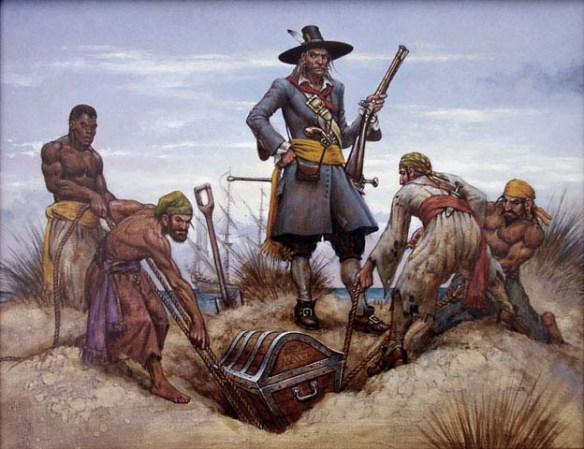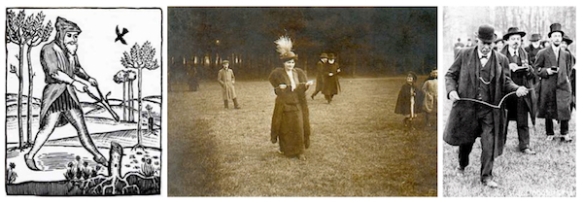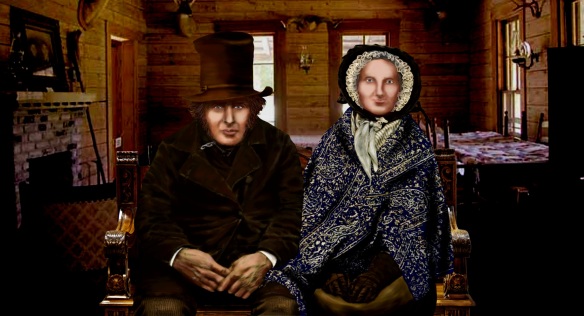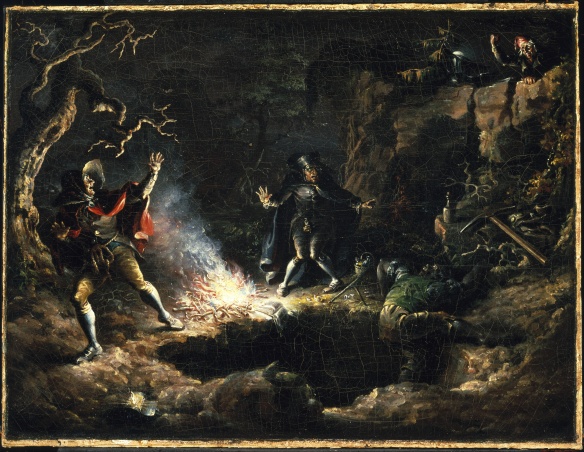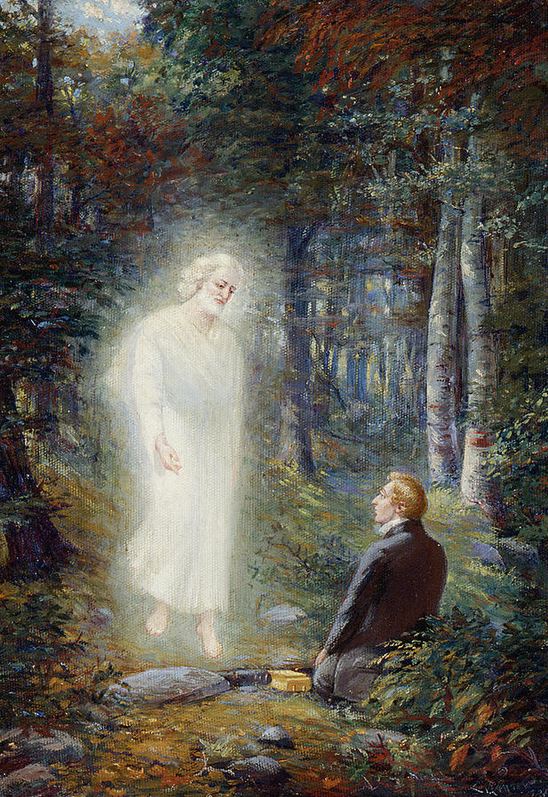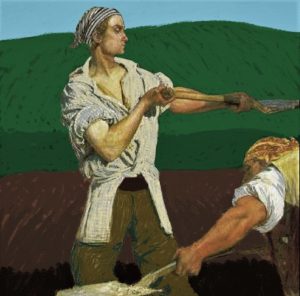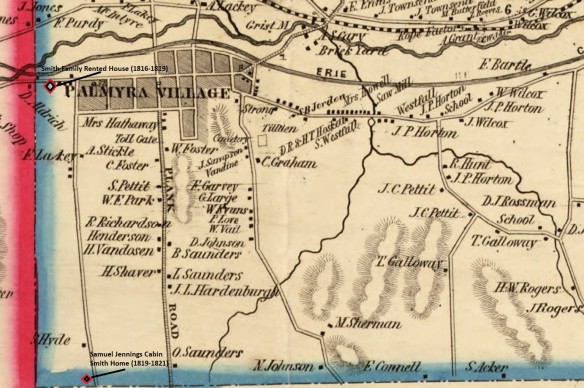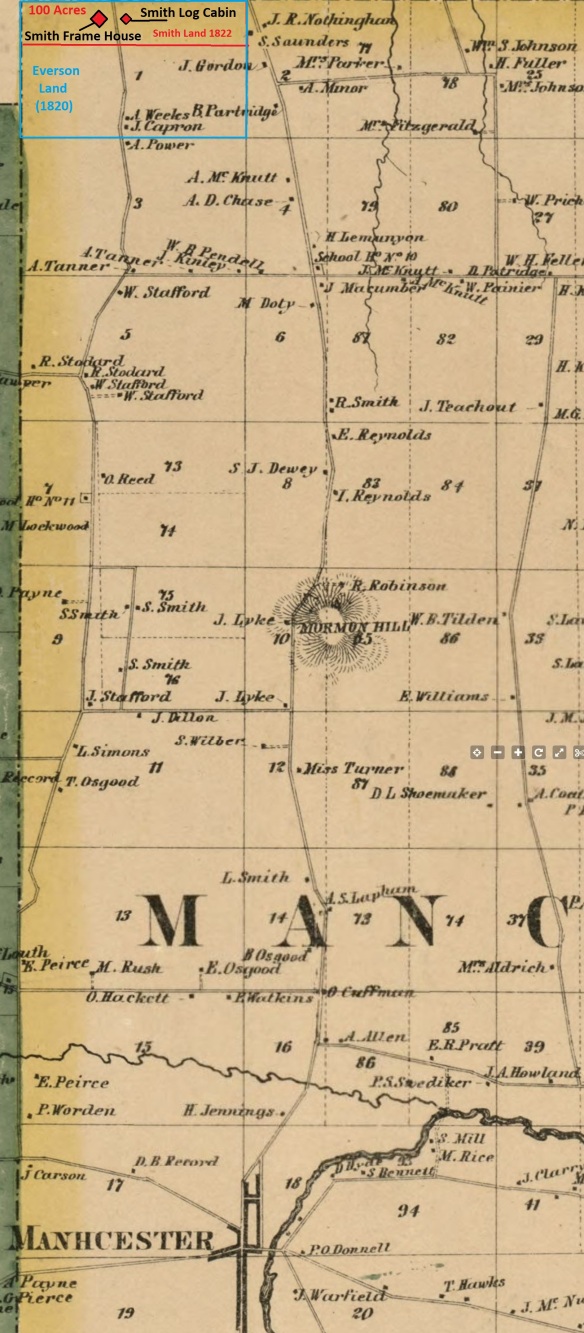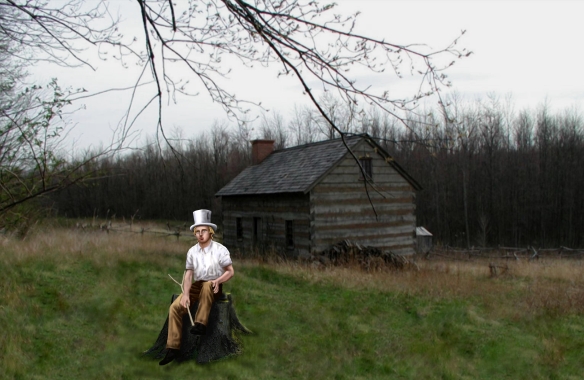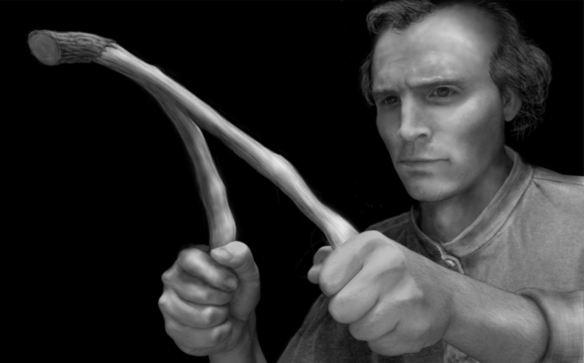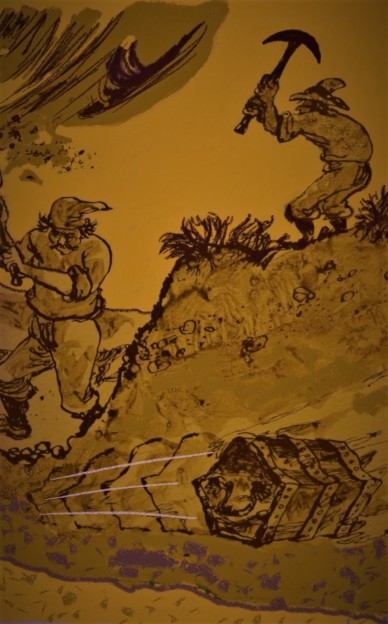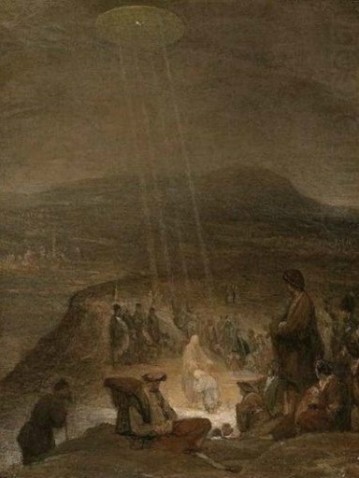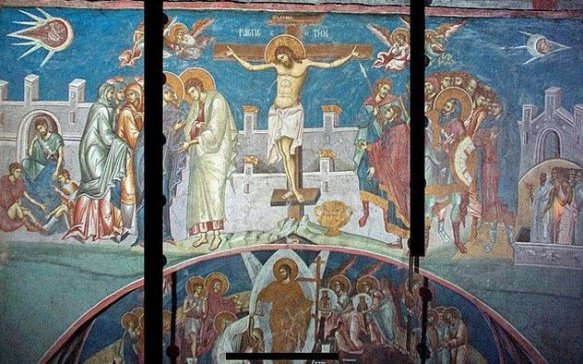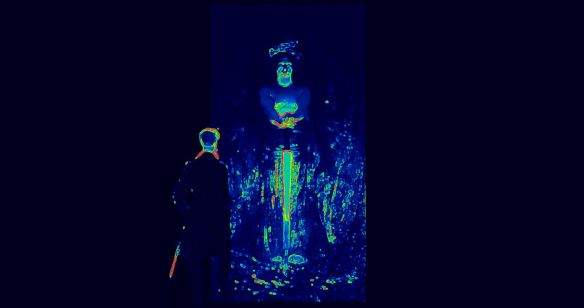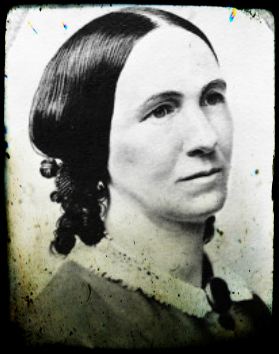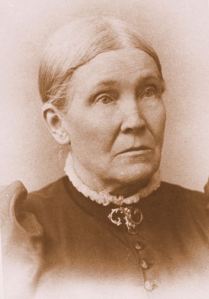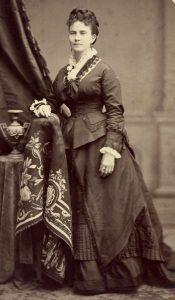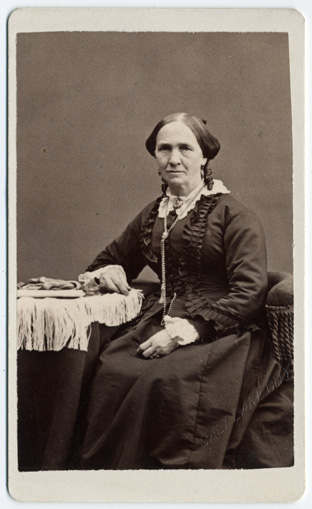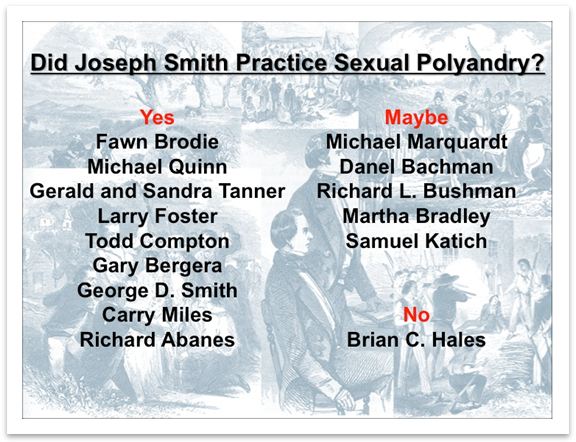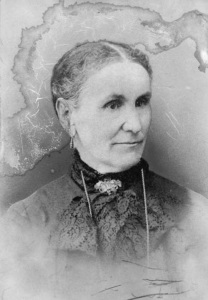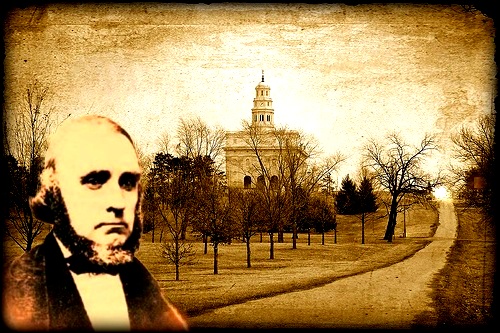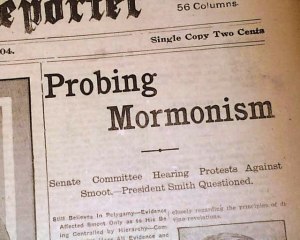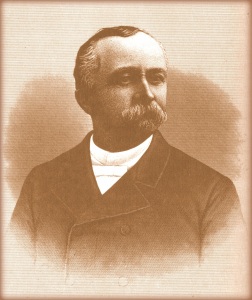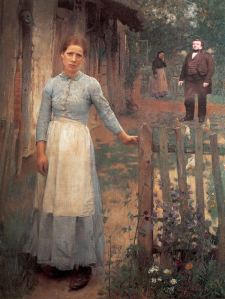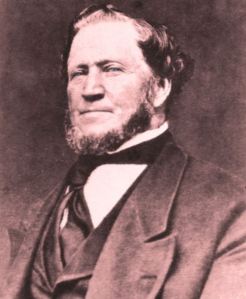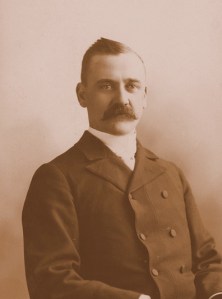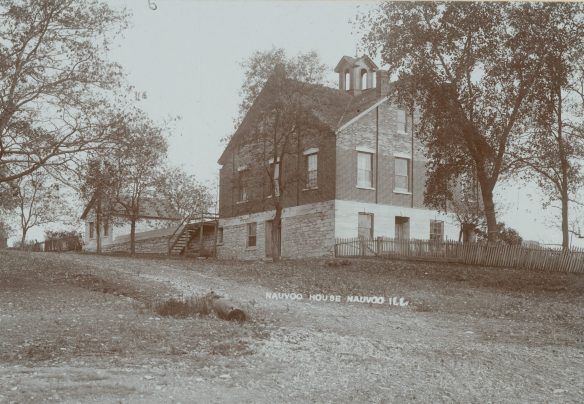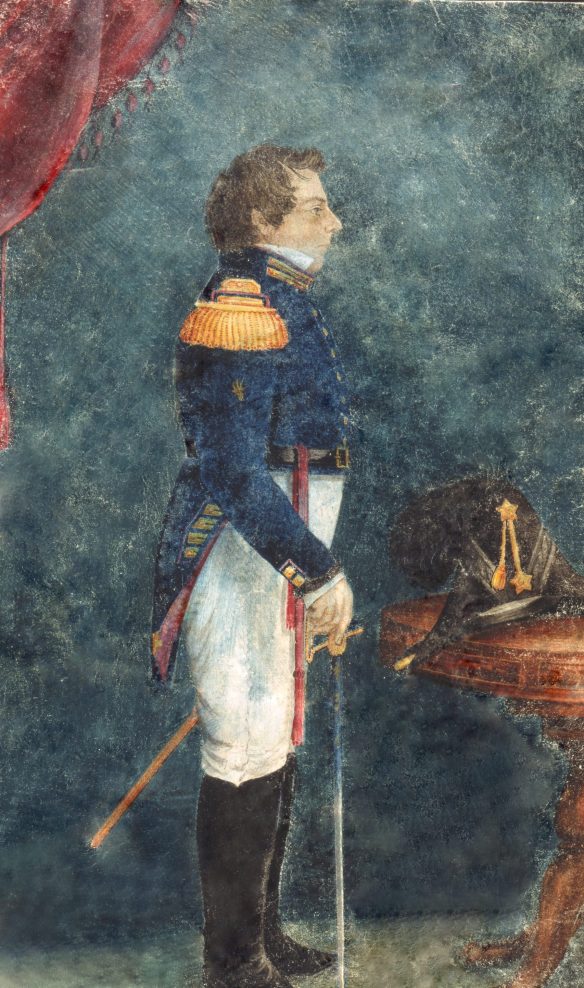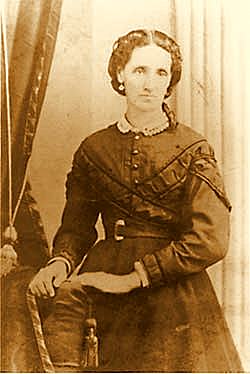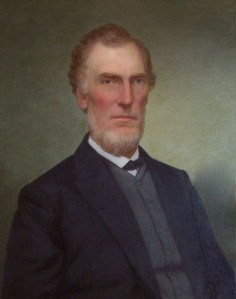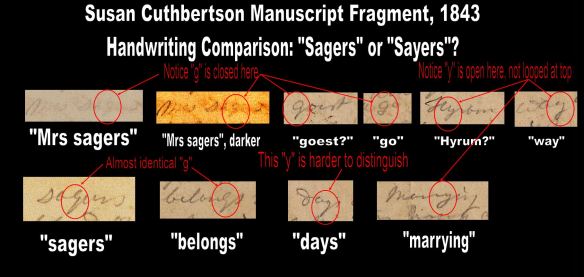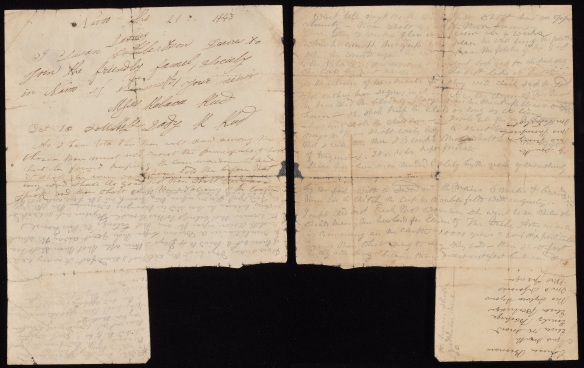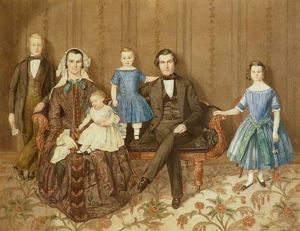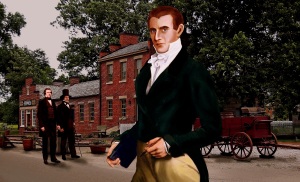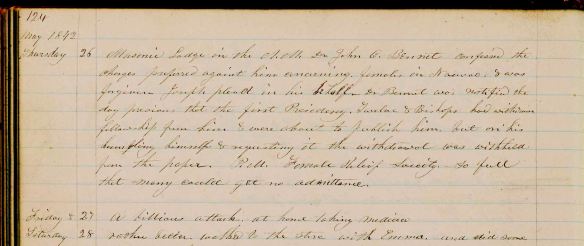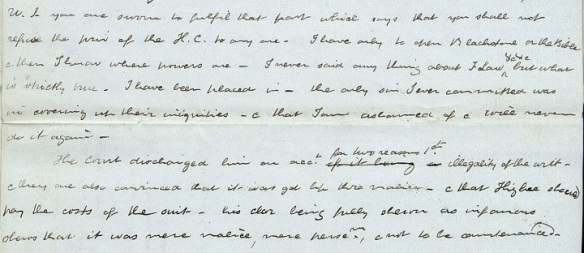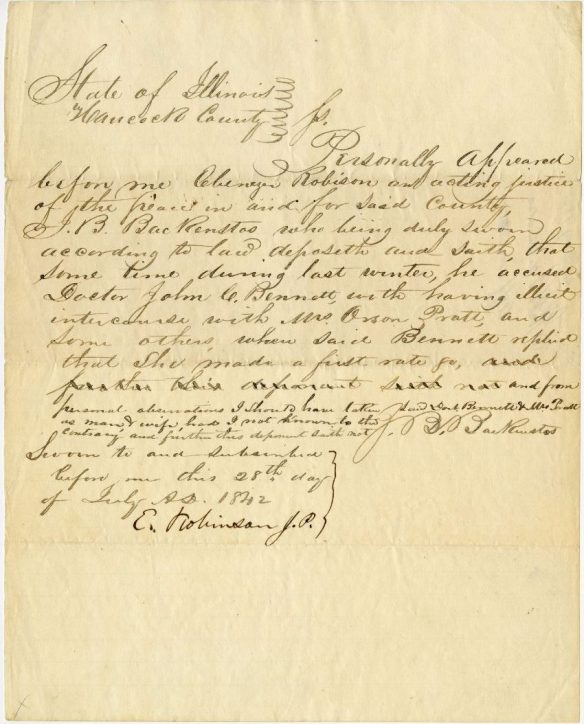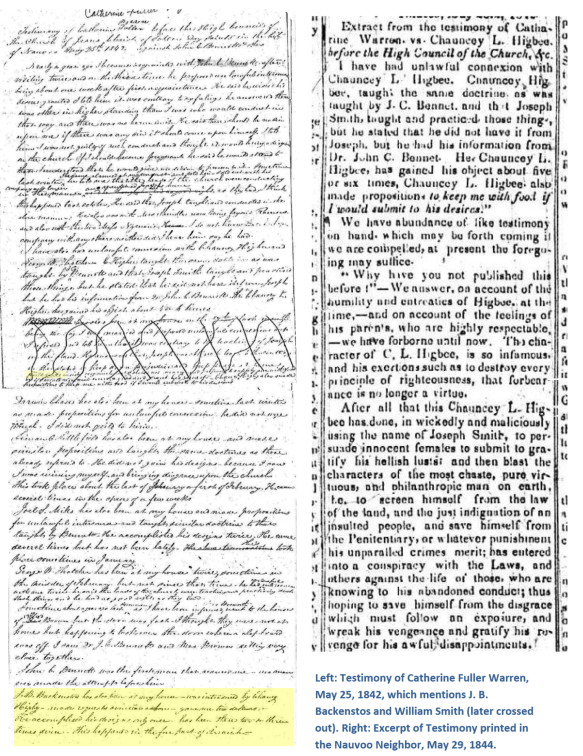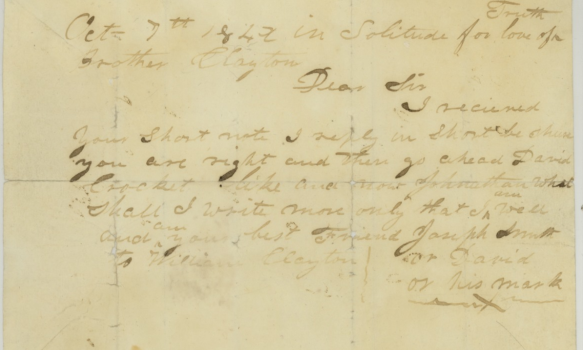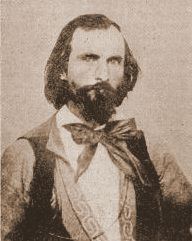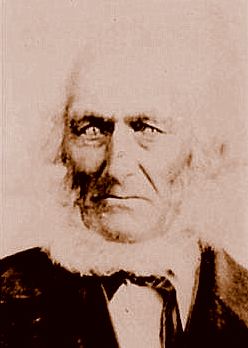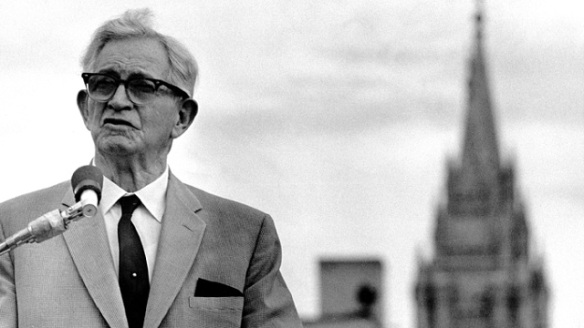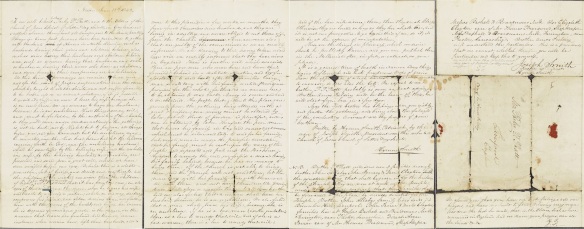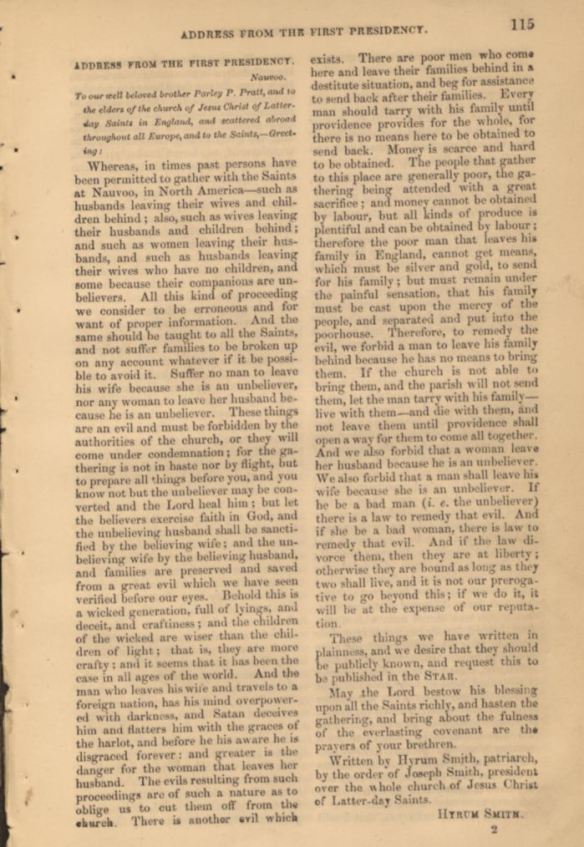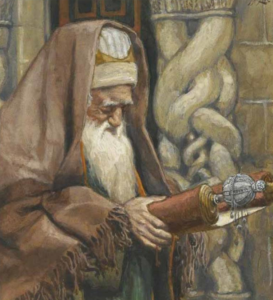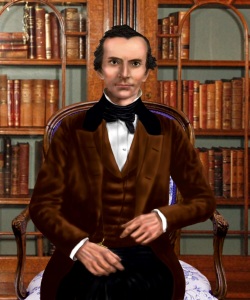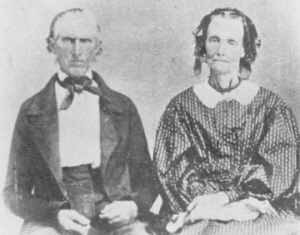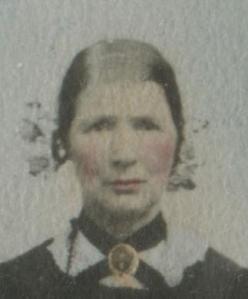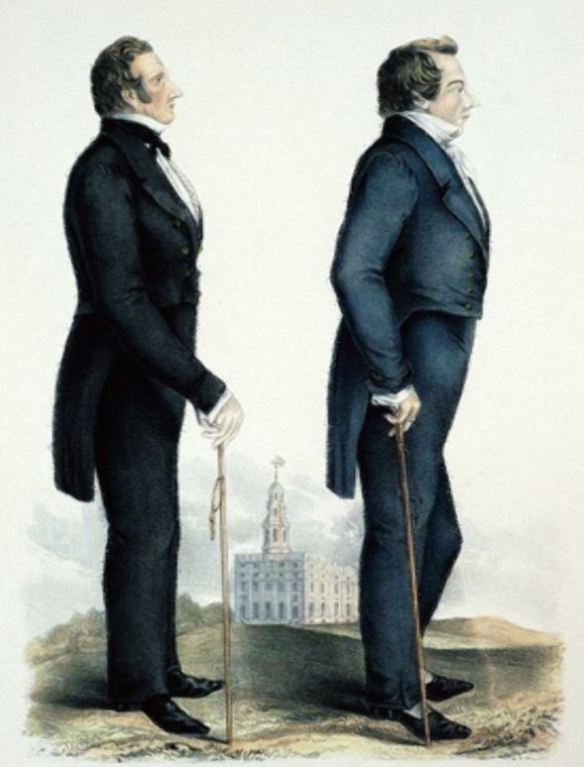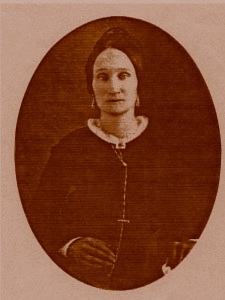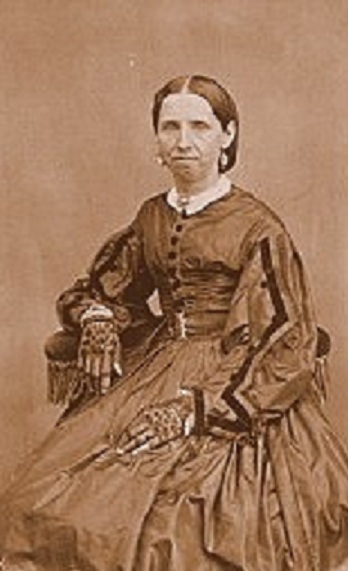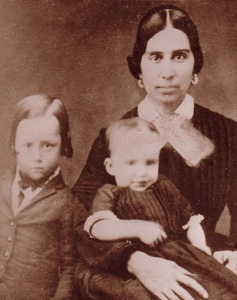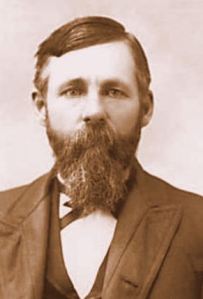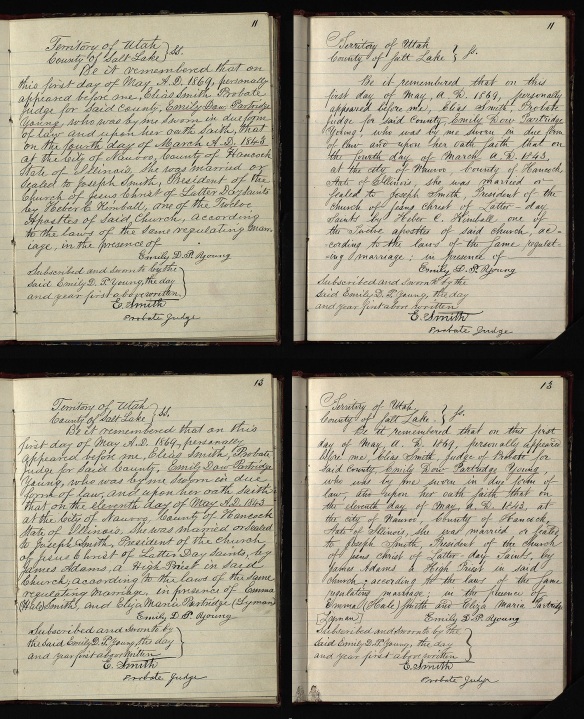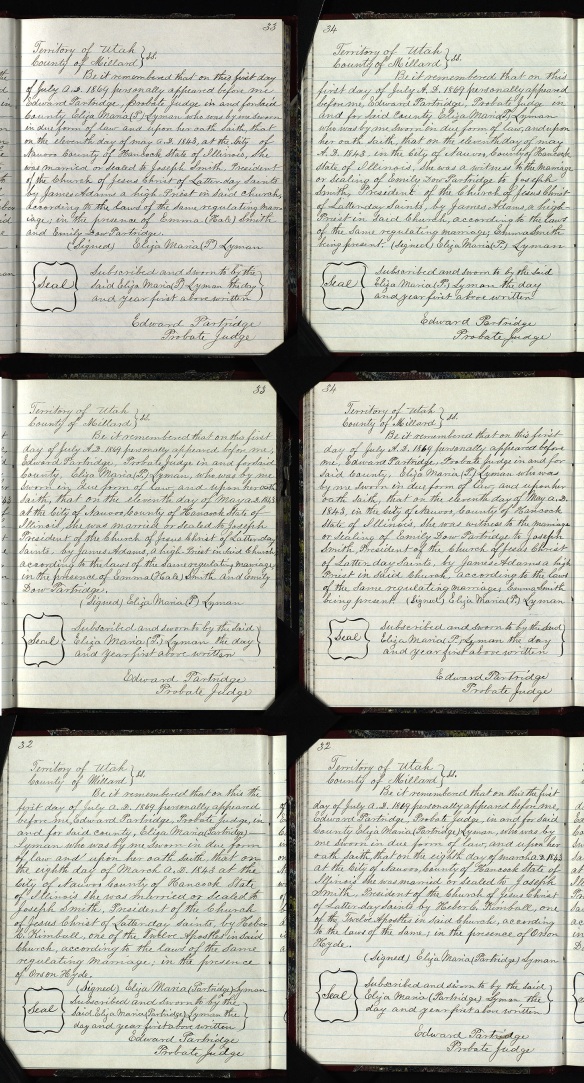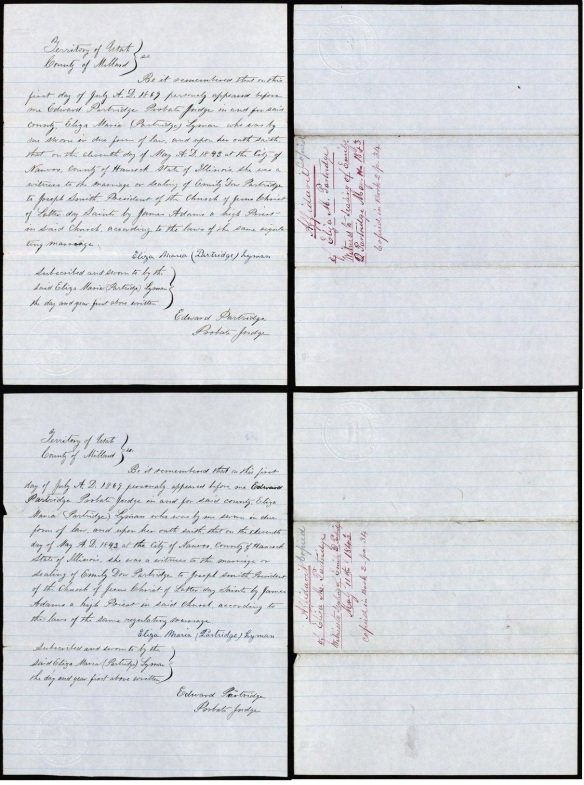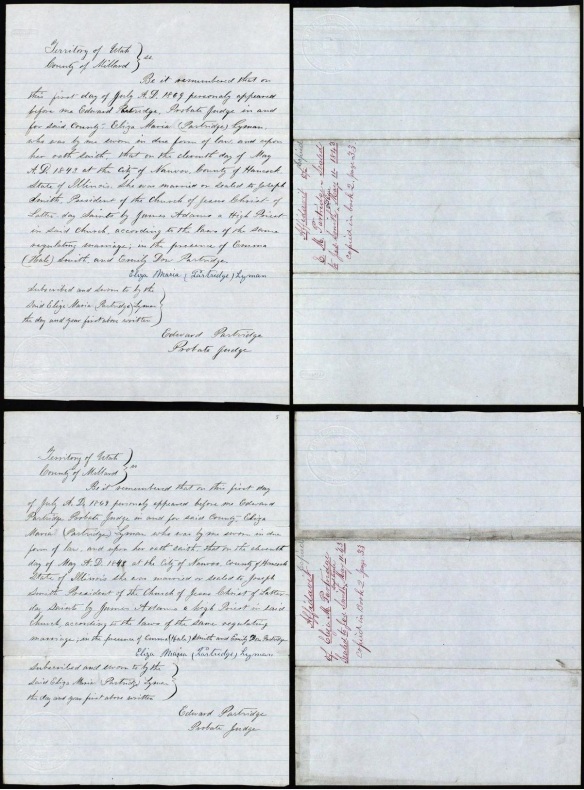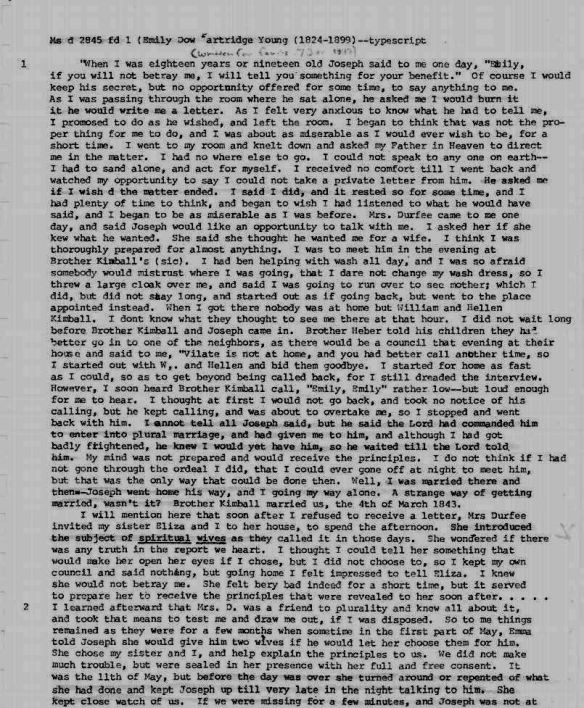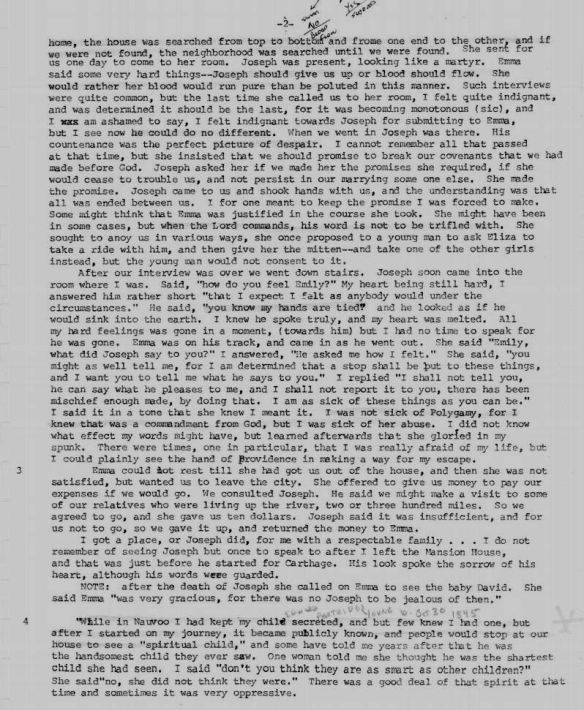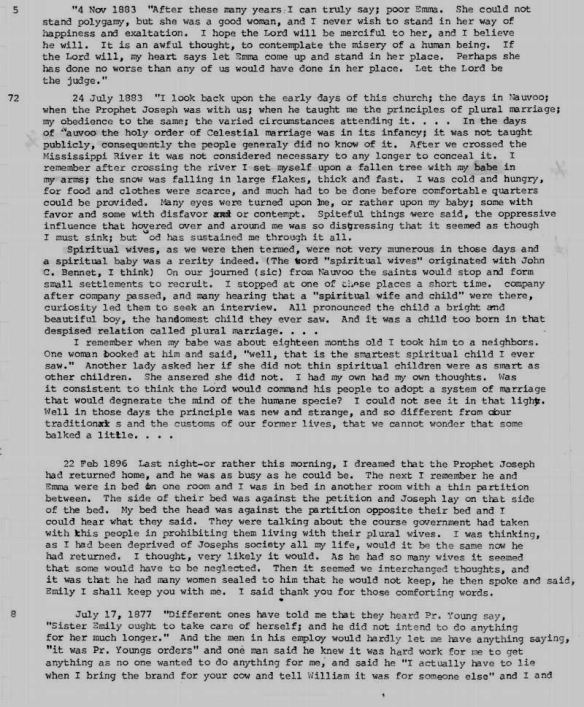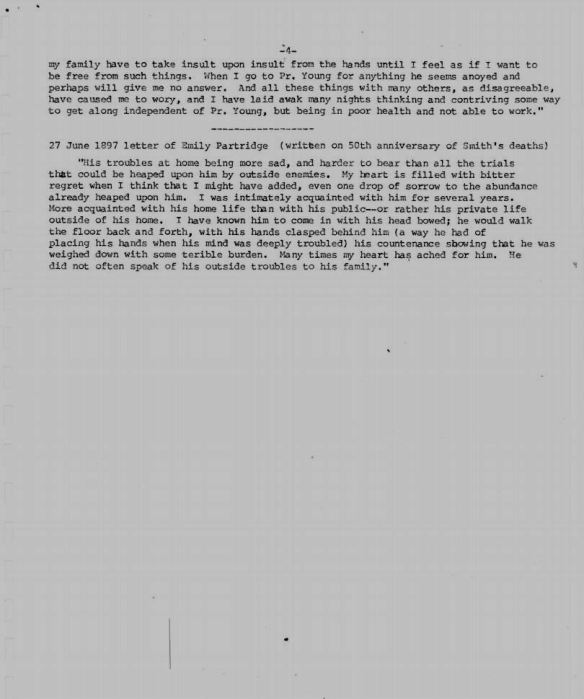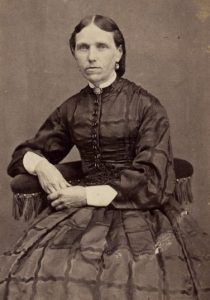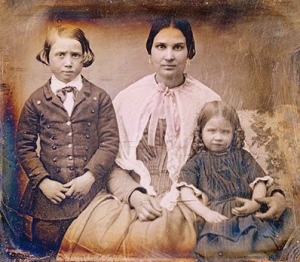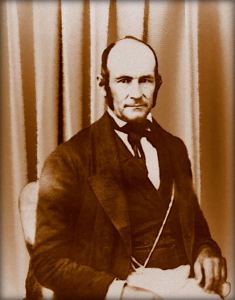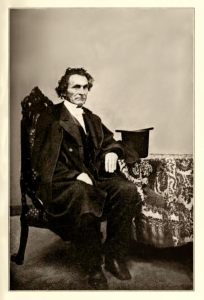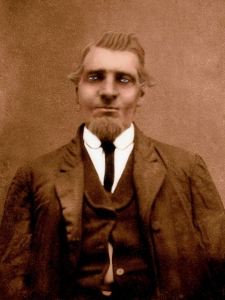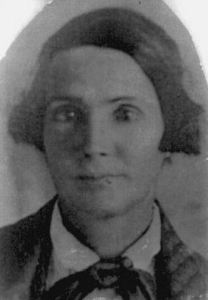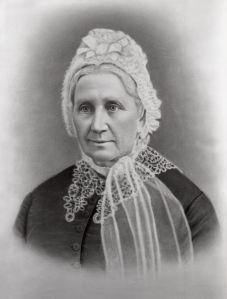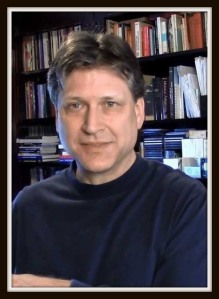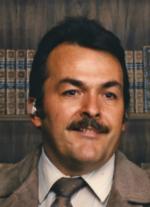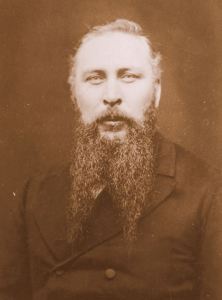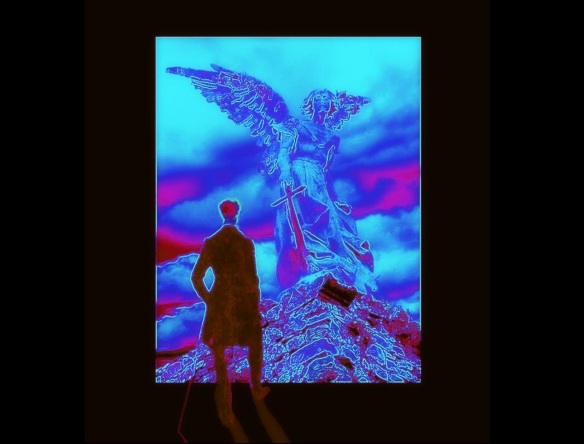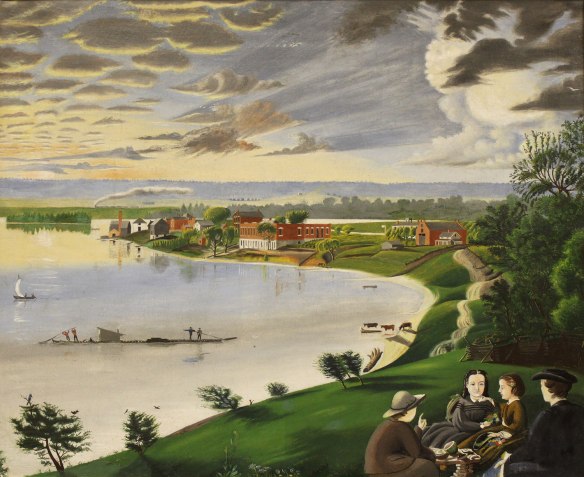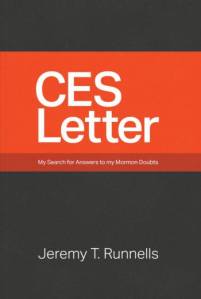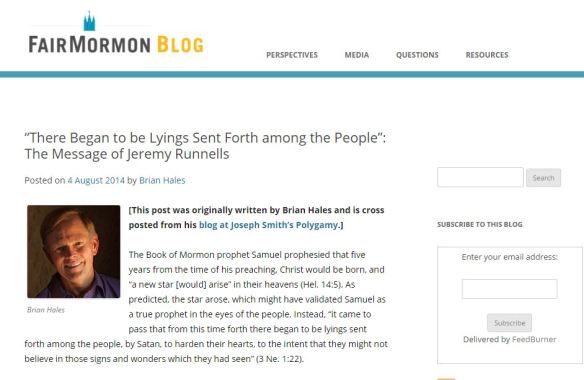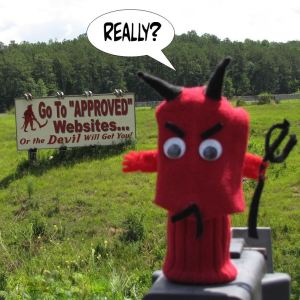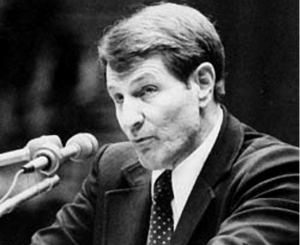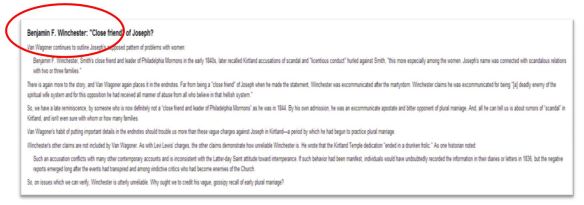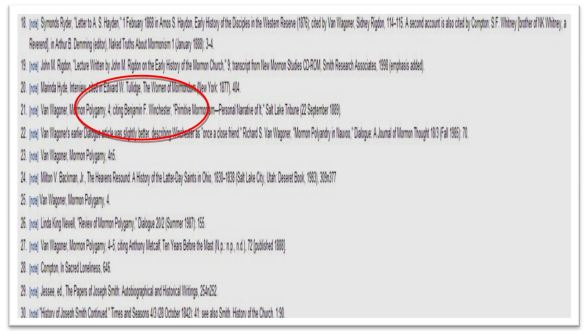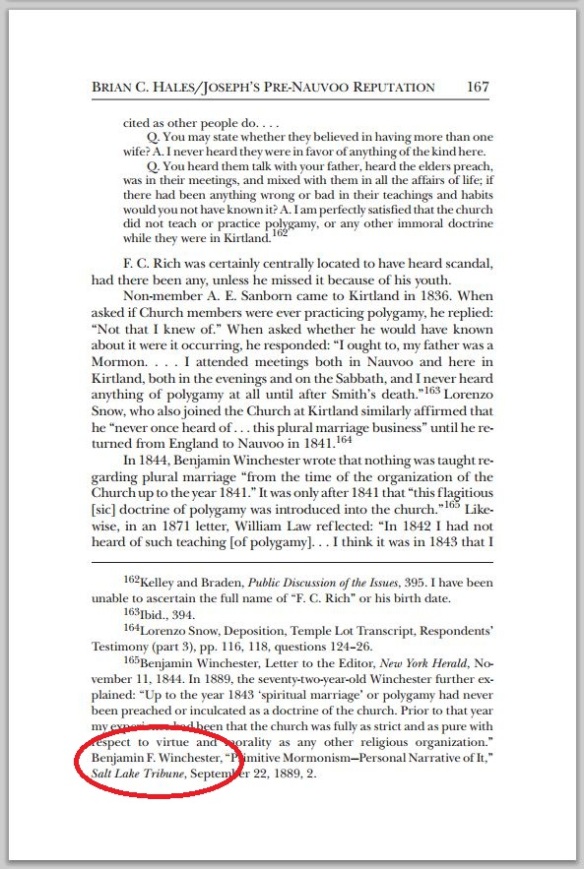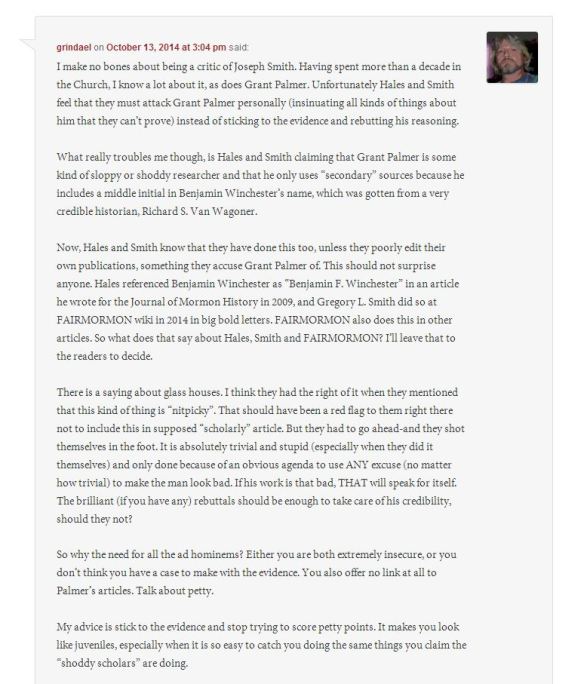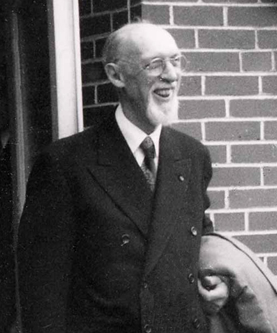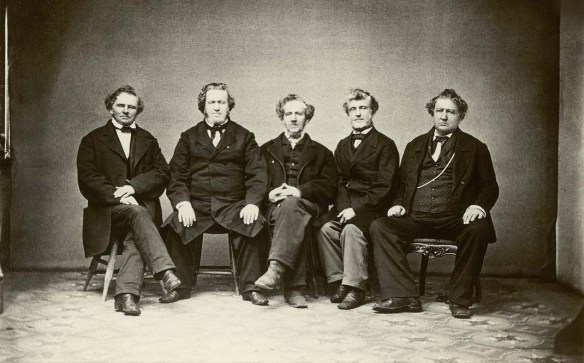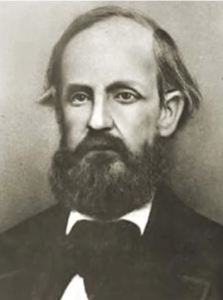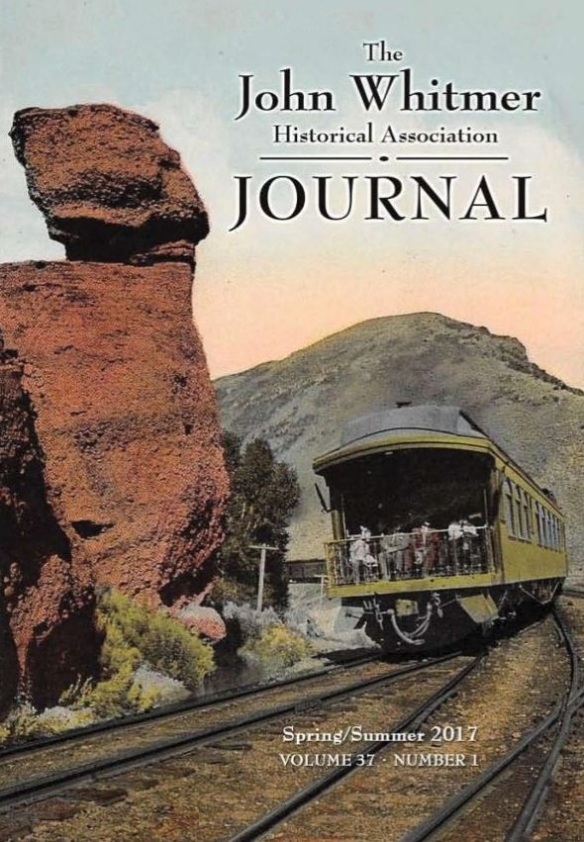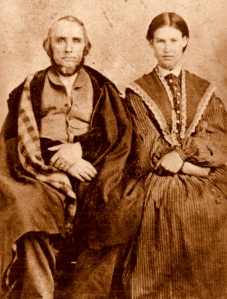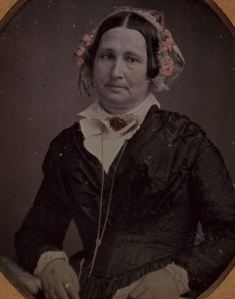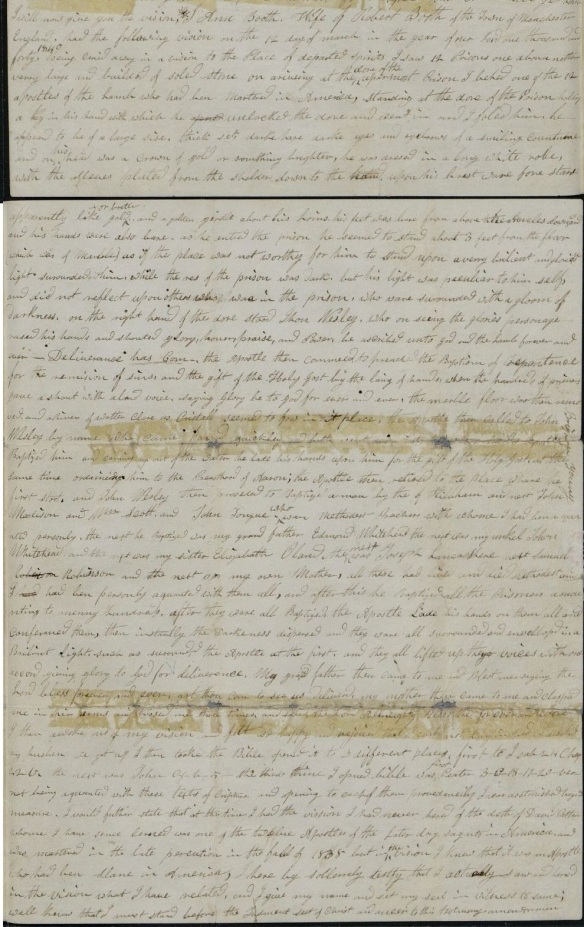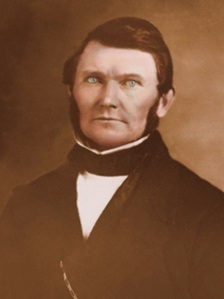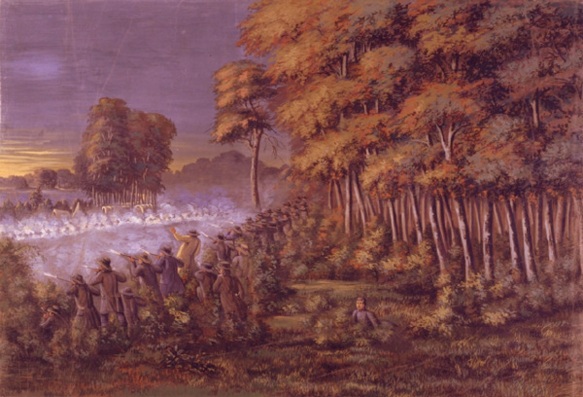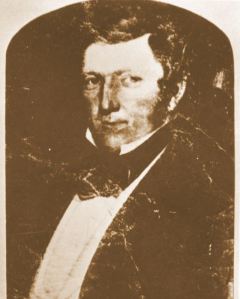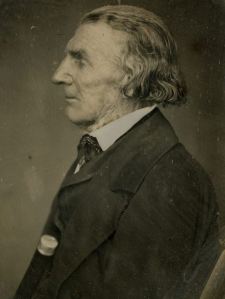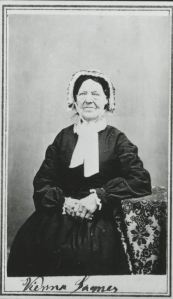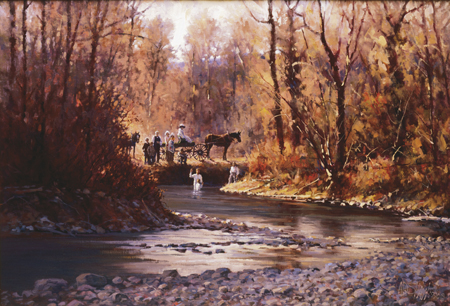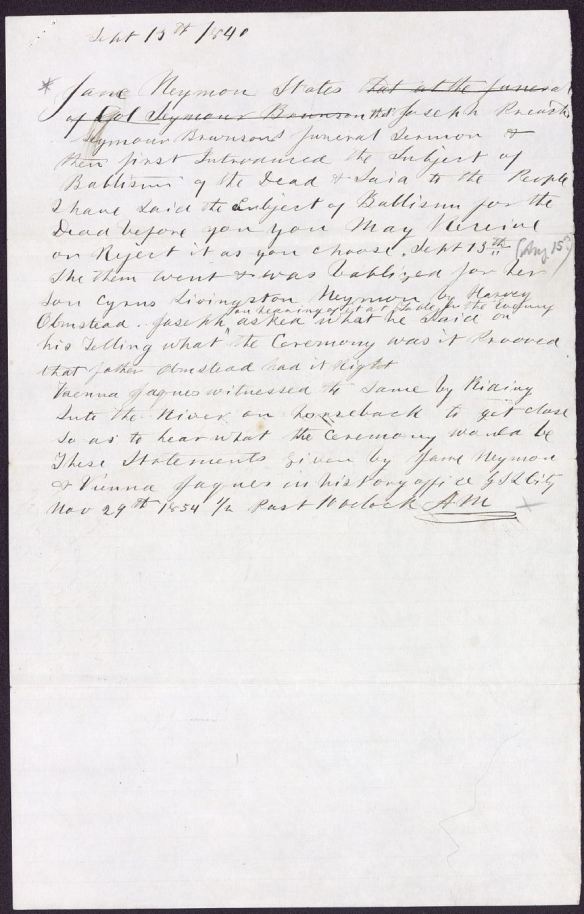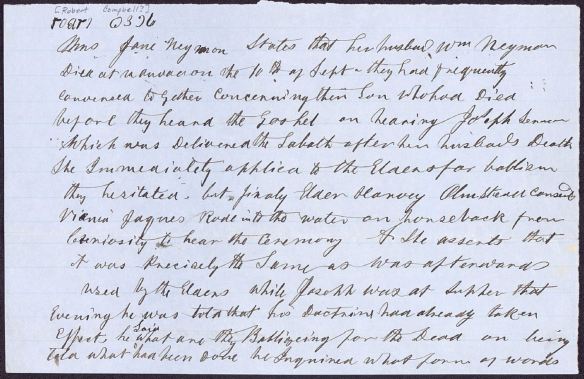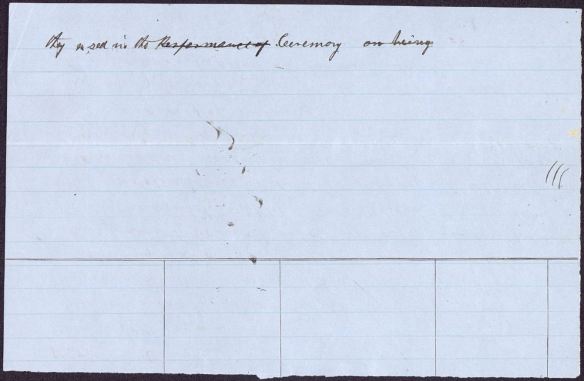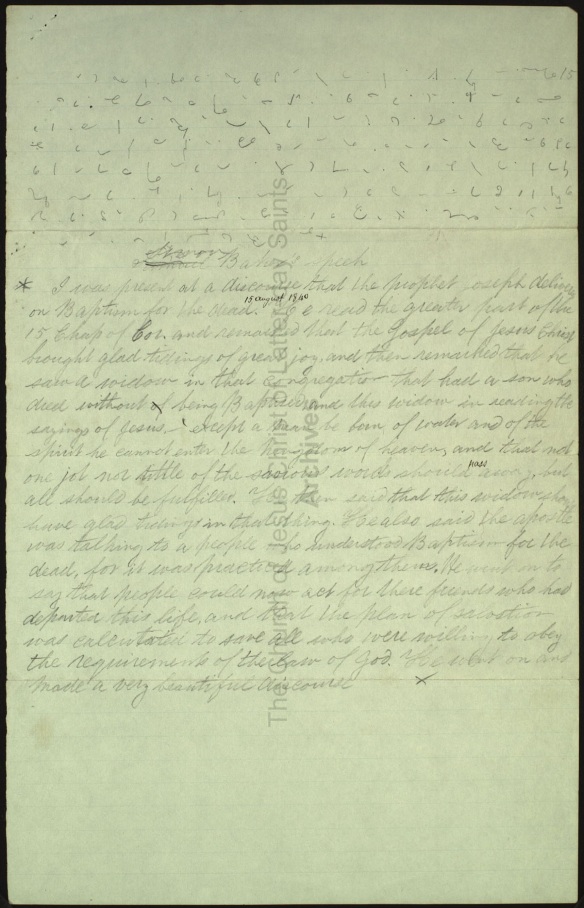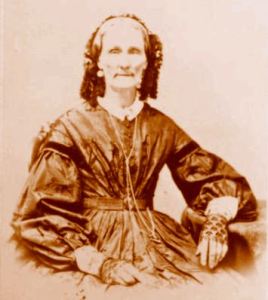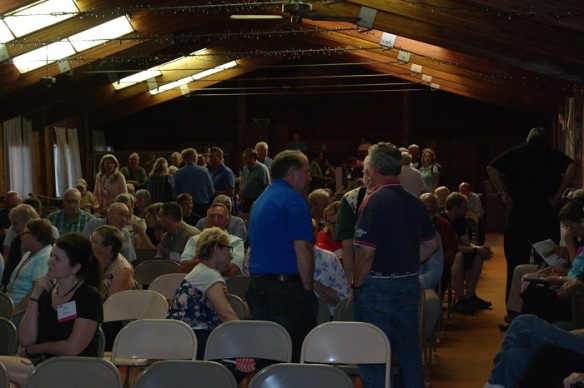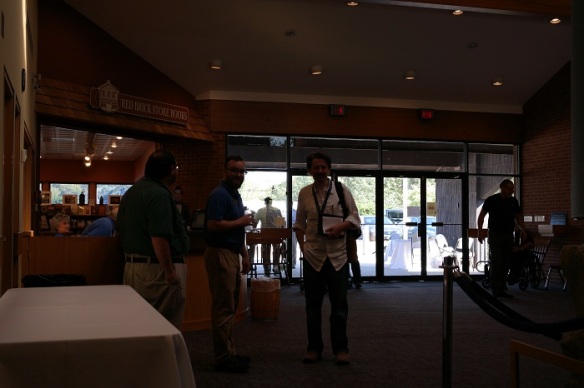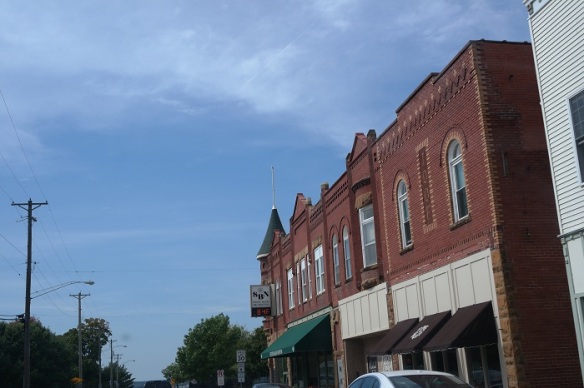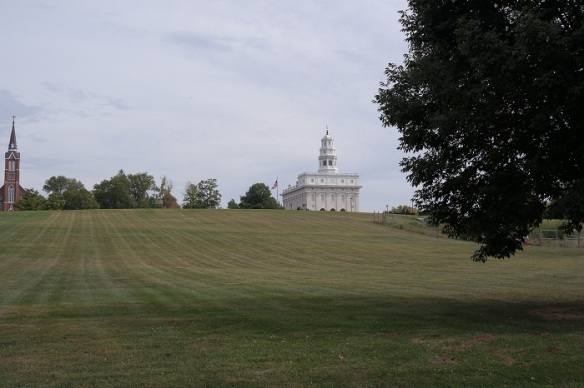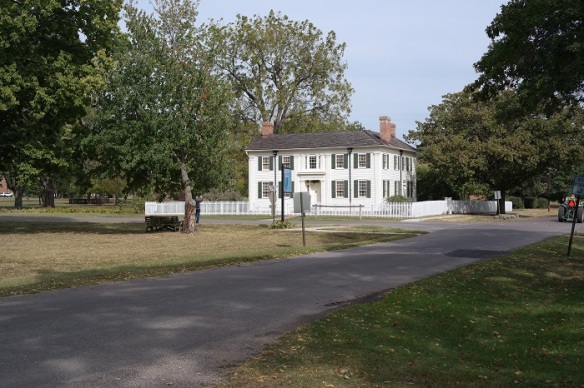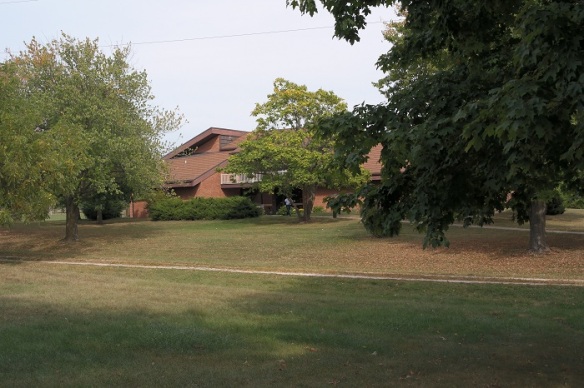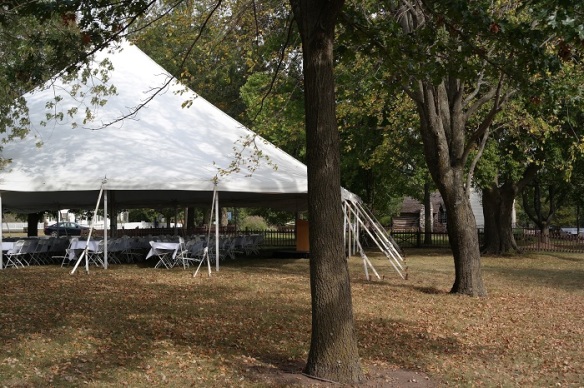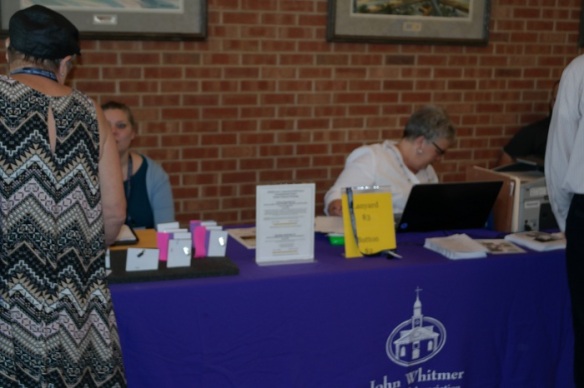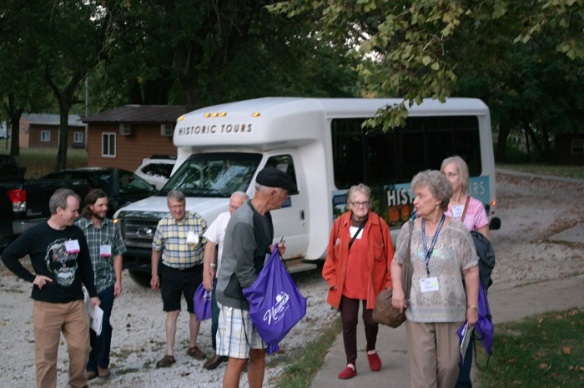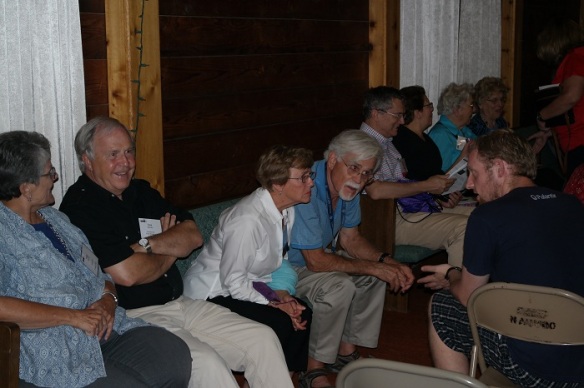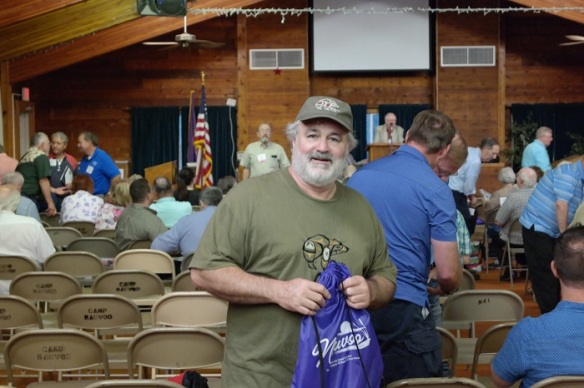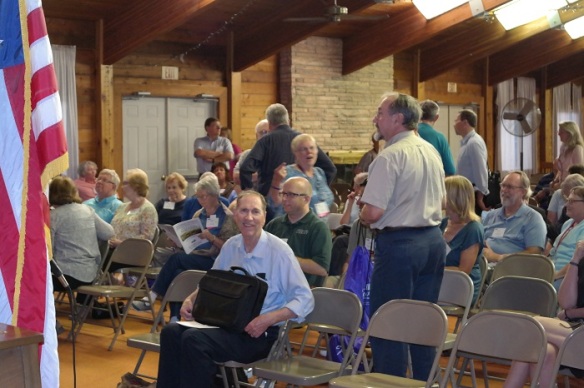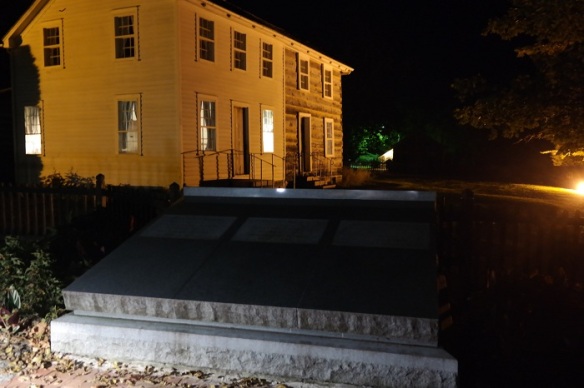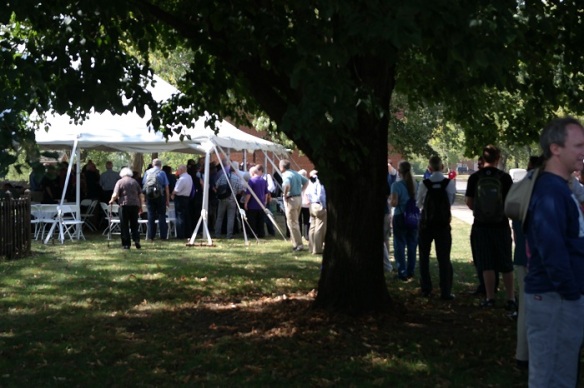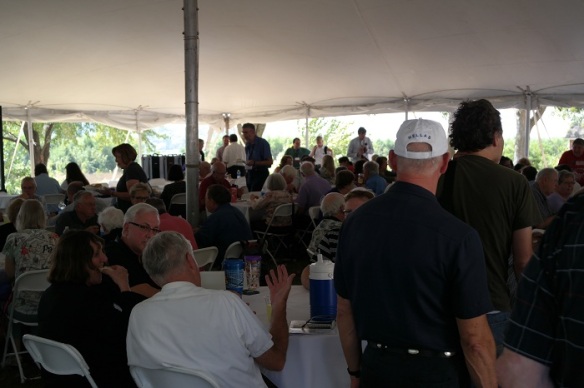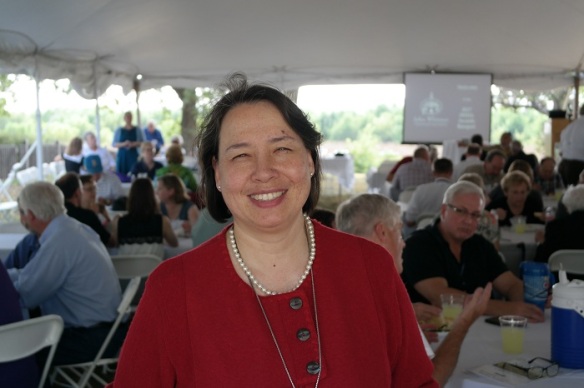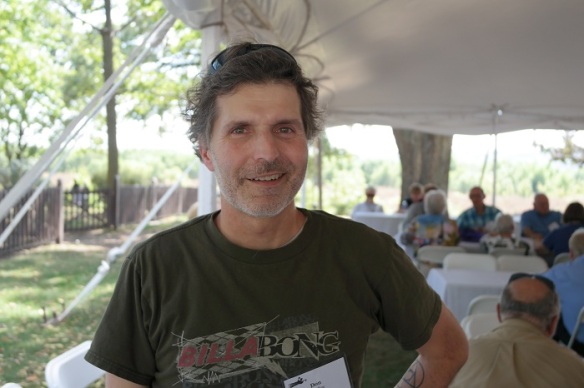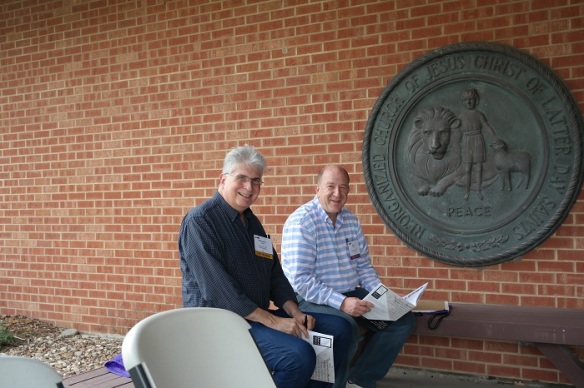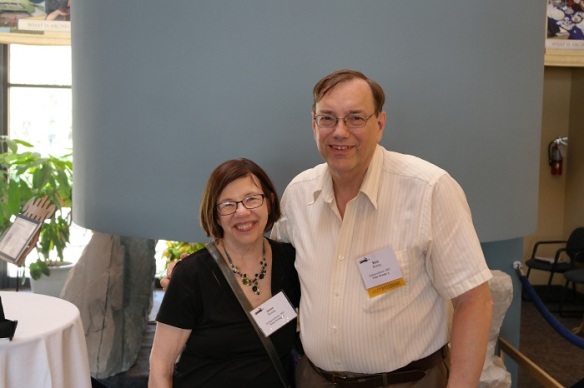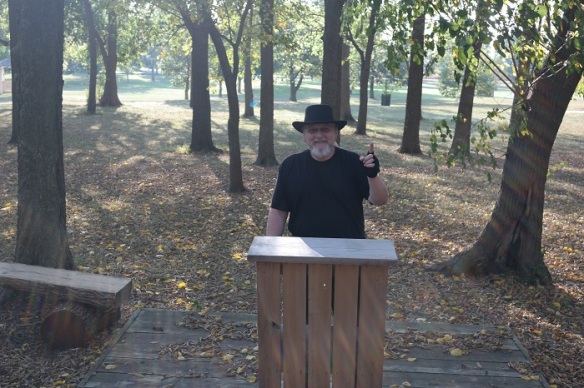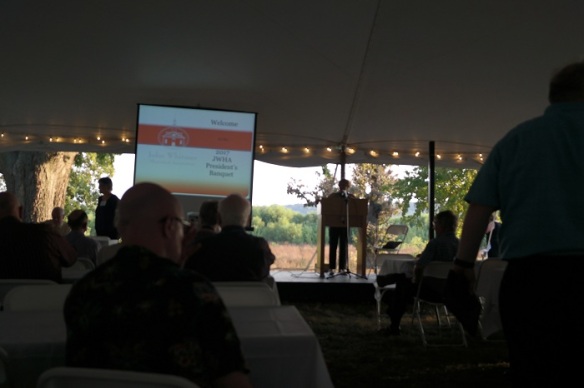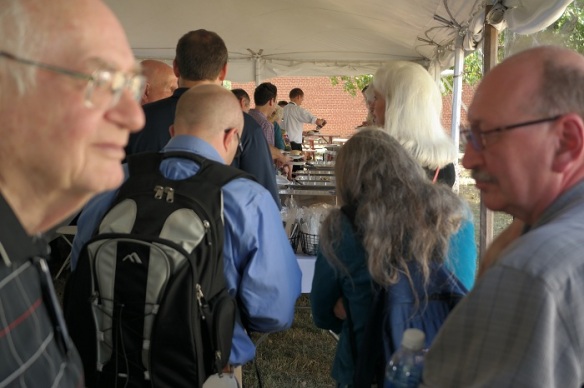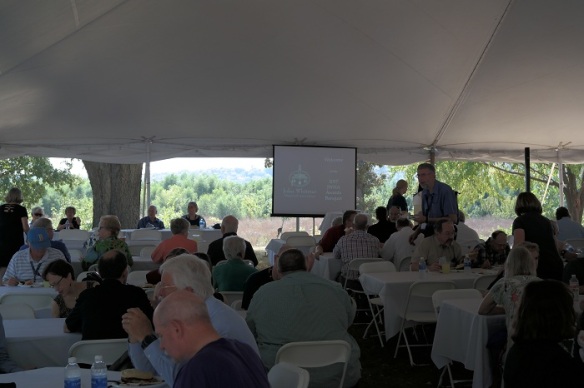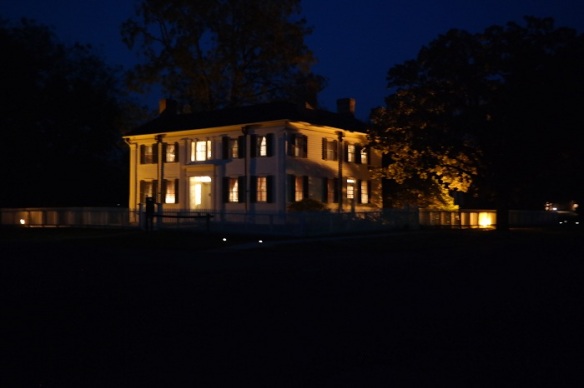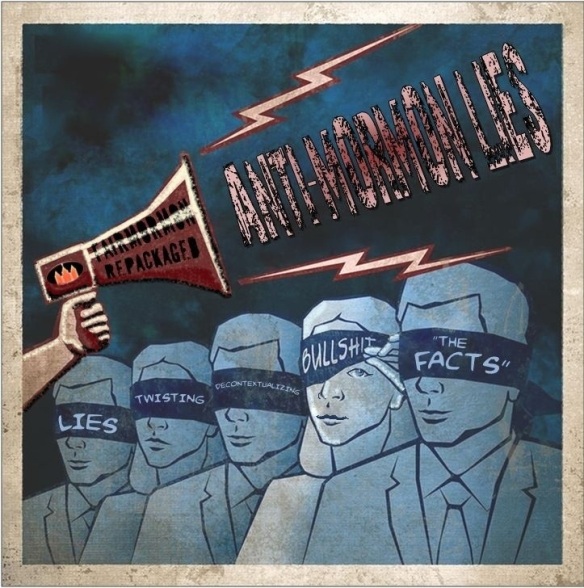Part III: Getting to “Snow” You
“Fools learn nothing from wise men, but wise men learn much from fools.” ―Johann Kampar Lavater
“Professing themselves to be wise, they became fools.” ―Paul, Letter to the Romans
“I don’t mind being an apologist because I am a believer that Joseph Smith was a virtuous man and a true prophet of the living God. ―Brian Hales, 2011
Part I may be found here, and Part II here.
Is Jeremy Runnells Research Problematic?
In his rebuttal to FAIRMORMONS’s criticisms of his concerns about polygamy Jeremy Runnells wrote:
Joseph was practicing polygamy before the sealing authority was given. LDS historian, Richard Bushman, said “There is evidence that Joseph was a polygamist by 1835” (Rough Stone Rolling, p.323). Plural marriages are rooted in the notion of “sealing” for both time and eternity. [According to the Mormon Church] The “sealing” power was not restored until April 3, 1836 when Elijah appeared to Joseph in the Kirtland Temple and conferred the sealing keys upon him. So, Joseph’s marriage to Fanny Alger in 1833 was illegal under both the laws of the land and under any theory of divine authority; it was adultery.
FairMormon states the following regarding Joseph’s relationship with Fanny Alger:
There is some historical evidence that Joseph Smith knew as early as 1831 that plural marriage would be restored, so it is perfectly legitimate to argue that Joseph’s relationship with Fanny Alger was such a case….those closest to them saw the marriage as exactly that – a marriage.
Latter-day “prophet, seer, and revelator” Lorenzo Snow strongly disagrees with FairMormon. Snow states:
A man that violated this law in the Doctrine and Covenants, 1835 edition, until the acceptance of that revelation by the church, violated the law of the church if he practiced plural marriage. Yes sir, he would have been cut off from the church, I think I should have been if I had. Before the giving of that revelation in 1843 if a man married more wives than one who were living at the same time, he would have been cut off from the church. It would have been adultery under the laws of the church and under the laws of the state, too. – Temple Lot Case, p.320-322
According to Lorenzo Snow, Joseph had zero business marrying his plural wives before 1843 and he should have been cut off from the Church as it was adultery under the laws of the Church and under the laws of the State. Joseph’s marriage to Fanny Alger in 1833 was illegal under both the laws of the land and under any theory of divine authority; it was adultery.”[105]
Brian Hales, in his article, “Jeremy Runnells—the New Expert on Joseph Smith’s Polygamy?” objected to Runnells’ use of part of the Lorenzo Snow testimony in the Temple Lot Case as published by the Reorganized Church (Community of Christ)[106] and wrote:
One example of the weaknesses that are repeated over and over in his essay is illustrated when Runnells allegedly quotes Lorenzo Snow’s 1892 Temple Lot deposition. According to Runnells, Snow gave this testimony:
A man that violated this law in the Doctrine and Covenants, 1835 edition, until the acceptance of that revelation by the church, violated the law of the church if he practiced plural marriage. Yes sir, he would have been cut off from the church, I think I should have been if I had. Before the giving of that revelation in 1843 if a man married more wives than one who were living at the same time, he would have been cut off from the church. It would have been adultery under the laws of the church and under the laws of the state, too. – Temple Lot Case, p.320–322 [Runnell’s originally bolded last sentence]
Then Runnells concludes:
According to Lorenzo Snow, Joseph had zero business marrying his plural wives before 1843 and he should have been cut off from the Church as it was adultery under the laws of the Church and under the laws of the State. Joseph’s marriage to Fanny Alger in 1833 was illegal under both the laws of the land and under any theory of divine authority; it was adultery.”
It is obvious Runnells never viewed the actual 1892 Temple Lot deposition transcripts. Curiously, the last sentence in the paragraph above, the one that he emphasized with bold and italics, is incorrectly cited. Importantly, the words “and under the laws of the state too” are fabrication. They are not in the original transcript; that is, Lorenzo Snow did not say them so far as any record is concerned.
Notwithstanding, Runnells confidently asserts: “According to Lorenzo Snow, Joseph had zero business marrying his plural wives before 1843.” If Runnells had actually consulted the depositions, which are available at the Church History Library, he would have learned that later in that same deposition, RLDS attorney [Edmund Levi] Kelley questioned Snow who directly disagreed with Runnells’ conclusion:
Q. Could he [Joseph Smith] receive a revelation and act upon it, that was contrary in its teachings and provisions to the laws of the church to govern the church, without a violation of those laws?
A. Yes sir, I see that distinctly and understand it and I want you to understand it too.
This sort of problematic research and writing is common throughout the remainder of Runnells’ treatment of Joseph Smith’s plural marriages raising important questions regarding the accuracy and credibility of his conclusions.[107]
So, Hales cites a couple of paragraphs from Jeremy and claims his research and writing is problematic “over and over” in regard to Smith’s polygamy? Hardly. Notice that Hales prefaces his quotation of Lorenzo Snow with an accusation that Jeremy’s essay is full of weaknesses because he quotes Snow’s “alleged” testimony.
First, the way Hales has used the word “allegedly” in connection with Runnells quotation of Snow’s deposition is highly disingenuous and makes it seem as if Snow’s entire testimony from that source is in question. If so, we would ask, where are Hales other examples of fabricated testimony? Nowhere to be found! And it is not “according to Runnels”, it is according to the RLDS Church who published what Jeremy (and FAIRMORMON!) cited.
If one reads the transcript that Hales quotes from (which he provides from the typed transcripts of the Temple Lot Case found at the Church History Library), and the one that Jeremy quotes from (produced by the RLDS or Community of Christ Church) there is no significant difference except for the gloss at the end of the quote.
Second, Hales claims that the last sentence of the Snow quote is “incorrectly cited.” Hales is mistaken; it is not “incorrectly cited” by Jeremy, it is simply a gloss made by the RLDS publishers who Jeremy was citing correctly. One wonders if Hales knows what “incorrectly citing” actually means. How does one correctly cite any “fabrication”? The way that Jeremy did! Where was the additional sentence fragment found? Exactly where Jeremy cited. Jeremy did not add the gloss, the RLDS Church did. (And we don’t know why, or who was consulted in relation to the transcript they produced).
But does Hales mention this? Not at all. He tries to make it appear that it is a fabrication by Jeremy Runnells, because Hales doesn’t bother to tell anyone that yes, that line was actually in the RLDS transcript. Remember, Hales wrote, “According to Runnells, Snow gave this testimony…” No, it was according to the RLDS Transcript! Even in his footnote Hales does not mention the fact that there was a discrepancy in that Transcript, which was the only one easily available to the public for many years.
The first hint that Brian Hales gives about the Snow Testimony is in the comment section on July 15, where he says:
For me it is all about the evidence. Of course I don’t believe that everyone who reviews the evidence will agree with me. However, what do we do with people who portray themselves as experts who haven’t done the research? In this case, Runnells quotes a source with fabricated text and contradictions to his own claims and Runnells is apparently unaware.[108]
What do we “do” with those people that Hales doesn’t agree with? Did he really say that? What people normally do with them is nothing. One responds to them with accurate evidence. Does Hales do this? Not at all.
And if one is going to judge historians on things they might be unaware of, then everyone might as well pack it in, because everyone is unaware of something at one time or another. I (Johnny) have confronted Hales with many items of evidence that he was completely unaware of, (and there are many more he knows nothing about) and still, Hales refuses to write about them, explain them, or in some cases correct his own published gaffes. Many of these are listed in this essay. This is glass houses stuff folks, but Hales is completely unaware that he has shattered his own credibility by lobbing rocks at everyone who disagrees with him.
It is Hales who called Jeremy an “expert”, by the way. Jeremy never called himself that, it is Hales’ disingenuous invention. But Hales still does not explain why he objects to Snow’s quoted testimony in the RLDS publication, although he does, finally, in this comment clarify that Jeremy is quoting from “a source with fabricated text”. As for the supposed “contradictions” that Hales mentions, well, we shall see about that.
After many comments on the Rational Faiths article, Hales finally comes clean about the Lorenzo Snow Testimony and writes:
There has been some confusion regarding the Lorenzo Snow testimony at the deposition; The Temple Lot legal case transcript covers more than 1,650 pages. The originals are housed at the Eighth District Court in Kansas City, Missouri, with a carbon copy at the Community of Christ Archives. The LDS Church History Library offers both microfilm and digital photographs of the microfilm (unrestricted). A 507-page version has been published and distributed by several booksellers including Herald House and Price Publishing Company; however, heavy editing makes this version of little or no use to polygamy researchers. Apparently parts of the original transcript have been digitally transcribed by Richard D. Ouellette. The statement quoted by Runnells is from one of the edited versions and I’m not surprised that the RLDS editor added some commentary that has been mistaken as have [sic] been stated in the original testimony.[109]
Now it’s “some commentary”. Why was there the “confusion” that Hales mentions in the comment section? Because Hales shoddy writing skills confused people (though we suspect it was intentional). We see now that the whole tenure of Hales’ original accusation changed. He finally ascribes the blame to the actual source, the RLDS edited Transcript. Why did it take Hales so long to clarify this? Perhaps because after his article was published he was called out on this in a private discussion that involved the authors of this Essay (among others). In that discussion (which took place in our Facebook group Mormon Historians – it was private so we won’t quote from it) someone asked about how Jeremy could have quoted from fabricated testimony since he did quote correctly from a purported copy of the Temple Lot Transcript. It was only then that Hales finally clarified that it was the RLDS publication that had added half a line to Snow’s testimony.
What is interesting is that even in his recently published books on Joseph Smith’s polygamy, Hales doesn’t mention this problem that so concerns him now. He wrote:
A 507-page version [Of the Temple Lot Transcript] has been published and distributed by several booksellers including Herald House and Price Publishing Company, however, heavy editing makes it of little or no use to polygamy researchers.[110]
Sound familiar? Hales only mentions editing, not any fabrications or “some commentary”. Remember, Hales initially did not accuse Jeremy of using an edited source, but a fabricated one. Why, because it sounds worse. Also, Hales did not provide any of the Snow transcripts from the Church History Library on his website until we demanded it of him. Does Hales’ own “heavy editing” of the original sources in his books and at his website (notice if you will all the ellipses he employs over and over again), make them of little or no use? You must decide for yourself, dear reader.
And what is interesting is that Hales had copies of the testimony and gave us a few pages, but even he was unaware at that time that you could access it at the CHL. We discovered this ourselves and (as we point out below) even FAIRMORMON (who Hales is a big supporter and contributor to) didn’t know this.
Since we do have Brian Hales three volume set of books on polygamy and many other sources (including the original Temple Lot typescript), Jeremy (who is now far more familiar with Hales’ research) and Johnny (who is and has been quite familiar with Hales’ research) would like to analyze the rest of Snow’s testimony that Hales claims Jeremy misinterprets. And as a bonus there are hundreds of pages of footnotes that explain everything in detail and quote extensively from the original documents, along with links and photos of those originals. The main body of this text was (for the most part) written by us five years ago, it is the notes (written by Johnny) that have taken so long for it to be published. They will be well worth the wait, dear reader, we can assure you of that.
To get started, right away we noticed that Hales had to skip to a later part of Snow’s testimony to make his point. There is a reason for this as you will see. We also see that Snow’s testimony sets up Joseph as being above the law of the church so Snow contradicts Snow. This is not what the Church teaches today, nor was this something that Joseph did openly because there would have been consequences. (We actually saw some of the consequences when the Nauvoo Expositor was published). And wouldn’t you know it, Brian Hales never mentions anything about this! Here is how Lorenzo Snow (in private) said that he dealt with the “improper” things that Smith did:
I saw Joseph the Prophet do, and heard him say, things which I never expected to see and hear in a Prophet of God, yet I was always able to throw a mantle of charity over improper things.[112]
Snow would throw a “cloak of charity” over improper things. What improper things? This is exactly what Smith wanted from his followers, to view some sin as not being sin at all and to throw a “cloak of charity” over those sins. (Joseph’s words) That way, he could do “improper” things, like break the laws of the church or the land, or commit adultery with the assurance that those who believed in him would throw a cloak of charity over those obvious sins. That is why statements like the one that Levi Lewis made in 1834 are so important, because it shows that Smith (via Martin Harris) was claiming that “adultery” was no sin (or crime) very early in his career.[113]
And it is of interest to show what the definition of “improper” was in the 19th Century:
Not becoming; not decent; not suited to the character, time or place; as improper conduct in church; improper behavior before superiors; an improper speech. (Webster’s 1828 Dictionary)
With that in mind, here is Snow’s testimony from the typed transcript provided by the Church History Library that Hales speaks of:
189 Q. And the man that violated this law in this book [Articles of Marriage in the Doctrine and Covenants, 1835 edition] until the acceptance of that revelation by the church violated the law of the church if he practiced plural marriage? A. Yes Sir. He was cut off from the church. I think I should have been if I had.
190 Q. What would be the condition of the man that would marry more than one person prior to the giving of that revelation in 1843? A. What would be the condition of a man that would do that?
191 Q. Yes sir? A. Why he would be cut off from the Church.
192 Q. Would not it have been adultery under those revelations I have just read? A. Yes sir. I expect it would be. [adultery][114]
Here we see at least part of the sentence has been verified. Snow testified that under the laws of the Church, it would indeed be adultery. So what the hell is Hales quibbling about? We are still scratching our heads because Snow called it adultery and it was common knowledge that committing adultery (at that time) was also breaking the laws of the land. That is what the Mormon Apostles wrote in the Times and Seasons shortly after Joseph’s death, which we will explore below.
Granted, Jeremy Runnells did quote Snow’s testimony from a transcript produced by the Reorganized Church of Jesus Christ of Latter Day Saints (Church of Christ). But this is a mistake even FAIRMORMON made here.
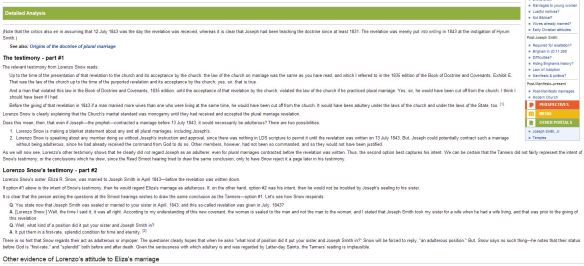
FAIRMORMON PAGE (July 2014) that Jeremy refers to where they also quote from the RLDS Transcript (Now changed), in an effort to rebut the Tanners who made the same argument
FAIRMORMON has now updated their website with quotes from Hales’ attack on Jeremy Runnells at Rational Faiths, but the screen shot of a previous version of the page (taken in July 2014) shows that they indeed did not mention the discrepancy, and used the RLDS version themselves, which is where Jeremy got that testimony from. He was after all, rebutting FAIRMORMON!
It seems as if FAIRMORMON was unaware of “the latest research” and that Hales (an ongoing contributor to their blog and articles) couldn’t be bothered to inform them.
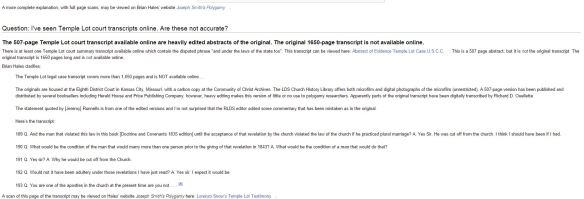
FAIRMORMON PAGE where they claim the transcript was not online (when it was at the CHL) – this also has been changed
In the hastily corrected article by FAIRMORMON they also claimed that the Temple Lot Transcript cannot be found anywhere online. This is also not true and since they are quoting Brian Hales and the “lastest research”, it seems that they ought to have known this. We found it easily and have provided the link above. (Remember, this was five years ago) It is also curious that the RLDS Church made this addition to the transcript of Snow’s testimony when there are no others apparent. (They mostly combined questions and answers as actual respondent’s testimony).
But the addition of breaking the laws of the land does not really change the meaning of what Lorenzo Snow said. This point is ignored by Brian Hales; instead he calls Jeremy Runnells a liar, and puts the focus on Snow’s justification for why he won’t apply adultery to what Joseph Smith did (which was the same thing). You will see though, that Snow would apply adultery to himself if he did what Smith did. So we must ask ourselves, why the double standard? Is a prophet exempt from the law whenever he wants to be? Or if he persuades enough other “authorities” that he is?
Snow definitely states that according to him, that any man who violated the law as written in the D&C in 1835 before the revelation was given in 1843 (July) would be guilty of adultery. He states this twice in the transcript and doesn’t make any exceptions. These are blanket statements, and it is only when Snow sees that E. L. Kelley also applies it to Joseph Smith that he invents an “exception” for Joseph Smith. Here, Snow is asked again:
217 Q. That is you state that if a person should be married or sealed by this revelation, according to your understanding, –that is, if they should be married according to the provisions of this polygamous revelation prior to the year 1843, that they would be violating the laws of the church and would be guilty of adultery? A. Yes sir.[115]
According to this testimony from Lorenzo Snow, Joseph Smith should have been guilty of adultery (and he was according to his own June 1842 First Presidency Address). Hales also makes the argument that when Joseph Smith was denying polygamy, he really didn’t mean his own Spiritual Wife System (he was speaking of some kind of Arabic version of polygamy which is ridiculous) and so he really wasn’t lying. But here we see that Snow understood that it was adultery if a person were sealed or married. The terms were interchangeable in Smith’s day, and later in Utah. This was also the law of the Church as taught by Orson Pratt in General Conference. Pratt stated:
In the early rise of this Church, February, 1831, God gave a commandment to its members, recorded in the Book of Covenants, wherein He says, “Thou shalt love thy wife with all thy heart, and shalt cleave unto her and to none else;” and then He gives a strict law against adultery. This you have, no doubt, all read; but let me ask whether the Lord had the privilege and the right to vary from this law. It was given in 1831, when the one-wife system alone prevailed among this people. I will tell you what the Prophet Joseph said in relation to this matter in 1831, also in 1832, the year in which the law commanding the members of this Church to cleave to one wife only was given. Joseph was then living in Portage County, in the town of Hiram, at the house of Father John Johnson. Joseph was very intimate with that family, and they were good people at that time, and enjoyed much of the Spirit of the Lord. In the forepart of the year 1832, Joseph told individuals, then in the Church, that he had inquired of the Lord concerning the principle of plurality of wives, and he received for answer that the principle of taking more wives than one is a true principle, but the time had not yet come for it to be practiced. That was before the Church was two years old. The Lord has His own time to do all things pertaining to His purposes in the last dispensation; His own time for restoring all things that have been predicted by the ancient prophets. If they have predicted that the day would come when seven women would take hold of one man, saying, “We will eat our own bread and wear our own apparel, only let us be called by thy name to take away our reproach;” and that, in that day the branch of the Lord should be beautiful and glorious and the fruits of the earth should be excellent and comely, the Lord has the right to say when that time shall be.
Now supposing the members of this Church had undertaken to vary from that law given in 1831, to love their one wife with all their hearts and to cleave to none other, they would have come under the curse and condemnation of God’s holy law. Some twelve years after that time the revelation on Celestial Marriage was revealed. This is just republished at the Deseret News office, in a pamphlet entitled, “Answers to Questions,” by President George A. Smith, and heretofore has been published in pamphlet form and in the Millennial Star, and sent throughout the length and breadth of our country, being included in our works and published in the works of our enemies. Then came the Lord’s time for this holy and ennobling principle to be practiced again among His people.[116]
So we see (according to Orson Pratt) that Joseph Smith violated the laws of the Church and committed adultery every time he was “married/sealed” to a woman (or took her as a “concubine”) before the “revelation” of 1843. This Conference was attended by the entire Quorum of the Twelve and the First Presidency, with Lorenzo Snow speaking shortly before Orson Pratt at the very same meeting! There were no objections or denunciations of what Orson Pratt proclaimed here by Lorenzo Snow or anyone else as we see from Wilford Woodruff’s own Journal:
Oct 6, 1869 The General Conference of the Church of Jesus Christ of Latter Day Saints Assembled in the New Tabernacle at 10 oclok. A large Assembly of Saints Presidet B Young Presiding. All of the Twelve & Presidency are present Except John Taylor. He had gone East on Business. Orson Hyde Prayed. Presidet D. H. Wells spoke 45 Minuts. G. A. Smith spoke 41. [October] 7 Conference Met at 10 oclok. B Young jr Prayed. L [orenzo] Snow spoke 42 Minuts. G. Q. Cannon read the Names of the Missionaries. W Woodruff spoke 34 m. After noon. S W Richards Prayed. O Pratt spok upon Poligamy one Hour & 32 Minuts.[117]
Where is the special exception for Joseph Smith? Where is Lorenzo Snow’s objection that Pratt was being too general in his remarks? Nowhere to be found! Perhaps because Smith’s relationship with Fanny Alger was not well known at this time? Ann Eliza Young does not publish her tell all (Wife No. 19) until seven years later (becoming the first to publish about Fanny Alger) and Andrew Jenson’s Historical Record didn’t come out until the 1880’s. In 1869 the public knew very little about Smith’s Spiritual Wives, his nephew Joseph F. Smith was still collecting affidavits – some of which would be used to rebut the last testimony of Emma Smith a decade later. They were being collected for just that purpose, to counter the claims being made by Emma and her sons. What happened in Nauvoo had been cloaked in secrecy up until this time, and it was only starting to come out; and so the hierarchy felt no need to make any special pleadings for Joseph. But does FAIRMORMON give you any of this background? Does Hales? Of course not! When all the information came out about Alger and some of Smith’s other Spiritual Wives, then they had to revise the timeline they had claimed and make up that special exemption for Joseph Smith.
So what is Hales here objecting to? He is straining at gnats while swallowing camels. He claims that Jeremy’s rebuttal of FAIRMORMON is flawed and full of errors, but only makes a weak case about a half sentence gloss – while claiming that he rebuts everything somewhere on his massive website or in his three volume set of books. He doesn’t even do the readers the courtesy of taking Jeremy point by point or directing them with links to where they can find Hales’ responses (or the “evidence”). And instead of giving well rounded answers, Hales simply quotes from his books – which are full of errors and his made up faithful narrative.
Even in 1844 it was realized that the practice of having more than one living wife was against the laws of the Church and the law of the land. This was proclaimed in the Times and Seasons by John Taylor, (who unlike Snow was an actual Apostle at the time) just a few months after the death of Joseph Smith:
The saints of the last days have witnessed the outgoings and incomings of so many apostates that nothing but truth has any effect upon them. In the present instance, after the sham quotations of Sidney [Rigdon] and his clique, from the Bible, Book of Mormon, and Doctrine and Covenants, to skulk off, under the “dreadful splendor” of “spiritual wifery,” which is brought into the account as graciously as if the law of the land allowed a man a plurality of wives, is fiendish, and like the rest of Sidney’s revelation, just because he wanted “to go to Pittsburg [Pittsburgh] and live.” Wo to the man or men who will thus wilfully [willfully] lie to injure an innocent people! The law of the land and the rules of the church do not allow one man to have more than one wife alive at once, but if any man’s wife die, he has a right to marry another, and to be sealed to both for eternity; to the living and the dead! there is no law of God or man against it! This is all the spiritual wife system that ever was tolerated in the church, and they know it.[118]
What is amusing now is that Taylor and Young and the rest of the Twelve were heavily involved in their own Spiritual Wifery; and trying to blame it on Rigdon who never did ascribe to it. We see now that Lorenzo Snow was also aware that this was and had been the Church’s teaching, and that explains his later testimony as he plays a game of semantics while also working hard to try and justify Smith’s actions by endeavoring to explain why the “prophet” is exempt from keeping the same church laws as everybody else.
Reading Snow’s actual testimony is tedious because it is obvious that he is hostile and untruthful and questions have to be asked over and over again.
Joseph’s Apostles were always making excuses for his bad behavior. Wilford Woodruff recorded these words by Joseph Smith pertaining to the (dare we say “fiendish” as Taylor called them) doctrines he taught:
President Joseph Smith again arose & said In relation to the power over the minds of mankind which I hold, I would say it is in consequence of the power of truth in the doctrins which I have been an instrument in the hands of God of presenting unto them & not because of any compulsion on my part. I will ask if I ever got any of it unfair. If I have not reproved you in the gate. I ask did I ever exercise any compulsion over any man? Did I not give him the liberty of disbelieveing any doctrin I have preached if he saw fit? Why do not my enemies strike a blow at the doctrin? They cannot do it, it is truth. And I am as the voice of one crying in the wilderness repent of your sins & prepare the way for the coming of the son of Man, for the kingdom of God has come unto you and henceforth the ax is laid unto the root of the tree and evry tree that bring-eth not forth good fruit, God Almighty (and not Jo Smith) shall hew down & cast it into the fire.[119]
What about the compulsion of angels with swords? What is interesting, is that when those that opposed Spiritual Wifeism (not agreeing that it was “truth”) did try and strike a blow at the doctrine a few months later in the Nauvoo Expositor, Smith had their press destroyed and continued to lie that he practiced what they were all calling Spiritual Wifeism.[120] One can cynically add that it was “Jo Smith” who was “hewn down” only a few months later, and not those who endeavored to strike a blow at the doctrine.
Joseph certainly did use “compulsion” on his followers. (Classic say one thing but do something else) For example, he threatened John Snider with excommunication if he did not obey the “prophet” and go on a mission, (as Joseph was committing adultery with his wife Mary Heron) and threatened men and women that they and their families would be damned if they did not obey him and become his Spiritual Wives or support him in taking their wives and young teenage daughters. In March of 1843 Smith “blesses” Sarah Ann Whitney and claims:
Oh let <it> be Sealed this day on high that She Shall come forth in the first reserrection to recieve the Same and verily it Shall be so Saith the Lord if She remain in the Everlasting covenant to the end as also all her Fathers house Shall be Saved in the Same Eternal glory and if any of them Shall wander from the foald of the Lord they Shall not perish but Shall return Saith the Lord and be Saived (See Note #149 below)
What is important here is that this is not what Lorenzo Snow thought about (only) Joseph Smith. (That he was an adulterer by Church and State Law). Snow never admits that Smith was wrong in anything he did in his Temple Lot testimony. But this is still justification based on evasion of the truth and holding up Joseph Smith to a different standard than everyone else, (creating an exemption for him alone) something the Church never taught. Jeremy’s phrasing “According to Lorenzo Snow” that Joseph would have zero business practicing his Spiritual Wifeism, is not incorrect, unless one believes that a Mormon prophet always gets a get out of jail free card for every sin he might commit and that the church teaches such things. They had to try and explain Smith’s bizarre doctrines and teachings he made up to justify his megalomania and narcissism in his last years in Nauvoo. We could not find any teachings from the Mormon cannon that would back up such an exemption from the law.
Still, Lorenzo Snow did admit that what Joseph did was in violation of the Church policy that Smith himself set up – if it were anyone but Joseph Smith. This is the kind of strange logic that Snow has to use to try and justify Smith’s actions. This is the kind of logic that anyone must use to justify Smith’s Spiritual Wife System.[121] To liken what Smith was doing in his day to our day, it would be like the current church President claiming that God gave him a revelation that he could ordain women to the priesthood, but he only does so in secret and then denies that he was doing it when it was found out. Then he later says that he did so because he knew that the church wasn’t ready to accept it! And his chosen Apostles all do the same and defend him (and themselves) by claiming he is the “lawgiver” and that gives him the right to do so, and them the right to act on the secret revelation! Can the head of the church do such things? We would love to know where to find any revelation that allows Mormon prophets to do such things. This is the heart of the argument of the RLDS Church, and Snow and Woodruff and others knew it, and simply used special pleading to try and excuse Smith’s behavior.
Even though later in his testimony Snow tries to justify that Smith was allowed to do this as “prophet”, this doesn’t jibe with the actual historical evidence, since Smith told the Relief Society that no one could practice polygamy (Spiritiual Wifeism) in the Church, even a “prophet, seer & revelator”.[122] He also gave instructions in the fall of 1843 that were copied into his diary that no man in the church shall have more than one wife:
Thursday, October 5[th, 1843] Morning rode out with Esqu[ire] Butterfield to farm &c. P.M. rode on prairie to shew some brethren some land. Eve[ning] at home. Walked up and down St[reet] with Scribe and gave instructions to try those who were preaching, teaching, or practicing the doctrine of plurality of wives on this Law. Joseph forbids it and the practice thereof. No man shall have but one wife. [rest of page blank] {page 116}[123]
This blatant contradiction did not sit well with later apologists like George Albert Smith and this entry was changed when the History of the Church was published. (They added “unless the Lord commands it” to the last sentence). This is practicing deception folks, something that you think wouldn’t need to be done if Joseph Smith was what he claimed to be, and something that Jeremy Runnells obviously doesn’t need to do but which FAIRMORMON and Hales engage in often.
Yet on November 2, 1843 Joseph had Brigham Young’s sister Fanny sealed to him “for time and eternity”.[124] It seems that Joseph could not even keep his own word for one month.
Snow’s testimony continues:
218 Q. You state now that Joseph Smith, was sealed or married to your sister [Eliza R. Snow] in April 1843, and this so called revelation was given in July of 1843? A. No sir.[125]
Snow then quibbles here, and says that he didn’t make the statement that Joseph was sealed to Eliza, rather that Eliza was sealed to Joseph. (The WOMAN is sealed to the MAN! Of course in their chauvinist society that would have to be stressed!) It is important to note that Eliza and Joseph were “sealed” on June 29, 1842, over a year before Joseph produced any “revelation” about polygamy.
223 Q. Well you said that he told you that he had taken your sister? A. Yes Sir.
224 Q. Yes sir, and that is what you said he told you? A. Yes sir, and that is what he did tell me.
225 Q. That he had taken your sister? A. Yes sir.
226 Q. And she was sealed to him? A. Yes sir , that is it exactly, Now you have got it. she was sealed to him.
227. Q. Now then according to your understanding of this new covenant the woman is sealed to the man, and not the man to the woman? A. Yes sir, you are right now…
228. Q. Well, I am glad too that I am right at last, as you put it, so you see our joy is mutual? A. Well yes sir that is right and I am glad of it, but if you think you can get into any of these things now you are mistaken, for you can’t do it. The whole thing has been stopped, and there is no more of it here now, so you can’t find out anything about the operation of this principle in this place, for the whole thing has been stopped.[126]
So Snow finally admits that Joseph had taken his sister as a Spiritual Wife, and had her sealed to him before July 12, 1843 when the revelation was given. Then Snow goes out of his way to proclaim that you “can’t get into any of these things now” because it was all stopped. (But we all know that it really wasn’t stopped so he was committing perjury) What does this have to do with the historical record? Lorenzo Snow’s testimony is forced, full of contradictions and hostility.
229. Q. Now you have stated that Joseph Smith took your sister for a wife when he had a wife already? A. Yes sir.
230. Q. Prior to the giving of this revelation? A. Yes sir.
231. Q. Well what kind of a position did it put your sister and Joseph Smith in? A. It put them in a first rate, splendid position for time and eternity.
232. Q. Was not that act simply sealing instead of marriage? A. Well, IT WAS ALL THE SAME.
233. Q. Sealing for eternity, and marriage, are they all one and the same thing? A. Well it is getting the female with the male THE SAME as it is in the marriage ceremony.[127]
This is very interesting because Snow states that sealing and marriage are the same. Sealing is getting the female with the male, the same as in a marriage. And though this puts them in a splendid position in Snow’s mind, it doesn’t really answer the question or deal with the contradiction of why it would be adultery for everyone but Joseph. Snow just doggedly repeats that Joseph could give any “revelation” he felt like giving, and it would have to be immediately obeyed. But this destroys Hales’ claims that there were separate marriages that were sexless eternity-only “sealings”. According to Snow, it was never looked upon that way at that time. We will address this in more detail below.
Snow is then asked about a letter that his sister wrote, but says that he is not familiar with it. The testimony then continues:
244. Q. Was she [Eliza R. Snow] to your knowledge a wife to him? A. A wife to him? Now,–
245 Q. Yes sir, a wife to him. A. Of course she was a wife to him.
246. Q. In what way? A. Having been sealed to him for time and eternity.
247. Q. How do you know that to be the fact? A. Why I know it because he stated it to me.
248. Q. He stated it to you? A. Yes sir.
249. Q. What was it he stated to you? A. That she had been sealed to him for time and eternity.
250. Q. And he stated that to you before the giving of the revelation? A. Before it was published.
251. Q. Was it not before it was given. A. Yes sir.
252. Q. You stated that he told you that in April 1843? A. Yes sir, but that was not before it was given to him, it was before it was published or made known to any great number though.
253. Q. You stated that he stated that to you in April 1843? A. Yes sir, that is just exactly what I stated.
254. Q. The revelation that I have read to you or the caption of which I have read to you from your own work said it was given July 12 1843, did it not? A. Given to whom?
255. Q. Given to Joseph Smith? A. Read that and see what it says.
256. Q. I have read it once and that is what it says? A. Read it again so that I can see what it says?
257. Q. Revelation on the eternity of the Marriage Covenant, including plurality of wives. Given through Joseph the Seer in Nauvoo, Hancock County, Illinois, July 27th 1843. That is it? A. Does that say it was not given to him before that time?
258. Q. Do you say it was given to him before that time? A. I say that he explained to me the principle of plural marriage distinctly and clearly, and told me that the Lord had revealed the principle, and had commanded him to enter into that practice, and that he had received a revelation to that effect. He said that he had demurred to doing so as he foresaw the trouble that would ensue, but that an angel of the Lord had appeared before him with a drawn sword commanding him to do so, and he could not go backward. It was in substance that that he told me, but of course I do not pretend to relate the exact language he used.
259. Q. Well now then if it is a fact that he married your sister in April, or had married her at the time he told you this in April, and the date of the revelation is given as July 12th of the same year, the date of the revelation is wrong? A. No sir, not entirely.
260. Q. This is not the time it was given? A. That was the first time it was given to the public, but not the first time it was given to Joseph Smith.
261. Q. What publicity was given to it in July 1843? A. Well I think it was the people in Nauvoo.
262. Q. Was it given to the people of Nauvoo on July 12th 1843? A. I don’t know.
263. Q. Do you, you do not know that it was given to the people of Nauvoo on that date? A. No sir.
264. Q. Do you know that it was not given to them on that date? A. Given to whom?
265. Q. Given to the people of Nauvoo on that date, published to the people there on that date, given to them publicly? A. I do not know for I was not there. I was not there I told you. Well I was,–
266. Q. Have you not already testified that you never saw it until after it was in print? A. Yes sir, that is what I said.
267. Q. You have testified that you never saw it until the time that you saw it in print? A. Yes sir, that is what I said, and I say it again.
268. Q. And that was long after the time that you left Nauvoo? A. Long after I left Nauvoo?
269. Q. Yes sir, and while you were in France?[128]
Snow tells the questioner that the “revelation” was given to Joseph at an earlier time, but gives no evidence of that. (The evidence is flimsy at best) We wonder that if it was given at an earlier time, then why did it take Joseph Smith many hours to compose the 1843 “revelation” if he could recite it perfectly from “beginning to end”?[129]
But this is how Snow will justify that Smith had a right to do what no one else could do, commit adultery but not really commit adultery. Even if it were some kind of “revelation” about polygamy given at an earlier time, Smith could still not practice polygamy until the sealing power had been restored.[130]
Snow then gives objection that he wasn’t in France, but in Europe, and they discuss his Missions and that he was at later time in France.
274. Q. Where you a member of the church at an early date in Kirtland? A. Yes sir.
275. Q. When was that? A. That was in ’36.
276. Q. And that was your first connection with the church? A. Yes sir.
277. Q. Then to your knowledge this purported revelation of 1843 was never brought before the church for acceptance during the life-time of Joseph Smith? A. No sir, it was never brought before the public in a public was by public proclamation or announcement. It was never brought before the public in any other way before the death of Joseph Smith, only as I have stated it there.
278. Q. Only as stated here? A. Yes sir.
279. Q. And that was the only way? A. The only way I know anything about. It was taught privately.
280. Q. Was it ever presented to the church for acceptance? A. I do not know.
281. Q. Do you say that it was? A. No sir.
282. Q. Do you say that it was not? A. No sir.
283. Q. Would a revelation as such, or that which purported to be such, that is to be a revelation, be binding upon the church unless it was accepted? A. Yes sir, it would be to some.
284. Q. I asked you Mr. Snow, if it would be binding upon the church until it had been accepted by the church? A. Yes sir, it would be to those that chose to accept it as binding. The people had the most implicit and perfect confidence in Joseph Smith, and when he gave a revelation, whether it was accepted or not, it didn’t make any difference with some, for they had to most perfect confidence in him, so they would accept it and act upon it whether the church as a church had acted upon it by accepting it did not make any difference.[131]
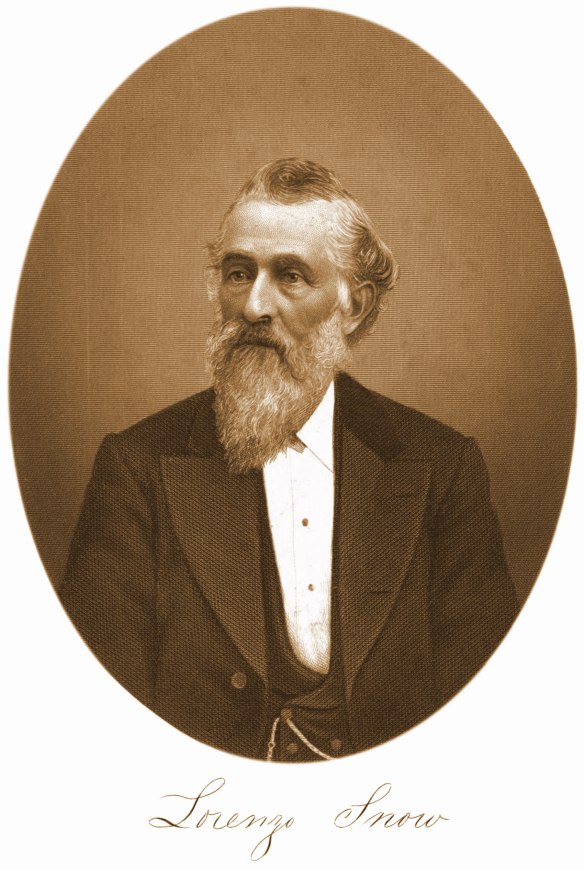 Notice how “it didn’t make any difference to some” becomes something that lets Smith off the hook! Snow knew very well that the “revelation” was never presented to the Church in Nauvoo. Now, Snow is being evasive here, it wasn’t about confidence in Smith, it was about Smith teaching one thing (including previous revelations) and doing another. That is why those like William Law of the First Presidency (and many others) objected to the doctrine, and Joseph kept it secret. It did make a difference to them. But Joseph Smith himself contradicts Snow. If you recall, the First Presidency in 1842 wrote this letter to the Relief Society about polygamy, or anything taught that was like it:
Notice how “it didn’t make any difference to some” becomes something that lets Smith off the hook! Snow knew very well that the “revelation” was never presented to the Church in Nauvoo. Now, Snow is being evasive here, it wasn’t about confidence in Smith, it was about Smith teaching one thing (including previous revelations) and doing another. That is why those like William Law of the First Presidency (and many others) objected to the doctrine, and Joseph kept it secret. It did make a difference to them. But Joseph Smith himself contradicts Snow. If you recall, the First Presidency in 1842 wrote this letter to the Relief Society about polygamy, or anything taught that was like it:
The following Epistle was read before the Society, early after its organization – but was not forwarded to be recorded; the Secretary [Eliza Snow] not being present at the time of its reading, else it would have appear’d in its proper place.
To the Hon., the President of the Female Relief Society of Nauvoo, Greeting: Can the “Female Relief Society of Nauvoo” be trusted with some important matters that ought actually to belong to them – to see to, which men have been under the necessity of seeing to, to their chagrin & mortification, in order to prevent iniquitous characters from carrying their iniquity into effect; such, as for instance, a man who may be aspiring after power and authority, and yet without principle, – regardless of God, man, or the devil, or the interest or welfare of man, or the virtue or innocence of woman?
Shall the credulity, good faith, and stedfast feelings of our sisters, for the cause of God or truth, be impos’d upon by believing such men, because they say they have authority from Joseph, or the First Presidency, or any other Presidency of the Church, and thus, with a lie on their mouth, deceive and debauch the innocent, under the assumption that they are authoriz’d from these sources? May God Forbid!
A knowledge of some such things having come to our ears, we improve this (p. 87) favorable opportunity, wherein so goodly a number of you may be inform’d that no such authority ever has, ever can, or ever will be given to any man, and if any man has been guilty of any such thing, let him be treated with utter contempt, and let the curse of God fall on his head, and let him be turned out of Society as unworthy of a place among men, & denounced as the blackest & the most unprincipled wretch, and finally let him be damned!
We have been informed that some unprincipled men, whose names we will not mention at present, have been guilty of such crimes – We do not mention their names, no knowing but what there may be some among you who are not sufficiently skill’d in Masonry as to keep a secret, therefore, suffice it to say, there are those, and we therefore warn you, & forewarn you, in the name of the Lord, to check & destroy any faith that any innocent person may have in any such character, for we do not want any one to believe any thing as coming from us contrary to the old established morals & virtues & scriptural laws, regulating the habits, customs & conduct of society; and all persons pretending to be authorized by us or having any permit, or sanction from us, are & will be liars & base impostors, & you are authoriz’d on the very first intimation of the kind, to denounce them as such, & shun them as the flying fiery serpent, whether they are prophets, Seers, or revelators: Patriarchs, twelve Apostles, Elders, Priests, Mayors, Generals, City Councillors, Aldermen, Marshalls, Police, Lord Mayors or the Devil, are alike culpable & shall be damned for such evil practices; and if you yourselves adhere to anything (p. 88) of the kind, you also shall be damned.
Now beloved Sisters, do not believe for a moment, that we wish to impose upon you, we actually do know that such things have existed in the church and are sorry to say that we are obliged to make mention of any such thing, and we want a stop put to them; and we desire you to do your part, and we will do ours, for we wish to keep the commandments of God in all things, as given directly from heav’n to us, living by every word that proceedeth out of the mouth of the Lord.
May God add his blessing upon your heads, and lead you in all the paths of virtue, piety & peace, that you may be an ornament unto those to whom you belong, and rise up and crown them with honors, & by so doing, you shall be crown’d with honor in heav’n and shall sit upon thrones, judging those over whom you are plac’d in authority, and shall be judg’d of God for all the responsibilities that we confer’d upon you.
At a more convenient and appropriate season, we will give you further information upon this subject.
Let this Epistle be had as a private matter in your Society, and then we shall learn whether you are good masons.
We are your humble Servants in the Bonds of the New & Everlasting Covenant” Signed by Joseph Smith, President of the Church of Jesus Christ of Latter Day Saints Brigham Young, Prest. of the Quorum of the Twelve
Hyrum Smith
Willard Richards
Heber C. Kimball
Vinson Knight
P. S. If the Lord be God, serve him; but if baal, then serve him.
(p. 89) Copy of a Certificate which was also read before the Society at the same time that the preceding Epistle was presented.
Nauvoo, April 2th 1842[132]
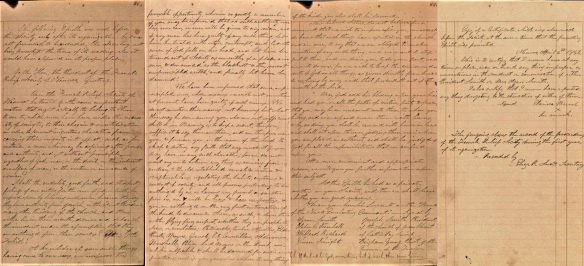 Emma Smith affirmed in 1844 that this Epistle was about polygamy (or Spiritual Wifeism) being promulgated in Nauvoo. It absolutely was contrary to scriptural law, the Articles on Marriage in the Doctrine and Covenents which became church law in 1835.
Emma Smith affirmed in 1844 that this Epistle was about polygamy (or Spiritual Wifeism) being promulgated in Nauvoo. It absolutely was contrary to scriptural law, the Articles on Marriage in the Doctrine and Covenents which became church law in 1835.
In the Epistle above, Joseph Smith specifically tells the Relief Society that they are to shun anyone who teaches anything “contrary to the old established morals & virtues & scriptural laws, regulating the habits, customs & conduct of society.” Notice he also says that we do not want anyone believing anything as coming from us is contrary to the old esablished morals, etc. This would include polygamy, which was not the scriptural law, (the law was Doctrine and Covenants Section 101), and it expressly forbid polygamy:
Inasmuch as this Church of Christ has been reproached with the crime of fornication and polygamy, we declare that we believe that one man should have one wife, and one woman but one husband, except in case of death, when either is at liberty to marry again.[133]
This was unanimously voted on by the Church as binding upon them in 1835. This epistle was in part an answer to charges that the Smiths (along with some of his close associates) Spiritual Wifeism (polygamy). On February 7, 1844 a poem called “BUCKEYE’S LAMENTATIONS for the Want of More Wives” was published in the Warsaw Signal:
Buckeye’s Lamentations for the Want of More Wives
1.
I once thought I had knowledge great,
But now I find ’tis small;
I once thought I’d Religion, too,
But I find I’ve none at all.
For I have got but One lone wife,
And can obtain no more;
And the doctrine is, I can’t be saved,
Unless I’ve half a score!2.
The NARROW GATE that Peter kept,
In ages long ago,
Is locked and barred since he gave up
The keys to BEARDLESS Joe.
And Joe proclaims it is too small,
And causes great delay,
And that he has permission got
To open the BROAD WAY.3.
The narrow gate did well enough
When Peter, James, and John,
Did lead the saints on Zion-ward,
In SINGLE FILE along:
When bachelors, like good old Paul,
Could win the glorious prize,
And maids, without a MARRIAGE-RITE,
Reach “mansions in the skies.”4.
But we have other teaching now,
Of greater glories far;
How a SINGLE GLORY’S nothing more
Than some lone twinkling star.
A TWO-FOLD glory’s like the moon,
That shines so sweet at night,
Reflecting from her gracious lord
Whatever he thinks right.5.
A TENFOLD glory—that’s the prize!
Without it you’re undone!
But with it you will shine as bright
As the bright shining sun.
There you may reign like mighty Gods,
Creating worlds so fair;—
At least a WORLD for every WIFE
That you take with you there.6.
The man that has got ten fair wives,
Ten worlds he may create;
And he that has got less than this,
Will find a bitter fate.
The one or two that he may have,
He’d be deprived of then;
And they’ll be given as TALENTS were
To him who has got TEN.7.
And ’tis so here, in this sad life–
Such ills you must endure–
Some priest or king,* may claim your wife
Because that you are poor.
A REVELATION he may get—
Refuse it if you dare!
And you’ll be damned perpetually
By our good Lord the Mayor!8.
But if that you yield willingly,
Your daughters and your wives,
In spiritual marriage to our Pope,
He’ll bless you all your lives;
He’ll seal you up, be damned you can’t,
No matter what you do—
If that you only stick to him,
He swears HE’LL take you through.9.
He’ll lead you on through the broad gate,
Which he has opened wide—
In SOLID COLUMNS you shall march,
And enter side by side.
And no delay you’ll meet with there,
But “forward march” you shall:—
For he’s not only our LORD Mayor
But Lord Lieutenant Gene-RAL.10.
This is the secret doctrine taught
By Joe and the red rams*—
Although in public they deny—
But then ’tis all a sham.
They fear the indignation just,
Of those who have come here,
With hands that’s clean and honest hearts,
To serve the Lord in fear.11.
Thus, all the TWELVE do slyly teach,
And slyly practice, too;
And even the SAGE PATRIARCH,
Wont have untied his shoe;
For sure, ’twould be quite impolite,
If not a great disgrace,
To have a WIDOW sister fair
Spit in a Prophet’s face!12
But Joe at snaring beats them all,
And at the rest does laugh;
For widows poor, and orphan girls,
He can ensnare with chaff,
He sets his snares around for all,—
And very seldom fails
To catch some thoughtless PARTRIDGES,
SNOW-birds or KNIGHT-ingales!12. [sic]
But there are hundred other birds
He never can make sing;
Who wont be driven nor draged to hell,
By prophet, priest nor king.
Whose sires have bled in days gone by,
For their dear country’s cause;
And who will still maintains its rights,
Its liberty and laws!—————————–
*B.[righam] Y.[oung] & O.[rson] H.[yde][134]
Gary James Bergera writes,
By 1844, Bennett’s own extramarital escapades circa 1841-42 had become common knowledge. For Buckeye, Smith’s assertion that he had been protecting Nancy [Rigdon] was a coup de grâce which “burning tears from me have wrung” (86). Still, Buckeye forbore, and only after subsequent slanders did he, like the Scottish patriots, dare to break the “tyrant’s yoke.”
In this second poem, Buckeye shows his hand most clearly to be Nancy Rigdon’s suitor, Francis Higbee. In addition to calling himself Buckeye, signaling his status as Ohio-born, he scatters throughout his verses the following hints regarding his identity:
● He is a “child” living in Nauvoo, who was both a friend and follower of Smith until Smith slandered him;’
● He is familiar with Smith’s teachings on plural marriage and knows some of those who took other wives, including Hyrum Smith, Brigham Young, Orson Hyde, and others of the Quorum of Twelve Apostles; he also knows that Joseph Smith married widows and orphans and the identities of four wives; he knows that some women rejected Smith’s proposals, including women whose fathers are veterans;
● He is well acquainted with Nancy Rigdon. He knows that Smith proposed to her and what arguments Smith used to persuade her; he knows that Nancy rejected the prophet, that Smith and others attempted to discredit her, and that Smith admitted his guilt but explained he had been preparing her for seduction by others;
● He knows about being saved in mortality as a king and priest or queen and priestess.
Of these clues, Francis Higbee seems to satisfy the greatest number. Born in 1820 in Tate, Ohio, to Elias Higbee and Sarah Elizabeth Ward (m. 1818), Francis’s family joined the Mormon Church in Ohio in early 1832. Like other new Latter-day Saints, the Higbees moved to Jackson County, Missouri, the following year but left in 1835 to settle in Kirtland, Ohio, another Mormon stronghold. In 1836 they relocated to Missouri, left again, and by early 1839 had migrated to Illinois and helped establish Nauvoo. Like others, it may have taken the Higbees years to recover from the horrors associated with their experiences in Missouri. Francis’s father, Elias, was a county judge in Missouri, a leading officer in the Church’s Missouri quasi-militia sometimes called the Danites, and accompanied Joseph Smith to Washington, D.C., to plead the Mormons’ case for redress in 1839-40. Elias was Church Recorder from 1838 until June 1843 when he died from cholera. His passing devastated his forty-two-year-old wife and seven or so children, ranging in age from four to twenty-three. Smith had scolded Elias the previous year for not being “as diligent as you ought to have been, … [to] make your children industrious,” but now at his funeral said that in the resurrection Elias would “come forth and strike hands with the faithful, and share the glory of the kingdom of God for ever and ever.”
In 1841, twenty-one-year-old Francis was elected a colonel (“a certain chief”) in the Nauvoo Legion, a county-wide militia, with Smith and John Bennett as his superior officers. About this time, Francis became serious about Nancy Rigdon, whom he had met in Missouri. He apparently began seeing her in early 1842. Nancy had been born in Pennsylvania, but Francis seems to have thought she was from Ohio, probably because her parents had married there in 1820 and Ohio was where several of her siblings were born.
At about the same time as Joseph Smith’s proposal to Nancy in April 1842, allegations erupted that Bennett and others had defiled several young women and said that Smith had sanctioned such behavior. By this time, Smith had been sealed to at least eight women, [all other men’s wives] and for nearly ten months, from September 1840 to July 1841, Bennett had lodged with him and was evidently privy to Smith’s first plural marriage on April 5, 1841. Bennett seems to have felt authorized to initiate others into his version of plural marriage. Smith worried that Bennett was exposing the Church to criticism and decided by mid-May 1842 to rid himself of his counselor. Bennett apparently confessed his guilt prior to resigning the mayorship of Nauvoo and membership in the Church, then left town in June and was succeeded as mayor by Smith. Prior to his departure, Bennett announced under pressure that he had never known Smith “to countenance any improper conduct whatever either in public or private; and that [Smith] never did teach to me in private that an illegal, illicit intercourse with females, was under any circumstance justifiable, and that I never knew him to so teach others.” When Smith became connected to women, it was through a marriage sealing ceremony performed by an authorized priesthood holder, whereas Bennett believed that a marriage ceremony was unnecessary.[135]
What needs to be brought up here is what a smoking gun this poem is for Spiritual Wifeism (or Plurality of Wives), being a requirement for exaltation (godhood). Notice that Higbee is well aware of the teaching that Joseph was giving to only a select few at that time, about how if one has ten “talents” [wives] they will be exalted, [and get to create and populate many worlds] while those who have only one wife will have that wife given to someone else and they will be single through all eternity. This echos the July “revelation” and the rest of Smith’s teachings which we have covered in this Essay.
On March 16 1844, after having the Relief Society adopt an epistle written by W. Phelps, called “A Voice of Innocence from Nauvoo”, Emma read the 1842 epistle by Joseph to the Society about rejecting the teachings of anyone that taught anything contrary to the established scriptural laws even if it came from a prophet (the Epistle quoted above). The minutes from the March 16, 1844 Relief Society meeting read:
Mrs Prest— then arose and adress’d the Meeting upon the Nec[e]ssity of being united amoung ourselves and Strenthing [strengthening] each others hands in ordor that we may be able to do much good amoung the poor— [blank] again read the Epistle in Defence of the virtues Female part of the community of Nauvoo exhorted them to cleanse thier hearts and Ears and said the time had come when we must through throw the Mantle of Charity round to shield those who will repent and do so no more Spoke of J. C. Bennets [John C. Bennett’s] Spiritual Wife system, theot some taught it as the Doctrene of B Joseph— She advised all to abide the Book of Mormon— Dr Coven’ts [Doctrine and Covenants] &c then read that Epistle of Presedent J. Smiths; rewritten in this Book of Record— Meeting then closed to reopen— 12 OClock—
[1 line blank]
One OClock Meeting calld to order Pres Emma Smith again adressed. the Society Read Boath the former Epistles;— Desired none shluld [should] lift their hand or voice; to adopt the princples unless they where willing to maintain their integrity through time & Eternity Said thease contain the princples, the Society started upon; but was sorry to have to say [p. 125] all had not adhere’d to them—again exhorted— to follow the teachings of Presedet J Smith— from the stand— said their could not not be stronnger Language used than that just read— and that was these are
words of B. Joseph her Husband— &c Said she wanted to see a reformation in boath men & woman— also exhorted— to look affter the poor— also to examin the conduct of their Leaders of this Society— that you may sit in judgement on their heads— and said if thier ever was any authourity on the Earth she had it— and had yet— Prest. E. S. closed her remarks by say[i]ng she should like to have all the Society present to geather— she said it was her intention to present the Officers of the Society for fellowship— when a place can be obtaind that all can be present— [blank] Meeting ajou [adjourned] until a suitable place can be obtaind—H[annah] M. Ells Secy[136]
These minutes are remarkable, for Emma explicitly mentions what Smith taught (on the stand) was to be adhered to, implying that the members of the society only follow Joseph’s public teachings. We know that Emma knew something about her husband’s private practice of spiritual wifeism. (How much she knew at this time is unclear). She also claimed that all had not adhered to the established law. (monogamy)
John C. Bennett had left Nauvoo almost two years previous to this address! Who was left in Nauvoo that was teaching something like Bennett’s “spiritual wife system”? The only one teaching spiritual wifeism was her husband Joseph and those he taught it to and Emma knew all about it by this time and was adamantly opposed to it. Yet, she was still trying to deflect it from Joseph in public by bringing up John C. Bennett.
Who were the accusations being made in Nauvoo leveled at? Joseph and Hyrum Smith and those involved in their spiritual wifeism. There was no one else teaching the doctrine of polygamy in Nauvoo. All of Smith’s supposed “enemies” were opposed to it, as were those like his own wife, Emma Hale Smith.
Here is the entire text of A Voice of Innocence in Nauvoo, as published in the Nauvoo Neighbor on March 20, 1844:
The Voice of Innocence from Nauvoo
The corruption of wickedness which manifested itself in such horrible deformity on the trial of Orsemus F. Bostwick last week, for slandering President Hyrum Smith[137] and the widows of the city of Nauvoo, has awakened all the kindly feelings of female benevolence, compassion and pity, for the softer sex to spread forth the mantle of charity to shield the characters of the virtuous mothers, wives, and daughters of Nauvoo, from the blasting breath and poisonous touch of debauchess, vagabonds, and rakes, who have jammed themselves into our city to offer strange fire at the shrine of infamy, disgrace and degradation; as they and their kindred spirits have done in all the great cities throughout the world, corrupting their ways on the earth and bringing woman, poor defenseless woman, to wretchedness and ruin.
As such ignoble blood now begins to stain the peaceable habiting of the saints, and taint the free air of the only city in the world that pretends to work righteousness in union, as the sine quo non, for happiness, joy, and salvation: and as such ungodly wretches, burning or smarting with the sting of their own shame, have doubtless, transported with them, some of the miserable dupes of their licentiousness, for the purpose of defiling the fame of this goodly city: mildewing the honesty of our mothers; blasting the chastity of widows and wives, and corrupting the virtue of our unsuspecting daughters, it becomes us, in defense of our rights, for the glory of our fathers; for the honor of our mothers; for the happiness of our husbands; and for the welfare of our dear children, to rebuke such an outrage upon the chastity of society: to thwart such a death blow at the hallowed marriage covenant: and to ward off such poisoned daggers from the hearts of our innocent daughters, for the honor of Nauvoo: and write with indellible ink, upon every such villain: Viture perditoris! Beware the wretch! and, so put in every virtuous woman’s hand a rod, to scourge such tormentors of domestic felicity, with vengeance through the world: curse the man that preys upon female virtue! curse the man that slanders a woman: Let the righteous indignation of insulted innocence and virtue, spurn him from society; Let the dignity of the mothers of Israel kick the blood thirsty pimp from the pale of social communion. Let the widows and wives who tread in the footsteps of their queenly mother Eve, drive such fag ends of creation, as was Cain, to the land of Nod, and let the timid daughters of Nauvoo, dread such CANKER WORMS more than the pestilence that walketh in darkness, and shun them as the serpent on the land and shark in the sea. My God! my God! is there not female virtue and valor enough in this city to let such mean men die of the rot: –that the sexton may carry their putrid bodies beyond the limits of the city for food, for vultures, eagles and wolves. Refuse them female courtesy: deny them the pleasure of family correspondence and family intercourse: curse the woman that speaks to such rotten flesh, if she knows who they are: curse the man that will harbor them; and curse the lawyer that will stoop from the dignity of his profession, to plead for them: The apologer is as mean as the murderer!
Female virtue is a pearl of great price, and should glitter in the abodes of men, as in the mansions of bliss, for the glory and honor of him, whose image she bears and whose help meet she is, and every attempt of man to seduce that virtue, is, next to murder, a robbery that cannot be restored.
If woman swerves from the rules of righteousness,
‘Ruin ensues, reproach and shame;
And one false step bedims her fame.
In vain the loss she may deplore,
In vain review her life before’
With tears she must in anguish be
Till God says, ‘set the captive free.’
Many of the distinguished females of Nauvoo, have waded to their present habitations through persecution, sorrow, and death, robed and insulted and bereaved of husbands and children by the combined powers, of priests and spiritual wickedness in high places, but none of these piercing clamities of man touched the heart of woman with such severe poignancy, as the envenomed slander of O.F. Bostwick, that he could take a half bushel of meal, obtain his vile purpose, and get what accommodation he wanted with almost any woman in the city.’
Wo to the wretch that can thus follow the blood stained mobers of Missouri, in their hellish career, and deal his slander about the streets of Nauvoo, as he may imagine with impunity! Wo to the man or lawyer, that filthifies himself by advocating such rotten hearted raven’s rights, or recommends him to the smypathies of any being but satan.
Has any man a mother in this city? honor says, clear such rubbish from her door. Has any man a wife? benevolence whispers, trap such beasts of the field that they may not worry the flock, nor kill the lambs. Has any man a widowed mother? humanity seems to caution him—thy mother is in danger, protect her, from the stench of such carrion! Has any man, daughters? the voice of reason compels him to exclaim: There is a wolf in the path, beware! Has any man, sisters? the blood of his kindred says, evil be to him that evil thinks: and let the whole virtuous female population of the city, with one voice, declare that the seducer of female chastity, the slanderer of female character, or the defamer of the character of the heads of the church, or the canker worms of our husband’s peace: the prostitute, or their pimps, whether in the character of elite, lawyer, doctor, or cicisbeo, shall have no place in our houses, in our affections, or in our society.
Wherefore, Resolved unanimous, That Joseph Smith, the Mayor of the city, be tendered our thanks for the able and manly manner in which he defended injured innocence in the late trial of O.F. Bostwick for slandering President Hyrum Smith, and ‘almost all the women of the city,’
Resolved unanimously, That we view with unqualified disapprobation and scorn the conduct of any man or woman, whether in word or deed, that reflects dishonor upon the poor persecuted mothers, widows, wives and daughters of the saints of Nauvoo: they have borne aspersions, slander and hardships enough: forbearance has ceased to be a virtue, and retaliation, like the ‘dagger or the bowl’ ought to close the lips of such cowardly assassins.
Resolved unanimously, That while we render credence to the doctrines of Paul, that neither the man is without the woman; neither is the woman without the man in the Lord, yet we raise our voices and hands against John C. Bennett’s ‘spiritual wife system,’ as a scheme of profligates to seduce women; and they that harp upon it, wish to make it popular for the convenience of their own cupidity; wherefore, while the marriage bed, undefiled in honorable, let polygamy, bigamy, fornication, adultery, and prostitution, be frowned out of the hearts of honest men to drop in the gulf of fallen nature, ‘where the worm dieth not and the fire is not quenched!’ and let all the saints say, Amen!
Emma Smith, Prest.
H.M. Ells, Sec. pro tem.[138]
Who is the “wolf” here, Orsimus F. Bostwick, who accused Hyrum Smith of Spiritual Wifeism; or Hyrum Smith who actually was practicing it and denying that he and his brother were doing so? (See note #112) Bostwick was charged with slander by the Smith’s, found guilty and fined $50 in a Nauvoo Court. Bostwick hired a lawyer, (Francis Higbee) and they took his complaint to Carthage in April. Unfortunately Joseph and Hyrum Smith were murdered before this could come to trial.[139]
Both Joseph and Hyrum continued to deny the charges of Spiritual Wifeism and blame it on the absent John C. Bennett, when it was Joseph and his “inner circle” that were practicing Spiritual Wifeism, and those like his brother William Smith that were offering food for sexual favors directly as a result of Joseph’s teachings. William continued to abuse women, and Joseph continued to cover up his involvement in his Spiritual Wifeism. Above, Emma Smith directly ties the 1842 Epistle to the practice of polygamy, bigamy, etc., both of which Joseph and his brother William were guilty of. Under the 1833 revised laws of the State of Illinois,
Sec 121. Bigamy consists in the having of two wives or two husbands at one and the same time, knowing that the former husband or wife is still alive.[140]
This plainly applies to both Joseph, Hyrum and William Smith. Two “wives” or two “husbands” at the same time. Joseph indeed had two “wives” at the same time. He committed bigamy by Illinois law. The Law then describes the penalty:
If any person or persons within this State, being married, or who shall hereafter marry, do at any time marry any person or persons, the former husband or wife being alive, the person so offending shall, on conviction thereof, be punished by a fine, not exceeding one thousand dollars, and imprisoned in the penitentiary, not exceeding two years.
It shall not be necessary to prove either of the said marriages by the register or certificate threreof, or other record evidence; but the same may be proved by such evidence as is admissible to prove a marriage in other cases. …[141]
The “other cases” are described here:
…and when such second marriage shall have taken place without this state, cohabitation in this state after such second marriage shall be deemed the commission of the crime of bigamy, and the trial in such case may take place in the county where such cohabitation shall have occurred.[142] ibid, pp.198-99.
In an effort to deflect this, Mormon apologists will quote an earlier version of the law, from 1827 that does not deal with Bigamy, only adultery:
Any man and woman, who shall live together in an open state of adultery or fornication, or adultery and fornication, (which shall be sufficiently established by circumstances, which raise the presumption of cohabitation and unlawful intimacy;) every such man and woman shall be indicted severally.[143]
Their logic is that the language requires an “open state,” which they claim wouldn’t apply to any of Joseph’s plural marriages. But the statute also speaks of the “presumption of cohabitation,” which they curiously don’t mention.[144]
But really, all this is just a diversion. To claim that anyone could “know” if Smith would have been convicted or not after his death is moot. He was breaking the laws of the land, and he did commit bigamy and adultery. We know this. It is obvious from the historical evidence. Having more than one living wife was also described as breaking the laws of the land and the church by the Mormons themselves later that year (November 1844).[145] Another silly argument used by Mormon apologists is that the case would hinge on the meaning of “marry.” We are not making this up![146]
Again, in the earlier version of the law, Illinois state law required: “within 30 days after the ceremony, the officiator is obligated to create “a certificate of the same” and to deliver it “to the clerk of the commissioners’ court, of the county in which such marriage was solemnized.” The certificate thereafter served as an “evidence of the marriage of the parties.” None of the Nauvoo marriages fulfilled this requirement. But that is not what the revised law of 1833 states. It states that it would not be necessary to prove either of the said marriages by the register or certificate thereof, or other record evidence.[147]
Lorenzo Snow admits that sealings were the same as a marriage, and a ceremony was performed. This constitutes a marriage by Illinois law and therefore Joseph was guilty of adultery and bigamy, whether it could be proven or not makes no difference at all. If there was credible evidence that Smith had committed murder but had covered it up and it did not come out until after he died, would apologists argue that it didn’t matter because he may have somehow been found innocent? Such logic is ridiculous.
Snow’s testimony (and tortured logic) continues:
285. Q. Would it [the polygamy revelation] be a part of the church laws until it had been accepted by the church? A. That would depend on the circumstances.
286. Q. That would depend on the circumstances, you say? A. Yes sir.
287. Q. Well I would like you to explain what you mean by that answer? A. I mean just what I said.
288. Q. Well mention the circumstances, or the circumstance where a revelation would become a part of the church law, without acceptance on the part of the church? A. Well, take myself for example, Joseph might give a revelation on certain important matters, and I not knowing that revelation, or that he had given it, it would not be binding on me even if it had been accepted as you put it by the church; but if he gave a revelation and I knew that he gave it, it would be binding on me even before it was accepted by the church, that is the way I feel about it.
289. Q. Well now if he should have a revelation and it should not be presented to the church, would it be binding on the church, that is the question, not what you consider or feel yourself, but would it be binding upon the church? A. Well it would not be binding upon the church, for the church as a church would not know it if it was not presented formally to the church as a church, but it would be binding upon such as knew of it. Now if you will allow me to explain I would like to do so. If that revelation as presented to me, and there is a half a dozen men and women and it is presented to them, it would be a law to them, and be binding upon them, and any other part of the church that had knowledge, distinct and definite knowledge of it, but I do not think it would be binding upon any other part of the church other than that which had knowledge of its existence. Do you understand that?[148]
But fellow apologist Michael R. Ash, writing for FAIRMORMON contradicts Snow:
The Prophet can add to the scriptures, but such new additions are presented by the First Presidency to the body of the Church and are accepted by common consent (by sustaining vote) as binding doctrine of the Church (See D&C 26:2; 107:27-31). Until such doctrines or opinions are sustained by vote in conference, however, they are “neither binding nor the official doctrine of the Church.[149]
Lorenzo Snow was wrong and he knew it. It is amazing how many of these stalwart “apostles” and “prophets” squirmed and hedged under Kelley’s questioning because they knew that what Joseph Smith did was contradictory to the very laws he himself set up in the first place.
Even FAIRMORMON knows that no one was obligated to follow any revelation given by Joseph until it had been sustained as such by a vote in conference; something that Joseph never did with the polygamy revelation, and which Lorenzo Snow affirmed in his testimony. And Joseph had the obligation to present any such “revelation” to the Church, something he did not do. Instead he lied, and broke his “Oath and Covenant of the Priesthood.” The testimony by Snow continued:
290. Q. Well I think I do [understand] clearly too? A. Well I am glad to hear it.
291. Q. Well suppose these half dozen men and women should receive a revelation under the circumstances you have indicated, and it should be contrary to the laws of the church as accepted by the church, what would be the duty of this half dozen men and women in that case? A. Well it would be rather unpleasant to them I think.
292. Q. It would place them in an unpleasant position you say? A. In my opinion it would.
293. Q. Then a revelation must be received by the church before it is the law of the church? A. Not always.
294. Q. do you say that is not always the case? A. Yes sir.
295. Q. Mention an instance where it would not be? A. Well this instance we are talking about now, for there were several in Nauvoo that received that revelation and practiced it before it was ever received at all by the Church.
296. Q. Did not that make them violators of the law of the church? A. No sir.
297. Q. Why? A. Because Joseph had a perfect authority to give revelations and the people were under obligation to receive them.
298. Q. You state that as a fact? A. I state that as my understanding of Joseph’s privilege and the people’s duty.[150]
Notice that Snow here, parses his words carefully and states they are “under obligation to receive them”. Sure, they were, but that did not mean that they were binding doctrine to the Church, and in fact they should never have been presented to any individual before they were presented to the hierarchy of the Church and then the general membership. And here it comes out again, “Joseph’s privilege”, which Snow felt took precedence over church law. Yet, Wilford Woodruff declared in 1892, while giving his legal deposition before the Western District of the Missouri U.S. Circuit Court (Temple Lot):
The church has a right to reject or approve of revelations and any man independent of the action of the church has a right to accept it or reject it as he sees fit and the church has a right to say whether they will accept it or reject it as a revelation, and before a revelation can be accepted by the church, as a law, it must in some form or other be presented to the church and accepted by the church, and that has been true since the time I first became connected with the church.[151]
The actual testimony of Wilford Woodruff (not the edit quoted by Van Wagoner above) is more drawn out, but it conveys the same sentiments as the above. When one reads this testimony it is not too hard to understand why the RLDS Church edited it. What they should have done, is explained what they were doing so that the reader could understand. The back and forth between E. L. Kelley and Woodruff is fascinating though:
245. Q. Well you haven’t answered it yet? The question is this,–Has it not been the practice of the church from the time of its organization down to the present time, and practiced by you since you have been president of this church here, to present everything concerning the doctrine of the church to the church for its adoption, before the church would be bound by it? A. Well of course. That is a principle of the church.
246. Q. Well sir, I thought so, and that is the principle you went on when you presented the manifesto here for adoption? A. Yes sir, or course.
247. Q. That is the fact is it not? A. Certainly.[152]
We see that when Woodruff is asked about this in reference to himself and the Manifesto, that yes, it is a church policy, and he has no qualms about saying so. This agrees with the RLDS edit. But when the questions shift to how law or “revelation” becomes binding on the Church, Woodruff again has to be cornered into answering the question:
248 Q. And that is the principle on or under which the church was governed prior to 1846—that everything was presented in some form or other for adoption? A. Yes sir.
249. Q. Presented to the church for adoption? A. Yes sir.
250. Q. And if not presented to the church for adoption and adopted by the church, the church would not be bound by it, as a church? A. What is that?
251. Q. I say if it is not presented to the church and adopted by the church, the church would not be bound by it as a church? Is that not true? A. Well of course these things depend on circumstances, as I said before. As I said before there has been counsel given and business done, and revelations that have been received, and as a matter of course all the works had to be presented to the church at times.
252. Q. Is counsel the same as Church Law? A. No sir.
253. Q. Well in my questions I am trying to confine you to the church law and nothing else? A. Yes sir, I understand.[153]
This exchange is interesting, for as soon as E. L. Kelley asks Woodruff about church law being adopted by common consent, Woodruff begins to hedge because he knows where it is going. But then he says that he understands the question. His answers though, are evasive:
254. Q. Well from your answers I would infer that you do not understand. Well now has it not been the practice of the church, universally, before anything was or became church law, that the church could be bound as a church by, that is it must be presented to the church for adoption—to the membership of the church for their acceptance or adoption, in some form or other, and at some time. A. All our business—all our business that comes before us must come up before our conferences that are held twice a year. All the business of the church we present to the church at these times, but of course we transact business between these times.[154]
Again, Woodruff is not speaking of binding revelations and is desperate to find something that will make it seem as if what Joseph did was legitimate. (Like a “revelation” about having Spiritual Wives is simply “business”) Kelley catches him on this. Woodruff claims that he understood, but he still did not answer the question.
255. Q. You don’t make church law or doctrine between these times do you? A. No sir, I think not.
256. Q. You don’t make church law or doctrine between these dates do you. A. No sir. I think not.
257. Q. Well do you or do you not? A. No sir.
258. Q. Now why wouldn’t you answer my question before this Mr. Woodruff? A. I did answer it as soon as I understood it.
259. Q. Is it not true that before anything can be binding upon the church as church law, it must first be presented to the church for adoption, and has that not been invaribly the rule since the organization of the church? Now please answer that question squarely and plainly. A. Well as I said to you in the first place, a great many things were done years before I was in the church, and all those early revelations were accepted by the people as given before they were ever presented to the church, but as to the matter of dividing these things up perhaps I am not qualified to say. You see in the earliest days I was not a member of the church, and I cannot say just as to how things were done then, but that is my understanding.
260 Q. I don’t care anything about the division. What I am getting at is the fact, and is it not true that before anything can be accepted as church law, it must first be presented to the church, and be accepted by the church? A. The church has accepted at all our conferences everything that has been brought before them—it has accepted all that has been brought before it.[155]
Now Woodruff claims that perhaps he’s “not qualified” to answer the question! It is obvious that Woodruff does not want to answer these questions under oath, and really, these men were not accustomed to justifying anything they did to anyone. What does it matter if the Church accepts everything? Is it a law or not? We see from FAIRMORMON’s quotes by modern “prophets” that it is a law. And Woodruff joined the Church in 1833 which is only three years after it was organized so his claim that he didn’t know what was going on in the “earliest days” is disingenuous.
Of course, they were not trying to justify Smith’s breaking of church law under oath, it was easier to deflect and be evasive. We must remember here, that Smith was telling those he taught his Spiritual Wifeism to that they would be damned if they did not embrace it. That if they were not sealed to him (as the head of the dispensation) that they would never get into the Celestial Kingdom. What better way to get something passed then to practice it underground for years, get the hierarchy converted, while casting out those that oppose it, and then take it to the body of the Church. What could they then do? The practice was entrenched in the Church. Who was going to gainsay Brigham Young and those that were left of the Twelve in Utah Territory (Deseret)? The pressure to acquiesce was tremendous by then (1852). That is also why they only added members to the Twelve that believed in polygamy. Kelly continues to hammer at Woodruff:
261 Q. And if the church refused to accept what was brought before them—say a revelation, then it would not be binding upon the church as church law? A. Well if the whole church rejected it it wouldn’t.
262 Q. Well if the church to which it was presented at a general conference, that embraced a large part of the church, or a majority of the church, should reject it, in that case it would not be binding upon the church as a law of the church? is that not the fact Mr. Woodruff? A. No of course it would not. If it was rejected it would not be.[156]
This is the whole reason for common consent. To stop men from promoting spurious “revelations” among the members that violated existing church law. This argument is easy to understand yet Woodruff evades answering until he is cornered into it:
263. Q. Then the church has the right to reject or approve a revelation? That is the fact is it not? A. Yes sir, any man independent of the action of the church has the right to reject or accept it as he sees fit. That is a right that any man has.[157]
But this still does not answer or even address the question. Did Smith have the right to try and bind individual church members to laws that were not presented to the church first? The answer (as we know from what is taught in the Church today) is no, he did not. But Woodruff won’t admit this. None of these men will. They will admit it generally, but when applied to Smith, they exclude him because they considered him above the law, (which Smith claimed he was) but which no man was according to what Smith had previously revealed. Finally, Woodruff answers the question but only in general terms:
264. Q. And a church has a right to say whether they will or will not be bound by it—that whether they will accept or reject a revelation? A. Yes sir.
265. Q. Can anybody saddle a revelation on the church without its consent? A. No sir.[158]
If they use the existing Church Law of common consent. But this (saddling the church with a “revelation”) is exactly what Joseph Smith and Brigham Young did with polygamy (until 1852) by violating this law! But Kelly is not ready to let it go, he wants more and he gets it:
266. Q. Then before a revelation can be accepted by the church as a law it must be in some form or other be presented to the church, and accepted by the church—adopted by the church, before it becomes a law binding on the church? Is that not true Mr. Woodruff? A. Yes sir—I guess so.
267. Q. That has been true ever since the time you became connected with the church, so far as you are acquainted? A. Yes sir, so long as I have been with the church, [1833] that is the fact.[159]
Finally! So, does this accurately reflect Woodruff’s “testimony” as edited by the RLDS Transcript? That reads:
The church has a right to reject or approve of revelations and any man independent of the action of the church has a right to accept it or reject it as he sees fit and the church has a right to say whether they will accept it or reject it as a revelation, and before a revelation can be accepted by the church, as a law, it must in some form or other be presented to the church and accepted by the church, and that has been true since the time I first became connected with the church.[160]
We see that it is, though it had to be almost badgered out of him as Woodruff grudgingly (and we imagine rather petulantly) answers, “I guess so.”
The Problem isn’t Jeremy Runnells’ Research
So, is Jeremy Runnells wrong about what he said in relation to Lorenzo Snow? No, though Snow did not use those exact words. Jeremy wrote:
According to Lorenzo Snow, Joseph had zero business marrying his plural wives before 1843 and he should have been cut off from the Church as it was adultery under the laws of the Church and under the laws of the State. Joseph’s marriage to Fanny Alger in 1833 was illegal under both the laws of the land and under any theory of divine authority; it was adultery.[161]
This made Hales furious, and he lashed out at Jeremy in a totally irrational way. It started his whole crusade against Jeremy and the CES Letter that still goes on to this day). Did Snow believe this about Joseph personally? Of course not. But did he admit this in his testimony? Yes, even though he tried very hard to exempt Smith from his blanket statement that anyone who did so was violating church law and committing adultery. This is an important distinction that Brian Hales does not address because he is so fixated on trying to make Jeremy into a liar. But Hales just kept getting more and more frustrated because he knew that Jeremy was not lying and never did lie about any of it.
The only small problem that we see with Jeremy’s quotation of Lorenzo Snow is that he included the Temple Lot Testimony by the RLDS Editors about the law of the land. This is a minor mistake that Brian Hales tries to blow up into some kind of major gaffe, (something that Hales actually makes many, many times as we have shown) and which FAIRMORMON itself made on its now reworked wiki page where Jeremy learned about the quote in the first place!
We see that Wilford Woodruff’s testimony also affirms that Smith would have violated the law of the Church, even though Woodruff himself won’t clearly admit under oath.
But Woodruff’s testimony above still does not explain how Smith was justified in circumventing the law in regards to his Spiritual Wifeism. It was for exactly this reason, the fear it would be rejected by the Church—that it would not be accepted by them—that it was not submitted to the Church for a vote until 1852 when Brigham Young had the Church isolated in the Utah Territory (Deseret) under his theocratic (dictatorial) rule.
As we turn to Joseph Smith and the law, we see more problems with Woodruff admitting that Joseph Smith was not bound by his own laws. This is from the RLDS edit:
…I cannot give you a revelation permitting or authorizing that practice [washings and anointings]. I just want you to understand one thing, that Joseph Smith was the prophet, seer, and revelator, and whatever he said or counseled in these things was accepted. He was not greater than the law that God had revealed through him, but he was the medium through which the law was revealed.
Q. Well, after the law had been revealed, was he not subject then to the law the same as any other person?
A. I do not understand what you mean. [Really?]
Q. I mean that after the law had been revealed, was he not subject then to the law the same as any other person?
A. He was the law himself, but I suppose he was subject to the law. After a law had been received from God and communicated to the church in that manner through the medium of Joseph Smith as the prophet, seer, and revelator, I do not know that the prophet was higher than that law, but I do say that he was given the control of those things. After the law had been revealed from the Lord, I do not think that it was possible for the Lord to change that law by revealing something that was contrary to the law previously revealed through the prophet. I do not think that he would do that.[162]
“I suppose he was subject to the law?” Here is the admission that Kelley was looking for, that Snow never makes. This makes little sense. Joseph was in control of these things, but was not to be bound by them until they were changed — by the very law that God gave him in previous “revelations” to operate by? Woodruff “did not think” Joseph would do that, but he knew he did. (Anyone with common sense can see that)
And Woodruff did it himself when he revoked celestial marriage (plurality of wives) in 1890. This was contrary to what “the Lord” had revealed in 1843 and what Smith, Young & Taylor (and even Woodruff himself) had affirmed over and over again until Woodruff saw that he would have to give up all the Church property if they were going to continue to obey the Lord and the law he had previously revealed.
The same testimony of Woodruff from the Temple Lot Transcript as found in the LDS Church History Library reads:
386. Q. Well will you give me the revelation permitting or authorizing that practice? [Washings & Anointings] A. No sir, I couldn’t do it.
387. Q. Can you cite me your authority for that practice? [He can’t and so begins to give his “testimony”] A. I want to understand this one thing—Joseph Smith was a prophet, seer and revelator, and was so acknowledged by the saints, and whatever he said or counseled in these things, or in these matters was accepted.
388. Q. Was he higher than the law? A. Greater than the law that God has revealed through Joseph Smith?
389. Q. Yes sir. A. No sir, but he was the medium through which the law was revealed.
390. Q. How was the prophet to give the word of God? A. How was the prophet to give the word of God. He was the prophet through which the world of God was revealed to all man kind.
391. Q. Well after the law had been revealed to him, them [sic] was he, the prophet, higher and greater than the law so revealed to him? A. I do not understand what you mean.
392. Q. I mean that after the law had been revealed, was he not then subject to the law the same as any other person? A. He was the law giver himself.
393. Q. Well was he not subject to the law he gave himself? A. I suppose he was.
394. Q. You suppose he was—as a matter of fact wasn’t he? A. Yes sir.
395. Q. You do not mean to say that he was the law maker? A. He was the law giver to the church, because he was the prophet, seer and revelator, and all the laws that came to the church came through his mouth, therefore you might call him the law giver—I know I do.
396. Q. That is he received the laws from God and communicated them to you, or rather to the church? A. Yes sir.
397. Q. Now after a law had been received from God and communicated to the church in that manner through the medium of Joseph Smith as the prophet, seer and revelator then do you say that the prophet, seer and revelator was higher than the law—higher than the law he received? In other words could he violate that law unless by direct command of God? [And the common consent of the Church, lest any forget] A. No sir, I do not say that, but I do say that he governed and all these things.
398. Q. After a law had been revealed from the Lord, was it possible in your opinion for the Lord to change that law by revealing something that was contrary to his law previously revealed through the prophet—that is do you think the Lord would reveal a certain and contrary doctrine—would reveal a certain thing to Joseph Smith in 1841, and then reveal a contrary doctrine in 1842? A. No sir I don’t know that I would, but as I say, or have said before with regard to all your questionings on these things—the prophet himself stood at the head, and received counsel from the Lord, and he dictated to the church in regard to these things, and revealed matters and things to the church as he was moved by the power of the Holy Spirit.[163]
Woodruff’s hedging here is astounding, as is his obvious cognitive dissonance. He doesn’t know what it means to be subject to the law the same as any other person? Who is he kidding here? “I suppose he was subject to the law.” If this were true, (that Smith could do as he pleased as the “lawgiver”) then it would be the same as Woodruff telling everyone in the Church that he could break the Word of Wisdom, or practice polygamy (which had been banned by him – oh, that’s right, they did do that and lied about it) because he was “in control of those things”. What happens then to “my house is a house of order” that Brian Hales claims is so essential to this process?[164]
Joseph F. Smith was also questioned under oath about these matters and perjured himself again and again. F. Smith’s arrogance at those hearings is mind boggling for someone who claimed to be a follower of Jesus. As Richard Van Wagoner writes:
President Joseph F. Smith stated similarly in his 1904 testimony before the Senate committee investigating the seating of Reed Smoot: “I will say this, Mr. Chairman, that no revelation given through the head of the church ever becomes binding and authoritative upon the members of the church until it has been presented to the church and accepted by them.” Questioned whether “the church in conference may say to you, Joseph F. Smith, the first president [sic] of the church, ‘We deny that God has told you to tell us this?,'” President Smith replied: “They can say that if they choose…. And it is not binding upon them as members of the church until they accept it” (1907, 1:96). It thus appears that at least two Church presidents have verified the principle of common consent in canonizing revelation into the standard works of LDS scripture. There is no mention, however, of a procedure for decanonizing scriptural items such as the Lectures on Faith.[165]
It is important to note here that F. Smith was so adamant on this point because he had lied about the church continuing to practice plural marriages after 1890 with the permission of Mormon prophets and he was doing damage control. It was not until the private diaries of some of the Mormon “authorities” were published that we could understand the depth of F. Smith’s perjury before the United States Government.
Therefore, according to what we have just read, Joseph Smith, had no right to practice his Spiritual Wifeism before submitting the “revelation” to a vote of the church. That is why he did so in secret and then lied about it when confronted by those who opposed it (for just such reasons). So, who does not understand Mormon doctrine? (The one with the irrational approach to it).
It is therefore disingenuous of Mr. Hales to claim that Jeremy is neither accurate nor credible. Lorenzo Snow is the one that is inaccurate and not credible as is the sycophantic Brian Hales. (Always defend the “prophets”) Let’s return to that testimony and see if anything Snow says contradicts what Jeremy reported in the CES Letter:
299. Q. When Moses went up on the mount to receive the law in the wilderness, was he not commanded to present it to the church for acceptance, before it was binding upon the people?
300. Q. Was not that the case? A. Yes sir.
301. Q. And the people had to answer? A. Answer what?
302. Q. Answer whether they would accept that law or not? A. Well no, I don’t know as they were forced to do that, I don’t know as they had to do that. Were they?
303. Q. Well, I ask you that question? A. Well, I told you I don’t know.
304. Q. You are a preacher in this church here in Utah? A. Yes sir.
305. Q. And an apostle? A. Yes sir.
306. Q. And you don’t know whether it is a fact or is not a fact that the people were commanded to accept the law that Moses got on the mount, before it would be a law unto them? A. No sir, I do not know.
307. Q. You are a preacher and an apostle in this church, and you do know know that? A. No sir, you are a lawyer and yet you don’t know half as much as you ought to know.
308. Q. Well, I admit that. I do not make any pretensions of knowing any more than I do know. A. You know that what we are having here is tit for tat, but if you want to go on I am willing, although I don’t think it is particularly interesting to the folks here.
309. Q, Well, that is all right, I know I am not here for the purpose of interesting them. Did not the people have to answer as to whether they would accept or not, and was that not the rule in the Bible times? A. Well it was supposed they would answer.[166]
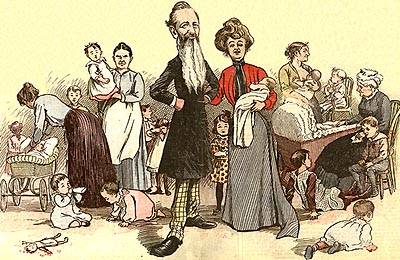 In fact, Mormonism teaches that the reason for the Law of Moses was that the Children of Israel rejected the Higher Law. They would not live it, therefore, they were given a “lower law”, to which they agreed. For example, Apostle Orson F. Whitney taught:
In fact, Mormonism teaches that the reason for the Law of Moses was that the Children of Israel rejected the Higher Law. They would not live it, therefore, they were given a “lower law”, to which they agreed. For example, Apostle Orson F. Whitney taught:
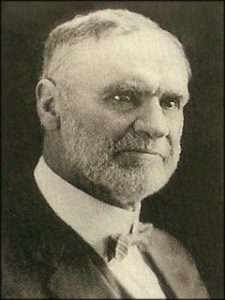 Then Moses had the Gospel, and sought by means of it and the powers of the Holy Priesthood, to bring his people into a condition where they could look, as he had looked, upon the face of God; but they would not have it. That generation would not accept the Gospel, and it was taken away, as it had been taken many times before, and the powers of the Melchisedek priesthood went back into the heavens, and Israel was left with the Aaronic priesthood and the law of carnal commandments, to whip him as a schoolmaster until the days of Christ.[167]
Then Moses had the Gospel, and sought by means of it and the powers of the Holy Priesthood, to bring his people into a condition where they could look, as he had looked, upon the face of God; but they would not have it. That generation would not accept the Gospel, and it was taken away, as it had been taken many times before, and the powers of the Melchisedek priesthood went back into the heavens, and Israel was left with the Aaronic priesthood and the law of carnal commandments, to whip him as a schoolmaster until the days of Christ.[167]
We also have Theodore M. Burton confirming that they chose to refuse the “higher law”:
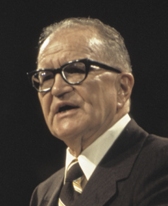 Just as authority in the priesthood had been given to Adam and his sons, the patriarchs; so also were they given the principles of the gospel of Jesus Christ and participated in the blessings and ordinances and covenants that pertain to exaltation in the acceptance of Jesus Christ as Lord and King. Only when the people refused to accept this higher priesthood and higher law at the time of Moses were they given the lesser priesthood and the lesser law which was to be a taskmaster to lead them eventually to accept Jesus Christ and the higher law which he had given to the prophets of old and which he gave again in his earthly ministry.[168]
Just as authority in the priesthood had been given to Adam and his sons, the patriarchs; so also were they given the principles of the gospel of Jesus Christ and participated in the blessings and ordinances and covenants that pertain to exaltation in the acceptance of Jesus Christ as Lord and King. Only when the people refused to accept this higher priesthood and higher law at the time of Moses were they given the lesser priesthood and the lesser law which was to be a taskmaster to lead them eventually to accept Jesus Christ and the higher law which he had given to the prophets of old and which he gave again in his earthly ministry.[168]
B.H. Roberts also gives the correct teaching, that Lorenzo Snow seems to have forgotten:
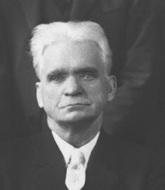 But one will say, “was not this stern old law set aside–this law demanding an eye for an eye, and tooth for tooth; this law that said thou shalt not foreswear they self, but thou shalt preform unto the Lord all thine oaths. Was not all this set aside by the Christ, saying, ‘swear not at all?’ And does not this indicate that God, though having given a commandment, may change it or modify it?” Bless your heart, the Lord, so far as I am concerned, can and will do as He pleases, and I for one, if I know that will, shall do what I can to carry it out; but, mark you, these examples I cite to you are taken at a time when one law was being displaced by another, when the law of Moses had completed its purpose and was put aside for the law of the gospel. I do not think you can find a place in holy writ where the Savior holds that while the law of Moses was yet in force, you could violate it with impunity. He may displace the law of Moses by the law of the gospel, as He did, but you cannot find Him counseling violation of the law of Moses while that law is in force. The Jehovah of the Jews, who gave the law unto Moses, is the Christ of the New Testament, and you could not imagine such an inconsistency as His giving a law and then permitting violations of it; for God, we have seen, does not walk in crooked paths.[169]
But one will say, “was not this stern old law set aside–this law demanding an eye for an eye, and tooth for tooth; this law that said thou shalt not foreswear they self, but thou shalt preform unto the Lord all thine oaths. Was not all this set aside by the Christ, saying, ‘swear not at all?’ And does not this indicate that God, though having given a commandment, may change it or modify it?” Bless your heart, the Lord, so far as I am concerned, can and will do as He pleases, and I for one, if I know that will, shall do what I can to carry it out; but, mark you, these examples I cite to you are taken at a time when one law was being displaced by another, when the law of Moses had completed its purpose and was put aside for the law of the gospel. I do not think you can find a place in holy writ where the Savior holds that while the law of Moses was yet in force, you could violate it with impunity. He may displace the law of Moses by the law of the gospel, as He did, but you cannot find Him counseling violation of the law of Moses while that law is in force. The Jehovah of the Jews, who gave the law unto Moses, is the Christ of the New Testament, and you could not imagine such an inconsistency as His giving a law and then permitting violations of it; for God, we have seen, does not walk in crooked paths.[169]
If this rule applied to the Savior, surely it would apply to Joseph Smith, would it not? These are basic principles that Lorenzo Snow chose not to acknowledge because he understood that Joseph Smith had broken the law and could not reconcile it. God does not walk in crooked paths, claimed Joseph Smith and other Mormon “Authorities”. But Lorenzo Snow doesn’t think so in this deposition, and the two “prophets” that preceded and followed his administration also disagree.
So Joseph Smith could then violate the Marriage Law in the Doctrine and Covenants while it was still in force, according to Snow and Woodruff! Yet according to B.H. Roberts even Jesus did not do what Joseph Smith did, counsel people to violate a law that was going to be (eventually) displaced. But that didn’t happen until 1852.
It seems that these men can pontificate on any subject of the Gospel with relative ease, until it comes to testifying about things in relation to the behavior of Joseph Smith. Then they act like they have forgotten everything they ever knew about the “Gospel” and what is contained in the Bible (that is, their interpretation of it). This irrational approach is fully embraced by Brian Hales. And of course when you quote Mormon “authorities” or the scriptures to apologists like Hales, they object and complain because they have no answers that make any sense. The only reason that these Mormon “authorities” answered these questions is because they were under oath and had to respond.
Lorenzo Snow did give a Conference Address in 1878 and spoke of the “higher law” of “Consecration” and likened it to the Law of Moses:
It is argued by some that when the principle of tithing came in, it superceded the principles of the United Order. The law of Moses was given to be a schoolmaster, to bring the people to a knowledge of the Son of God, and induce them to obey the principles of the fulness of the Gospel. The higher law was given to the children of Israel when they were first delivered from Egyptian bondage, but in consequence of their disobedience, the Gospel in its fulness was withdrawn, and the law of carnal commandments was added. Now, do you imagine that there would have been any wrong if the people wanted to find the principles of the higher law and obey them as near as circumstances would admit? Do you suppose it would have been wrong to search out the fulness of the Gospel while living under the Mosaic law? But, in the Book of Mormon we find this point more fully illustrated. We find that the inhabitants of this continent had a knowledge of the fulness of the everlasting Gospel and were baptized for the remission of sins, many generations before Jesus came into the world. We find that Alma was baptized in the waters of Mormon, and some four hundred and fifty other individuals. Alma, by his energy and perseverance, had discovered the fulness of the Gospel and obtained revelations from the Lord, and the privilege of observing the Gospel in all its fulness and blessings. Do you think the Lord was angry with them? They were under the Mosaic law, and yet considered it a blessing to observe the higher law.[170]
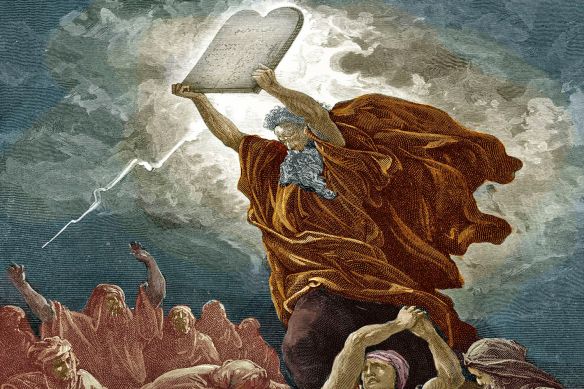 Yet, Moses first gave the Israelites a choice, a choice that Snow here shows that they could have reversed if they chose to do so, just like the Nephites did. They had the power to choose and they chose to reject the higher law. Did God simply force all of the Children of Israel at the point of a sword to live the higher law? No, so why would he do so with Joseph Smith and his Spiritual Wifeism? Yet this is the story that Lorenzo Snow propagates in his testimony. And the “nonplussed” Hales goes along with all of it, no matter how disingenuous it is.
Yet, Moses first gave the Israelites a choice, a choice that Snow here shows that they could have reversed if they chose to do so, just like the Nephites did. They had the power to choose and they chose to reject the higher law. Did God simply force all of the Children of Israel at the point of a sword to live the higher law? No, so why would he do so with Joseph Smith and his Spiritual Wifeism? Yet this is the story that Lorenzo Snow propagates in his testimony. And the “nonplussed” Hales goes along with all of it, no matter how disingenuous it is.
Snow agrees that the Israelites knew about the higher law, (they knew because it was presented to them) but they rejected it, something that seems to have slipped Snow’s mind at the trial, but that he had taught in a General Conference of the Church. And Snow continues to evade and defend Smith’s bad behavior at all costs:
310. Q. Well is it not a fact that it was a rule in the church that if anybody should undertake to follow a principle that had not been accepted, and was not accepted as a principle and true doctrine of the church that they would be violators of the law of the church. A. Yes, sir.
311. Q. That is a fact? A. Yes sir, but there are exceptions to every law you know.
312. Q. Who constituted the church at Nauvoo, if you know? A. Joseph and the people.
313. Q. Joseph and the people constituted the church while at Nauvoo? A. Yes sir.
314. Q. Well what else, I mean at the time that they were at Nauvoo? A. What else beside Joseph and the people that were there?
315. Q. Yes sir? A. Well, that was it.
316. Q. By “the people” you refer to the members of the church through the world, as constituting the church? A. Yes sir.
317. Q. Then the members through the world and Joseph Smith constituted the church? A. Yes sir.
318. Q. Then could Joseph Smith receive a principle without the knowledge or consent of the body of the church, which was the people through the world, and without submitting it to them, —could he receive and practice it, and be in harmony with the law? A. He couldn’t do it in reference to that in any other way. That is the only way he could do it.
319. Q. Could he practice it without a violation of the law of the church? A. It was just this way, and it seems to me to be a plain common sense proposition, that Joseph Smith could not receive a revelation, or principle as you express it, and the people all understand it at the time he received it. That is a self evident proposition that that could not be done.
320. Q. Well are you through? A. Yes sir.
321. Q. Then I wish you would answer my question. Could he receive a revelation and act upon it, that was contrary in its teachings and provisions to the laws of the church to govern the church, without a violation of those laws? A. Yes sir, I see that distinctly and understand it, and I want you to understand it too.
322. Q. Well, just answer my question, you cannot answer it yes or no? A. What is the question?[171]
Notice that he understood perfectly when it was not applied to Joseph Smith. At Rational Faiths, Hales writes that if Jeremy “had actually consulted the depositions, which are available at the Church History Library, he would have learned that later in that same deposition, RLDS attorney Edmund Kelley questioned Snow who directly disagreed with Runnells’ conclusion.”[172] Hales then quotes from the transcript above:
Q. Could he [Joseph Smith] receive a revelation and act upon it, that was contrary in its teachings and provisions to the laws of the church to govern the church, without a violation of those laws?
A. Yes sir, I see that distinctly and understand it and I want you to understand it too.[173]
Unfortunately, anyone reading Hales quote above would not realize that Snow had not really answered the question. Snow tries to dodge the question by claiming that Joseph Smith could not receive any of his “revelations” that “the people all understand”.
Of course E. L. Kelley sees the dodge and asks him if he is through and if he will just answer the question. Snow then (again) doesn’t answer the question. So Hales quote here is useless, unless one actually reads the entire testimony of Lorenzo Snow, which Hales doesn’t provide at his website, and which FAIRMORMON erroneously claimed was not online.
Snow also (if you notice from the portion of the Transcript that posted above) then asks what the question was! So what did Lorenzo Snow want them to “understand”? His own justification as to why Smith alone did not have to follow the law of the Church. But Mr. Kelley does not fall for that trick.
323. Q. Could Joseph Smith receive a revelation and act upon it that was contrary in its teachings and provisions to the laws of the church as accepted by the church at that time, without being at the same time in violation of the laws of the church? A. Why he might do so. Joseph Smith and [sic] did, but I don’t consider he was a violator of any of the laws of the church, for he was the law of the church. I never knew of the church rejecting a revelation he gave to them.
324. Q. You mean that Joseph Smith might and did receive revelations,—what do you mean by that? A. I mean that he might receive revelations and act on them, and did so receive them and act on them, and so did Moses and Christ and other prophets. They all received revelations, and call it presumption or what you choose they assumed the authority given them, and acted on them forthwith. They were not presumptuous enough to question the voice of the Lord when it came to them in the form of a commandment, neither was Joseph.
325. Q. Well no you have not answered my question yet,—I asked you if Joseph Smith received a revelation that was at variance with the laws of the church as accepted by the church,—what would be his position if he acted upon such a revelation without submitting it to the church? A. Joseph might have received a revelation that was apparently perhaps,—perhaps it might apparently be in contradiction, and yet it does not come to my mind now what circumstances might arise. Now I see what you are after, and I wish to explain it so you may understand what I mean, and know all about it. Joseph Smith received a revelation in reference to plural marriage, and the church he thought in his wisdom was not properly prepared to receive that revelation.[174]
The church rejected Smith’s law of consecration “revelation”! That is why Snow was going on in the quote above about higher laws and the Israelites! And the binding Article on Marriage was a total rejection of polygamy! They had rejected it even before Smith had proposed it. That was why he went underground with it. That is the source of all the conflict here. Smith could not change the collective mind of the church and he knew it.
You can see from the testimony above the game that Lorenzo Snow was playing. He claims to want them to “understand” but then Mr. Kelley keeps on asking the same question over and over again, but Snow lies and gives various explanations that have nothing to do with the question he is being asked. He finally states in question 325 that he now sees what Mr. Kelley is after, but still doesn’t answer the question. He claims that Joseph Smith received a “revelation” from God and that the Church “he thought in his wisdom was not properly prepared to receive that revelation.” He also states that “Joseph Smith did” receive “revelations” that were in violation of the laws of the church and acted on them, but that Snow didn’t consider Smith a violator of any of the laws that Snow admits he violated. This is exactly what Hales claims that Snow did not say!
This explanation makes little sense and is simply posturing by Snow because we have Lorenzo Snow telling us something different about understanding the “higher law” at that General Conference of 1879 where he said:
The higher law was given to the children of Israel when they were first delivered from Egyptian bondage, but in consequence of their disobedience, the Gospel in its fulness was withdrawn, and the law of carnal commandments was added. Now, do you imagine that there would have been any wrong if the people wanted to find the principles of the higher law and obey them as near as circumstances would admit? Do you suppose it would have been wrong to search out the fulness of the Gospel while living under the Mosaic law?[175]
God had apparently (according to Snow) determined that the Mormon people were ready to receive the higher marriage law[176] of polygamy (otherwise, why did he give it to Joseph in the first place!) but unlike Moses, Joseph Smith didn’t present the “higher law” to the church. God supposedly knew that the people of Israel were not ready to receive the “higher law” and yet that did not stop Moses from presenting it to them . He did not go around in secret and teach it to a select few and then lie about it to the rest of the Israelites because he was afraid that some were not “prepared” for it.
According to Lorenzo Snow himself, Smith had ample opportunity to “prepare” the people, since he claimed that Joseph Smith knew about this “higher law” long before the “revelation” he wrote in 1843:
I say that he explained to me the principles of plural marriage distinctly and clearly and told me that the Lord had revealed the principle, and had commanded him to enter into that practice, and that he had received a revelation to that effect. He said that he had demurred to doing so as he foresaw the trouble that would ensue, but that an angel of the Lord had appeared before him with a drawn sword commanding him to do so, and he could not go backward.[177]
Snow also states, “That [July 1843] was the first time it was given to the public [the people in Nauvoo], but not the first time it was given to Joseph Smith.”[178]
Notice that Joseph Smith could “distinctly and clearly” explain polygamy to Lorenzo Snow, but that he could not bring it before the Church. How come, if polygamy was so hard to understand, did Lorenzo Snow have no problem understanding the teaching?
This wasn’t about understanding a teaching; it was about those who could accept that Joseph Smith was above the law of the Church, as Lorenzo Snow clearly believed. This was a process that Smith could only undertake in secret and individual by individual because he was taking concubines who were other men’s wives in addition to the “virgins” he was later “sealed” to.
See if you can follow Snow’s tortured logic here. After some diversions about Hyrum Smith and Brigham Young and the succession; and then changes in revelations; they come back to the original question that Snow never answered:
448. Q. Now you were asked on your cross examination, if it was not necessary for a revelation to be presented to the church and be acted on or accepted by the church, before it could become a law to the church. I will ask you to state whether you know that such is the law or was the law at that time? A. It never was the law. As I stated a while ago I can explain that if I am given an opportunity. Well I think I explained that pretty clearly why it could not be.
449. Q. Mr. Snow I will ask you to state to the reporter, the fact as to whether or not a revelation was binding upon the church, just as soon as the church was made acquainted with the contents of what that revelation was? A. Yes sir.
450. Q. That is the fact? A. Yes sir, that is what I have stated before.
451. Q. It was binding on the church just as soon as the church was made acquainted with it? A. Yes sir.
452. Q. I will ask you to state Mr. Snow if you know of any council of the church that has ever passed upon and decided that revelation on plural marriage is an addition and change from the law of marriage as contained in the first edition of the book of doctrine and covenants? A. No sir.[179]
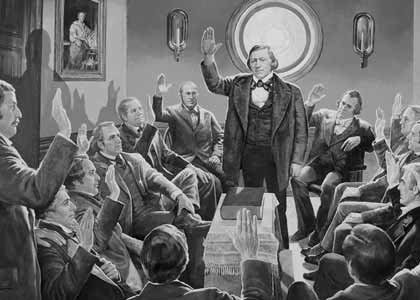 This testimony by Lorenzo Snow where he claims “it never was the law” that it was necessary for a revelation to be presented to the church before it could become a law to the church [common consent] is simply not true. It has always been a law in the Church that everything be done by common consent of the people. As Robert Herold explained in 1969:
This testimony by Lorenzo Snow where he claims “it never was the law” that it was necessary for a revelation to be presented to the church before it could become a law to the church [common consent] is simply not true. It has always been a law in the Church that everything be done by common consent of the people. As Robert Herold explained in 1969:
Because the President of the Church is accepted as prophet, seer and revelator, he is solely responsible for imparting new revelations to the general membership. Acceptance of revelation by faith alone is required. But how does the membership recognize a revelation? Obviously, the President does not utter eternal truths each time he speaks. For any pronouncement to be considered as a revelation, the President must so specify. The fact that the President speaks from the pulpit is not alone sufficient to bind the membership. He must make clear his intent to proclaim new doctrine or commandments. Once he has so specified, the membership must decide whether or not to accept the revelation as binding. This is in accordance with the law of common consent found in the Doctrine and Covenants 26:2. It states, “And all things shall be done by common consent in the Church by much prayer and faith….” In 1831 all revelations to date were assembled and compiled into what was called the Book of Commandments. The book was accepted in general Church conference on November 1, 1831. By August, 1835, the collection of commandments had again been brought up to date and presented to the general assembly of the Church as the Book of Doctrine and Covenants. “Subsequent revelations, accepted by the vote of the Church were added to later additions until the book reached its present proportions.” It is important that the Church membership recognize the President as the only official source of revelation in the Church. A most devastating disruption would occur if a part of the membership decided to accept others besides the President as a source of revelation. This would be a breakdown in required acceptance and would cause such instability and uncertainty that the Church as now structured would almost certainly change. On the other hand, a more stable situation exists when a large majority of the Church accepts as required only that which the President has specifically proclaimed as revelation.[180]
This is nothing new and had been a law in the Church since 1831. As John Taylor explained in 1880:
It requires the Presidency of the Church to seek after God in all of their administrations . . . Now we ought not to allow our feeling to have any place in these matters. No man has a right to use his priesthood to carry on his own peculiar ideas, or to set himself up as a standard, with the exception of the First Presidency, and they have no right to do it unless God be with them, and sustain them, and they are upheld by the people.[181]
There is a difference between “revelation” in the church, and “binding revelation”. Lorenzo Snow acts here, like there is none. Joseph Smith could have a “revelation” to send a man on a mission, but that still had to be presented to the individual, it had to be brought before the Elders of the Church, the man had to be ordained and set apart and then agree to be sent. In early Mormonism it did not mean that they did not view these things as “revelation”, but there were established patterns that were followed if they were to become binding upon individuals. Even FAIRMORMON today applies this to any “doctrine” that is promulgated in the Church:
How do we know then, what is “doctrine”, and what is not? First it must generally conform to what has already been revealed. “It makes no difference what is written or what anyone has said,” wrote J. Fielding Smith, “if what has been said is in conflict with what the Lord has revealed, we can set it aside.” The standard works, he explains, are the “measuring yardsticks, or balances, by which we measure every man’s doctrine.[182]
According to what FAIRMORMON writes, Joseph’s Spiritual Wifeism was never doctrine and because it conflicted with what was in the standard works at the time (the 1835 Marriage Law) it had to be set aside. Harold B. Lee expressed similar thoughts when he taught that any doctrine, advanced by anyone—regardless of position—that was not supported by the standard works, then “you may know that his statement is merely his private opinion.” He recognized that the Prophet could bring forth new doctrine, but “when he does, [he] will declare it as revelation from God,” after which it will be sustained by the body of Church.
The Prophet can add to the scriptures, but such new additions are presented by the First Presidency to the body of the Church and are accepted by common consent (by sustaining vote) as binding doctrine of the Church (See D&C 26:2; 107:27-31). Until such doctrines or opinions are sustained by vote in conference, however, they are “neither binding nor the official doctrine of the Church.”[183]
This is exactly the opposite of what Lorenzo Snow is stating under oath. In 1877 Orson Pratt spoke of the policy in relation to the days in Kirtland:
I wish to state still further in regard to the Priesthood, while upon the subject, that in the Kirtland Temple when the authorities were presented before the people, they were called upon to vote by quorums. Not that it occurred always in that manner. That was the way Joseph ordained in the Temple; each Council voting separately, by standing upon their feet in order that their votes might be better known than they could be by keeping their seats. After one Quorum had voted for the highest authority of the Church, then another Quorum or Council would be called upon to give their vote, and so on, until all had voted for the different
authorities, and then it was presented to all the Church, male and female. Why? It is because God ordained, on the 6th day of April, 1830, as you can read in the Doctrine and Covenants, that all things in this Church should be done by common consent. This is the reason for the voting. Although the Lord may give a revelation upon the subject, although he might say, Let my servant Hyrum Smith be Patriarch; or Let my servant Brigham Young be President of the Twelve Apostles; notwithstanding the Lord may give this by revelation, yet he himself was anxious to carry out the principle he had revealed a long time before that; namely, that all this I have named may be brought before the General Conference to be sanctioned and approved, or not to be sanctioned. What! the people have a right to reject those whom the Lord names? Yes, they have this right, he gave it to them. “Let them be approved of or not approved of;” showing that he had respect to the people themselves, that they should vote and give their general voice to either sustain or not to sustain. I do not know why, only in the latter days the kingdom is in a little different circumstances upon the face of the earth, than it has been in during any former dispensation. We are living in a free Republican Government, wherein the people vote, and the Lord established this great American Government and gave the Constitution, and he wished the people to have a voice in the officers named; he wished the people to exercise their agency; you may call it a democratic principle. Notwithstanding He himself may point out the persons, and call them by name, yet you may approve of them or disapprove of them at my General Conference.[184]
Todd Compton, a real expert on Joseph Smith’s polygamy writes:
Decisions about church revelation were intended to be consensual. In the Doctrine and Covenants the membership was given responsibility to approve or reject a proposed leader or revelation (20:65; 26:2). Also consensus was to be the operational mode in the quorums. According to one scholar:
The quorum of the anointed or holy order, was comprised of the first group of male and female members who received the endowment or fullness of priesthood. Joseph instructed them that they had the keys to test revelation, and were to test the revelation of anyone claiming to have received one for the Church. . . . [T]he quorum had real, if not supreme priesthood authority in the church. . . . From the time the quorum was first organized until his death, Joseph relied more and more on it to test out his doctrinal innovation and to disclose his most important decisions.[185]
Did Joseph Smith ever put his Spiritual Wife Doctrine to a vote in any quorum of the Church before he began to practice it and commanded others to do likewise? We have no evidence of this. It was presented to the High Council in Nauvoo in 1843 by Hyrum Smith, but they were divided about it, and it was withdrawn. And the Smith’s lied about it and claimed it was a revelation about “former times” and that one could only be “sealed” to dead spouses and only one living spouse.
There is simply no getting around this law, and no contrived exception can change it. Lorenzo Snow tries to make a case for that, and if one simply compares his testimony with that of Wilford Woodruff (who was President of the Church), one can see that Snow is being untruthful and deceptive.
Is there an exception to every law as Snow claimed? Is there an exception to baptism? Could a woman baptize an individual if the Prophet said so? Could the Prophet secretly ordain women to the Priesthood? And then claim it was a “revelation” and it was ok because he wanted a certain woman to be able to baptize people and was afraid that the people were not “prepared” to receive the new law and therefore he taught and acted on it in secret? Even women missionaries today cannot baptize people . They must find a man who holds the Priesthood. Could Russel Nelson just wave his hand and say “hey, there are exceptions to every law you know?” Would he be truthful if he testified to this in a court of law? And would anyone really believe him if he did such a thing and used such an excuse?
So what are we to make of Lorenzo Snow’s testimony here? And further, what are we to make of Brian Hales who claims to know so much about Joseph Smith’s theology and polygamy? We see that Hales does not extensively quote from Snow’s testimony, so is he really familiar with it or is he only cherry picking? If so, why does he try and perpetuate this obvious deception in connection with Jeremy Runnells?
We see from this exercise that there are all kinds of problems with Lorenzo Snow’s Testimony at the Temple Lot Trial, and that the comments that Jeremy Runnells made are not a misrepresentation of Mormon Doctrine or of Lorenzo Snow’s testimony. We see that Lorenzo Snow was a hostile and purposefully forgetful witness who perjured himself and was out to defend Joseph Smith at any cost, and so colored his testimony to that end.
Finally, boxed in by Kelley, Snow admits that yes, revelations were in fact presented to the Church for approval before they became binding on the Church:
468. Q. You know the revelations contained in the 1835 edition of the book of doctrine and covenants were presented to the church there and accepted? A. Yes sir, and I know that it was also done at other places—at least I have heard that it was done. Now as you mention it I remember hearing of it, but I was not present, and so what I know about this is hearsay.
469. Q. Well was that the rule? A. Yes sir.
470. Q. Now I will read to you from the Times and Seasons a statement made by Orson Hyde to the Quorum of Twelve. It is in the Times and Seasons Vol. 3 page 649, published September 8th 1844.
471. Q. I will read you this and see if you identify it Mr. Snow. “There is a way by which all revelations purporting to be from God through any man can be tested. Brother Joseph gave us the plan[.] Says he, when all the quorums are assembled and organized in order, let the revelation be presented to the quorums[.] If it pass one[,] let it go to another, and if it pass that, to another, and so on until it has passed all the quorums; and if it pass the whole without running against a snag, you may know it is of God. But if it runs against a snag, then says he, it wants enquiring into: you must see to it. It is known to some who are present that there is a quorum organized where revelation can be tested. Brother Joseph said, let no revelation go to the people until it has been tested [t]here “Now I would ask, did Elder Rigdon call the quorum together and there lay his revelation before it, to have it tested? No, he did not wait to call the quorum; neither did he call the authorities together that were here.” Now I will ask you if you recognize that? A. That is very good doctrine.
472. Q. So that was the rule instead of there being no rule, when you come to think about it? A. Well that was the rule but as I told you before there was exceptions to the rule, and you can see the reason of it too. Revelations were often given when the whole of the church were not present, and there is some of the quorums that have to confirm the revelations before it can ever go before the church.
473. Q. Well that was the rule of the church at the time,—always was the rule of the church prior to the death of Joseph Smith wasn’t it? A. Yes sir, with the exception that I speak of,—
474. Q. No you were asked this question,—was a revelation binding upon the church as soon as it was made known to the church? A. Yes sir.
475. Q. That question was asked you,—and you answered it “yes sir.” A. Yes sir.
476. Q. Now is a revelation binding upon the church, before it is made known to the church? A. No sir.
477. Q. It is not binding upon the church then until it is made known to the church? A. Certainly not, but it is binding upon such individuals as to whom it may be made known. If a revelation was made known to an individual it is binding upon him, even if it has not been made known to the church. I have repeated that answer I suppose a dozen times.
478. Q. Well I am just asking the question to have it brought out definitely and beyond mistake. A. Well that is all right. Yes sir, there are circumstances,—there has been times when revelations were revealed to a few persons, and it thereby became a law to them, but not a law to the church until it is revealed to the church.
479. Q. Now suppose that a revelation should be accepted by a few people before it is made known to the church, and that revelation is contrary to the doctrines of the church,—if it is true that it is obligatory on the few people to whom it is made known, and it is contrary to the law of the church as accepted by the church—what position would these few people be in? A. Well in rather an unpleasant position.
480. Q. They would be in a position of violating the law of the church wouldn’t they? A. No sir, no sir, not necessarily.
481. Q. They would not? A. No sir.
482. Q. Would not they be liable to be dealt with,—to be disciplined? A. That would be a bad case.
483. Q. That would be bad you say? A. Yes sir, and I speak thus because of your supposed unbelief in these matters, for I believe that the Lord did reveal it to him, so I think that all who accepted it are in no danger from the wrath of the Lord at all.[186]
It is obvious that Lorenzo Snow is looking at this from a point of view that anything that Joseph Smith “revealed” was from God and therefore binding on those that heard it immediately. But we already knew that this was Lorenzo Snow’s view. What Mr. Kelley was trying to establish with Snow was if there was a set law in the church for presenting revelation that would become binding on the Church (which is comprised of individuals), and as we see from the comments of Wilford Woodruff above, there was.
The problem with Lorenzo Snow is that he is downplaying (in an effort to defend Joseph Smith) the whole reason for the law, to protect people from blindly following the commandments of one man who may err, despite being called as a “prophet”. This is simply blind fanaticism on the part of Lorenzo Snow, who believed that Joseph Smith could break no laws, or that if he did, he was allowed to get a free pass. He was the inexplicable “exception” to the established rules of God. The question must be asked over and over again before Snow finally admits that yes, it would be bad to blindly accept a “revelation” as binding without it going through the proper channels to confirm it. Yet Snow will not budge when it comes to Joseph Smith. He is simply being irrational.
Since Snow did not view the polygamy revelation as contradictory, he therefore claims that it is an exception to the very law that Wliford Woodfuff describes, which is, “before a revelation can be accepted by the church, as a law, it must in some form or other be presented to the church and accepted by the church.” Smith then, had no authority to present this principle to anyone in the church as a law to be practiced, until he had the approval of the church. Lorenzo Snow is claiming two things here and they contradict each other.
This was simply unacceptable to Lorenzo Snow, because he, like Woodruff felt that Smith was infallible when it came to his “revelations”. Lorenzo Snow also committed blatant perjury on the stand. When asked about the Law of Adoption, the discountinued practice (two years later in 1894) of sealing men to men (other than their family members) Snow lied and claimed he never heard of the practice:
92 Q. Did he [Joseph Smith] tell you whether or not a man could be sealed to another man, and a man’s family? A. No sir, he said nothing about that.
93 Q. Do you know whether or not that was the case from your knowledge? A. This is the first time I ever heard of it.
94. Q. Heard of what? A. Of one man being sealed to another.
95. Q. You never heard of a family being sealed to another family? A. Yes sir, I have heard of it in this way—I have heard of children being sealed to adults.
96. Q. Did you ever hear of a man’s wife being sealed to him? A. Yes sir.
97. Q. You have heard of that? A. Certainly I have hear of women being sealed to men, but of men being sealed to one another, I never heard of that until now.
98. Q. Was it not common to seal a man’s wife to him—that is was not the principle common after Joseph death and was it not practiced in the church at that time? A. Certainly. Now do I understand you to ask me the question about a man being sealed to a man?
99 Q. Yes sir. A. In what way?
100. Q. Sealed to one higher in authority, so the whole family would be his in eternity? A. You ask me if I now know or ever did know anything about a man being sealed to a man, and I say no, I never knew or heard of such a thing as that.[187]
Of course Snow knew all about the law of adoption (being President of the Salt Lake Temple at the time of his testimony) and the sealing of men to men, which was practiced in the church until discontinued by Wilford Woodruff in 1894 (shortly after Lorenzo Snow lied about it). Here is Brigham Young commenting on the sealing of men to men, from Wilford Woodruff’s journal in 1847:
While treating upon the principle of Adoption He said some men were afraid they would loose some glory if they were sealed to one of the Twelve And did not stand alone And have others sealed to them. President Young said there kingdom consisted of their own posterity And it did not diminish that at all by being sealed to one of the Twelve but ownly [p.118] bound them by that perfect Chain according to the law of God and order of Heaven that will bind the righteous from Adam to the last Saint And Adam will claim us all as members of his kingdom we deing his Children.
He gave some interesting teaching concerning the rights of men & the dealings of men with there wives and children, the raising of posterity, purity, Holiness &c. That if A wise and proper course was taken in the begeting and raising of children that they would soon become pure & Holy And be administered to by Angels &c. And many other things did the Apostle teach.[188]
Brigham Young, also discussed the Law of Adoption and the sealing of men to men in front of the Church and in private.[189] The Law of Adoption was also discussed in a meeting that Lorenzo Snow attended in 1884 (almost ten years before the Temple Lot Suit) with President John Taylor:
Thursday May 22, 1884. Prest Taylor Cannon & Smith & the brethren of the Apostles & others met at the Temple at 9.30 am There were present in the Recorders Room as follows – Prest John Taylor, George Q Cannon – Joseph F. Smith, Apostles W. Woodruff, L.[orenzo] Snow, E. Snow, F. D. Richards – M Thatcher – G Teasdale, Coun D H Wells Prests. J. D T McAllister, L. John Nuttall – A. M Cannon, W B Preston C O. Card M. W Merrill – Elders – D H Cannon Samuel Roskelly, T. Morrell & Geo W Thatcher – President John Taylor directed the Temple Recorder to place on the records of the Temple as follows “That the Lord is well pleased and has accepted this House, and our labors in its Dedication, also the labors of the people in its building and beautifying – and whatever (p. 50) the Saints may feel to place into it, to ornament and embellish it, will also be acceptable. I state this as the Word of the Lord. And the Lord will continue to reveal unto us every principle that shall be necessary for our guidance in the future in all matters pertaining to our labors both spiritually and temporaly. Several of the brethren briefly expressed their satisfaction, in conversation, of all that had transpired in the building and in the past days services –
When President Taylor afterwards made pertinent remarks on the subject of adoption. said he had been considering this subject and had the matter and the Keys thereof before him, and in a short time he would make it plain to all, [not in attendance] in that there need could (sic) (p. 51) be no misunderstanding. he also referred to Abraham & others – after which He arose to his feet and said “God accepts us and our labors and if we will do His will and Keep His commandments, He will stand by and sustain us, and no power on the earth or in hell shall have power to do us any harm or to injure us in any manner – I feel to bless you my brethren here present in the name of Isreals God. and you and your families shall be blessed, and God will raise you up and lift you on high. I feel like shouting Hallelujah, Hallelujah, Glory to God. For His Kingdom and people shall triumph I say it in the name of the Israels God. Amen – All present responded Amen – Prest. Taylor & Cannon & Elder (p. 52) Nuttall then proceeded up to the sealing room when Prest Taylor explained further in regard to the ordinance of Adoption and concluded to postpone any action on that ordinance for the present and until he shall he shall give further instructions pertaining thereto. Everything now being in working order at the Temple the President & brethren left & prepared for starting to Salt Lake this afternoon – At 130 started by Utah & Northern train for Ogden in a special car provided by Supt Doddridge when on arrival at Ogden changed cars to the Utah Central and arrived at Salt Lake at 730 P M all well and found families all well (p. 53) While on the train a dispatch was received from Elder Geo Reynolds setting forth that it was rumored that Prest Jos F Smith & Coun D H Wells were wanted by the Grand Jury as witnesses in some Polygamy cases before them. Bro Wells stopped at Brigham & Bro Smith at Willard & came down to the City afterwards.[190]
In 1894 Wilford Woodruff claimed that the law of adoption (including the sealing of men to men) had been being performed incorrectly, and addressed the Church about it:
I want to lay before you what there is for us to do at this present time; and in doing this I desire particularly the attention of President Lorenzo Snow, of the Salt Lake Temple; President M. W. Merrill, of the Logan Temple; President J. D. T. McAllister, of the Manti Temple; and President D. H. Cannon, of the St. George Temple, and those associated with them. You have acted up to all the light and knowledge that you have had; but you have now something more to do than what you have done. We have not fully carried out those principles in fulfillment of the revelations of God to us, in sealing the hearts of the fathers to the children and the children to the fathers. I have not felt satisfied, neither did President Taylor, neither has any man since the Prophet Joseph who has attended to the ordinance of adoption in the temples of our God. We have felt that there was more to be revealed upon this subject than we had received. Revelations were given to us in the St. George Temple, which President Young presented to the Church of God. Changes were made there, and we still have more changes to make, in order to satisfy our Heavenly Father, satisfy our dead and ourselves. I will tell you what some of them are. I have prayed over this matter, and my brethren have. We have felt, as President Taylor said, that we have got to have more revelation concerning sealing under the law of adoption. Well, what are these changes? One of them is the principle of adoption. In the commencement of adopting men and women in the Temple at Nauvoo, a great many persons were adopted to different men who were not of the lineage of their fathers, and there was a spirit manifested by some in that work that was not of God. Men would go out and electioneer and labor with all their power to get men adopted to them. One instance I will name here: A man went around Nauvoo asking every man he could, saying, “You come and be adopted to me, and I shall stand at the head of the kingdom, and you will be there with me.” Now, what is the truth about this? Those who were adopted to that man, if they go with him, will have to go where he is. He was a participator in that horrible scene—the Mountain Meadow massacre. Men have tried to lay that to President Young. I was with President Young when the massacre was first reported to him. President Young was perfectly horrified at the recital of it, and wept over it. He asked: “Was there any white man had anything to do with that?” The reply was No; and by the representations then made to him he was misinformed concerning the whole transaction. I will say here, and call heaven and earth to witness, that President Young, during his whole life, never was the author of the shedding [p.73] of the blood of any of the human family; and when the books are opened in the day of judgment these things will be proven to heaven and earth. Perhaps I had not ought to enter into these things, but it came to me. Men are in danger sometimes in being adopted to others, until they know who they are and what they will be. Now, what are the feelings of Israel? They have felt that they wanted to be, adopted to somebody. President Young was not satisfied in his mind with regard to the extent of this matter; President Taylor was not. When I went before the Lord to know who I should be adopted to (we were then being adopted to prophets and apostles), the Spirit of God said to me, “Have you not a father, who begot you?” “Yes, I have.” “Then why not honor him? Why not be adopted to him? …. Yes,”says I, “that is right.” I was adopted to my father, and should have had my father sealed to his father, and so on back; and the duty that I want every man who presides over a temple to see performed from this day henceforth and forever, unless the Lord Almighty commands otherwise, is, let every man be adopted to his father. When a man receives the endowments, adopt him to his father; not to Wilford Woodruff, nor to any other man outside the lineage of his fathers. That is the will of God to this people. I want all men who preside over these temples in these mountains of Israel to bear this in mind. What business have I to take away the rights of the lineage of any man? What right has any man to do this? No; I say let every man be adopted to his father; and then you will do exactly what God said when he declared He would send Elijah the prophet in the last days. Elijah the prophet appeared unto Joseph Smith and told him that the day had come when this principle must be carried out. Joseph Smith did not live long enough to enter any further upon these things. His soul was wound up with this work before he was martyred for the word of God and testimony of Jesus Christ. He told us that there must be a welding link of all dispensations and of the work of God from one generation to another. This was upon his mind more than most any other subject that was given to him. In my prayers the Lord revealed to me, that it was my duty to say to all Israel to carry this principle out, and in fulfillment of that revelation I lay it before this people. I say to all men who are laboring in these temples, carry out this principle, and then we will make one step in advance of what we have had before. Myself and counselors conversed upon this and were agreed upon it, and afterwards we laid it before all the Apostles who were here (two were absent—Brothers Thatcher and Lund, the latter being in England), and the Lord revealed to every one of these men—and they would bear testimony to it if they were to speak—that that was the word of the Lord to them. I never met with anything in my life in this Church that there was more unity upon than there was upon that principle. They all feel right about it, and that it is our duty. That is one principle that should be carried out from this time henceforth. “But,” says one, “suppose we come along to a man who perhaps is a murderer.” Well, if he is a murderer, drop him out and connect with the next man beyond him. But the Spirit of God will be with us in this matter. We want the Latter-say Saints from this time to trace their genealogies as far as they can, and to be sealed to their fathers and mothers. Have children sealed to their parents, and run this chain through as far as you can get it. When you get to the end, let the last man be adopted to Joseph Smith, who stands at the bead of the dispensation. This is the will of the Lord to this people, and I think when you come to reflect upon it you will find it to be [p.74] true.[191]
A month before Woodruff had the Law of Adoption discontinued in the Church he told a group of men in the temple:
Wed., March 28, 1894. … I (Wilford Woodruff) was sealed to my father, and then had him sealed to the Prophet Joseph. Erastus Snow was sealed to his father though the latter was not baptized after having heard the Gospel. He was however, kind to the Prophet, and was a Saint in everything except baptism. The Lord has told me that it is right for children to be sealed to their parents, and they to their parents just as far back as we can possibly obtain the records; and then have the last obtainable member sealed to the Prophet Joseph, who stands at the head of this dispensation. It is also right for wives whose husbands never heard the Gospel to be sealed to those husbands, providing they are will[ing] to run the risk of their receiving the Gospel in the Spirit world. There is yet very much for us to learn concerning the temple ordinances, and God will make it known as we prove ourselves ready to receive it…[192]
Yet, Brigham Young taught:
…I will answer a question that has been repeatedly asked me…should I have a father dead that has never heard this gospel, would it be required of me to redeem him and then have him adopted into some man’s family and I be adopted to my father? (I ans. no.) … were we to wait to redeem our dead relatives before we could link the chains of the P. H. [priesthood] we would never accomplish it.[193]
There is no way that Lorenzo Snow could not have known about the sealing of men to men. Woodruff includes Snow in a list of men that preformed these sealings with “all the light and knowledge” they had. Why Snow chose to lie about this doesn’t really matter, but it does go to his credibility as a witness and shows that he would lie rather than reveal some things that might have been viewed as controversial.
Snow also tried to claim that there were “exceptions”—that because the law (of Patriarchal Marriage) could not be presented to the church because it (the Church) wasn’t fully “present”, Joseph was justified in revealing it in secret to individuals.
But that excuse does not apply to Smith’s Spiritual Wifeism Doctrine. Smith started the practice in Nauvoo in 1841 when the entire church was “present.” He had the Quorums in place. The main body of the Church was there. Smith just never presented the polygamy “revelation” to them. He revealed it in secret to a few members and then lied about it. So this excuse by Snow can’t apply to the Spiritual Wife System, or as it was later known Celestial Marriage.
We also know that Smith’s Spiritual Wifeism was in contradiction to the established and accepted (binding) doctrine of the Church’s marriage law, of one man having only one wife and that polygamy was expressly forbidden at that time.[194] So Joseph Smith did violate the laws of the Church. To prove this, one only has to read the Times and Seasons from November 15, 1844 which states:
The law of the land and the rules of the church do not allow one man to have more than one wife alive at once, but if any man’s wife die, he has a right to marry another, and to be sealed to both for eternity; to the living and the dead! there is no law of God or man against it! This is all the spiritual wife system that ever was tolerated in the church, and they know it.[195]
In the Church’s official publication they insist that “the law of the LAND and the rules of the CHURCH do not allow one man to have more than one wife ALIVE at once.” They also call polygamy a “spiritual wife system”. So Jeremy could also have written:
According to Brigham Young and the rest of the Quorum of the Twelve in 1844, Joseph had zero business marrying his plural wives before 1843 and he should have been cut off from the Church as it was adultery under the laws of the Church and under the laws of the State. Joseph’s marriage to Fanny Alger in 1833 was illegal under both the laws of the land and under any theory of divine authority; it was adultery.
This (the Times & Seasons denial) was all right to publish when it was in the interest of the parties who were lying about what they were doing, but later, they conveniently forgot about these kinds of statements and claimed that such things were never the law of the Church. Lies are often built upon lies. How does this not apply to Joseph Smith? We have no credible answers from those that he personally taught it to, nor the apologists that still try and defend this irrational reasoning today.[196]
[105] Runnells, Debunking, Section on Polyandry, online here, accessed November 5, 2014.
[106] For some background on the Temple Lot Case, See R. Jean Addams, “An Introduction to the Temple Lot Case”, Signature Books Library, Online here, Accessed December 2, 2014.
[107] Hales, “Rational Faiths”, op. cited.
[108] ibid., Comment Section under date cited above. Online here, Accessed December 2, 2014.
[109] ibid.
[110] Brian Hales, Joseph Smith’s Polygamy, Vol. II, Appendix C, added emphasis.
To illustrate our point, we have this from wiki, (which we think is a fair definition of the editing process in general):
Editing is the process of selecting and preparing writing, photography, visual, audible, and film media used to convey information. The editing process can involve correction, condensation, organization, and many other modifications performed with an intention of producing a correct, consistent, accurate and complete work. (wiki entry: “Editing”, online here, accessed July 22, 2019, added emphasis).
Hales makes no mention in his book that the editing process used by the RLDS church involved fabricating text. If this was so important we have to ask why Hales never mentioned it?
[111] Lorenzo Snow, Statement, January 29, 1891, as cited in Dennis B. Horne, An Apostle’s Record: The Journals of Abraham H. Cannon (Clearfield, UT: Gnolaum Books, 2004), 175.
[112] See note #71 & #33. (Pt. 2, links provided)
[113] See Note #28. (Pt. 2, link provided)
[114] “Temple Lot Suit,” United States testimony 1892, Church History Library, The Church of Jesus Christ of Latter-day Saints, Salt Lake City, Utah, folder Ms-d 1160, Box 1, fd11, 121, online here, accessed November 5, 2014. Hereafter, “Temple Lot, Lorenzo Snow”.
[115] “Temple Lot, Lorenzo Snow”, op. cited, 122, added emphasis.
[116] Orson Pratt, Journal of Discourses, Vol. 13, 192-3, October 7, 1869, added emphasis, Online here, Accessed, November 5, 2014.
[117] Wilford Woodruff’s Journal, Vol. 6, 497, October 6-7, 1869.
[118] Times and Seasons, Vol. 5, Nov. 15, 1844, 715, emphasis ours, Online here, Accessed November 14, 2014.
[119] Wilford Woodruff’s Journal, Vol. 2, 1841–1845, 371, March 24, 1844, See also, History of the Church, Vol. 6, 273). Joseph did not give Heber C. Kimball the option of disbelieving in polygamy without consequences for he told him he would lose his apostolic office if he did not obey the command to practice it. This is an important point because it comes directly in conflict with Smith’s revelation on the Priesthood and unrighteous dominion. (D&C Section 121:37)
[120] Smith wrote to Thomas Ford on June 14, 1844 after destroying the Nauvoo Expositor press:
In the investigation it appeared evident to the council that the proprietors were a set of unprincipled men, lawless, debouchees, counterfeiters, Bogus Makers, gamblers, peace disturbers, and that the grand object of said proprietors was to destroy our constitutional rights and chartered privileges; to overthrow all good and wholesome regulations in society; to strengthen themselves against the municipality; to fortify themselves against against the church of which I am a member, and destroy all our religious rights and privileges, by libels, slanders, falsehoods, perjury & sticking at no corruption to accomplish their hellish purposes. and that said paper of itself was libelous of the deepest dye, and very injurious as a vehicle of defamation,—tending to corrupt the morals, and disturb the peace, tranquillity and happiness of the whole community, and especially that of Nauvoo. (Joseph Smith, letter to Thomas Ford, Dean C. Jessee (ed.), The Personal Writings of Joseph Smith, Deseret Book Company, 586-587.
This was a letter simply filled with lies and Smith didn’t care one whit. Smith claimed that the accusations in the Nauvoo Expositor concerning his Spiritual Wifeism were libels and slanderous. As Richard Van Wagoner writes:
On 7 June the first issue of the Expositor came off the press. “We all verily believe, and many of us know of a surety, that the religion of the Latter Day Saints, as originally taught by Joseph Smith, is verily true,” wrote the publishers. But “we are earnestly seeking to explode the vicious principles of Joseph Smith, and those who practice the same abominations and whoredoms,” for, they claimed, “we verily know [they] are not accordant and consonant with the principles of Jesus Christ and the Apostles.” The essay discussed the “wretched and miserable condition of females in this place,” and related the plight of some of them. New immigrant convert women, they claimed, were taken to secluded spots on arrival and forced to become Smith’s “spiritual wives,” their refusal resulting in “eternal damnation.” The article maintained that “religious despotism” was “incompatible with free institutions.” Additional disclosures in subsequent issues were promised. (Richard S. Van Wagoner, Sidney Rigdon, op. cited, 335).
There was nothing published in the Expositor that was an intentionally false or misleading, and we have never seen any Mormon apologist prove otherwise, unlike what Joseph wrote to Governor Ford. The difference between Smith and the Laws are shown in sharp contrast in these two documents. FAIRMORMON addresses the Nauvoo Expositor here, (and feel free to analyze their arguments and see if they hold any water) but they don’t mention or discuss Joseph’s crucial letter to Ford, nor what the Law’s published in the paper. We wonder why?
And now, this…
We can’t help ourselves, we have to point out one blatant example of how FAIRMORMON gets things wrong. At the end of the link we posted above, under the subtitle “The Nauvoo Expositor declared that Joseph was ““blood thirsty and murderous…demon…in human shape”, they write:
Shortly afterward, on 7 June 1844, the first (and only) edition of the Nauvoo Expositor was published. It detailed Joseph’s practice of plural marriage, and charged him with various crimes, labeling him a “blood thirsty and murderous…demon…in human shape” and “a syncophant, whose attempt for power find no parallel in history…one of the blackest and basest scoundrels that has appeared upon the stage of human existence since the days of Nero, and Caligula.” (Footnote: Francis M. Higbee, “Citizens of Hancock County,” Nauvoo Expositor (7 June 1844).
Actually, they have it wrong, Francis Higbee does not call Smith anything of the kind. The quote is in a section above the Higbee notice, titled “Joe. Smith – The Presidency” and was in response to what Smith himself wrote about Henry Clay and accusations made by Joseph H. Jackson:
JOE. SMITH — THE PRESIDENCY.
We find in the Nauvoo Neighbor of May 29th, a lengthy letter from Joseph Smith a candidate for the Presidency on his own hook, to Henry Clay, the Whig candidate for the same office. It appears to be a new rule of tactics for two rival candidates to enter into a discussion of their respective claims to that high office, just preceding an election. Smith charges Clay with shrinking from the responsibility of promising to grant whatever the Mormons might ask, if elected to the Presidency. Smith has not been troubled with any inquiries of committees as to what measures he will recommend if elected; nevertheless he has come out boldly and volunteered his views of certain measures which he is in favor of having adopted. One is for the General Government to purchase the slaves of the south and set them free, that we can understand. Another is to pass a general uniform land law, that certainly requires the spirit of interpretation to show its meaning as no explanation accompanies it. Another which no doubt will be very congenial to the candidate’s nervous system, is to open all the prison doors in the country, and set the captive free. These with some other suggestions equally as enlightened, ought to be sufficient to satisfy any man that Joseph Smith is willing that his principles shall be publicly known. If however any individual voter, who has a perfect right to know a candidates principles, should not be satisfied, he may further aid his inquiries, by a reference to the record of the grand inquest of Hancock County.
Martin Van Buren is charged with non-commitalism; Henry Clay has not been the man to answer frankly the question whether he would restore to the Mormons their lands in Missouri. Joseph Smith is the only candidate now before the people whose principles are fully known; let it be remembered there are documents the highest degree of evidence before the people; a committee of twenty-four, under the solemnity of their oaths, have inquired into and reported upon his claims in due form of law. Shades of Washington and Jefferson — Henry Clay the candidate of a powerful party, is now under bonds to keep the peace; Joseph Smith, the candidate of another “powerful” party has two indictments against him, one for fornication and adultery, another for perjury. Our readers can make their own comments.
We have received the last number of the “Warsaw Signal;” it is rich with anti-Mormon matter, both editorial and communicated. Among other things it contains a lengthy letter from J.H. Jackson, giving some items in relation to his connection with the “Mormon Prophet,” as also his reasons for the same. It will be perceived that many of the most dark and damnable crimes that ever darkened human character, which have hitherto been to the public, a matter of rumor and suspicion, are now reduced to indisputable facts. We have reason to believe, from our acquaintance with Mr. Jackson, and our own observation, that the statements he makes are true; and in view of these facts, we ask, in the name of heaven, where is the safety of our lives and liberties, when placed at the disposal of such heaven daring, hell deserving, God forsaken villains. Our blood boils while we refer to these blood thirsty and murderous propensities of men, or rather demons in human shape, who, not satisfied with practising their dupes upon a credulous and superstitious people, must wreak their vengeance upon any who may dare to come in contact with them. We deplore the desperate state of things to which we are necessarily brought, but, we say to our friends, “keep cool,” and the whole tale will be told. We fully believe in bringing these iniquities and enormities to light, and let the majesty of violated law, and the voice of injured innocence and contemned public opinion, speak in tones of thunder to these miscreants; but in behalf of hundreds and thousands of unoffending citizens, whose only fault is religious enthusiasm, and for the honor of our own names and reputation, let us not follow their desperado measures, and thereby dishonor ourselves in revenging our own wrongs. Let our motto be, “Last in attack, but first in defence;” and the result cannot prove otherwise than honorable and satisfactory. (Nauvoo Expositor, page 3, col. B, added emphasis)
Joseph Smith got up on the stand in Nauvoo and threatened to “use up” (kill) any “Judas” who he thought had betrayed him like Jackson, the Laws, etc. And if one reads the letter referred to that Smith wrote about Henry Clay, one finds that Smith wrote this:
For the glory of America has departed, and God will set a flaming sword to guard the tree of liberty, while such mint-tithing Herods as Van Buren, Boggs, Benton, Calhoun, and Clay, are thrust out of the realms of virtue, as fit subjects for the kingdom of fallen greatness; vox reprobi, vox Diaboli! (the voice of the Devil).
So I guess that it’s ok if Smith claims that Henry Clay speaks with the voice of the devil, but not ok that the Expositor calls those who commit the crimes that Smith did, devils in human form? Smith then laments that Clay suggested the Mormons move to Oregon:
Henry Clay, the wise Kentucky lawyer, advises the Latter-day Saints to go to Oregon, to obtain justice, and set up a government of their own. O ye crowned heads among all nations, is not Mr. Clay a wise man, and very patriotic! Why, great God! to transport 200,000 people through a vast prairie, over the Rocky Mountains, to Oregon, a distance of nearly 2,000 miles, would cost more than four millions, or should they go by Cape Horn, in ships to California, the cost would be more than twenty millions!
But lo and behold, Smith was already sending out expeditions (which were reporting to his Council of Fifty) to do just that. And Smith isn’t finished, he also says that Clay is a …
…vessel of dishonor. You may complain that a close examination of your “whole life, character, and conduct” places you, as a Kentuckian would pleasantly term it, “in a bad fix.” But, sir, when the nation has sunk deeper and deeper in the mud at every turn of the great wheels of the Union, while you have acted as one of the principal drivers, it becomes the bounden duty of the whole community, as one man, to whisper you on every point of government, to uncover every act of your life, and inquire what mighty acts you have done to benefit the nation, how much you have tithed the mint [See Luke 11:42] to gratify your lust, and why the fragments of your raiment hang upon the thorns by the path as signals to beware!
And who else was “in a bad fix”? Joseph Smith. Is what they wrote in the Expositor really any different than what Smith wrote about Clay? Here is what Joseph Jackson wrote on June 1, 1844 (published in the Warsaw Signal):
STARTLING DISCLOSURES.
Carthage, June 1, 1844.
Mr. Editor: —
Having been a short time since a rather conspicuous character in this community, on account of my connection with Joseph, I am anxious to convey to the public through your columns, the motives that actuate my conduct, and thus clear away false impressions which my former conduct has tended to produce. In hopes that the following plain statement of facts, which can be substantiated by unquestionable testimony will produce this effect, I submit it for the information of your readers.
In the fall of 1842, I visited Nauvoo and although I have no knowledge of having done any thing which should have aroused suspicion, I was informed that I was regarded with distrust by his holiness and marked down accordingly as a spy. A short time after this, I had proof that this information was authentic; for incontestable evidence was given of the hostile designs of Joe towards me.
One evening after dark, as I was riding in a wagon with a friend, we met another wagon coming from an opposite direction. A voice from the latter cried out as we passed, “Jackson is that you,” I answered in the affirmative. “I wish to see you,” said the stranger. I got out of the wagon, and walked to meet the individual who accosted me, who had also left the wagon in which he road. The wagons passed on and we neared each other, when suddenly the stranger fired a pistol — the ball whizzed by my head, and the assassin fled. I saw no more of him; but the effect of this incident was to make me resolve to be avenged, if the cunning of man could accomplish what I so much desired. I saw plainly from what I had heard, that Joe Smith was the instigator of the villain who attempted to take my life without provocation, and I thought to myself that it should not be my fault, if he were not made to smart for his villainy.
Shortly after this I quit Nauvoo, and spent the winter in Carthage. In the spring of 1843 I told Harmon T. Wilson, that I was determined to head Joe and in order to do so that I would go to Nauvoo, insinuate myself into his favor, win his affection and confidence, and that if he really was a villain I would find it out, and at a proper season I would disclose all to him, that as an officer of the law, he might have an opportunity to bring the scamp to justice. Accordingly I returned to Nauvoo I sought Joe’s favor — he protested he was a man of God: I told him I knew his heart, that his religion was a humbug and I wanted to hear none of it. I represented myself as an outlaw and fugitive from justice — ready to do whatever he commanded. For a long time, he persisted in his professions of holiness, but finally seeing that I was not gullible enough to believe his [sanctified] professions, and having succeeded in making him believe that I was a proper tool for his uses, he gave in, and acknowledged to me his proper character and principles. He admitted himself an atheist, and the. Book of Mormon a humbug;- and that the original was written by Lyman Spalding, whose heirs now have it in their possession.
By degrees, I entwine, myself completely into his confidence. I seemed ready to perform whatever I was commanded, and to the world kept up the appearance that I was in reality what I seemed to be. I succeeded in my object — every plot, every plan, every secret movement of the villainous system by which Joe deludes and strips his followers, was made known to me; and before God I say, that a more detestable miscreant treads not the earth. Steeped in blood and crime, guilty by his own admissions, of almost every act of wickedness, that the machinations of hell can suggest to mortal man, he stands before the Devil, but even as the rival of his Satanic Majesty.
But the limits of this communication will not allow me to particularize; suffice it to say, that Joe disclosed to me while in his confidence, that he did send O. P. Rockwell to Missouri: to assassinate Gov. Boggs. He stated too the particulars. I was sent on the mission to liberate him after he had been taken. I know all the facts in relation to this affair, and will soon disclose them to the world. After Rockwell had returned, Joe offered me $3000; if I would do what Rockwell had failed to do, to wit: take the life of Boggs. I consented; — I visited Missouri, for the purpose of keeping up appearances with him, and on my return excused myself for not having done, what I would have shrunk with horror from doing; by telling him that Boggs was not at home.
This alone brands Joe as an assassin but this is not all I know of his murderous purposes. He attempted to hire myself and others, to take the life of some of our most valuable citizens. I will not at present name them; but I will say from what I know, that his enemies are not safe. He has a ruffian band around him ready to execute whatever he commands and who are only deterred by the fear of detection. The fact that Joe is engaged in counterfeiting, also came to my knowledge while in his confidence; besides this, a baser and more unscrupulous seducer lives not — I could name his victims, but regard for their feelings deter me.
The limits I have prescribed for this communication, compels me to desist from further remarks at this time. I know that my life is sought by Joe; but I also know, that should I be suddenly cut off, my death will be attributed to the proper source, and amply revenged. I have said enough already, to convince the world that while in Nauvoo my motive was not that which was then attributed to me. — The fact that I made known to H. T. Wilson my object in going there will unfold the mystery of my conduct.
Yours Respectfully,
J. H. JACKSON.
In his letter Jackson claims that Smith told him that he was an atheist and that the Book of Mormon was written by Solomon Spaulding. Jackson also claimed in his pamphlet (published later in the year) that Smith bragged about having bedded 400 women, etc. We feel that Smith’s braggadocio was to appear as a master criminal to convince Jackson to do his bidding in relation to Boggs in Missouri, etc. John D. Lee would later write,
“I knew of many men being killed in Nauvoo by the Danites (the assassination squad). It was then the rule that all the enemies of Joseph Smith should be killed, and I know of many a man who was quietly put out of the way by the orders of Joseph and his Apostles while the Church was there. It has always been a well understood doctrine of the church that it was right and praiseworthy to kill every person who spoke evil of the Prophet.” (John D. Lee, Mormonism Unveiled, added emphasis)
Carl Lindquist writes:
Numerous firsthand accounts of the early days of Mormonism amply documented the truth that “holy murder” had indeed been practiced by the Church of Jesus Christ of Latter-day Saints. These executions, carried out by a private police force known as the “High Police,” took various forms in keeping with the temple oaths. Slitting the throat is the one most commonly mentioned. Presumably once this one has been inflicted, the others are no longer necessary. These ceremonial killings were described euphemistically as “saving” the victim, as in “Where is so and so? We haven’t seen him lately.” “Oh, didn’t you hear? He got ‘saved’ the other night.” “Fed him to the catfish” had its place as did the phrases “used him up,” “slipped his breath,” “put him out of the way,” and “sent him over the rim.” After the migration to Utah, the term “salt him down in the lake” came into vogue.Just as the French have a great variety of terms for describing foods that are lacking in English, the early Mormons had many words for murder, reflecting their peculiar involvement with this craft. Invoking vengeance on the disloyal was known as “praying for our enemies.” Killing them secretly was known as “not letting the right hand know what the left hand is doing.”
Joseph Smith taught his followers that to kill those who violated their covenants was praiseworthy in the eyes of God. The first endowment ceremony, he explained, took place on the Mount of Transfiguration, where Christ instructed Peter, James and John in the secret handshakes and then bound them with oaths of blood should they ever forsake their loyalty to Him. This doctrine appears frequently in Church writings, and is cited in the work Doctrines of Salvation written by Joseph Fielding Smith, Prophet of the Church in the years 1970-72. After coming down from the Mount of Transfiguration, the Apostles bound the other members of the twelve to loyalty on penalty of death as well. When Judas betrayed Christ, they killed him in fulfillment of their endowment oaths. An eyewitness reports that Joseph Smith “talked of dissenters and cited us to the case of Judas, saying that Peter told him in a conversation a few days ago that he himself hung Judas for betraying Christ . . . .” The Reed Peck Manuscript (1839).(added emphasis)
On March 7th, 1844, Smith got into a dispute with Hyrum Kimball (whose wife he tried to seduce) about wharfage rights . Smith ranted that “I despise the man who will betray you with a kiss; and I am determined to use up these men, if they will not stop their operations.” (History of the Church, Vol. 6, 237-238) This included the Laws, Higbees, Joseph Jackson and others who Smith once considered friends and confidants.
When one sees the whole picture, it becomes apparent that FAIRMORMON and their apologists are manipulating sources to paint a far different picture of what was going on in Nauvoo than what was really happening.
[121] For example, on January 15, 2015 Brian Hales published a blog article and quoted Richard Bushman who claims that learning about polygamy “is like learning you have cancer or that your mother died.” Hales also claims that because of “critics and antagonists” who promote “misinformation and half-truths” the Church has been forced to “discuss meaty topics like plural marriage” and that “Unfortunately, some members are struggling and even perishing (spiritually) as a result.”
Yet, this blog article by Hales (since deleted) is about them being “approached directly or indirectly by a few area presidents, stake presidents, and bishops” who desperately need to address the “concerns of Church members that have arisen from the Church’s essays including the one discussing “Plural Marriage in Kirtland and Nauvoo.” (Which we believe that Brian Hales contributed to).
So how is this about the “misinformation” of “critics and antagonists”? The Hales’ claim that they have “witnessed this process many times” where “Church members encounter new information from biased sources…”
But… didn’t they just tell us that they were getting their information from their own church essays!? See our point, folks?
They claim that church leaders have “found it necessary” to openly discuss meaty topics like plural marriage.” The Hales blame this on what they call “the abundance of misinformation and half-truths promoted on the internet by critics and antagonists”. Really? We found that the one who is promoting “misinformation and half-truths” are, in fact, the Hales and we have all the evidence in this essay to back it up.
One has to wonder though, why it took the publication and popularity of the CES Letter for the “authorities” of the Church to finally “openly discuss” these “meaty topics” on their website; and why Hales has to repeat over and over again that he has “never encountered any credible evidence indicating that Joseph Smith was an adulterer or hypocrite.”
This essay is filled with “credible evidence” that Joseph Smith was indeed a hypocrite and an adulterer. That such evidence to Hales is not credible says more about him than perhaps he wants it to.
Joseph Smith was also a complicated individual who many still believe was a bona fide prophet. Though we don’t agree with many of Richard Bushman’s conclusions, we do think that his advice is first rate. We were going to use Hales’ quote of Bushman, but when we compared it to the original podcast, we found that he edited it and changed it around; so here is Bushman, word for word. First, we thought it was interesting what he had to say about Fawn Brodie:
[31:46] But I say this about the book [No Man Knows My History] it’s a book that Mormons have hated and it’s still disliked very much, but it actually is more favorable to Joseph Smith than we sometimes think. My historical colleagues, (not the Mormons) think it’s a great book and it is in this sense: up to that time the biographies of Joseph Smith had been caricatures, he was thought of as either demented or a complete charlatan. And they were sort of flat caricatures of a religious fanatic, unlike any real human being. And it’s out of that background that Fawn Brodie writes her book, and she turns Joseph Smith into a believable character. It’s not from our point of view it’s admirable; but from the point of view of non-Mormons it’s kind of wonderful. He’s raw, he may have been a fake in some ways, but he admits bravado and he had this amazing capacity for charming people and winning them over and building this great church. So I tend to speak rather positively about the book sort of graphically speaking, even though I think Brodie had a deaf ear, she was tone deaf to religious, theological stuff. She was not religious herself really and she just could not appreciate it. She wrote in a period when religion was scoffed at heavily among modern intellectuals. And so that is a great deficiency in the book, but I think it’s still, her finest achievement.
And then we have the part that Hales quoted from in his Blog Article. This was in response to a question by Bill Reel:
[39:31] Q. – Bill Reel—A large chunk of my listeners are people who are currently struggling right now with their faith, who are pondering, exploring and delving into these difficult issues and trying to make heads or tails of them. Any counsel from you to them, to these individuals who are in the midst of their dark night of the soul?
[39:55] A. – Richard Bushman—What I would say is be intellectually courageous and focused. Once you encounter this stuff it can be shocking, terrifying and you just feel frozen and hardly know what to do. And then as the evidence begins to mount up you just say “I gotta get out of here,” just turn away from it. And from then on there’s a tendency to just read more and more things that confirm your decision, there’s more evidence that it’s all phony. And it requires a lot of independence and a certain amount of courage to keep looking at all sides of the issues, to read the apologists as well as the critics and to try and think it through for yourself.
My number one piece of advice is don’t falter, go right to the heart of the problem, try to figure out what is it precisely about this that is disruptive, what is it that troubles me most and state that problem in the most severe form you can. And if you can state that problem as clearly as you can and then try honestly to accumulate information that bears on all sides of the problem that’s the best way I think you’ll arrive at a resolution. If you just read down a list of problems, read twenty things, and all these are difficulties, you won’t get anywhere you’ll just stay stuck where you are, but if you keep looking at things, and take them one by one and say what is it that’s really worse about this, then you’ll be much better off.
Hales then writes:
Bushman seems unaffected by the critics’ allegations and claims. Undoubtedly, he is aware of them all. He reflects a confidence that sincere earnest inquiry can lead the seeker to the same conclusions he has drawn.
Actually, Hales just made that second part up. It is not what Bushman says. He says that it is not good to go from (or be) a dogmatic believer in the Church (as Hales is) to being a dogmatic critic. He then states:
[19:00] …these things are just immensely complicated and there is no way that through thinking it through and looking at you can arrive at certain conclusions. That’s easy for me as a scholar to say because that’s the nature of historical knowledge. Every historian knows the biggest questions are all unanswerable, or you have very restricted answers to most of the big questions. (Bushman, op. cited above, emphasis ours).
Bushman doesn’t prescribe a certain formula for keeping your faith, only that one looks at both sides of the issue and that if one does, there is room to retain your faith. (At least, this worked for him). And he believes that “the biggest questions are all unanswerable … or very restricted”. We disagree but this destroys Hales argument that you can reach a conclusion the same as Bushman. Bushman is actually saying that you can’t and that he hasn’t. Basically he’s put everything on a shelf choosing to retain his faith by not dealing with the questions. We don’t advocate this, but it is what many who stay in the church do.
We do heartily agree with Mr. Bushman that one surely must study all sides of these issues; and if some want to retain their faith in the face of all the evidence, we would wish them well. We (unlike Hales) don’t believe that Satan has control of the internet, or that anyone is a Sock Puppet of Satan simply because they are a critic of Joseph Smith’s Spiritual Wifeism, be they member or no.
And though the CES Letter is in effect a list of problems, (as is FAIRMORMON) we advocate taking them one at a time and investigating them to the best of one’s ability. This means studying (as Bushman advocates) both sides of these issues.
This essay covers many of the issues raised in the CES Letter, and we have provided both sides of the argument, with links to all of Brian Hales arguments, and many from FAIRMORMON and even FARMS.
We also used the “wayback machine” to link to articles and pages that Brian either deleted or changed so that you, the reader, have access to all of the information. We have provided photos of the original documents (where we could); or links to them at the CHL. We have made this essay as interactive as we could, (linking to speeches, articles and books, etc.) so that you, the reader can feel confident that you can do as Mr. Bushman suggests, look at all sides of the issues.
It is our conclusion that Hales is being irrational in his continued defense of Smith’s Spiritual Wifeism doctrine and attacks on those who are critics of it (like Jeremy, John Dehlin, Grant Palmer, etc). After reading through this and investigating and sifting through the evidence you do not come to that conclusion, why, bless your soul that’s ok. We don’t have an agenda in regard to the Mormon church, we are simply ex-Mormons who wanted to find out the truth and have compiled a rather large pile of evidence in pursuit of it. We have analyzed that evidence and compared it with the conclusions of Brian Hales and other Mormon apologists. We simply invite you, dear reader, to do the same. What you then decide is totally up to you. And if you like, you can write up your own analysis of the evidence and if you disagree with our conclusions, feel free to let us know. We welcome any comments or responses and all will be addressed and answered.
And now this…
We thought it interesting that when Hales had a discussion with Dan Vogel on Mormon Discussions, he said this (which we found absolutely astounding):
Do not ignore Joseph’s theology because Nauvoo polygamists were not ignoring it. Writers who dismiss Joseph Smith’s teachings under the notion that the Latter-days Saints were not abiding it create histories that describe people who behave like comic book characters. Fawn Brodie’s Joseph Smith is a caricature and so are most Church members she describes depicting them as so undiscerning that they couldn’t see what Fawn declares so confidently, that polygamy was libido-driven.
This is one of Hales’ favorite diatribes. So much for his support of Bushman! In this Essay, we absolutely do not ignore Joseph’s theology, and the result is, it makes Hales look totally irrational. But again, we want you, dear reader, to decide for yourself
[122] “A Book of Records. Containing the Proceedings of The Female Relief Society of Nauvoo”, 87. (Nauvoo Relief Society Minute Book, 17 Mar. 1842—16 Mar. 1844; handwriting of Eliza R. Snow, Phebe M. Wheeler, Hannah M. Ells, unidentified scribe, 124 pages; CHL. Online here, Accessed November 26, 2016).
[123] Scott H. Faulring, An American Prophet’s Record, 417. Joseph Smith’s Journals may be viewed here, Accessed November 26, 2016.
[124] Brian Hales claims that “Fanny was then fifty-six years of age. In 1870, one of Brigham’s plural wives, Harriet Cook, affirmed that Fanny Young’s sealing was for “time and eternity.” (Joseph F. Smith Affidavit Books, CHL, 2:14.)
Even in the face of this evidence Hales still claims,
“However, since the context of the sealing was to allow Fanny to have a husband in “the celestial kingdom,” it probably would not have been a great concern to Emma.” (Hales, op. cited, online here, accessed January 15, 2015).
Even with a “marriage” that is supposedly set up to be for the “afterlife”, we still see the ceremony being for time and eternity according to Harriet Cook. Also, we find it curious that only three days after Smith “married” Fanny Young, this happened:
[Joseph] Was taken suddenly sick at the dinner table. Went to the door and vomited /all [his] dinner/. [His] jaws [were] dislocated and raised fresh blood. Every symptom of poison. [several lines left blank]
Prayer Meeting eve at the Hall over the store. <Joseph did not dress [in robes of the priesthood, as customary], nor Emma> [several lines left blank] Gave my clerk, Dr. Richards, to tell Mr. Cole he must find some other room for his school [than the hall over the store]. (Scott H. Faulring, An American Prophet’s Record, p.426, November 5, 1843, added emphasis).
Brigham Young and others accused Emma of poisoning her husband, (claiming that even Joseph thought so at the time!) Could it be because she found out about this latest “marriage” and that it actually was of “great concern” to her, especially since she had been promised by Joseph just a few months earlier to give up all his wives for her sake? Now, we don’t believe that Joseph was poisoned by Emma, but he believed it and the evidence indicates that was the last Spiritual Wife that Joseph was sealed to. So why would Joseph believe that Emma was capable of such a thing? Todd Compton writes in his landmark study of the known Spiritual Wives of Joseph Smith:
When she arrived in Illinois, Desdemona [Fullmer] was thirty years old. Of her years there before 1842 we know little. On July 29, 1839, her brother, John Solomon, was baptized in Nauvoo at age thirty-two. David [Fullmer] was a high councilor by May 1842, so had stature equivalent to that of a present-day Mormon general authority. Desdemona would have gained visibility and joined the “female hierarchy” of Nauvoo as a result. This is corroborated by two data concerning her from 1842. In the spring “Desdemonia Fulmer” was living in the Joseph Smith household with Elvira Cowles and the Partridge sisters, so, like many of Smith’s wives, she lived under the same roof with him before the marriage and had the opportunity to become well acquainted with him. She was also present at the first meeting of the Female Relief Society of Nauvoo on March 17, and on April 19 contributed $ 1.25 to the society. (Compton, Todd M.. In Sacred Loneliness: The Plural Wives of Joseph Smith, Signature Books, Kindle Edition, 13309-13315, added emphsis).
According to Desdemona Fullmer, Joseph told her that he believed that Emma was totally capable of poisoning her and so she needed to leave Joseph and Emma’s “Homestead” (where she had been living since at least mid-1842 according the Nauvoo Census) and so Desdemona went to live with Hyrum Smith. This posed a dilemma for Fullmer, as she later recalled:
After I left brother Joseph’s House Sister Hyrum Smith wanted me to come for the winter with her to work tailoring as that is trade and while I was liveing at their house Hyrum had by some way lernt something about Poligamy So one evening while the family of us ware sitting arround the ire he said to me I will ask you a fair question will you answer me Yes Sir Bro. Hyrum he Said Soposing Bro Joseph would Say to you that he had a revelation from God that it was right for him to have another wife besids Emma would you believe it was of God…[she asks him if he believes JS is a prophet, “Yes,” & she says that as he is a prophet she can’t pick and choose which revelations she will believe]…and our conversation ended for that evening Soon after of a morning he made mention of the subject in the following words Said he if I knew –that any- or tho’t that any women in his house believed in Such doctrine as Polygamy I would kick them 40 Rods from his house and follow them and kick them still further Soon after that I made tracks not feeling it safe to stay thare any longer and went to another place to live and while liveing thar a few weeks afterwards Bros Joseph and Hyrum came a long and call’d thare and Brother Hyrum wanted to talk with me and said do you remember how I talk’d when was at my Home Yes Sir I do he said Now I have come to make it right with you I hurt your feelings I ask your forgiveness and whare I have said anything against the Doc of Poligamy in public or in private I must take it all back for the Lord has shown unto me that I was wrong and that Joseph was right then he (Hyrum) preach’d to me and exorted me much and said that I had done God Servis and for me to hold on to the faith that was taught me by Joseph and much mor he said to me on the subject that I cannot write.(D. Michael Quinn Papers, Addition, MS 244, Box 1, Special Collections, Beinecke Rare Book and Manuscript Library, Yale University, Ithaca, New York, excerpts here courtesy of Don Bradley, our emphasis)
William Clayton recorded in his Journal that Desdemona came to his house on May 13, 1843 (probably sent by Joseph) and inquired about staying with his family. It was just thirteen days later (about two weeks) that Clayton wrote in his Journal that Hyrum had accepted his brother’s Spiritual Wife doctrine as coming from God. Given this accurate timeline by Fullmer, it is curious that she would claim in her 1869 affidavit that,
…on the [blank] day of July, 1843 at the city of Nauvoo, County of Hancock, state of Illinois she [Desdemona C. Fullmer] was married or sealed to Joseph Smith, President of the Church of Jesus Christ of Latter-day Saints, by Brigham Young, President of the Quorum of the Twelve Apostles of said church according to the laws of the same, regulating marriage, in the presence of Heber C. Kimball. (Joseph Smith Affidavit Book 1, pg. 32, June 17, 1869, online here, accessed July 24, 2019).
This is very strange indeed, (that she does not recall the day of her marriage and appears to get the year wrong also) for she claimed to be the wife of Joseph Smith when she moved into the home of Hyrum Smith in March, 1843:
…having been convinced of the truth of poligamme I therefore enter’d into the Order but I dared not make it known not even to my parents or I was forbidden by the Prophet for it would endanger the life of Joseph and also many of the Saints…Emma Smith tried upon on[e] occasion to poison me but I dreamt a dream and I told Joseph my dream and he told me that she would do so if she had the opportunity in consequence of which I requested Bro. Joseph to find me a boarding place away from her where I could live in safety which he did and conveyed me in a Buggy to the place. After a while [a year or so later] the news came to me that Joseph himself was poisoned and two or three more were poisoned in the Mansion House… I asked him how he came to be poisoned he said that Emma give it to me in a tea. (Autobiography in Quinn Papers, op. cited above)
Desdemona also reported in an undated statement that, “when the brick store house was finished [Jan. 1, 1842], I was sealed to Broth Joseph by Brigham Young.” (Desdemona Fullmer undated statement, CHD, courtesy of Don Bradley). In another document written by Fullmer in 1868, she claimed that,
…in the rise of poligamy I was warned in a dream that Amy [Emmy?] Smith was a going to poisen me I told my dream to brother Joseph he told me it was true she would do it if she could (Desdemona Smith, “A Short History of my Life”, June 7, 1868, Ms 734, pg. 3, CHL)
According to William Clayton Desdemona Fullmer lived with his family from May, 1843 until the end of January, 1844 when there arose a conflict between Clayton and Fullmer. These are the entries in Clayon’s journal that describe the events surrounding Desdemona Fullmer:
Sis Jane Hardman came to my house. … Sister Desdemona Fullmer came to see if she could board with me. I told her she could on tuesday. [May 13, 1843]
At Prest. J’s in Council with the Twelve on the subject of running J for President of U.S. J. said he would have to send me out on a mission. P.M. at his house. Evening attended Lodge & after had some conversation with Desdemona C. Fullmer. She has treated my family unfeelingly and unkindly in various ways & I requested her to look out for another home. She said she would not untill she had council from J. (January 29, 1844, William Clayton Journal, Ms 0055, CHL, currently restricted to public research)
After I got home Bro. Kimball came to tell me that Desdemona had gone to Brighams & told him that I had turned her out of doors instantly and also shook my fist in her face and threatened to kick her. If she has told him such things my faith and confidence in her as a woman of truth is at an end for she has lied. It shows her mean feelings after I have discommoded my family all the while for her accommodation. I feel indignant at such principles. Bro. Kimball feels bad about it well knowing the intricate situation in which I now stand. (Clayton Journal, January 30, 1844)
A.M. went to see B. Young, he agreed to call at noon and bring D.[esdemona] & H. C. Kimball with him. After I went to Prest Js. P.M. at the Temple Office. After Bros Young and Kimball came & heard both sides of the story. D. has manifested a malicious disposition & has lied in severall instances. After I went to Prest. Js. (Clayton Journal, January 31, 1844)
It appears that (oddly) for some reason Joseph himself wasn’t involved at all in the altercation between Fullmer & Clayton. Clayton only reports that he went to see Joseph, but writes nothing of Smith’s reaction or involvement. It appears that Smith left it up to Young and Kimball to sort it all out. Todd Compton from “In Sacred Loneliness”:
On January 21, 1846, as Mormons prepared to leave Nauvoo, Desdemona, now thirty-six, was endowed in the Nauvoo temple. Then five days later she was sealed to Joseph Smith for eternity, with [Apostle] Ezra Taft Benson standing proxy, and was sealed to Ezra for time. (Compton, Todd M.. In Sacred Loneliness: The Plural Wives of Joseph Smith (Signature Books, Kindle Locations 13342-13344).
Hales wants his audience to believe that what Desdemona Fullmer describes was all a by product of decades later “biases of Utah Church leaders against Emma Smith.” This is simply more irrational thinking.
[125]Temple Lot, Lorenzo Snow, op. cited, 122.
[126] ibid., 123.Ms
[127] ibid.
[128] ibid., 124-125.
[129] In a letter written in 1871 Clayton remembered:
“I did write the revelation on Celestial marriage given through the Prophet Joseph Smith on the 12th day of July 1843. When the revelation was written there was no one present except the prophet Joseph, his brother Hyrum and myself. It was written in the small office upstairs in the rear of the brick store which stood on the banks of the Mississippi River. It took some three hours to write it. Joseph dictated sentence by sentence and I wrote it as he dictated. After the whole was written Joseph requested me to read it slowly and carefully which I did, and he then pronounced it correct. The same night a copy was taken by Bishop Whitney which copy is now here and which I know and testify is correct. The original was destroyed by Emma Smith” (Letter to Madison M. Scott, November 11, 1871, William Clayton Letterbooks, Special Collections, Marriott Library, University of Utah).
Yet, just a few years later Clayton changed his earlier account and added that Joseph “knew the revelation perfectly from beginning to end”:
Joseph then said, ‘Well, I will write the revelation and we will see.’ He then requested me to get paper and prepare to write. Hyrum very urgently requested Joseph to write the revelation by means of the Urim and Thummim, but Joseph, in reply, said he did not need to, for he knew the revelation perfectly from beginning to end. “Joseph and Hyrum then sat down and Joseph commenced to dictate the revelation on celestial marriage, and I wrote it, sentence by sentence as he dictated. After the whole was written, Joseph asked me to read it through, slowly and carefully, which I did, and he pronounced it correct. He then remarked that there was much more that he could write, on the same subject, but what was written was sufficient for the present. (Andrew Jenson, The Historical Record, Vol. 6, 225-226).
[130] See note [71] & [33] (Notes are linked)
[131] Temple Lot, Lorenzo Snow, op. cited, 125.
[132] Relief Society Minute Book, 86-89, op. cited, emphasis added, online here, accessed July 24, 2019.
[133] Doctrine and Covenants, 1835 edition, Section 101; 1844 edition Section 109. FAIRMORMON writes:
In fact, the statement remained in the D&C until the 1876 edition, even though plural marriage had been taught to specific individuals since at least 1831, practiced in secret since 1836, and practiced openly since 1852. The matter of not removing it in 1852 was simply due to the fact that a new edition of the D&C was not published until 1876. (1835 Doctrine and Covenants denies polygamy—D&C 101 (original), online here, Accessed December 31, 2014).
They also claim that Smith supported its inclusion in the Doctrine and Covenants:
While some have suggested that the article was published against Joseph’s wishes or without his knowledge, the available evidence suggests that he supported its publication. It was likely included to counter the perception that the Mormon’s practice of communal property (the “law of consecration”) included a community of wives. (ibid.)
“Community of Wives” was simply wife swapping, which would be adultery (or polygamy as some called it) and fornication if either party was not married to the other. The Mormons did not practice formal polygamy in the 1830’s though there was a “revelation” from Smith that they could marry Lamanites, (Native Americans) but that would involve leaving the current wife (if married) and would still be adultery. (See Ezra Booth, Letters 8 & 9, or Note #30. The purported “revelation” can be found online here, Accessed November 26, 2016).
As Richard S. Van Wagoner writes:
An additional reason the 1835 marriage statement gets little notice despite its status as the present law of the Church is that Joseph Smith was not present during the 17 August general assembly which voted on the measure. Years later, the rumor circulated that Oliver Cowdery had authored the marriage statement against the Prophet’s wishes. If Cowdery, as an Assistant President of the Church, did write the statement, most likely it was to protect the Prophet from the rumors that were spreading against him. For whatever reason, Smith planned a brief missionary venture to Michigan to coincide with the 17 August meeting. Statements he and other Church leaders later made, however, as well as the fact that he performed marriages using the ceremony canonized in that 1835 declaration, argue that he approved of the marriage declaration. Furthermore, Smith could have made changes prior to the 1835 printing. A “Notes to the Reader” addendum, page xxv in the 1835 edition, details a change in the article of marriage after it had been canonized.
The 1835 marriage statement was important in several respects. Not only did it deny the practice of Church-sanctioned polygamy, but it also outlined a marriage ceremony which ended by pronouncing the couple “‘husband and wife’ in the name of the Lord Jesus Christ, and by virtue of the laws of the country and authority vested in him [the person performing the ceremony]: ‘may God add his blessings and keep you to fulfill your covenants from henceforth and forever!'”
This statement, the first referring to eternal marriage, together with the Prophet’s two 1831 revelatory statements, suggests that Church leaders no longer viewed marriage as a strictly civil contract. But the Church did not officially accept responsibility for solemnizing the marriages of its members until after the 1835 “rules for marriage” had been canonized.
Civil authorities in Ohio did not recognize the license of Church leaders. Sidney Rigdon was arrested in 1835 for marrying a couple, then released when he produced his Campbellite license. This refusal to recognize Mormon priesthood authority was a source of irritation to Joseph Smith; and in a bold display of civil disobedience on 24 November 1835, he performed his first marriage. It was initially intended that Seymour Brunson, who held a valid minister’s license, would marry Newel Knight and Lydia Goldthwait Bailey. But as Hyrum Smith began the introductory comments, Joseph stepped forth and declared his intent to officiate. The bride, later noting that “the prevailing law of Ohio did not recognize the Mormon Elders as ministers,” added that Smith said at the time of the wedding:
Our elders have been wronged and prosecuted for marrying without a license. The Lord God of Israel has given me authority to unite the people in the holy bonds of matrimony. And from this time forth I shall use that privilege and marry whomsoever I see fit. And the enemies of the Church shall never have power to use the law against me.
Another interesting aspect of the 1835 marriage statement was a clause which held that “all legal contracts of marriage made before a person is baptized into this church, should be held sacred and fulfilled.” Despite that explicit directive, Lydia Goldthwait Bailey, though abandoned by her legal husband, was not divorced when the Prophet married her to Newel Knight, a fact well known to all involved.
The polyandrous Knight marriage was one of Joseph Smith’s earliest efforts to apply heavenly guidelines on earth despite legal technicalities. Emphasizing the sacramental nature of marriage, he commented at the conclusion of the Knight ceremony “that marriage was an institution of heaven, instituted in the garden; that it was necessary it should be solemnized by the authority of the everlasting Priesthood” (HC 2:320). Viewing temporal and spiritual standards as inextricably intertwined, Joseph Smith began in the fall of 1835 to teach the eternal marriage alluded to in the canonized marriage statement. W. W. Phelps, Smith’s scribe in Kirtland, has provided a commentary on the Prophet’s marriage teachings of that period. Writing to his wife in Missouri 9 September 1835, Phelps explained: “I have it in my heart to give you a little instruction, so that you may know your place, and stand in it, believed, admired, and rewarded, in time and in eternity.” Two weeks later he again wrote:
Br. Joseph has preached some of the greatest sermons on the duty of wives to their husbands and the role of all Women, I ever heard. I would not have you ignorant, Sally, of the mystery of Men and Women, but I cannot write all you must wait till you see me. This much, however, I will say, that you closed your 4th letter to me in a singular manner: really it was done after the manner of the Gentiles: says Sally “I remain yours till death.” But since you have seen my blessing I think you will conclude, “if your life and years are as precious in the sight of God as Mine,” thus you will be mine, in this world and in the world to come; And so long as you can “remain on earth as you desire.” I think you may as well use the word “forever,” as “till death“…. This is the reason why I have called you at the commencement of this letter, My Only One, because I have no right to any other woman in this world nor in the world to come according to the law of the celestial Kingdom. (italics in original, our bold).
Phelps’s understanding of eternal marriage in the “celestial Kingdom’ obviously came from Smith, who preached numerous sermons on marriage during the fall of 1835 while Phelps was living in his home and working with him daily. Despite the implication of eternal marriage in both the 1835 canonized ceremony and Phelps’s statements, the first Mormon eternal marriage did not take place until 6 April 1841, when Smith was sealed to plural wife Louisa Beaman by Joseph B. Noble. The Prophet had apparently come to view all marriages prior to this time, including his own to Emma Hale, as valid for “time” only. As late as 1840 he was occasionally signing his letters to Emma with the benediction “your husband till death” (Jessee 1984, 454). It was not until a 28 May 1843 meeting of the Endowment Council in Nauvoo that Joseph and Emma were sealed for time and eternity through the “new and everlasting covenant of marriage” (Ehat 1982, 2). (Richard S. Van Wagoner, Mormon Polyandry in Nauvoo, Dialogue, Vol. 18, No. 3, 70-73, Online here, Accessed December 1, 2014).
We believe that Beaman was sealed to Smith in 1842, not 1841. (More on this at a future time). W. W. Phelps was also instructed by Joseph to teach doctrine and publish it in the Church Newspapers he edited. On January 11, 1833 Smith wrote to Phelps and encouraged him to,
…render the [Evening and Morning] Star as interesting as possable by setting forth the rise progress and faith of the church, as well as the doctrine for if you do not render it more interesting than at present it will fall, and the church suffer a great Loss thereby——(Joseph Smith, Letter to W. W. Phelps, January 11, 1833, Online here, Accessed December 31, 2014, added emphasis).
By this we know that Smith had confidence that Phelps understood and could set forth the doctrines of the Church. But Phelps writes nothing about the concept of “Eternal Marriage” in any of the publications he edited. Some claim that this passage written by W. W. Phelps to his wife speaks of eternal marriage, but it is ambiguous and could be describing something else:
A new idea, sally, If you and I continue faithful to the end, we are certain of being one in the Lord throughout eternity. This is one of the most glorious consolations we can have in the flesh. (W. W. Phelps to Sally Phelps, May 26, 1835)
But take this comment from Phelps written six months earlier and it becomes clear what he meant:
Beloved, there was a time so perfect, and the union so pure, that the morning stars sang together, and all the sons of God shouted for joy! and we do beseech you, to purify yourselves that your names may be written in heaven, for the company of angels to look upon, that they may come down and teach us to purify ourselves for the presence of Jesus, that he may dwell with us, while his glory covers the heavens, and the earth is full of his praise, that we may be one with all the redeemed of the Lamb, and them that are changed in the twinkling of an eye as the heaven and the earth are made now, that the tabernacle of God may be with men, and he with them, that we may hear the sons of Zion from all the creations he hath made, shouting glory and power and honor, to God and the Lamb throughout eternity. (The Evening and the Morning Star, Vol.1, No.2, November, 1834, p.25)
A month later, in June, 1835 Phelps wrote:
I am truly glad you have mentioned Michael, the prince, who, I understand, is our great father Adam. New light is occasionally bursting in to our minds, of the sacred scriptures, for which I am truly thankful. We shall by and bye learn that we were with God in another world, before the foundation of the world, and had our agency: that we came into this world and have our agency, in order that we may prepare ourselves for a kingdom of glory; become archangels, even the sons of God where the man is neither without the woman, nor the woman without the man in the Lord: A consummation of glory, and happiness, and perfection so greatly to be wished, that I would not miss of it for the fame of ten worlds….I greatly rejoice at the light of the last days, and sincerely wish all men were fit and willing to receive it, that the glorious day might roll on when we might not only find sacred records by the ministering of angels, but might have the presence of Jesus again on earth; & be living witnesses of that day, when the knowledge of the Lord shall cover the earth as the water covers the sea; when all shall know him, from the least even to the greatest; and all the redeemed multitude speak a pure language, according to the promise. Such a glorious prospect of holiness is worth living for, or worth dying for, and I beseech the saints to strive to continue to walk in the way and obtain their crown. (ibid, Vol. 1, No. 9, pg. 130, 131)
The question is, what did Phelps mean by becoming “archangels” and that “the man is neither without the woman…in the Lord”? Phelps reveals what he means in subsequent letters:
I expect an endowment, I labor to forgive and be forgiven. I have said so in my letters to you and I think you have forgotten to mention it in your letters. If you and I tarry together on earth, and to go the Lord together, we “must be one.” (W.W.Phelps to Sally Phelps, September 11, 1835)
There is no mention of “sealing” here. A week later, Phelps clarified what he meant by them being “one” in the world to come:
But I must resume this subject left in my last letter. In that I spoke of men: Now I must hint of women: For the man is not without the woman neither is the woman without the man in the Lord. I wish you to read the seventh of 1st Corinthians and learn for yourself: In Ephesians and Colossians it says—”Wives submit yourselves unto your own husbands as unto the Lord.” That is keep your husband’s commands in all things as you do the Lord’s. Your husband is your head, and the Lord is his head. Br. Joseph has preached some of his greatest sermons on the duty of wives to their husbands and the rule of all women I ever heard. I would not have you ignorant, Sally, of the mystery of Men and Women, but I can not write all. You must wait till you see me. This much, however, I will say, that you closed your 4th letter to me in a singular manner; really it was done after the manner of the Gentiles: Says Sally “I remain yours till death.” But since you have seen my blessing I think you will conclude “if your life and years are as precious in the sight of God as mine,” thus you will be mine in this world and in the world to come; and so long as you can remain on earth as you desire, I think you may as well use the word “forever,” as “till death.” In this world we have to labor, we have to marry; we have to raise up seed; honor God, &c, but in the world to come, we praise God and the Lamb forever, and ever, and we neither marry, nor are given in marriage—do you now begin to understand: This— is the reason why I have called you at the commencement of this letter, my only one, because I have no right to any other woman in this world nor in the world to come, according to the law of the celestial kingdom. Blessed and holy is he that hath part in the first resurrection; And what shall I say of him or her who lives till the Lord comes, and is caught up into the cloud to meet him? O Sally, Sally, be wise I beseech you, for you know not how great things must come to pass after much tribulation! I hope and pray that you give heed to what I write, and I wish you would let me know that you do and mean to: Now what I say unto you, I say unto all: women, or wives must obey their husbands in all things and then they are clear; the husband is responsible, and he being the head, as Christ is the head of the church, must do as much for his wife as Christ did for the church; lay down his life for her, if necessary. This will show that he loves her. If you read the 11th chapter of 1st Corinthians, you may find some good instruction: In old times honest women veiled their faces in public; especially as is mentioned in the 10th verse of this chapter “because of the angels” they probably formed veils then of their hair. I think when I return that my women will generally vail their faces in public and give no one a chance to gaze upon what is not his. This modest way will not lead to temptation, and may be one means of promoting virtue. (W.W.Phelps to Sally Phelps, September 16, 1835, online here, accessed June 21, 2019).
FAIRMORMON agrees with Van Wagoner that Joseph knew about and did not oppose the inclusion of the Article on Marriage in the 1935 Doctrine and Covenants:
This statement was not a revelation given to Joseph Smith—it was written by Oliver Cowdery and introduced to a conference of the priesthood at Kirtland on 17 August 1835. Cowdery also wrote a statement of belief on government that has been retained in our current edition of the D&C as section 134. Both were sustained at the conference and included in the 1835 D&C, which was already at the press and ready to be published. Joseph Smith was preaching in Michigan at the time Oliver and W.W. Phelps introduced these two articles to the conference; it is not known if he approved of their addition to the D&C at the time, although he did retain them in the 1844 Nauvoo edition, which argues that he was not opposed to them. (Phelps read the article on marriage, while Cowdery read the one on government.)
Some have suggested that the manner in which the conference was called suggests that Joseph was not the instigator of it, since it seems to have been done quite quickly, with relatively few high church leaders in attendance:
The General Assembly, which may have been announced on only twenty-four hours’ notice, was held Monday, August 17[, 1835]. Its spur-of-the-moment nature is demonstrated by observing that a puzzling majority of Church leaders were absent. Missing from the meeting were all of the Twelve Apostles, eight of the twelve Kirtland High Council members nine of the twelve Missouri High Council members, three of the seven Presidents of the Quorum of Seventy, Presiding Bishop Partridge, and…two of the three members of the First Presidency.
However, there is also some evidence that an article on marriage was already anticipated, and cited four times in the new D&C’s index, which was prepared under Joseph’s direction and probably available prior to his departure. Thus, “if a disagreement existed, it was resolved before the Prophet left for Pontiac. (FAIRMORMON, op. cited.)
It is obvious that Smith did approve the Marriage Article, though FAIRMORMON won’t come right out and admit it. This throws serious doubt on the apologist argument that Fanny Alger was one of Smith’s spiritual wives or that he was teaching anything like it in 1835 or earlier. If Smith did marry Alger, it was done by breaking the laws of the land and would have been considered bigamy. But there is no contemporary evidence for any kind of marriage between Smith and Alger; but there is evidence that it was an adulterous affair. (See Note #36 Part 2)
One thing you might notice, dear reader, is that Phelps, who later (1861) gave us the text of the 1831 “revelation” on taking additional (Native American) wives, is that Phelps seems to know nothing about it in his letters to Sally. He emphatically states that he would “have no right to any other woman in this world nor in the world to come, according to the law of the celestial kingdom.” He means that only monogamy was practiced in the Celestial Kingdom, and on earth.
What we provide is the complete picture and allow the reader to evaluate it; while those like Hales and other apologists only provide selective pieces of evidence (often doctored) and irrational conclusions.
[134] Warsaw Message (Signal), February 7, 1844, Online here, Accessed December 31, 2014. During 1843 and part of 1844 the Warsaw Signal was called the Warsaw Message, because it was sold by Thomas Sharp, who then bought it back and changed the name back to the Warsaw Signal.
On April 25, 1844 a second poem was sent to the Warsaw Message, attributed to Buckeye:
The Buckey[e]’s First Epistle to Jo.
Friend Jo, I have been told of late
That you had got in your pate
A certain chief, to vent his hate,
Had learned to sing;
And had turn’d out a poet great,
Or some such thing.Because the “Warsaw Message” came
With tidings from the state of fame,
Like some great herald to proclaim
Your wicked ways.
Your tyranny, your sin and shame,
In these last days.With Buckey[e]’s trumpet sounding clear,
That Democrat and Whig might hear,
And Priest-rid Mormons, who in fear
Bow down to thee;
That there is still one child who dare
And will be free.That Buckeye child lives in Nauvoo,
And some there are, who know how true
A friend, he ever was to you,
In days that’s past,
Till slanders base around you threw,
Fair fame to blast.Till for himself he’s fairly seen
That you were not what you had been,
But that iniquity you’d screen
In every way;
And from fair virtue’s path did lean
Vile plans to lay.Have you forgot the snare you laid
For NANCY, (lovely Buckeye maid?)
With all your priestly arts array’d
Her to seduce
Assisted by that wretched bawd
Who kept the house.But she, in virtues amour steel’d
Was proof against what you reveal’d,
And to your doctrines would not yield
The least belief;
Although the scriptures you did wield
In your relief.And when you saw, she would detest
Such doctrines, in her noble breast,
And did despise the man, ‘tho priest,
who taught them too,
A sallow, yellow, lustful beast,
Poor Jo, like you.‘Twas then you chang’d your lovers sighs
And vengeful hate flash’d in your eyes
When you found out she did despise
You as a man;
You took to circulating lies.
Your usual plan.Just that you might destroy her fame,
And give to her a ruin’d name,
So that if she should ever proclaim
What you had tried;
Your friends might turn on her the shame
And say she lied.But Joe, in this you fairly tail’d,
Though you her father’s house assail’d
She met you face to face, you quail’d
Before her frown
And like a counterfeit she nail’d
You tightly down —Although you tried, by priestly power
To make this gentle creature cower
And eat her words, that you might tower
In priestly pride;
But strong in truth, she in that hour
Told you, you lied.And when you found it would not do,
Then like a coward paltroon, you
Acknowledg’d what she had said was true
Unto her sire;
But then you’d nothing more in view
Then just to try her —And put on her guard, that she
Might keep her pure and free
From base seducers like to me,
And Joab vile —
For that it was reveal’d to thee
We would beguile.O Jo! Jo!! thy slanderous tongue
Some burning tears from me have wrung,
And I had thought t’ have held my tongue
And nothing said —
If thou had’st but repentance shown
And shut thy head.But thy repeated slanders vile
Shall not be borne by this child;
Although by nature he is mild,
And well disposed;
Thy sins from continent to isle
Shall be exposed.Missouri’s deeds shall come to light
Though perpetrated in the night.
By hirelings who thought it right
To do thy will —
By cabin conflagration bright
to scalp and kill.Repent, repent, there still is time —
And add no more dark crime to crime,
But think, how mighty and sublime
Thy calling first —
And in black sackcloth bow thee down
Low in the dust —And put away far from thy heart,
Each wicked sensual sinful art;
And from the truth no more depart
Long as you live —
But stop and make another start,
And I’ll forgive.If not your dark deeds in Nauvoo,
As well as in Missouri too —
Like Hamlet’s ghost shall rise to view,
With old white hat —
Then tremble tyrant, for but few
Will sanction that.But I must stop this long epistle.
“My pen is worn down to the gristle,”
And ;tis the poet’s only missell
In truth’s relief —
For, be it known to all, this child
Ain;t yet a chief —Tho he his lineage can trace
Back to the Bruce and Wallace days,
When they for Liberty did raise
The sword, and broke
(As I intend in these last days)
A tyrant’s yoke.
[135] See the excellent Essay by Gary James Bergera, “Buckeye’s Laments: Two Early Insider Exposes of Mormon Polygamy and their Authorship,” found in Dimensions of Faith, ed. by Gary James Bergera, Signature Books Library, Online here, Accessed June 7, 2019.
Of interest here is the testimony of Sarah Miller and others about what took place between her and Chauncey Higbee, William Smith and others in May of 1842:
[p. 1:]Testimony of Sarah Miller before the High Council of the church of Jesus Christ of Latter Day Saints in the City of Nauvoo May 24th 1842.–– Agnst Chauncey Higby [sic].
Some two or three weeks since, in consequence of Bro Joseph Smiths teachings to the singers, I began to be alarmed concerning myself, & certain teachings which I had recevd from Chauncey L. Higby, & questioned him about his teaching, for I was pretty well persuaded from Joseph[’s] public teachings that Chauncy had been telling falsehood.– but Chauncy said that that Joseph Now taught as he did th[r]ough necessity, on acount of the prejudices of the people, & his own family particlarly as they had not become full believers in the doctrine.– I then became satisfied that all of Chauncy’s teaching had been false [erased word], & that he had never been authorized by any one in authority to make any such communication to me. Chauncy L. Higbys teaching & conduct were as follows. When he first came to my house ^soon^ after the spical conferene this spring, darwin chase was with him ^Chauncy^ he comnced joking me about my getting married & & [sic] wanted to know how long it had been for since my husband died – and he soon removed his seat near me & began his seducing insinations by saying it was no harm to have sexual intercourse with women if they would keep it to themselves. & continued to urge me to yield to his desires, & urged me vehemently. & said he & Joseph were Good friends & he teaches me this doctrine. & allows me such privilgs & there is no harm in it & Joseph Smith says so.– I told him I did not believe it, & had heard no such teching frm Joseph. Nor frm the stand but that it was wicked to commit adultry, &c. Chauncy said that did not mean Single women, but Married women: & continued to press his instructions & arguments until after dark, & until I was inclined to believe, for he called God to witness of the truth, & was so solemn and confident, I yielded to his temptations, having received the stronget assure from him that Joseph app[r]ovd it & would uphold me in it. [p. 2:]
He also told me that many others were following the same coure of conduct As I still had some doubts near the close of our interview I <agn> suggested my fear that I had done wrong & should loose the confidence of the brthrn when he assurd me that it was right & he would bringa witness a witness to confirm what he had taught. When he came again William Smith came with him & told me that the doctrine which Chauncy Higby had taught me was true. & that Joseph believd the doctrine. I still had doubts & replied that I had understood that Higby had had [sic] recently been baptized & that Joseph when he confirmd him told him to quit all his iniquitous practices. Chauncy Said it was not for such things things that he was baptized for <Chauncy exited from the room> & William Smith said that he would take all the sin to himself. – for there was no sin in it. before Chauncy left the house he said do you think I would be baptized for such a thing & then go into it so soon again. Chauncy Higby said that it would never be known. I told him that it might be told in bringing forth [pregnancy]. Chauncy said there was no Danger <& that> Dr Bennt understood it & would come & take it away if there was any thing.
Sarah Miller
Hancock Co } To wit – Then appeard Sarah Miller to State of Illinois} sign of the above instrument : & made City of Nauvoo} oath that the above declaration, is true before me. Geo W Harris Ald Nauvoo May 24, 1842 Alderman of Nauvoo City
[Sideways] Sarah Miller Chauncey Higby (Testimonies in Nauvoo High Council Cases, 1842 May, MS 24557, Fd. 1, CHL).
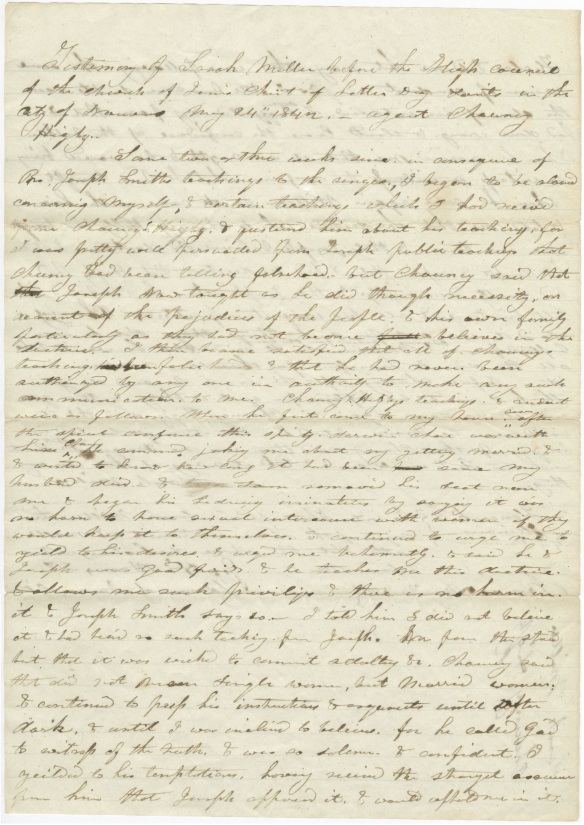
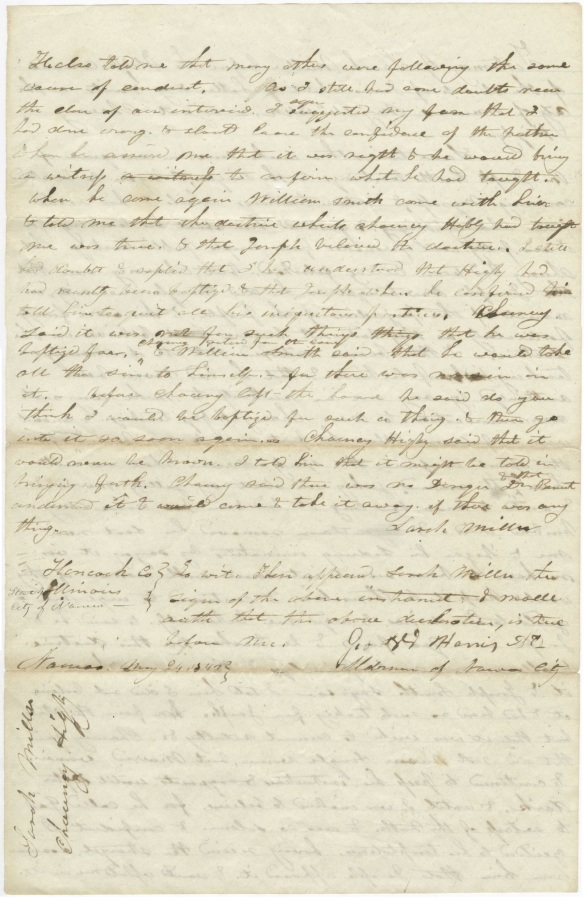 Here is the testimony of Catherine Fuller:
Here is the testimony of Catherine Fuller:
Testimony of Catherine Fuller ^Warren^ before the High Council of The Church of Jesus Christ of Latter Day Saints in the City of Nauvoo May 25th 1842. Against John C. Bennett & others
Nearly a year ago I became acquainted with John C. Bennett, after visiting twice and on the third time he proposed unlawful intercourse,being about one week after first acquaintance. He said he wished his desires granted I told him it was contrary to my feelings he answered there was others in higher standing than I was who would conduct in that way, and there was not harm in it. He said there should be no sin upon me if there was any sin it should come upon himself. I told him I was not guilty of such conduct and thought it would bring a disgrace[?] on the church If I should become pregnant he said he would attend to that. I understood that he would give medicine to prevent it. Sometime last winter ^I became alarmed at my conduct and told him I did not wish his company any longer^ he told me that the heads of the church were conducting in that manner ^and referenced[?] Joseph’s name^ and he thought as he had no good wife[?] as they had, I think this happened last October, He said that Joseph taught and conducted in the above manner, He also was with Mrs Shindle now living beyond Ramus. and also with the two Miss Nymans Hxxx. I do not know that he kept[?] company with any others neither did I hear him say he had.
I have also had unlawful connexion with Chauney Higbee and George W. [or M.?] Thatcher. C. Higbee taught this same doctrine as was taught by ^J C^ Bennett and that Joseph Smith taught and practised those things, but he stated that he did not have it from Joseph but he had this information from Dr. John C. Bennett. He Chancey L. Higbee has gained his object about 5 or 6 times.
XXXXXXXXXXX [William Smith] has also been to my house on the 27th of last month being the day I was married and proposed unlawful connexion but I refused and told him that it was contrary to the teaching of Joseph on the stand. He answered that Joseph was obliged to teach to the contrary on the stand to keep down prejudice and keep peace at home First W. Smith insisted very much that I should not marry and proposed to supply me with food &c if I should remain unmarried and grant his requests Chaucey Higbee also made propositions to keep me with food if I would submit to his designs[p. 8:]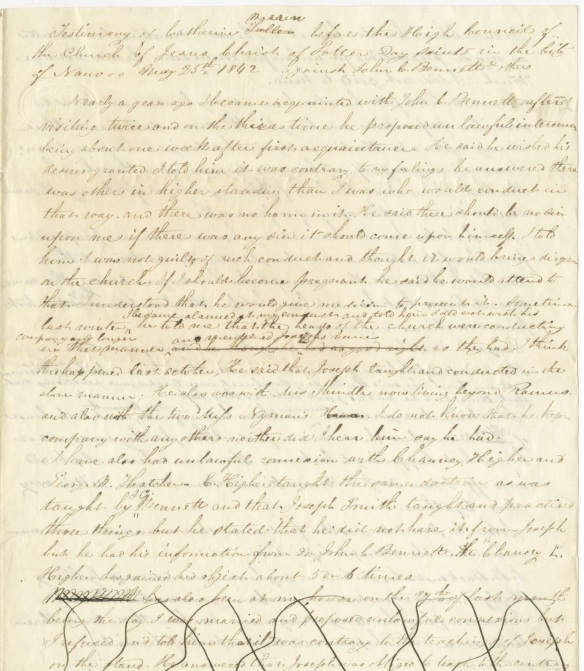
Darwin Chase has also been at my house – sometime last winter as made propositions for unlawful connexion he did not urge much – I did not yeild to him. Liman O. Littlefield has also been at my house – and made similar propositions and taught the same doctrines as those already referred to – He did not gain his designs – because I saw I was ruining myself and bringing disgrace upon the church This took place about the last of January or first of February. He came several times in the space of a few weeks
Joel S. Miles has also been at my house and made propositions for unlawful intercourse and taught similar doctrine to that taught by Bennett. He accomplished his designs twice. He came several times but has not been lately. The above transactions ^This^ took place sometimes in January.
George W. Thatcher has been at my house twice, sometime in the middle of February but not since that time – he had ^unlawful^ intercourse with me twice he said the heads of the church wear teaching and practising such Black things, and he had as good rights as they had. Sometime about a year ago last ^summer^ as I have been informed ^Mrs Bosworth^ went to the house of Mrs ^Alfred^ Brown but the door was fast – I thought they were not at home but happening to look over the door where a clapboard was off, I saw Dr. J. C. Bennett and Mrs Brown sitting very close together John C. Bennett was the first man that seduced me – no man ever made the attempt before him J. B. Backenstos has also been at my house – was introduced by Chaucy Higby – made request similar as above – gave me two dollars – He accomplished his designs only once – has been there two or three times since. This happened in the fore part of this winter–[p. 9:] (ibid, op. cited above).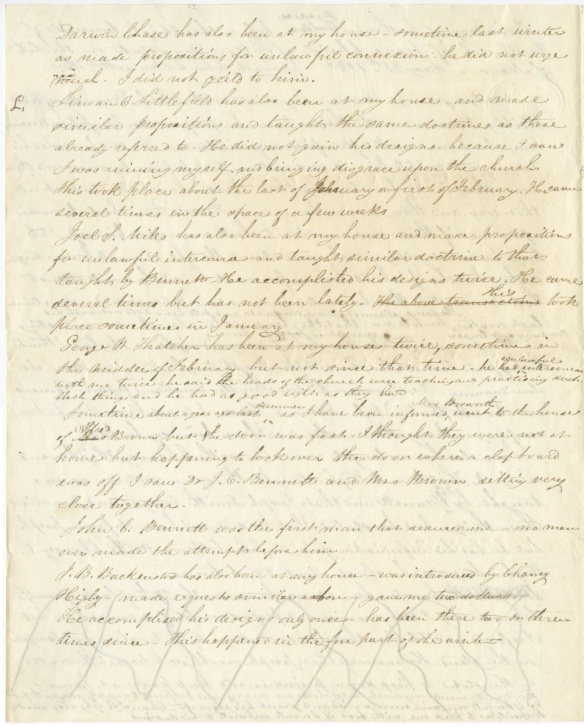
These minutes give an amazing picture of what was going on behind the scenes in Nauvoo in the latter half of 1841. Here we see that William Smith, the brother of Joseph Smith was a partner with John C. Bennett and Chauncey Higbee (and others) in teaching women that having sexual intercourse was no sin, because if they had no accuser, there was no sin. (Remember in the Bible that Satan is called “The accuser of the brethren). There was a whole other dimension to what Joseph was doing with other men’s wives and allowed William Smith to get away with his own seductions. Here are the words of Joseph Smith just months earlier:
7th Sunday I first called upon Br Joseph with some of the Twelve. From thence to B. Young. From thence to the meeting ground near the Temple whare I found many hundreds of Saints. Elder Wm. Clark preached about 2 hours when Br Joseph arose & reproved him as pharisaical & hypocritical & not edifying the people.
Br Joseph then deliverd unto us an edifying address showing us what temperance faith, virtue, charity & truth was. He also said if we did not accuse one another God would not accuse us & if we had no accuser we should enter heaven. He would take us there as his backload. If we would not accuse him he would not accuse us & if we would throw a cloak of charity over his sins he would over ours. For charity coverd a multitude of Sins & what many people called sin was not sin & he did many things to break down superstition & he would break it down. He spoke of the curse of Ham for laughing at Noah while in his wine but doing no harm.
After this meeting closed I met with the Twelve & High Priest quorum: the word of wisdom was brought up. B Young says shall I Break the word of wisdom if I go home & drink a cup of tea? No wisdom is justified of her Children. The subject was discused in an interesting manner. All concluded that it was wisdom to deal with all such matters according to the wisdom which God gave. That a forced abstai-nance was not making us free but we should be under bondage with a yoak upon our necks. I walked out & spent the night at Br Allexanders. (Wilford Woodruff’s Journal, Vol. 2, 1841–1845, p.137, October 7, 1841).
And what was Joseph getting at with his comment about the “curse of Ham for laughing at Noah while in his wine … but doing no harm?” Remember at this time that Joseph was having affairs with other men’s wives. The account in Genesis 9 reads:
And Noah began to be an husbandman, and he planted a vineyard: And he drank of the wine, and was drunken; and he was uncovered within his tent. And Ham, the father of Canaan, saw the nakedness of his father, and told his two brethren without. And Shem and Japheth took a garment, and laid it upon both their shoulders, and went backward, and covered the nakedness of their father; and their faces were backward, and they saw not their father’s nakedness. And Noah awoke from his wine, and knew what his younger son had done unto him. And he said, Cursed be Canaan; a servant of servants shall he be unto his brethren. And he said, Blessed be the Lord God of Shem; and Canaan shall be his servant. (Genesis 9:20-26)
Why would Canaan be the one who was cursed, if it was Ham that had wronged Noah? It states in the account that Ham “saw the nakedness of his father”. And what does the Bible say about that:
The nakedness of your father’s wife you shall not uncover; it is your father’s nakedness (Leviticus 18: 8)
And a man who lies with his father’s wife, who has uncovered the nakedness of his father... (Leviticus 20: 11)
Cursed is he who lies with his father’s wife, because he uncovers his father’s skirt (Deuteronomy 27: 20)
The account also mentions garments and in the Book of Jasher (which Smith had access to) it reads:
And in their going out, Ham stole those garments [the garments of Adam] from Noah his father, and he took them and hid them from his brothers. And when Ham begat his first born Cush, he gave him the garments in secret, and they were with Cush many days. (Jasher, 7:27-8)
After that, the garment was given to Nimrod who becomes a great warrior king. What is interesting is that when the Jaredites supposedly left Babel, their number included some of the descendants of Ham, and when Smith did his initial “translation” of one of the Kinderhook Plates he claimed that it was all about a king who was a descendant of Ham.
Could the Canaanites have been cursed because Canaan was the illicit offspring of a union between Ham and Noah’s wife Naamah? In the following testimony we will see that this idea of some sin not being sin at all had caught on in Nauvoo:
Matilda Nyman testified:
Testimony of Matilda Nyman before the High council of the Church of Jesus Christ of Latter day Saints in the city of Nauvoo, May the 21. 1842 Against Chancy Higby
During this Spring Chancy L Higby kept company with me from time to time, and as I have since learned Wickedly, deceitfully and with lies in his mouth, urged me vehemently to yeald to [his] desires, that there could be no wrong in having sexual intercourse with any female that would keep the same to herself, Most villianously and lieingly Stating that he had been so instructed by Joseph Smith and that there was [no] sin where there was no accuser -, also vowing he would Marry me. Not succeeding, he on one occasion, brought one in Authority in the Church, [William Smith] who affirmed that such intercourse was tolerated by the heads of the Church, I have since found him also to be a lieing conspirator against female virtue & chastity, having never received such teachings from the heads of the church ; but I was at the time partially influenced to believe in consequence of the source from whom I received it, I yealded and became subject to the will of my seducers[sic] Chancey L. Higby–– And having since found out to my satisfaction that a number of wicked men have conspired to use the Name of Joseph Smith, or the heads of the Church, falsely & wickedly, to enable them to gratify their lusts, thereby destroying female innocence & virtue I repent before god & my brethren and ask forgiveness.
I further testify that I never had any personal acquaintences with Joseph Smith, & never heard him teach any such doctrines as Higby, sta either directly or indirectly ––Matilda J. Nyman
Hancock Co} To wit: Nauvoo city, May 24, 1842. Then personaly appeard State Illinois} Before me, Geo. W. Harris, alderman of said city, Matilda J. Nyman the signer of this instrument & testified under oath that the above decaration[sic] was true. Geo W Harris Ald[p. 14:] (1842 High Council Minutes, op. cited above).
These documents accuse William Smith of being involved with the women who also testified about Chauncey Higbee and John C. Bennett. It brings to mind what Lorenzo Snow once said and Abraham H. Cannon recorded in 1890:
Wednesday, April 9, 1890: Very nice day. From 7 a.m. till 10 o’clock I was busy at the office looking over the mail and attending to other matters of business. At the latter time I went to the Historian’s office where all the brethren met who were present last evening. After the singing of two hymns and prayer Pres. Snow arose and expressed his pleasure at our fasting (which we all did this morning) and our meeting. He said: Everyone of us who has not already had the experience must yet meet it of being tested in every place where we are weak, and even our lives must be laid on the altar. Brigham Young was once tried to the very utmost by the Prophet, and for a moment his standing in the Church seemed to tremble in the balance. Wm. Smith, one of the first quorum of apostles in this age had been guilty of adultery and many other sins. The Prophet Joseph instructed Brigham (then the Pres. of the Twelve) to prefer a charge against the sinner, which was done. Before the time set for the trial, however, Emma Smith talked to Joseph and said the charge preferred against William was with a view to injuring the Smith family. After the trial had begun, Joseph entered the room and was given a seat. The testimony of witnesses concerning the culprit’s sins was then continued. After a short time Joseph arose filled with wrath and said, “Bro. Brigham, I will not listen to this abuse of my family a minute longer. I will wade in blood up to my knees before I will do it.” This was a supreme moment. A rupture between the two greatest men on earth seemed imminent. But Brigham Young was equal to the danger, and he instantly said, “Bro. Joseph, I withdraw the charge.” Thus the angry passions were instantly stilled. (Abraham H. Cannon Diary, April 9, 1890, our emphasis).
So Joseph not charging William is blamed on Emma Smith? In these documents William’s name is scratched out in places; [by order of Emma Smith?] and he was never charged for any crimes as both Higbee and Bennett were. Smith also claimed that he was teaching Joseph’s doctrine. He also claimed that Joseph was obliged to teach “on the stand” things that “were the opposite” of what he was teaching in private, the very things that William Smith was teaching. The only difference in what they were teaching was that in Joseph’s case, it was claimed later that he performed a “marriage” (or sealing) ceremony, while Bennett and William Smith apparently did not. But in some cases that involved Joseph Smith, we know of no marriage/sealing ceremony, such as with the Mary Heron Snider and Fanny Alger. After this, Joseph evolved his doctrine and stopped having relationships with other men’s wives. John Dinger relates the story accepted by many historians:
Beginning in 1842, Joseph Smith experienced a painful falling out with his former confidant, John C. Bennett. On May 17, Bennett resigned as mayor (replaced by Smith), and on May 19 his resignation was accepted by the city council, which resolved to: “tender a Vote of Thanks to Gen[era]l John C. Bennett, for his great Zeal in having good & wholesome Laws adopted for the Government of this City, & for the faithful discharge of his Duty while Mayor of the same.” Apparently, Bennett had secretly taught that worthy couples, married or not, could engage in sexual relations on the condition that they keep their behavior a secret. Rumors circulated that his doctrine had been authorized by Joseph Smith. In fact, Smith by this time had contracted several polygamous marriages and proposed to, and was rejected by, a handful of women. Though some of the gossip regarding Smith was true, Bennett’s teachings had not been sanctioned by Smith, and at his resignation as mayor Bennett signed an affidavit clearing Smith of moral impropriety. Though Bennett said he wanted to regain his Church membership, the situation turned ugly over the next several months. In mid-June 1842, Smith went public with his criticism, and Bennett left Nauvoo a few days later. On June 27, the nearby Sangamo Journal published a Bennett letter vowing to retaliate by exposing every secret he knew about Nauvoo. In fact, in successive letters, he explained what he knew of Smith’s and other leaders’ involvement in polygamy. Smith’s first documented plural marriage occurred in Nauvoo in April 1841. Two years later, on July 12, 1843, Smith recorded a revelation regarding polygamy (D&C 132) and the next month saw his brother Hyrum broaching the topic with the high council. At that meeting, Councilman Dunbar Wilson “made inquiry in relation to the subject of a plurality of wives, as there were rumors about[,] respecting it, and he was satisfied there was something in those remarks, and he wanted to know what it was.” Joseph was home ill, so Hyrum read the July 12 revelation to the group and stated, “Now, you that believe this revelation and go forth and obey the same shall be saved, and you that reject it shall be damned.” Several high councilmen subsequently rejected the revelation, including William Law, William Marks, Leonard Soby, and Austin A. Cowles. Prior to being officially taught the doctrine of plural marriage, the high council had investigated rumors of various Church members accused of entering into multiple marriages. Beginning on May 21, 1842, the high council handled the first of twenty-three cases which arose, in large measure, from the nascent doctrine of plural marriage. (Dinger, John S., The Nauvoo City and High Council Minutes, Kindle Edition, Signature Books, Locations 520-544).
On January 3, 1844 these High Council Minutes record what Joseph Smith related about those who didn’t keep his “Spiritual Wife System” secret:
[The] Mayor spoke on [the] Spiritual wife system and explained, The man who promises to keep a secret and does not keep it he is a liar and not to be trusted. (ibid, 6346-6347, our emphasis).
Wilford Woodruff recorded these words of Joseph Smith on December 18, 1841:
The reason we do not have the Secrets of the Lord revealed unto us is because we do not keep them but reveal them. We do not keep our own secrets but reveal our difficulties to the world even to our enemies. Then how would we keep the secrets of the Lord? Joseph Says I can keep a secret till dooms day. (Wilford Woodruff’s Journal, Vol. 2, 1841–1845, 143).
This is what Brigham Young once said about Oliver Cowdery in relation to Fanny Alger:
Presidet Young staid 3+ hours in Compiling his History. He remarked that the revelation upon a plurality of wives was given to Joseph Smith. He revealed it to Oliver Cowdery alone upon the solem pledge that He would not reveal it or act upon it it but He did act upon it in a secret manner & that was the cause of his overthrow. (Wilford Woodruff’s Journal, Vol. 5, p. 84, August 26, 1857).
Of course, all Cowdery did was claim that Smith had committed adultery. That was the secret that Joseph told Cowdery, there is no credible evidence that he spoke to Cowdery about having more than one wife.
Along with John C. Bennett and Chauncey Higbee, there were others who were involved with making proposals to women. They were John Darwin Chase, Joel S. Miles, Lyman O. Littlefield, Justice Morse, J. D. Backenstos and William Smith. Most of these men were friends or bodyguards of Joseph Smith. Both Chase and Miles were Danites and were among the men that Joseph Smith chose to accompany him to Monmouth after he was arrested on charges from Missouri in 1841:
Monday, 7.—I started very early for Monmouth, seventy-five miles distant (taking Mr. [Sheriff Thomas] King along with me and attending him during his sickness), accompanied by Charles C. Rich, Amasa Lyman, Shadrack Roundy, Reynolds Cahoon, Charles Hopkins, Alfred Randall, Elias Higbee, Morris Phelps, John P. Greene, Henry G. Sherwood, Joseph Younger, Darwin Chase, Ira Miles, Joel S. Miles, Lucien Woodworth, Vinson Knight, Robert B. Thompson, George Miller and others. We traveled very late, camping about midnight in the road. (History of the Church, Vol. 4, p.366, June 7, 1841)
These men were all very close to the Mormon Prophet; one of Joseph’s future Spiritual Wives was the daughter of the “Pagan Prophet”, Lucien Woodworth. Some were scribes, some were Danites and all were trusted confidants.
Joel S. Miles was also a County Constable, and in one family history John Darwin Chase was said to be a Bishop in Nauvoo. Lyman O. Littlefield was a typesetter for the Church affiliated with the Nauvoo Neighbor, (edited by John Taylor) and also worked at the Times and Seasons. Darwin Chase also spent time with Joseph Smith in a Missouri jail. Brian Hales writes:
Lyman O. Littlefield, who knew the Prophet in Nauvoo, recalled in 1883:
“I have the best reasons for believing it [celestial and plural marriage] was understood and believed by him (Joseph Smith, the Prophet) away back in the days when he lived in Kirtland . . . he was instructed of the Lord respecting the sacred ordinance of plural marriage; but he was not required to reveal it to the Church until sometime during the residence of the Saints in Nauvoo.” (Hales, op. cited, Online here, Accessed February 12, 2015).
Littlefield’s 1883 “Open letter” to Joseph Smith the III, published in The Millennial Star (which Hales quotes above) is interesting. He writes:
The doctrine of celestial marriage, I have the best reasons for believing , was understood and believed by him away back in the days when he lived in Kirtland, when he and the Saints, in their poverty were toiling to erect that sacred edifice wherein you now falsify him, seeking, by your unsupported declarations, to nullify his most sacred doctrines. Even there, as I believe, he was instructed of the Lord respecting the sacred ordinance of plural marriage; but he was not required to reveal it to the Church until some time during the residence of the Saints at Nauvoo, where he received a revelation from the Lord setting forth in detail the results to be obtained by keeping inviolate all the laws connected with this sacred condition of things. And in consequence of the prejudices of the Saints and the tide of persecution which he well knew he would have to encounter from the outside world, wherein his life would be endangered, he delayed, as long as possible, to make this principle known, except to a few of the most faithful and humble of the Saints. The boy Joseph [III], while playing in the streets and vacant lots of Nauvoo, very likely did not know of these things, nevertheless the writer knew that the elder Joseph then practiced and taught [though not publicly] this doctrine. And further, he then knew some of the women to be his wives who subsequently, in Utah, reported themselves to his sons, Joseph and David, while here, as such wives. (Lyman O. Littlefield, “An Open Letter Addressed to President Joseph Smith, jun., of the Re-organized Church of Jesus Christ of Latter-day Saints,” Millennial Star 25, June 18, 1883, 387).
Yet the testimony of some of the women that claimed they were taught by John C. Bennett, William Smith, and Chauncey Higbee about Joseph’s spiritual wife doctrine also claimed that Littlefield was among those doing so and proposing to have sexual intercourse with them:
Testimony of Catherine Fuller –
L. [yman] O. Littlefield had been at my house, and made propositions to have unlawful intercourse – he urged hard_ this was about the last of January or first of February – had been 3 or 4 times in course of 2 or 3 weeks_ he urged doctrine such as the following – namely – that there was no harm in having unlawful intercourse – that others conducted in the same way – there there [sic] should be no sin come upon her – if there was any it should come upon himself; that the heads of the church were practising the same things – named Joseph Smith – he urged this doctrine – was there about the first of February about 8 in the evening (1842 High Council Minutes, op. cited above).
Caroline Butler testified:
I have frequently seen Darwin Chase & Chancy Higby go to Widow Fullers frequently – have seen Joel S. Miles go there – have seen L.[yman] C. [sic- O.] Littlefield go in there (ibid, added emphasis).
Catherine Fuller also testified that:
Darwin Chase has also been at my house – sometime last winter has made propositions for unlawful connexion he did not urge much – I did not yeild to him.
Liman O. Littlefield has also been at my house – and made similar propositions and taught the same doctrines as those already referred to – He did not gain his designs – because I saw I was ruining myself and bringing disgrace upon the church This took place about the last of January or first of February. He came several times in the space of a few weeks
Joel S. Miles has also been at my house and made propositions for unlawful intercourse and taught similar doctrine to that taught by Bennett. He accomplished his designs twice. He came several times but has not been lately. The above transactions ^This^ took place sometimes in January. (ibid, added emphasis).
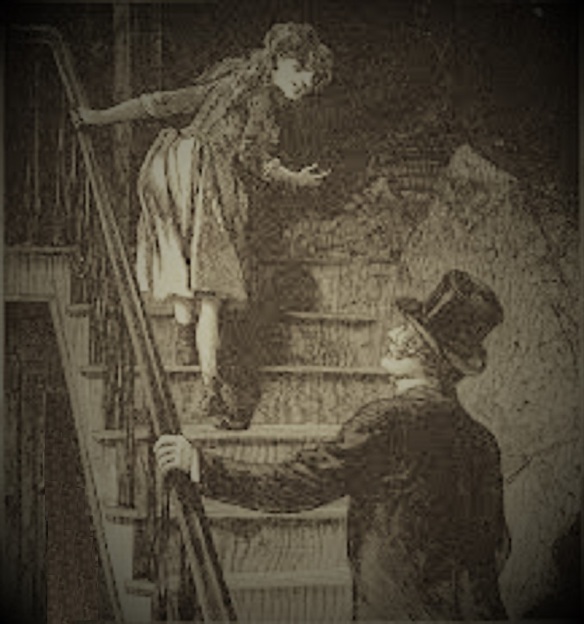 So Littlefield knew all about what Joseph was doing? Why did Joseph’s bodyguards teach and propagate such things? Wilford Woodruff wrote about the proceedings:
So Littlefield knew all about what Joseph was doing? Why did Joseph’s bodyguards teach and propagate such things? Wilford Woodruff wrote about the proceedings:
The first Presidency The Twelve & High Council & virtuous part of the Church are making an exhertion abo[u]t these days to clense the Church from Adulterors fornicators & evil persons for their are such persons crept into our midst. The high council have held a number of meeting[s] of late & their researches have disclosed much iniquity & a number [have] been Cut off from the church. I met with the High Council to day on the trial of L[yman] O. Littlefield[,] Joel S Miles & Darwin Chase. The two former were cut of[f] for Adultery & the case of D[arwin] Chase was put of[f] till tomorrow” (Wilford Woodruff’s Journal, 2:177).
The next day Woodruff wrote:
28th The case of D. Chase was tryed & he restored to fellowship by the majority of own[ly?] 1 vote. (ibid, added emphasis).
The one vote was Joseph Smith! (see below) Notice that Littlefield and Miles get “cut off” and Chase did not. Why? Chase kept his secret and did not tell them that Joseph Smith authorized it. The adultery was ok, but not revealing the secret that Joseph was teaching it. Higbee also told them Joseph taught the same, as did Bennett and William Smith. The minutes concerning Chase read:
Catherine Fuller. – States that Darwin Chase has been at her house sometime in winter – made proposals to have unlawful intercourse – said it was no harm_
Melinda Lewis – States that she once saw Darwin Chase and another in Widow Fullers house at night
Caroline Butler – has frequently seen Darwin Chase go to Widow Fullers
Maria Champlin – saw Chase with Littefield one night Xxx last sabbath-came to Kingsleys about 5 o clock – about dusk rode out with one of the Miss Kingsley’s to the prairie- returned about 10 o clock – some time after L. O. Littlefield had returned – tarried about one hour after- said that Joseph tried to persuade men to act wickedly and then exposed them.
Polly Mecham – saw Darwin Chase with L. O. Littlefield, come to Kingsleys last sabbath – on foot- spoke concerning terrible things going on in Nauvoo –
Darwin Chase was rebuked, after he had partially confessed. Moved by the Prest [Joseph Smith] that Bro Chase retain his standing &c.
The High Council Minutes for May 24-28, read:
May 24, 1842; Tuesday. The High Council met according to appointment at the Lodge Room. 1st. The testimony of Mrs Sarah Miller and Miss Margaret [Nyman] and Matilda Neyman were taken relative to the charges of ^against^ Chancy Higbee and others showing the manner of iniquity practised by them upon female virtue & the un-hallowed means by which they accomplished their desires. Adjourned till tomorrow at 12 o’clock. H[osea] Stout.
May 25, 1842; Wednesday. The [High] Council met according to adjournment[.] 1st. [A] charge [was preferred] against John Haddon by H[enry] G. Sherwood for unlawfully detaining from Harriet Parker, her house and premises. Done in her behalf[,] the defendant did not appear. The charge was fully sustained. On motion [it was] resolved that he be disfellowshipped until he make satisfaction to H[enry] G. Sherwood and restore the house to Harriet Parker. 2. [A] Charge [was preferred] against Mrs. Catherine Warren by George Miller for unchaste and unvirtuous conduct with John C. Bennett and others. The defendant confessed to the charge and g[a]ve the names of several other [men] who had been guilty of having unlawful intercourse with her[,] stating that they taught the doctrine that it was right to have free intercourse with women and that the heads of the Church also taught and practised it[,] which things caused her to be led away thinking it to be right but becoming convinced that it was not right[,] and learning that the heads of the church did not believe of [the] practice [of] such things[,] she was willing to confess her sins and did repent before God for what she had done and desired earnestly that the Council would forgive her and covenanted that she would hence forth do so no more. After which she was restored to fellowship by the unanimous vote of the Council. 3. On motion [the] Council ^adjourned^ till tomorrow Friday the 27th ins[tant] at 12 o’clock at this place. Hosea Stout Clerk.
May 27, 1842; Friday. [The High] Council met according to adjournment. 1st. [A] charge [was preferred] against Lyman O Littlefield by Geo[rge] Miller for improper and unvirtuous conduct and for teaching false doctrine. [He] plead not Guilty[.] Two were appointed to speak on each side[,] viz. (1) Sam[ue]l Bent[,] (2) James Allred[,] (3) Lewis D. Wilson[,] and (4) Wilford Woodruff[.] The charge was sustained. On motion [it was] Resolved — That he be disfellowshipped untill he make satisfaction to this Council. 2. [A] charge [was preferred] against Darwin Chase by Geo[rge] Miller for improper and unvirtuous conduct and for teaching false doctrine. Plead not guilty[.] Two were appointed to speak on the case[:] Viz. (5) David Fulmer and George W. Harris. The defendant plead for an adjournment for the want of evidence[.] On motion [it was] resolved — That this case be adjourned till tomorrow at 1 o’clock at this place. 3rd. [A] charge [was preferred] against Joel S. Miles by George Miller for improper and unvirtuous conduct and for teaching false doctrine. [He] plead not guilty. Two were apointed to speak on the case — Viz. (7) Tho[ma]s Grover and (8) Aaron Johnson. The charge was fully sustained[.] On motion [it was] resolved that he be disfellowshiped[.] until Adjourned till tomorrow at 1 o’clock at this place. Hosea Stout Clerk.
May 28, 1842; Saturday. [The High] Council met according to adjournment. 1st. [A] charge [was preferred] against Justis Morse by George Miller for unchaste and unvirtuous conduct with the daughter of the Widow Neyman &c &c Charge was sustained The defendant did not apear before the Council but upon being cited to apear before the Council he ordered his name to be struck off of the Church Book as he did not wish to stand a trial Two were appointed to speak on the case[,] viz — (9) Newel Knight and (10) William Huntington. [The] charge was sustained On Motion of President Austin Cowles — Resolved — That he (the defendant) be disfellowshiped. 2nd. The Charge against Darwin Chace (of the 27th inst[ant]) was taken up according to adjournment. [The] charge [was] not sustained[.] The President decided that he should be restored to full fellowship which was carried by a majority of 8 to 4. After which the case spoken on by different ones of the Council to show further light on the subject and showing reasons why they did not secede to the Presidents decisions. The President again called on the council to sanction his decision which was done unanimously ^which was carried unanimously^. On motion adjourned till Saturday the 4th of June at [blank] o’clock at Hiram Smith’s office. Hosea Stout Clerk. (Dinger, John S., op. cited above, Locations 11332-11377).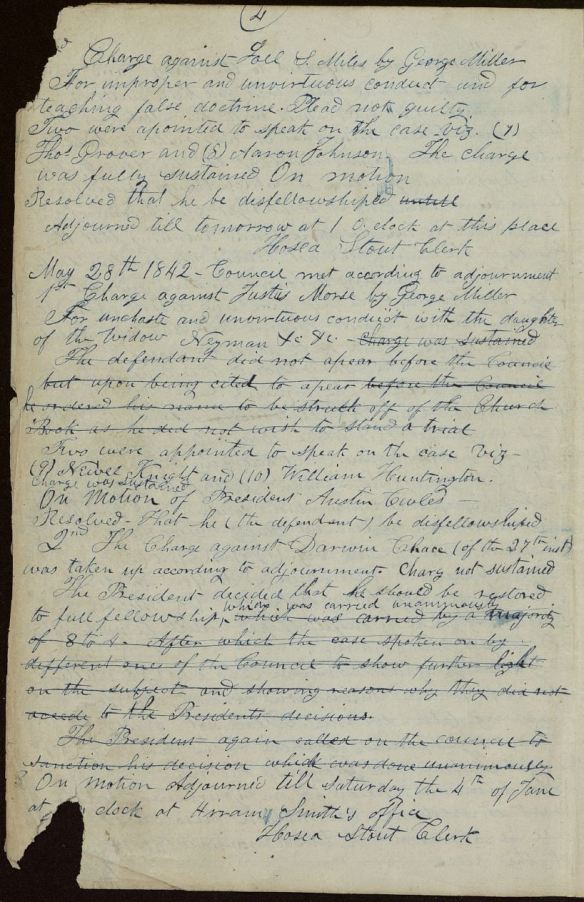
These minutes are amazing in that they show that Joseph was unjustly using his position as President of the Church to overturn the High Council’s decision to cut off Darwin Chase (the Danite). Lyman O. Littlefield would later write:
During the period of which I am now writing (1843-4) a subtle and malicious undercurrent was silently and stealthily running and spreading through the circles that composed the society of Nauvoo. As well as the glorious doctrines of baptism for the dead, there were many other truths of vital moment which were revealed to the members of the Church through the agency of the Prophet Joseph Smith. Some of the doctrines were construed by evil disposed persons in a way to place them in a false light before the people by placing upon them interpretations different from what their real import would justify. There were those ready and willing to embrace the opportunity of fabricating false deductions for the purpose of counteracting or lessening the great influence which Joseph wielded against all who practiced any species of evil in society. Among these were disaffected persons, some of whom possessed ability, cunning and a degree of influence. Some of them were persons who were ambitious for promotion and advancement into public favor, a portion seeking social, political or religious advancement, according to their taste. But Joseph was the man who stood boldly in the Thermopylae to defend the innocent and unsuspecting and direct their minds in the true channel that pointed the way to eternal blessings. (Lyman Omer Littlefield, Reminiscences of Latter-day Saints, 156-157).
The Temple Lot testimony of Littlefield sheds more light on what he actually did know about what was going on in Nauvoo:
16. Q—State to the reporter Mr. Littlefield, what you know in regard to the doctrine of plurality of wives, or as it is commonly called, polygamy, being taught in the church of Jesus Christ of Latter Day Saints in Nauvoo before the death of Joseph Smith? A—Well I can tell what I know about it, what I know about that doctrine being taught. Do you want to know?
17. Q—Just answer the question? A—Well I was cognizant of the fact that that doctrine was taught there, and it was understood by a great many people that it was taught, and not only taught but practiced. I knew it was known by a great many people I understood that matter perfectly but it was not taught to the whole church generally, but it was taught privately so that a great many people understood it and knew it was practiced, too up to that date.
18. Q—Mr Hall, Up to that date? A—Up to that time previous to the death of Joseph Smith, senior, Now what I mean by that is that it was not taught publicly from the stand, but it was so taught that the people, or a great many of them understood that doctrine, and some of them practiced it, at least if it was taught from the stand I didn’t know it, for I never heard it taught from the stand but I know it was taught and practiced secretly, and was not given to the whole church as a principle according to the best of my knowledge in the days of Joseph.
19. Q—I would like to ask you Mr Littlefield if you were taught that principle? A—Yes sir, I was taught that doctrine or principle, and conversed upon it with different parties but I never was taught that doctrine from Joseph Smith himself, personally, but the doctrine was talked of between myself, and a great many other parties, and always with the understanding that it had its origin, with Joseph Smith the prophet, himself. (Lyman O. Littlefield, Temple Lot Testimony, Msd 1160, Box 1, fd 12, CHL, p. 148-149)
Yet, in Nauvoo, the women claimed that Littlefield told them he got what he was teaching directly from Joseph Smith. He claimed to know what Joseph taught and practiced, and who Joseph was involved with.
Why then, was Littlefield teaching the same doctrines as John C. Bennett and William Smith? Littlefield did appear to be in Smith’s good graces, and then was not. Just three months before the women began to testify about Bennett, William Smith and Littlefield, a curious (and ribald) marriage notice appeared in the February 15, 1842 issue of the Times and Seasons (which Joseph Smith was the Editor of):
Married-In this city on the 6th inst. by the Rev. Erastus H. Derby, Mr. Gilbert H, Rolfe, to Miss Eliza Jane Bates, all of this city.
On receipt of the above notice, we were favored with a rich and delightful loaf of cake by no means below the medium size; which makes us anxious that all their acts through life may be justified; and when life wanes and they find a peaceful abode in the “narrow house,” may the many outs and ins they have made, leave to the world an abundant posterity to celebrate their glorious example.
Married-In this city by Pres’t. Hyrum Smith, Mr. J. W. Johnson to Miss Elizabeth Knight, all of this city.
The above notice was accompanied with the usual Printer’s fee, (a nice piece of bridal cake,) for which we tender our sincere thanks, and our best wishes for the future prosperity of the happy pair. Ed.
Notice that Smith’s Editor identification appears after the notices. What he perhaps did not foresee was the blowback from the risqué nature of the first notice which made a joke about the “ins and outs” of intercourse. The avowed enemy of the Mormons, Thomas Sharp in his Warsaw Signal, had a field day with the ribald notice.
In order to extricate himself from this inauspicious beginning of his editorial career, Smith had Ebeneezer Robinson make up an obvious lie that Smith wasn’t the editor, even though he had printed a notice in that issue that he (Robinson) had taken “leave of the editorial department of the Times and Seasons, having disposed of my entire interest in the printing establishment, book-bindery, and stereotype foundery [foundry], and they are transferred into other hands. The Editorial chair will be filled by our esteemed brother, President Joseph Smith, assisted by Elder John Taylor, of the Quorum of the Twelve…”
Here is Robinson’s March 15, notice:
TO THE PUBLIC.
Lest wrong impressions should obtain abroad, detrimental to the interest and influence of President Joseph Smith, respecting a marriage notice, which appeared in the Times and Seasons, of the 15th of February ult. I deem it a privilege to make a short statement of facts concerning the matter, which, I am confident, will entirely exonerate that gentleman from all blame or censure, which may have been put upon him on account of the publication of said notice.
On the 6th of Feb. I gave possession of the establishment, to Willard Richards the purchaser on the behalf of the Twelve; at which time my responsibility ceased as editor. On the 7th this marriage took place, and the notice was written by one of the hands in the office, and put in type by one of the boys, without, undoubtedly, any expectation of its being printed. At this time it was not fully decided whether President Smith should take the responsibility of editor, or not, therefore that paper went to press without his personal inspection; and as this article was standing in type with the other matter, it found its way into the paper unnoticed, as both the person who wrote it, and the boy, together with either journeymen, had been discharged by the purchasers, also, the proof reader did not observe it, as the words used were printer’s phrases and he was not looking for any thing indecorous or unbecoming. The first time Pres’t Smith or myself saw the article, was after the papers had been struck off, when it was too late to remedy the evil. We both felt very sorely mortified, at the time; but I am fully persuaded that the kind readers of the Times will cheerfully overlook whatever fault there may be, as that was the first time any such thing ever appeared in the columns of this paper, and not attribute any blame to Pres’t Smith, as he is not guilty in the least, and had no knowledge of the thing until it was too late.
I will here take the liberty to state that from an intimate acquaintance of near seven years with Pres’t. Joseph Smith, I never yet have seen a single indecent or unbecoming word or sentence, from his pen, but to the reverse; therefore I can with all confidence, assure the patrons of this paper, that they have nothing to fear, but every thing to hope for, in the exchange of editors.
E. ROBINSON.
So, the type setters had been disharged, but had set the type before they left? And no one checked it? The proof reader wasn’t looking for anything indecorous? The editor (Joseph Smith) wasn’t really the editor? Unfortunately, this didn’t suffice as Smith had his name attached to that very issue as its Editor:
Nauvoo, Feb. 15, 1842.
TO SUBSCRIBERS.
It will be noticed in the above communication of our much respected friend, E. Robinson, Esq. that the paper is no longer printed, and published by that gentleman; but that it has fallen to our lot to issue this valuable and interesting periodical, and to take the Editorial chair.
We esteem our predecessor for the honorable course that he has taken in the defence of righteousness, and in the support of truth. He has done honor to the cause he espoused; he has stood firm in the day of adversity; and when foes frowned, and persecution raged, in the midst of pecuniary embarassments, (growing our to our persecutions in Missouri,) he hss boldly, nobly, stood in the cause of freedom, of liberty, and of God; he has gone forward with a steady course; he has stemmed every torrent, braved every danger, and borne down all opposition: and amidst accumulated difficulties, truth has triumphed, error and misrepresentation has been frowned down; and bigotry, superstition, and ignorance have hid their hoary heads in shame.
The “Times and Seasons” is now read with interest in almost every city throughout the length, and breadth of this vast republic, -it has crossed the great Atlantic; and through it multitudes of the inhabitants of England are made acquainted with what is transpiring in the far famed “West.”
We siucerely give Mr. Robinson this meed of praise and as he is now retiring from the field, crown him with those laurels which under God he has fairly, and honorably won.
As it regards ourselves we have very little to say, but shall leave it for the future to unfold; and for a discerning public to judge. The important events that are daily transpiring around us; the rapid advance of truth; the many communications that we are receiving, daily, from elders abroad; both in this country, in England, from the continent of Europe, and other parts of the world; the convulsed state of the nations; the epistles and teachings of the Twelve; and the revelations which we are receiving from the most High, will no doubt furnish us with material to make this paper interesting to all who read it, and whilst we solicit the patronage, and support of our friends, we pray that the God of Israel may inspire our hearts with understanding and direct our pen in truth. Ed. (Joseph Smith)
If this is how Smith treated his editing duties, having notices printed in the paper that were false, then it really was an ignoble beginning to his editorial career. In the same March 15th issue that the Robinson apology appears in, this letter also appeared written by Littlefield (who was a type setter, or compositor for the paper):
For the Times and Seasons.
Nauvoo, March 14, 1842.
President Joseph Smith:—
Dear Sir: I see, in the last ‘Warsaw Signal,’ a very wanton and ungentlemanly attack upon yourself, made by the editor of that paper. The editor’s article, however, is in perfect keeping with his fell and natural spirit for calumniating the innocent and oppressed. I have, for some time past, been a constant reader of that paper, and feel myself perfectly safe in saying, that scarcely a single number of it has ever been issued, that was not surcharged with epithets of the foulest and basest character, perpetrated against a high-minded and intelligent portion of community, and fabricated by himself—or some individual equally as corrupt—to answer his own wicked and nefarious purposes.
What I allude to, more particularly, is his remarks relative to a marriage notice which appeared in a former number of the Times and Seasons, charging you with being its author. I should have remained silent upon this subject, had he made the attack upon any individual but yourself. But justice to your character renders it an imperious duty for me to speak and exonerate you from the false imputations of the editor. Therefore, be it known to that gentleman—if his heart is not wholly impervious to declarations of truth—that the little notice that has so much ruffled his very chaste and moral feelings, emenated from the pen of no individual other than—myself (!) “Urekah! Urekah!!” Then I would say to the sagacious editor of the Signal—
“Hush, babe, lay still and slumber!”
I speak knowingly when I say, that notice went in the Times and Seasons entirely without your sanction, and you knew nothing of its existence until that edition had been ‘worked off’ and circulated—the proof sheet not being examined by you.
After this declaration, I hope the editor of the Signal will do you the justice to exculpate you from the wholesale charges which I have been, in some degree, the means of calling upon your head; and, if he must blame any person for the notice, let his anathemas, like an avalanche, flow upon me—I will bear the burthen of my own foibles.
With sentiments of respect,
I remain, Sir, your ob’t serv’t,
L[yman] O. LITTLEFIELD.
Littlefield had fallen upon his sword for the Mormon prophet. But then, two months later Smith learns that Lyman had been going around telling women about his secret teachings, something that irked the prophet to no end.
Nauvoo, Ill.,)
Feb. 16, 1844.)
President Joseph Smith:—
Dear Sir: Permit me to address you a few lines. I have not, heretofore, obtruded a communication upon you, or troubled you relative to my cause. It would be supurfluous to enter into preliminaries. It is as well known to yourself as to me that there has a difference existed between us, for sometime. At least, I have had good reasons to believe that your feelings were somewhat insenced at me. My object in penning this letter is to have this matter honorably and amicably adjusted. Am I to be disappointed? On my part, be assured, there shall be nothing lacking. May I hope for the like reciprocal feelings in you? All I shall require is for you to say that you will forgive me my past foibles. Will you do it? A request of this nature would once have been looked upon by me as the greatest humiliation. I could not have humbled myself so much, in my own estimation at least, as to ask forgiveness of mortal man, and more particularly of one elevated so far above me, by a boundless popularity. To have asked it of an equal, or an inferior, would have been deemed a far less condescension. This was my nature— this was according to my notions of honor. This may account for my long silence upon this subject. I have been graciously informed by friends that to first approach you on this subject would partake too much of the character of a sycophant. (!) But I am willing to leave you to judge whether this course is more sycophantic than the acts of <, probably,> the very <probably> individuals whose enlarged views upon rules of ettiquett caused them to make this remark. It is not so,— I am acting honorably. I take this course because I have learned that to Joseph Smith have been committed the keys of the Kingdon of Heaven which are not to be taken away in this world or in the world to come. Then there is no sacrifice too great for me to lay at your feet. All I possess, all I am, all I expect to be, is dedicated to the cause of God. I conjure you, by my hope of salvation, by all I hold most dear in life, to accept the offering,— though poor and useless it may be to you. Brother Joseph, my very soul is bound up in the cause of Jesus Christ,— my highest ambition is to do the will of my Heavenly Father. May I hope for the seal of your approbation that I may be accounted worthy of bearing a humble part in the great work of the last days. If you have anything against me I wish you to forgive me and let th[e] past be forgotten. I know I have act rong; but I am not as guilty as I believe you have deemed me. My errors have principally been errors of the head and not of the heart. I have, at times, been very weak in the faith; but I thank my God that I have never lifted my voice or pen in denoun denunciations of Mormonism. <That> May this <it may> ever be the case that I shall not fight against the cause of Christ is the desire of my heart, that I may at last obtain a rest in the Celestial Kingdom. I close by saying, it is human to err, but magnanimous to forgive.
Withe sentiments of respect,
L. O. Littlefield
To President Joseph Smith,)
Nauvoo, Illinois.) [p. [3]]
P.S. I would be pleased to hear from President Smith, personally or in some other way, when convenient to himself.
L. O. L.
Gary James Bergera writes that:
John C. Bennett, the prophet’s talented, egotistical ally, had lodged with the Smiths from September 1840 to July 1841. [This is when the Goddards claimed that he was having an affair with Sarah Pratt and was with her for nearly the whole month of October, 1840] In fact, the thirty-seven-year-old Bennett had been privy to Smith’s April 1841 plural marriage and was conversant with his controversial teachings. Consequently, he believed he too was authorized, whether or not Smith conveyed such an impression, to initiate himself and others into the prophet’s new order. Smith worried that the enthusiasm with which Bennett embraced the celestial doctrine, and especially his introduction of it to others without Smith’s permission, failed to emphasize sufficiently the religious aspects of his revelation and thus exposed the church to the condemnation of nonbelievers. (Smith required a marriage/sealing ceremony be performed with his permission by an authorized priesthood holder prior to sexual contact; Bennett believed that worthy couples, married or not, could engage freely in sexual activity provided they keep their conduct a secret.) By the spring of 1842, Bennett’s sexual escapades had made him a liability, especially when rumor connected his and the prophet’s names. “We have been informed,” Smith and other ranking church leaders (including some already officially introduced to the prophet’s teachings) wrote to the Relief Society in late March,
that some unprincipled men, whose names we will not mention at present, have been guilty of such crimes [i.e., debauching the innocent]–We do not mention their names, not knowing but what there may be some among you who are not sufficiently skill’d in Masonry as to keep a secret, therefore, suffice it to say, there are those, and we therefore warn you, & forewarn you, in the name of the Lord, to check & destroy any faith that any innocent person may have in any such character, for we do not want any one to believe any thing as coming from us contrary to the old established morals & virtues & scriptural laws, regulating the habits, customs & conduct of society; and all persons pretending to be authorized by us or having any pennit, or sanction from us, are & will be liars & base impostors, & you are authoriz’d on the very first intimation of the kind, to denounce them as such, & shun them as the flying fiery serpent, whether they are prophets, Seers, or revelators: Patriarchs, twelve Apostles, Elders, Priests, Mayors, Generals, City Councillors, Aldermen, Marshalls, Police, Lord Mayors or the Devil, are alike culpable & shall be damned for such evil practices; and if you yourselves adhere to anything of the kind, you also shall be damned.
Less than two weeks later, Smith angrily “pronounced a curse upon all adulterers, and fornicators, and unvirtuous persons, and those who have made use of my name to carry on their iniquitous designs,” By the end of the month, [April 29] as word broke of his attempted liaison-which he denied-with his counselor’s daughter, Smith complained of a “conspiracy against the peace of my household was made manifest and it gave me some trouble to counteract the design of certain base individuals, and restore peace. The Lord makes manifest to me many things, which it is not wisdom for me to make public, until others can witness the proof of them.” When Smith shortly afterward threatened to publicize Bennett’s libertinism, Bennett first signed into law (at Smith’s request and with the city council’s approval) a law banning brothels and “adultery, or fornication,” then resigned as mayor, withdrew (or was expelled, accounts vary) from the church, and left town by the end of June. Shortly afterward, he began publicly exposing Smith’s own secrets, including his letter to his counselor’s daughter. It was against this backdrop of clandestine plural marriages that the Nauvoo High Council convened in mid-May 1842. (Bergera, “Illicit Intercourse,” op. cited, pages 65-67).
The entry in Smith’s journal (BOTLOTL) read originally read, “was made manifest a conspiracy against the peace of his household J.C.B.” (Written by Willard Richards) The rest about trouble to counteract the design of certain base individuals and restore peace, and how the Lord makes manifest to Smith many things which it was wisdom for him not to make public was a later gloss by George Albert Smith & Co., who later crafted Smith’s history. We feel that it was at this time that it was made painfully obvious to Emma that Joseph was still having relationships with other women (as he did with Fanny Alger in Kirtland). Since the initials J.C.B. appear to have been written in later (also by Richards) it may have been a few weeks or months later that they figured out who had alerted Emma about Joseph’s activities in April, 1842. But at this time, Joseph was still trying to contain the fallout from Bennett and his brother William and some of his bodyguards and friends and so had Bennett (who was still Mayor) pass an ordinance against Brothels in the City:
An Ordinance concerning Brothels and disorderly Characters.
Sec. 1. Be it Ordained by the City Council of the City of Nauvoo, that all Brothels or Houses of ill Fame, erected or being in the City of Nauvoo, be, and the same hereby are henceforth prohibited, and by Law declared public nuisances, and that the owner or keepers of such Houses, be fined in a Sum of not less than five Hundred, nor more than fifty Thousand Dollars, and imprisoned for Six Months for each offence of one Days continuance of such establishment; and that any Person frequenting such establishment (except on lawful business) shall be fined in the Sum of five hundred Dollars, and Six Months imprisonment for each Offence: and further, that for every Act of Adultery, or Fornication, which can be proved, the Parties shall be imprisoned Six Months, and fined, each, in the Sum of from five hundred to fifty thousand Dollars, and that the individual’s own acknowledgment shall be considered sufficient Evidence in the case.
Approved May 14th 1842.
John C. Bennett, Mayor. James Sloan, Recorder.
John Taylor would later give a speech on the anniversary of the Smith’s murders and claim:
In relation to some of these events, [that led to Joseph Smith’s death] I can relate some of the outlines of these things. There was a time, some time, little time before these persecutions commenced; there was a time that was particularly trying to the people—new doctrine of what is called what used to be called then “spiritual wifery” (and the doctrine was first introduced of men having more wives than one). It was a thing new to the whole of us. Yet it was a thing that was substantiated by scripture and made manifest also by revelation, and it only needed men to have the spirit of God or women to know and to understand the principles that Joseph communicated unto them. I remember being with President Young and Kimball and I think one or two others with Brother Joseph soon after we had returned from England. He talked with us on these principles and laid them before us. It tried our minds and feelings. We saw it was something going to be heavy upon us. It was not that very nice, pleasing thing some people thought about it. It is something that harried up our feelings. Did we believe it? Yes, we did. I did. The whole rest of the brethren did. But still we should have been glad to push it off a little further.
We [would have] been glad if it hadn’t come in our day; but that somebody else had something to do with it instead of us. But then at the same time, if we was called upon we felt to do what God required of us. I know what my feelings were and thought thought I understand what some of the rest of the brethren’s feelings were.
About this time John C. Bennett commenced some of his operations. He made use of some of those principles to corrupt to destroy not only himself but others. And as it was impossible almost together to come out and teach correct principles before the public in those days, some of those men got an inkling of these things and corrupted themselves—were full of <lasciviousness> and abomination, and corrupted their own bodies—and sought to destroy others. And they succeeded in great measure with many.
I could name the names of many: John C. Bennett, the two Higbees, and some others I could name [but] do not feel disposed [to do so]. But they had to be handled and brought before the high council and the council had to sit with closed doors because of the corruptions there manifested. It was pretty generally known the course that was pursued. Joseph came out strongly against John C. Bennett. He was naturally a corrupt man and given to it. The first trouble that ever we met with was in the city council. I was present [in] the city council of Nauvoo and Joseph wished an ordinances ordinance to be introduced there upon adulterous practices. This militated so much against John C. Bennett, he began to go away from that time and to be Joseph’s enemy. and He then began to publish and circulate. (John Taylor, June 27, 1854, unpublished discourse transcribed by LaJean Purcell Carruth, PhD, BYU Studies 50, no. 3 (2011), 43-44).
Taylor is mistaken for Francis Higbee was never involved in Smith’s Spiritual Wifeism. And it wasn’t the brothel ordinance that turned Bennett away from Smith, for Smith initially defended Bennett and tried to cover up the Spiritual Wifeism they were practicing. If it was an “inkling” that those men got, then how in the world did Bennett know the names of half a dozen or so of Smith’s concubines? He wrote,
I will semi-state two or more cases, among the vast number, where Joe Smith was privately married to his spiritual wives – in the case of Mrs. A**** S****, [Agnes Smith] by Apostle Brigham Young; and in that of Miss L***** B*****, [Louisa Beaman] by Elder Joseph Bates Noble. Then there are the cases of Mrs. B****[Buell], Mrs. D*****[Durfee], Mrs. S*******, [Sessions] Mrs. G*****, Miss B***** [Bapson] etc., etc. (Bennett, History of the Saints, 256)
During these High Council proceedings Joseph Smith instigated a lawsuit on May 24, against Chauncey Higbee for slander and defamation:
State of Illinois
County of Hancock, ss
Before me, Ebenezer Robinson, one of the Justices of the Peace for said county personally came Joseph Smith, who, being duly sworn according to law, deposeth and saith, that at sundry times, in the City of Nauvoo, county aforesaid, one Chancy L. Higbee has slandered and defamed the character of the said Joseph Smith, and also the character of Emma Smith, his wife, in using their names, the more readily to accomplish his purpose in seducing certain females, and further this deponent saith not.
Sworn to, and subscribed before me, in the county aforesaid, this 24th day of May A.D. 1842. E. Robinson J. P.
[Signed] Joseph Smith
On another sheet inside the jacket which contained the case was written:
BRV. Smith’s Affidavit Filed September 14th, 1842…. Davis Clerke
STATE OF ILLINOIS,
HANCOCK COUNTY, Sct.
THE PEOPLE OF THE STATE OF ILLINOIS To Margaret J. Nyman, Matilda Nyman, Sarah Miller,
You are hereby commanded to appear before me at my office in Nauvoo, forthwith then and there to testify the truth, in a matter in suit, wherein The State of Illinois is plaintiff and Chancy L. Higbee defendant and this you are not to omit under the penalty of the law. Given under my hand and seal, this 24th day of May, 1842.
A. Robinson J. P. [Seal]
The following is written in longhand on this page:
Names of Witnesses in case of State of Illinois vs. Chancy L. Higbee
Margaret J. Nyman
Matilda Nyman
Sarah Miller &
Alexander McRae
Issued
The following information is written on the back of the subpoena:
Subpoena
State of Illinois
vs
Chancy L. Higbee
costs .25 [cents]
50
31
Served on the witnesses named May 24th 1842 Fees 50 [cents]
Lewis Robison Constable (Joseph Fought Polygamy, Chapter 13, Online here, Accessed March 20, 2015).
As far as we have been able to determine, Higbeef never mentioned Emma’s name to any of the women that claimed he seduced them in 1842. Notice that Smith’s subpoenaed witnesses include three of the women who testified against Higbee and also list as a witness one Alexander McRae. In 1839 Reed Peck wrote about the Danites, and mentions Alexander McRae, who was a member of that band:
I was appointed Adjutant of the [Danite] band in consequence I suppose of my holding that office in the 59th Reg Missouri Militia I did not think it policy to negect the appointment though I declared to my society friends that I would never act in the office — All the principles of the Society tended to give the presidency unlimited power over the property, persons and I might say with propriety lives of the members of the church as physical force was to be resorted to if necessary to accomplish their designs The blood of my best best friend must flow by my own hands if I would be a faithful Danite should the prophet command it Said A[lexander] McRae in my hearing “If Joseph should tell me to kill Vanburen in his presidential chain I would immediately start and do my best to assassinate him let the consequences be as they would–Having been taught to believe themselves invincible in the defence of their cause though the combined power of the world were in array against them, and the purposes of God were to be accomplished through their instrumentality, the wicked destroyed, by force of arms the “nations subdued,” and the Kingdom of Christ established on the Earth, they consider themselves accountable only at the bar of God for their conduct, and consequently acknowlegded no law superior to the “word of the Lord through the prophet” Do you suppose said a Zealous Danite at a time when the Sheriff of Daviess county held a State’s warrant against Joseph Smith that the prophet will condescend to be tried before a judge? I answered that Smith would in all probability submit Knowing that in case resistance was made the officers would call in the strength of other counties to enforce the law “What, said he, do we care for other counties or for the state or whole United States.” The independence of the church was to be supported it laws and the behests of the presidency enforced by means of this loyal band of Danites, under command of Jared Carter, the terrible brother of Gideon became the additional title of “Captain Genl of the Lords hosts” His subalterns were Maj Genl Sampson Avard Brigd Genl C. P. [-] Coln Geo W. Robinson also a Lieut Coln Maj. Secretary of War an Adjutant, Captains of fifties & captains of tens and all these officers with the privates were to be under the administration of the presidency of the church and wholly subject to their control At a meeting for the organisation of the Danites Sampson Avard presented the society to the presidency who blessed them and accepted their Services as though they were soon to be employed in executing some great design They also made speeches to the Society in which great military glory and conquest were represented as awaiting them, victories in which one should chase a thousand and two put ten thousand to flight, were portrayed in the most lively manner, the assistance of Angels promised and in fine every thing was said to inspire them with Zeal and courage and to make them believe that God was soon to “bring to pass his act, his strange act” or by them as instruments to perform a marvelous work on the Earth In the fore part of July the “brother of Gideon” or Jared Carter Capt Genl of the Danites having complained to Joseph Smith of some observations made by Sidney Rigdon in a Sermon, was tried for finding fault with one of the presidency and deprived of his station and Elias Higbee was appointed in his stead (Reed Peck Manuscript, 41-47, added emphasis).
Alexander McRae was not at the High Council Trial in May and it is unclear why Joseph would call him as a witness in the slander suit against Higbee. But as is evident from this letter, these men were willing to do anything to support Joseph Smith:
Dear Brethren I am at your service and I wait your Council at Quincy and shall be happy to grant you the desires of your hearts; I am ready to act. Please to give me all the intelli gence that is in your power. If you take a change of venue please to let me know what county you will come to and when as near as possible and what road you will come, for I shall be an Adder in the path. Yes My Dear Brethren God Almighty will deliver you, fear not, for your redemption draweth near, the day of your deliverance is at hand. Dear Brethren I have it in my heart to lay my body in the sand or deliver you from your bonds, and my mind is intensely fixed on the latter. Dear Brethren, you will be able to judge of the Spirit that actuates my breast, for when I realise your sufferings my heart is like wax before the fire, but when I reflect upon the cause of your afflictions it is like fire in my bones, and burns against your enemies to the bare hilt, and I never can be satisfied while there is one of them to piss against a wall, or draw a sword or spring a trigger, for my sword never has been sheathed in peace; for the blood of D[avid] W. Patten and those who were butchered at Hawn’s Mill crieth for vengeance from the ground therefore hear it, Oh ye Heavens, and record it, Oh! ye recording angels, bear the tidings ye flaming seraphs, that I from this day declare myself the avenger of the blood of those innocent men, and of the innocent cause of Zion and of her prisoners, and I will not rest untill they are as free who are in prison as I am.
Your families are all well and in good spirits. May the Lord bless you all, Amen. Brs A Lyman & W Barlow join in saying our hearts are as thy heart. Br Joseph if my Spirit is wrong, for God’s Sake Correct it.
Brethren be of good cheer, for we are determined as God liveth to rescue you from that hellish crowd or die in the attempt furrow. We shall come face foremost.
A Ripley.
B.B. Crockett,
(I have been once driven but not whipped) Br B[righam] Young sends his best compliments respects to you all. A.R.
J— S— Jr [Joseph Smith, Jr.]
H— S— [Hyrum Smith]
C— B [Caleb Baldwin]
A— McR [Alexander McRae]
L— W. [Lyman Wight] (ibid, added emphasis)
What these men (many of which had close ties to Joseph Smith) were teaching was perhaps based upon doctrines that Smith incorporated into his teachings from others:
In the early 1830s, another group of “saints” also emerged from the New York social chaos. Disciples of revivalist preachers Erasmus Stone, Hiram Sheldon, and Jarvis Rider claimed they were perfect and could no longer sin. They became known as “Perfectionists.” As part of their doctrine, they advocated “spiritual wifery,” a concept nearly identical to Mormon eternal marriage. John B. Ellis’s 1870 description of perfectionist theology assured that “all arrangements for a life in heaven may be made on earth; that spiritual friendships may be formed, and spiritual bonds contracted, valid for eternity.” Mormon missionary Orson Hyde, a former member of Rigdon’s “family,” visited a similar group he referred to as “Cochranites” in 1832 and worried about their “wonderful lustful spirit, because they believe in a ‘plurality of wives’ which they call spiritual wives, knowing them not after the flesh but after the spirit, but by the appearance they know one another after the flesh” (Hyde, 11 Oct. 1832; emphasis in original).
The frontier teemed with other practitioners of that “wonderful lustful spirit,” such as the notorious Robert Matthews, alias “Matthias the Prophet.” This self-styled “Prophet of the God of the Jews” announced that “all marriages not made by himself, and according to his doctrine, were of the devil, and that he had come to establish a community of property, and of wives” (“Memoirs” in Ivins 7: 15). Matthews practiced what he preached, contracting an unusual marriage with the wife of one of his followers in 1833. Convincing the couple that, as sinners, they were not properly united in wedlock, he claimed power to dissolve the marriage and prophesied that the woman was to “become the mother of a spiritual generation” while he Matthews, would father her first spiritual child. Charges of swindling and murder were brought against him in 1835 by a group of his followers. Though legally acquitted of murder, he served a brief sentence on a minor charge. Three months after his release from prison, he turned up on Joseph Smith’s doorstep in Kirtland using the alias “Joshua the Jewish Minister.” After two days of mutually discussing their religious beliefs, they disagreed on the “transmigration of souls,” and Joseph told him his “doctrine was of the Devil . . . and I could not keep him any longer, and he must depart” (Jessee 1984, 74-79).
Linked as the Prophet was with such contemporary religionists as Matthias, Shaking Quakers, Harmonists, Perfectionists, Rapphites, and Cochranites, it is little wonder that many outsiders viewed him with a jaded perspective. Ironically, however, the real problems for Smith in Kirtland were caused by insiders. He had given a revelation 9 February 1831 which reaffirmed New Testament monogamy. “Thou shalt love thy wife with all thy heart, and shall cleave unto her and none else,” he said (D&C 42:22). In March 1831 he added, “It is lawful that [a man] should have one wife, and they twain shall be one flesh” (D&C 49: 16). Within the Prophet’s own congregation, rumors floated that he was violating these directives.
Benjamin Winchester, once a close friend of Smith’s and leader of Philadelphia Mormons in the early 1840s, recalled in 1889 the situation in Kirtland during the mid-1830s: “There was a good deal of scandal prevalent among a number of the Saints concerning Joseph’s licentious conduct, this more especially among the women. Joseph’s name was connected with scandalous relations with two or three families” (Salt Lake Tribune, 22 Sept. 1889). Benjamin F. Johnson, another of Smith’s confidants, added late in life that this was “one of the Causes of Apostacy & disruption at Kirtland altho at the time there was little Said publickly upon the subject” (Zimmerman 1976, 39). (Richard S. Van Wagoner, Mormon Polyandry in Nauvoo, Dialogue, Vol.18, No.3, p.70).
Like Darwin Chase, Alexander McRae was also arrested with Joseph in Missouri and spent time with him in jail. Justus Morse was also a Danite and would later be called to serve a mission to help with Smith’s Presidential Campaign.
Joseph would ultimately drop his suit against Chauncey Higbee that he filed on May 24, 1842, afraid perhaps of what the blowback would be since there were many who were close to him (including his brother William) involved in these incidents. One must ask why? Why was an Apostle of the Church involved in this Spiritual Wifery? Why was he claiming that Joseph was teaching and doing exactly what Bennett and he (William Smith) were doing? You will find no answers from Brian Hales. He doesn’t address Joseph’s cover up of his brother’s involvement in any of his books, his website, nor in his lengthy article on John C. Bennett. Hales silence on this is deafening.
Another reason that Joseph may have dropped his suit is that one of his witnesses, Sarah Miller married a man (John Thorpe) who was already legally married. They were both excommunicated on January 1, 1843. (Bergera, op. cited, 79-80). As Bergera concludes in his “Illicit Intercourse” Essay:
Not all cases brought before the Nauvoo Stake high council during the years 1840 to Joseph and Hyrum Smiths’ deaths on 27 June 1844 involved accusations of sexual misconduct. In fact, during the peak year of the council’s tribunals, 1843, only slightly more than a third of all cases centered on such behavior. What is instructive is not the number of men and women called to account for their illicit actions, but the range of prohibited behaviors and the responses to them of the church’s leaders. For even at the fringe of American religious (and in some ways sexual) expression, Mormons confronted deviance in an assortment of manifestations and guises, some more easily .addressed than others. As a divinely sanctioned component of the church’s erotic economy, plural marriage not only impacted many Saints’ moral identities, but challenged their own leaders’ ability to superintend the sexual lives of a growing congregation. That some men and women followed unholy paths speaks not so much to their gullibility, rebellion, or lust, or even to others’ self-serving presumption to speak in the prophet’s behalf, as it does to Joseph Smith’s calculated decision to adopt a variety of sometimes questionable measures in promulgating and practicing his celestial doctrine of”priesthood privileges. (ibid., 90).
Two years later, Chauncey’s brother Francis would file a slander case against Joseph Smith and sought $5000 in damages. (See Note #212) This case went before the court in Nauvoo on May 8, 1844 without Francis making an appearance, and Joseph had (among others) Joel S. Miles testify against Francis Higbee. Miles never mentions that he was complicit with Higbee in the 1842 scandal. He testified that,
“I think he [Francis Higbee] has done that which is not right. I should judge from conversation that that was the case.” (pg. 8, online here at the Church History Library, accessed June 24, 2019).
 He also said that he saw him go into rooms with females but what he did, he did not know. Smith also had Henry G. Sherwood testify, who said:
He also said that he saw him go into rooms with females but what he did, he did not know. Smith also had Henry G. Sherwood testify, who said:
I hav had several times had talk with H[igbee], it is near two years – there was a fuss abt J. Bennetts wifes sister before the H Council – there was a Fren W [French Woman] from Warsaw that he had medical asst for the clap – there had been some ire when he smelled bad Dr Bennett attended him J[oseph] S[mith] administered to him but it was irksome – H[igbee] assd that it was so – he did not contradict it – it was expressive to me that he assented to it – signs speak a deal to me – he promised to reform he wod do better – he wod do so no more. (p. 8)
 There is no testimony from 1842 about anyone having the clap or that Francis Higbee was involved with any of the women who testified before the High Council. What they are doing here, is repeating Joseph Smith’s lies. In the Manuscript History compiled in the 1850’s by George A. Smith, they omitted some of Sherwood’s testimony:
There is no testimony from 1842 about anyone having the clap or that Francis Higbee was involved with any of the women who testified before the High Council. What they are doing here, is repeating Joseph Smith’s lies. In the Manuscript History compiled in the 1850’s by George A. Smith, they omitted some of Sherwood’s testimony:
“Henry G. Sherwood sworn:
‘I have several times had conversations with Francis Higbee; I recollect that near two years ago there was a fuss about John C. Bennett’s spiritual wife system before the High Council. I recollect a French woman coming up from Warsaw, and that Francis M. Higbee had medical assistance x x x x x x x x Dr. Bennett attended him. Joseph Smith administered unto him, but it was irksome; Higbee assented that it was so; he did not contradict it; he promised to reform— he would do better— he would do so no more.’ (Joseph Smith Papers, online here, accessed June 23, 2019)
Notice in the Manuscript History that they leave out the part where Sherwood (one of Smith’s Danite bodyguards) says that he knew that Francis was guilty because he “did not contradict it” and he admitted that he knew this by Higbee’s expressions! Curiously, it does not say Bennett’s Spiritual Wife System, it says Wife’s sister:
It appears that even the person taking minutes was confused by the testimony. All of this is supposed admissions after the fact, two years later. There are no court records that back up any of Smith’s or his Danite/bodyguard’s testimony concerning Francis Higbee’s having any social disease or being involved in any Spiritual Wifeism (as Joseph was), even though Smith claims that there is.
We think that it would be instructive to reiterate what D. Michael Quinn wrote in his epic book The Mormon Hierarchy, Origins of Power:
In Illinois, Joseph Smith reorganized his bodyguards as the first extension of Danite influence outside Missouri. Former Danite Albert P. Rockwood became “commander of my life guards,” and the prophet’s bodyguards included such well-known Missouri Danites as John L. Butler, Reynolds Cahoon, Elias Higbee, Vinson Knight, Orrin Porter Rockwell, and Samuel H. Smith. The others with Missouri experience were probably lesser-known Danites. Based on the list of Smith’s personal staff and “guards” in the Nauvoo Legion as of February 1841 (History of the Church, 4:296), Hartley, My Best for the Kingdom, 120, lists as Smith’s twelve bodyguards the following men: John L. Butler, Thomas Grover, Christian M. Kremeyer, John Snyder, Alpheus Cutler, Reynolds Cahoon, Henry G. Sherwood, Shadrach Roundy, Vinson Knight, James Allred, Elias Higbee, and Samuel H. Smith. A problem with this list is that it omits Orrin Porter Rockwell, widely known as one of Smith’s bodyguards. Hartley also omits Albert P. Rockwood, the actual commander of the “lifeguards,” because the 1841 entry in History of the Church listed Rockwood only as a “drill master” with the Nauvoo Legion. Apparently, Smith’s “lifeguards” in the Nauvoo Legion were for ceremonial purposes and overlapped with his actual bodyguards who were “ordained” to protect his life. For the Danite affiliation of the above men, see appendix, “Danites in 1838: A Partial List.”…The Danite organization ceased to exist at the end of 1838, but former Danites were the backbone of Mormon security forces for decades to come. (D. Michael Quinn, The Mormon Hierarchy: Origins of Power, p.102).
Among the others that testified for Joseph were Heber C. Kimball, Brigham Young, (who also recounted alleged conversations with Higbee), Cyrus Wheelock (who admitted knowing nothing about the case), Porter Rockwell (more alleged admissions by Higbee after the fact), and Sidney Rigdon (who claimed to be sick at the time, and Hyrum Smith (of course, who also heard Higbee “confess”).
When Joseph testified, he said he wanted to,
…testify to this court of what occurred a long time before John C. Bennett left this city I was called to visit F. M Higbee. I saw him on the floor he smelled very bad – I took Dr. Bennett out of Doors and asked Dr. Bennett what was the matter with him when he told me that he was nearly dead with the Pox he said on the 4th of July it was before Dr. Bennett left – [1841?] a French lady came in from Warsaw a very pretty lady Francis M. Higbee got in came with this room & got this dis: I after talked with him and he acknowleded that he got the Pox – he got better – but shortly after was down again. Dr. Bennett could not keep him away from women until he could get him well and he would die of it. Bennett said Higbee pointed out a spot where he had seduced a girl – and that he had seduced another – I do not believe it. I felt hurt about it and labored with Higbee about it but he swore to me with uplifted hands that he had lied about the matter I told the girls — and Higbee – Dr. Bennett [and Higbee?] both perjured themselves and swore false so as to blind the family and me and if the facts had been known there would be none I brought Francis M. Higbee before Young, Hyrum Smith – Bennett was present when they both acknowledged that they had done these things and asked us to forgive them – I got vexed after my feelings had been hurt – Higbee was guilty of adulterous – perjury, etc. and which I am able to prove by men who he and them confess it I also preferred charges against Bennett the same charges that I am now telling and he got up and told them it was the truth – when he plead for his life this was his own statement before 60 or 70 that the charges were true – against him and Higbee I have been endeavoring to throw out shafts to defend myself because they were corrupt – he was determined to ruin me – and tell to the public that he was determined to prosecute me because I slandered him – although I tell nothing but the truth since the settlement. I have not mentioned his name since – he wants to bind up my hands in the County Court and make me pay heavy damages for telling the truth – in rel he constrd I never heard Francis Higbee say he would take away my life – Chauncey and Charles Foster and D F said they would shoot me – and the only offense against me I did say that Dr Foster stole a raw hide I have seen him steal a number of things these are the truths that they want to ruin me – for telling the truth I have seen Dr. Foster steal a many times – I have seen him feel a womans bosom and lift up her clothes – I knew that they are wicked malicious adulterous bad characters I say it under oath – I can tell all the particulars from first to last (p. 3-5, online here, at the Church History Library, accessed June 24, 2019).
It appears Smith is simply making all that up about Higbee and the clap. When did Higbee and Bennett “perjure themselves?” There is no High Council trial or court record of any incident such as what Smith describes above. So, Joseph witnessed a woman being assaulted by Dr. Foster, and what did he do? Well, Joseph himself told us when he got up to testify again. He said,
I never said any thing about F[oster] Law, etc., etc., [Bennett, Higbees] but what is strictly true – I have been placed in – the only sin I ever committed was in covering up their iniquities – and that I am ashamed of and will never do it again – (pg. 13)
This was also changed for the Manuscript History:
I never said anything about the Higbees, or the Laws, or the Fosters, but what is strictly true. I have been placed in peculiar circumstances.
“The only sin I ever committed was in exercising sympathy, and covering up their iniquities, on their solemn promises to reform; and of this I am ashamed, and never will do so again.’
Notice that they add that Joseph only “covered up their iniquities” when they solemnly promised to reform. He also never claimed that he exercised any “sympathy” in the original minutes.
So why would Joseph be a witness to all this “wicked malicious adulterous” behavior? Why would he allow it to go on and then cover it up? Because his brother William was involved, and claimed that Joseph was doing the same? Because it all sprang from similar practices by Joseph himself and he was trying to protect himself? And what about Francis Higbee? Here is what Joseph had written in his Journal in 1842 (there is nothing about Francis before this):
13 May 1842 • Friday
Friday 13 Received answer from S[idney] Rigdon after. a variety of current business. having been in his garden & with his family much of the day. walked in the evening to the P[ost] office with the Recorder. & had a private interview with Prest Rigdon with much apparent satisfaction to all parties. concerning certain evil reports put in circulation by F. M. [illegible, last name erased]—about Prest Rigdons family & others after which the Recorder waited on him to his gate.
This, of course has to do with the Nancy Rigdon scandal. Funny that Joseph didn’t bring up at this time all the “dirt” he supposedly had on Higbee! But what we see is the brother of Francis being involved in the scandal:
24 May 1842 • Tuesday
Tuesday 24 while the High council were taking depositions of Sarah Miller. Sister Nyman’s [Margaret and Matilda Nyman] & again[s]t Chauncey Higby [Higbee] & others for illicit conduct. &c a prosecution was pending betwe[e]n Joseph & Chauncy before E[benezer] Robinson. in which Chauncey was bound over in $200 Bonds
25 May 1842 • Wednesday
Wednesday 25 Councilling the Bishops &c. in ferretting out iniquity & much of this week was spent in session by the High Council of Nauvoo—[p. 123]
26 May 1842 • Thursday
Thursday 26 Masonic Lodge in the A.M. Dr John C. Bennet[t] confessed the charges preferred again[s]t him concerning. females in Nauvoo. & was forgiven Joseph plead in his behalf.— Dr Bennet was notified the day previous that the first Presidency. Twelve & Bishops had withdrawn fellowship from him & were about to publish him. but on his humbling himself & requesting it the withdrawal was withheld from the paper. P.M. Female Releif Soceity.— so full that many could get no admittance.
Notice that Bennett is forgiven by Joseph and he defends him initially! Nothing at all on Francis Higbee, until a month later:
29 June 1842 • Wednesday
Wednesday 28 29 Held a long conversation with Francis Higby [Higbee]. Francis found fault with being exposed. but Joseph told him he spoke of him in self defence. Francis was or appeard humble & promisd to reform.
Heard the Recorder Read in the Law of the Lord. paid taxes Rode out in the city on business with Brigham young. The Recorder being about to start east on a Journy. commited the Law of the Lord To Wm Clayton to continue this Journal in &c in his absence. & the Keys &c to the president. & claytn
This had nothing to do with immoral conduct, but what he had done in relation to Nancy Rigdon and the accusations that he had made about Joseph Smith. Francis had been given the “Happiness Letter” by Nancy (who he was dating) and he then gave it to Bennett who published it. Joseph “outed” Higbee and he was ostracized because of it and Higbee was hurt that he was “exposed” by Joseph who claimed he did it in self defense. Francis did not have the “pox” or any social disease nor was he keeping company with prostitutes. All of that was later made up by Joseph.
Speaking of “priesthood privileges”, this seems to be the case for William Smith and why he was not brought to trial by Joseph Smith. According to these minutes recorded in 1845 of a trial attended by many including Brigham Young, Heber C. Kimball, and George Adams, who was a member of the City Council, was one of the original members of the Council of Fifty and ordained a “special apostle” by Joseph Smith:
Present, Samuel Bent, Charles C. Rich, Albert P. Rockwood, David Fulmer, Thomas Grover, Newel Knight, Phineas Richards, W[illia]m Huntington, Aaron Johnson, George W. Harris, Alpheus Cutler, James Allred and W[illia]m Snow. Also President Brigham Young, Heber C. Kimball, Orson Pratt, John Taylor, George A. Smith & John E. Page of the Quorum of the Twelve. N[ewel] K. Whitney and George Miller Presiding Bishops, and W[illia]m Clayton and Daniel Carn. Pres[iden]t Bent called upon W[illia]m Clayton to act as clerk pro tem, inasmuch as the regular clerk was sick. Council opened by prayer from Elder O[rson] Pratt.
Pres[iden]t B[righam] Young then said we want to take into consideration the case of Brother George J. Adams who is now present. I have objections to brother Adams’ conduct, and to the course he has taken and shall tell them here. First when brother Adams came home last last fall, I asked him if he had any money for the Temple; he said no, he handed every thing to W[illia]m Smith. Since then W[illia]m Smith has wrote and said he sent some money and some cloth by brother Adams for the Temple; we have not got it. I have also been told that brother Adams has frequently read some kind of a note before the people, which represents him as having some great authority over everybody else, and also that he was appointed Joseph [Smith]’s Spokesman.
I have been told that brother Adams says the Church owes him something from six hundred to one thousand dollars in money. Now I want to know if brother Adams can explain these things, and whether he is satisfied to have the matter investigated before this council. Brother Adams then went on to explain to the Council, relative to the above charges. He denied having said that he was /appointed/ Joseph’s spokesman. He explained about the Temple money, and said he was willing to meet any committee. this council might appoint, and settle the whole account with them. He also explained how the church owed him money.
Pres[iden]t Young then prefered some other charges relative to his conduct in the East, to which, after many remarks on both sides, Adams plead guilty and begged for mercy.
Many remarks were then made by sundry individuals, substantiating the charges, prefered by Pres[iden]t Young, each one expressing a strong desire for brother Adams’ salvation. After spending much time in investigation, the Pres[iden]t S[amuel] Bent, arose to give his mind on the case, but a motion being made that Pres[iden]t Young give the decision, Pres[iden]t Bent gave way.
Pres[iden]t Young then arose and said he wanted Brother Adams to sit down and write that he had done wrong, that he asks forgiveness, and is willing henceforth to listen to council, and do right without incriminating any one else; also that the proper authorities of this Church are here, and that he is with the Twelve and will be with them to bear off this Kingdom. I want brother Adams to write this freely and confess his iniquities; a mans confession will never do him hurt unless he turns round and does wrong again.
Meeting adjourned, to meet in the Seventie’s Hall on Saturday next at one o’clock P.M.
… H[eber] C. K[imball] Said pertaining to many things mentioned he is knowing to himself. He was present when br[other] [Brigham] Young gave him [i.e., George J. Adams] council in Boston. His advice was that he should leave Boston, and he promised he would. But they held conferences then & there was a [illegible] differently–& there would have been no d[ifficulty] if he had come home. A[dams] says he has always been subject to council but if he had listened to c[ouncil] at that time it would have saved him a great deal of trouble & us & the church. Lowel [Massachusetts] and a great many other places are lower than they ever were–He has [been] acquainted from br[other] A[dam’s] course with others. He says he has always sustained the twelve. I don’t know but he has, but has the course they have taken sustain[ed] us. no. there is no safety for the twelve only in Nauvoo because of the course they have taken. If they would not destroy the works of any other men but their own I would not care.
B[righam] Young said to bro[ther] A[dams] he wanted to save him. I asked when you came home if there had been any women sealed to W[illiam] S[mith]. you denied it. And I can prove that that there has scores been sealed to both you & him or you have gone to bed with them–I know you have done it by revelation. You have lied to us to day and I will not bear it. and I want you to confess it today or if you dont we will have to prove it before the world and cut you off. I am all the time receiving letters from the East giving account of your prostituting young women and ruining the churches.
A.[dams] In regard to women–himself & W[illia]m [Smith]–what W[illiam] had done he made him promise not to tell. He is glad to have them talk all thats in them for he wants to be saved. He wants you to be as merciful as you can. In regard to what bro[ther] [Heber C.] K[imball] [said] I staid behind because W[illia]m said so. He said he would make it all right, and I know I have done wrong. I have not got nite bed to women. In regard to the financial concerns he is willing to turn over every thing he has got on the earth till they are satisfied. He knows he has done wrong. but he dont want to be guilty of betraying any one but he wants them to look at his situation & the council he had.
B[righam] Young said who wants to follow W[illia]m Smith. There is but one principle that can save William. He has a brother who is a prophet in the church. W[illia]m has not power to down the Twelve. There was something between you and W[illia]m made him want us to ordain you. he wanted to make a tool [fool?] of you. You have been gathering money for him and you ought to have known better. Has he got the Keys of this Kingdom–no nor is he the Pres[ident] of this Kingdom. if he was, farewel to our salvation. There is no man knows Joseph Smith better than I do. I have sacrificied every thing for the knowledge of God. Now be with us and operate with us and you will be saved & if you dont you will go down to hell.
A[dams] says whatever he has done wrong he is willing to do right. He did know much about W[illia]m S[mith’s] past conduct. He could tell a good many things about W[illia]m which have revol[t]ed his feelings. Since what you said to me I have never written a word to W[illia]m S[mith] nor never intend to. He wants to be saved by those who have the power & authority to do it. I would have been there when I was told to but he told me in the name of the Lord to stay. Had many contentions about being any right to do such things.
B[righam] Y[oung] we dont want you to say a word against W[illia]m because is bound to be saved. Joseph [Smith] got a promise of it.
G[eorge] W. Harris has some feelings for br[other] A[dams] and hopes it will never be dissolved. He believes & can satisfy this council about his course in the East by his making a full statement of all to this c[ouncil]–Let every thing come out here and you will be saved.
A[dams] asked for council–If he has been taken by one of the twelve and told not to say any thing–shall he do it–B[righam] Young said he did not want him to say any thing about W[illia]m. I dont want W[illia]m exposed but you ought to have come here and denied it to me. I want you should from this time take our council and be still. He then went on to relate about a delaying when he was sent by the church after the twelve preaching on the way.
P[hineas] Richards thought bro[ther] A[dams] could say whether he was guilty of what brother Young has said without criminating W[illia]m. He dont seem willing to come to the point but plays words.
T[homas] Grover saw a letter from Boston a while ago giving a relation of the way brother [Wilford] Woodruff had to raise means to go across the water. This letter stated that there had been so much money collected and the churches be[e]n so teazed that had not bro[ther] [Jedediah M.] Grant borrowed $50 it would [have] been hardly possible for W[illiam] to go away. There is a pamphlet in this place of a trial in Boston, [Amanda Cobb – Brigham Young’s Spiritual Wife’s adultery trial] br[other] A[dam’]s name is frequently called there & I would rather meet all Rigdonism than that pamphlet. Father Nickerson is in Boston & I believe will tell the truth. He never has said a word to any one about what was said in letters from Boston.
J[ohn] Taylor–said he had seen letters from individuals which could be depended on and he believes E[lde]r Youngs statements are correct. His heart has been grieved. Young women ruined & families broken up. It is no excuse for a man to say any one told him. We know what is right or we are not fit to go from home without a guardian. and for this church to be ruined by two or three individuals it is to[o] bad. If any others, the twelve go abroad, we dont have any trouble of them. This impression has been for a long while back that he has done more injury to this church than ten men could do good. He wants E[lde]r Adams to get up and confess his sins like a man. He has said he was willing this council should do with him as seemeth them good but he seems to want to keep behind the screen.
A[dams] said he did not deny what he was accused with. he knows he has done wrong. He dont deny what pres[ident] Young has said. He is willing to go home for years & [illegible] at his business, but he wants to be saved.
G[eorge] W. Harris said the council cant judge the case unless he will tell the whole circumstances. He would advise him to state all that transpired from the time he started on his mission pertaining to himself.
A[lpheus] Cutler has had great feelings for bro[ther] A[dams] and has now. He thinks A[dams] is not aware of the number of charges which can be substantiated against him. I want he should be saved and let him come right out & tell the whole story.
W[illard] Richards bore testimony that what pres[ident] Young has said in relation to brother A[dams] or Josephs feelings is true. The brethren dont want to hear any thing about W[illia]m Smith but they want you to tell what you have done yourself.
S[amuel] Bent said that was his feelings.
A[dams] said he cant relate the things which took place without relating the whole circumstances. If he is to unfold any thing he wants to unfole the whole. In St Louis–Cincinatti he walked as pure as an Angel. never said a word to a woman. Pittsburgh–Philladelphia & New York same. but in Lowel it was not so. He has done wrong and is willing to be scourged
P[hineas] Richards made some remarks about A[dam]’s preaching, discussions, pamphlets &c but he has said an empty vessel sounds the loudest. He seems to be opposed to coming to the point we wish him. The spirit testifies to me that all is not right.
C[harles] C. Rich said there seems to [be] something in the dark with him. He desires to save br[other] A[dams] & would do all he could to [illegible]. If he has been correctly informed A[dams] has taken liberties with females for which he had been cut off from the Church. Pres[ident] Y[oung] has receivd information that he has done the same again. He has not told how it has been done and this is something he wants him to come at. If A[dams] has done it a second time he is not so easily excused as if he had only done it once. If a man has transcended his bounds once and been forgiven and then does it again where will it end.
A[lpheus] Cutler explained further as to what he said previously. He can prove that A[dam]’s conduct has been such as to through [throw] the blaime on the twelve and carry the idea that they supported him it it & he wants the twelve cleared.
A[dams] said he was willing to write as strong a document as they can wish. He has in three instances been sealed by an apostle to females & cohabited with two of them but this is all. B[righam] Y[oung] wants bro[ther] A[dams] to explain how the church owes him $600. He has acknowledged that he told bro[ther] Heber [C. Kimball] & I a falshood. He will say what he pleases about W[illia]m but he dont want any one else to say anything against him. There is no trouble to sustain the twelve, a feather will to it, because he never did any thing wrong. He will defy this church to find a case that there is not a law to save a man except the sin against the H[oly] G[host]. He wants A[dams] to bring the names of those who donated money & the money. and if I has had $600 of him I want him to have his right. He want on to show how some had gone before and after them getting money by hundreds of dollars when he could not get money to bear their expenses. A[dams] has stated that he lost $200 coming but he dont belive it. He told us in the fall it was $150 now it is $200. He then went on to explain some things about what is called the Spiritual wife doctrine.
H[eber] C. K[imball] went to show that E[lde]r Adams had done more hurt than good, more hurt than the Twelve can do good in one year. The characters of the Twelve will sustain them. He dont want any writing from G[eorge]. A[dams]. to sustain them. When A[dams] has had council it has not had depth enough in him. We are willing to cover all things up if he will go and do right and stop his boasting. He gave some very good advice to brother A[dams].
O[rson] Pratt said some things in confirmation of the charges preferred by Br[other] Young. Adams said in regard to what he had said against one of the Twelve he takes it all back. He spoke inadvisedly.
W[illard] Richards called a question in regard to the documents from J[oseph] Smith. He replied he had six or seven documents from under J[oseph]’s hands pertaining to the Russia Mission. Some remarks were here made concerning being Josephs spokesman.
N[ewel] K. Whitney related the circumstances of an interview with A[dams] a few days ago– He said to me that he possessed powers & authority which no other man had & which had never come to light. & he wants A[dams] to explain what those authorities are.
A[dams] explained.
B[righam] Young explained some things concerning what bro[ther] Parley did in the East a year ago last spring.
S[amuel] Bent said if bro[ther] A[dams] offer his confession & expression was willing to continue the hand of fellowship.
H[eber] C. K[imball] moved that it be left to Pres[ident] Y[oung] to give the decision
B[righam] Y[oung]. wanted bro[ther] A[dams]. to sit down and write. I am here. I have done wrong. I ask forgiveness and am willing to do right without criminating any one else and that the proper authority is here. and that he is with the twelve and will be with them to bear off this Kingdom A mans confession never will do him hurt unless he afterwards turns around and does wrong again.
The question was put & carried.
B[righam] Y[oung] then asked if all were willing to keep all that has been said here to themselves–their wives not excepted–unanimous.
J[ohn] E Page explained the reason why he was not here in season. and said he wanted to be present in all councils but he had not been notified.
B[righam] Y[oung] explained. He then stated that they had had a council today concerning turning the labors on the dam to the Temple and Nauvoo House. The damn will bring difficulty. Will it not be better to drop it & put all forces on the gardens and the Temple &c.
G[eorge] A. Smith moved that the council recommend this course.
J[ohn] Taylor said he had heard that some had fears the people would be dissatisifed but he did not think they would.
B[righam] Young proposed that they call the men together and let what they had done remain & lay it over till we can get a charter from the U[nited]. S[tates].
The vote was put & passed.
B[righam] Young recommended J[ohn] Taylor & J[ohn] E. Page to call a meeting of the stockholders and lay the thing before them & take an expression from them.
Adjourned till next Saturday at 1. [Source: Minutes, as quoted in Minutes of the Apostles of The Church of Jesus Christ of Latter-day Saints, 1910-1951, Privately Published, Salt Lake City, Utah 2010]
Like Joseph, the Apostles were willing to “cover all things up” as long as Adams confessed and did not “criminate” anyone else (like William Smith). John S. Dinger writes about the above minutes:
Nearly everyone spoke: all seven apostles in attendance, six high councilmen, and one of the presiding bishopric. Brigham Young said he knew through personal revelation that Adams and William Smith had both married “scores” of women back east, adding that he was also “all the time receiving letters from the East giving account of your prostituting young women and ruining the churches.” Adams said he had “promise[d] not to tell” about their misadventures, to which Young said he was “willing to cover all things up if [William] will go and do right and stop his boasting.” Young “asked if all [in attendance] were willing to keep all that has been said here to themselves — their wives not excepted — unanimous.(Dinger, John S. (2013-11-26). The Nauvoo City and High Council Minutes (Kindle Locations 14806-14816). Signature Books. Kindle Edition).
Dinger also writes that:
Pres[iden]t Young then arose and said he wanted Brother Adams to sit down and write that he had done wrong, that he asks forgiveness, and is willing henceforth to listen to council, and do right without incriminating any one else; also that the proper authorities of this Church are here, and that he is with the Twelve and will be with them to bear off this Kingdom. I want brother Adams to write this freely and confess his iniquities; a mans confession will never do him hurt unless he turns round and does wrong again. Meeting adjourned, to meet in the Seventie’s Hall on Saturday next at one o’clock P.M. (Dinger, John S. (2013-11-26). The Nauvoo City and High Council Minutes (Kindle Locations 14569-14574). Signature Books. Kindle Edition, emphasis ours).
William Clayton wrote this summary of the trial in his diary:
Saturday 15th [April, 1845]. … P.M. at the High Council taking minutes. G. J. Adams had his trial. Presidents Young and H.C. Kimball were witnesses against him. Many hard things were proven against him which he confessed and begged for mercy It was decided that he write a confession of his wickedness, and agree to be one with the Twelve and do right here after, which he agreed to. The property in his hands belonging to the Temple he promised to bring and have a settlement. It was a good and interesting season and will do Adams much good. (George D. Smith, ed., An Intimate Chronicle: The Journals of William Clayton [Salt Lake City: Signature Books, 1991], 160).
Nothing at all about William Smith! Here is a summary of the George Adams Minutes…
In summary, the testimony of the women before the High Council in May of 1842 reveals that in addition to John C. Bennett and Chauncey Higbee, there were others involved with asking these women for sexual favors.
- One of those involved was the brother of the Prophet Joseph (William Smith), who Brigham Young later claimed was “bound to be saved” because he was the brother of Joseph and therefore free from recrimination by the “authorities” of the Church.
- If Joseph did not specifically sanction William’s actions, he still allowed them, (along with George Adams who he made a “special Apostle”) and these two men operated (by “revelation” according to Brigham Young) without fear of being disciplined during the life of Joseph Smith.
- Among those who were involved with these women, many were Joseph’s bodyguards and friends, spent time with him in jail, and were members of the Danite order and were familiar with the teachings and actions of Joseph Smith.
- Joseph Smith seemed more concerned with keeping his teachings secret than publicly exposing some of these men, at least for two years.
- Smith initially defended and forgave John C. Bennett until he was again betrayed by Bennett.
- There is evidence that Joseph did not perform a “marriage ceremony” with some of the women he was involved with sexually and this might have been known to some who emulated that behavior. We have no idea if (prior to his writing the ceremony for Sarah Ann Whitney in August, 1842) Joseph ever performed a ceremony when he “married” other men’s wives, though some said he did later, but that could have been to protect themselves. There is absolutely no evidence for any ceremony or that anything was ever recorded about Joseph’s “marriages” to other men’s wives, (except some later (in most cases) vague recollections, and none could recall the “ceremony” they claimed was used) even though it was essential to the “sealing” process that such things be not only witnessed but documented in writing. And it is important to note that Joseph did not finish the instructions for how to document sealings to make them “binding on earth and in heaven” until September, 1842 – D&C 128).
- Joseph Smith initially filed a slander suit against Chauncey Higbee but did not pursue it.
- Joseph Smith admitted to covering up the 1842 “iniquities” in 1844.
- Brigham Young was also willing to cover up William Smith’s behavior because of promises Joseph Smith made about him. They also gave George Adams a free pass on his transgressions. (As Joseph had previously done on at least two occasions).
In these minutes from a few months later, Brigham Young and the Twelve discuss William Smith and Samuel Brannan:
[p. 1:] Nauvoo May 24 1845 at 6 oclock A.M. The Twelve, in presence of a great multitude. laid the southeast corner capstone of the Temple.
At 10- Bro[ther] Wm Smith buri[e]d his wife. [Caroline Amanda Grant] preaching at the stand by Elder Orson Pratt.
3. P.M. The Twelve. to wit Brigham Young Orson Hyde. Orson Pratt. Wm Smith, Amasa Lyman. John Taylor John E. page. Geo A. Smith & Willard Richards. assembl[e]d at John Taylor[‘]s. in co[mpany] with Samuel S. Brannon. & [blank space] assembled in council [added between the lines:] Prest Young Said Philo Dibble wanted 4 oxen from the old font to exhibit with his paintings. W. Richards moved that the oxen be left to the disposal of the present [president]. – 2 by 2 or three. [end of two line addition]
Bro. Wallace.[:] said. his sister came to his house in New Bedford, told him Bro Brannan had waited on her some. one Sunday she staid at home. Bro Brannan staid at home. on the edge of the. Brannan accomplished his desire, & went into the kitchen. Messeur came in & after reported. she was dis[s]atisfied.
Wm Smith sealed them up. it worried her to think she must be Brannans, Bro [Parley P.] Pratt told her the sealing was not according to the Law of God. went into consumption & died.- Wallace wrote Br Pratt, about Brannan.- that unless he repented he could not be crowned in the celestial kingdom. She said her sickness was occasioned by what had passed.=
Wm Smith,[:] acquainted with Sis Wallace at Lowel[l], of poor health, Brannan asked Smith if he had any objection to mar[r]y them.- She manifested strong attachment for Brannan. I married. them did not consider he had was under any obligation to any one else. Married them by all the authority he possess[e]d for time & Eternity, and had a right &c to do as an apostle of J christ.
Father Nickerson preached that if any one should get hold of his skirts or any else, on the spiritual wife system. they would go to hell. & she believed it.- Sis Wallace wrote Brannan upbraiding him with the humbug & charging me with assisting Brannan.
Prest Young.[:] said since Sis Wallace had gone home. we could throw the mantle over the whole. & shut[t]er the subject.
[p. 2:] Wm. Smith said[:] he felt interested[?] in the Subject & wished the council if they chose to say whether he had a right so to do.- whether he a right to mar[r]y Brannan. & do what he had done. or whether was to be rode on a rail, & put down, or not. – – – – – – – quite a time for him.
Prest Young.- [:] said he was satisfied with what Wm Smith did in the case of Brannan in mar[r]ying him to Sis Wallace. did not couple any other of Wms acts,- in this decision.- Wm Supposed that P. P. Pratt supposed that Brannan was married to two, at once.
Brannan,[:] walked with Sis Wallace in public &c she had discovered that the time would come when men would have more wives than one.= made arrangements to take her to N. York in the spring.- told her I should be master.- would correspond with her. but did not write for fear some one would get the Letter. Father Nickerson went to Lowell, & disaffected the minds of the sisters.
Wallace[:] was in N. York when Brannan received his sister[‘]s letter. but did not talk with him about it as freely as with other women.
many spoke-
Elder Hyde proposed exchange of farms= Clerk Read Letters from Robert H. Morris of N. York & Van Ness to Gov. Ford. for S. Brannan,
[p. 3:]Nauvoo May 24 1845
To whom it may concern,
In a Council of the Twelve this day assembled in this city, Elder Samuel Brannan of New York being present, his case receiv[e]d a re-hearing both from written & oral testimony and upon a full investigation of the whole matter, the council restored elder Brannan to the fellowship of the church, in good standing, and call on the saints to sustain elder Brannan in his office. & his publishing depa[r]tment, & bless him with their faith & prayers
Brigham Young Prst
Willard Richards, clerk of the Quorum.
The President [illegible] Wm Smith [illegible] & told him what he wanted.
[bottom of page:] to which Wm [illegible].- as agreed [p. 4:]
Sister Young came in & brought a bottle of wine from Sister Clark The president gave a toast.- and all responded.-
Wm Smith asked the views of the council about his patriarchal office.- Prest Young said it was his right.-
Wm Smith received his patriarchal blessing by Prest Young.-
[sheet when turned sideways:]
Minutes of a Council of the Twelve. = May 24./45. on Samuel Brannan
[on bottom of sheet:]
Lewis Robbins as present in this council –
All concerning William Smith and George Adams was (for a time) ignored. William Smith was ordained the Patriarch to the Church. But this would not last, and both Smith and Adams would soon find themselves at odds with the Twelve once again, and both would ultimately sever their connections with them for good.
We cannot find anything about the above court case of the Twelve’s dealings with William Smith that Brian Hales has addressed. We have invited him to comment about them, but he never has. We challenge him to explain why Smith would cover up Bennett and William Smith’s shenanigans, and why he allowed William and George Adams to continue to abuse women. We are confident he cannot, and will not address these problematic minutes and court testimony. In fact, Hales continues to misquote the testimony of Joseph Smith from May 8, 1844. (Online here).
Hales has also totally omitted any involvement by William Smith from the above proceedings. In Hales’ trilogy he mentions Bennett, and the others, but does not mention William Smith being involved at all. We find this very dishonest. Hales also published a long article on John C. Bennett in 2014 and again did not mention William Smith’s involvement in the 1842 scandal.
In 2013 D. Michael Quinn published a critique of Hales “Emperor’s New Clothes” FAIRMORMON presentation and wrote:
Despite this apology in Times and Seasons, Joseph Smith’s brother William published a sexual double entendre six weeks later. After announcing the marriage of “Mr. Wm. Warren, to Mrs. Catharine Fuller, both ofthis city,” Nauvoo’s Wasp next quoted these lines of poetry:
Till Hymen brought his life delighted hour,
There dwelt no peace in Eaden’s [Eden’s] rosy bower.
Nauvoo’s adults knew that the Wasp’s editor intended this as wedding-poetry with mildly sexual overtones, but only those acquainted with Thomas Campbell’s poem recognized that the original stated “love-delighted hour” and “dwelt no joy.” Aside fromthose changes, poetry-aficionados knew that the original poem’s stanza just before the quoted lines declared: “No pledge is sacred, and no home is sweet!”
However, only a few recognized that those somber words and Apostle Smith’s substitution of “dwelt no peace in … [her] rosy bower” were his cruel joke on newly wedded Catherine Fuller Warren.
Those few were the men who had been participating for a year with the First Presidency’s assistant counselor John C. Bennett in persuading Catherine and other women to have sexual intercourse with anyone Bennett sent to them. For example, Sarah Miller later told Nauvoo’s high council that Chauncey Higbee (also spelled “Chancy Higby”) visited her “soon after the special conference” in April 1842, and “began his seducing insinuations by saying it was no harm to have sexual intercourse with women if they would keep it to themselves.” She added that “when he come again, William Smith come with him & told me that the doctrine which Chancy Higby had taught me was true.” Apostle Smith’s double entendre in Nauvoo’s second newspaper was publicly exploiting his knowledge of Mrs. Warren’s similar activities. In May 1842 she told the high council that “nearly a year ago” (i.e., in the summer of 1841, almost a year before Sarah Miller’s seduction), Catherine Fuller began having sexual intercourse with Bennett, and “not only with him[,] but with Chauncy Higbee and the prophet’s younger brother, Apostle William Smith.”
Someone tried to eradicate William’s name from the manuscript of testimony that he also visited these two women for sexual intercourse during 1841-42.
His first cousin, Apostle George A. Smith, later complained about “Wm. Smith Commit[t]ing iniquity & we have to sustain him against our feelings.” (Quinn, The Sexual Side of Joseph Smith’s Polygamy, PDF, 31 Dec 2012, 48).
It is very important to mention here, that Joseph did not develop the “sealing power” and apply it to baptism for the dead until 1842. Therefore he could not have been sealed for eternity to any of the other men’s wives that he supposedly married. Hales complains that critics don’t understand Joseph’s theology, but it is Hales that does not. Let us explain.
William Smith told those women who testified above (and was that all of them?) that his brother sanctioned what he was doing for he was doing something like it himself. As so many testified later (like Lorenzo Snow) Joseph was the “lawgiver” and when he said jump they said “how high?” They gave him pass after pass on bad behavior and his chosen brother also because the lawgiver said so. This is the reality of where the evidence leads. And then we have the apologists that want us to believe that all this was on the up and up, but can’t explain why Joseph did not do what he outlined in the following letters, to make those sealings valid (note that this was not written until September 1, 1842:
That is, it was declared in my former letter that there should be a recorder, [a week earlier] who should be eye-witness, and also to hear with his ears, that he might make a record of a truth before the Lord. Now, in relation to this matter, it would be very difficult for one recorder to be present at all times, and to do all the business. To obviate this difficulty, there can be a recorder appointed in each ward of the city, who is well qualified for taking accurate minutes; and let him be very particular and precise in taking the whole proceedings, certifying in his record that he saw with his eyes, and heard with his ears, giving the date, and names, and so forth, and the history of the whole transaction; naming also some three individuals that are present, if there be any present, who can at any time when called upon certify to the same, that in the mouth of two or three witnesses every word may be established. …Nevertheless, in all ages of the world, whenever the Lord has given a dispensation of the priesthood to any man by actual revelation, or any set of men, this power has always been given. Hence, whatsoever those men did in authority, in the name of the Lord, and did it truly and faithfully, and kept a proper and faithful record of the same, it became a law on earth and in heaven, and could not be annulled, according to the decrees of the great Jehovah.(D&C 128)
And the other letter he wrote? Not from years ago, but from a week earlier on September 1, 1842:
Verily, thus saith the Lord unto you concerning your dead: When any of you are baptized for your dead, let there be a recorder, and let him be eye-witness of your baptisms; let him hear with his ears, that he may testify of a truth, saith the Lord; That in all your recordings it may be recorded in heaven; whatsoever you bind on earth, may be bound in heaven; whatsoever you loose on earth, may be loosed in heaven; For I am about to restore many things to the earth, pertaining to the priesthood, saith the Lord of Hosts.
Joseph had ok’d baptisms since 1840, and women were doing baptisms also. It didn’t take priesthood to do those baptisms. But that evolved. Now by 1842, it does and Smith lays out instructions on what must be done to make them valid. This is the same way that marriages for eternity become valid. This was not even thought up until this time in Smith’s life. He says so:
I wrote a few words of revelation to you concerning a recorder. (September 1, letter) I have had a few additional views in relation to this matter, which I now certify. (September 6th, letter)
We defy anyone to show us any evidence that Joseph even hinted at this before this time. (Recorders to ratify sealings, etc) But let’s get back to September 1:
And again, let all the records be had in order, that they may be put in the archives of my holy temple, to be held in remembrance from generation to generation, saith the Lord of Hosts. I will say to all the saints, that I desired, with exceedingly great desire, to have addressed them from the stand on the subject of baptism for the dead, on the following Sabbath. But inasmuch as it is out of my power to do so, I will write the word of the Lord from time to time, on that subject, and send it to you by mail, as well as many other things.
Why would God work this way? Let them do all those baptisms for two years and then tell them all that nope, they are no good because they weren’t recorded! Ridiculous. Smith is just coming up with this. In relation to marriage, how can any of those marriages to other men’s wives be sealings, when he did not even have the mechanics of how to ratify a sealing? And did all those marriages to other men’s wives have two or three witnesses? (That would be in addition to those being married)? No, they did not. (according to later testimony). This shows that Joseph didn’t do what he later said was necessary to make the sealings valid. Why then, jump the gun as he did? Makes no sense. Joseph kept no “proper record” of his fly by night marriages to other men’s wives. This is very troubling if one wants to believe he was a bona fide prophet who spoke for God and was authorized to give his laws and see that they were carried out properly.
And really, wouldn’t the angel who had supposedly appeared to him to put his Spiritual Wifeism into practice, have given him the necessary instructions on what to do to ratify the sealings? Shouldn’t he have appeared at the first one and said, wait, you are doing this all wrong? But no, nothing of the kind happened, he only appeared with a sword and apparently wanted Joseph to start marrying other men’s wives so badly that he threatened him with destruction but didn’t bother giving any instructions. And Joseph continued to “marry” woman after woman without taking the necessary steps to make those “marriages” binding. We find this whole scenario quite baffling.
In Sexual Side, Quinn writes (to get around this conundrum):
…the revelation [Section 132] also repeatedly conferred divine immunity upon Joseph Smith for any “sin” or “transgression” he had committed in the past regarding other women.
[Quinn’s Note]
The document simply mentioned them as “all those that have been given unto my servant Joseph” (D&C 132: 52), but repeatedly introduced these unnamed women within the context of “wives and concubines” (D&C 132: 1, 37, 38, 39)
Charles Buck, A Theological Dictionary, Containing Definitions of All Religious Terms …, 2 vols. (London: J. Haddon, 1811), 1: 166:
(“CONCUBINAGE, the act of living with a woman to whom the man is not legally married. It is also used for a marriage with a woman of inferior condition [i.e., social rank] (performed with less solemnity than the formal marriage,) and to whom the husband does not convey his rank. As polygamy was sometimes practised by the patriarchs, it was a common thing to see one, two, or many wives in a family, and [–] besides these [–] several concubines.” This applied to faithful Abraham’s servant-concubines Hagar and Keturah, as well as to God-blessed Jacob’s servant-concubines Bilhah and Zilpah. (Genesis 16: 3; Genesis 25: 1, 6; Genesis 30: 3, 9; I Chronicles 1: 32; also Galatians 3: 9 for faithful Abraham, and Genesis 35: 9 for God-blessed Jacob)
Buck was the most likely source for Joseph Smith’s understanding of the Biblical word “concubines” during the 1840s. As editor of Nauvoo’s Times and Seasons, he recommended that his Mormon readers “see Buck’s Theological Dictionary” in his editorial “TRY THE SPIRITS,” Times and Seasons 3 (1 April 1842): 745-46, also 750 (for Joseph Smith as its editor).
On the other hand, Noah Webster’s 1828 American Dictionary of the English Language gave the negative view of the 1820s (“a woman kept for lewd purposes”) as his first definition for “CONCUBINE,” and he secondarily listed the word’s ancient meaning (“2. A wife of inferior condition [i.e., social rank]; a lawful wife, but not united to the man by the usual ceremonies, and of inferior condition [i.e., social rank]. Such were Hagar and Keturah, the concubines of Abraham …”).
The July 1843 revelation indicated that Joseph Smith regarded “concubines” as a latter-day reality that God sanctioned, not as an ancient practice that was no longer applicable, nor as American society’s negative view. Moreover, if Joseph understood “concubine” literally in its Biblical context (a polygamous wife who had previously been a servant to the man or to the man’s legal wife), then the July 1843 revelation was applying that term to the Prophet’s housegirls Fanny Alger, Desdemona W. Fullmer, Elvira A. Cowles, Emily D. Partridge, Eliza M. Partridge, Lucy Walker, and Melissa Lott, all of whom were united to him in a ceremony performed by a trusted associate.
Fanny Alger is missing from “Table 1.2: House Girls Who Married Joseph Smith,” in George D. Smith, “Nauvoo’s Inner Circle of Thirty-Two Men Who Accepted `Celestial Marriage,'” John Whitmer Historical Association Journal 32 (Spring/Summer 2012): 4. He regards her as an extramarital “affair” in Kirtland, not a marriage, despite the narrative of her first cousin (Mosiah L. Hancock) that his father Levi W. Hancock performed their polygamous ceremony in exchange for Smith’s performing Levi’s monogamous marriage in 1833 to another of Joseph’s house-girls.
For Hancock’s detailed narrative, see Compton, In Sacred Loneliness, 29-33, 36. Contrast with Smith, Nauvoo Polygamy, 39n81 (“regarding Joseph and Fanny’s relationship … I hesitate to concur with Compton’s interpretation of their relationship as a marriage”), 42 (“an affair”), 222 (“affair,” quoting Oliver Cowdery), 237 (“the prolonged dalliance with Fanny Alger”), 691 (“affair”); also my Note 199.
Dismissing all claims of a marital ceremony for Joseph and Fanny as “the assumption of a marriage” (40), Smith, Nauvoo Polygamy, 41n90, noted that “Compton, Sacred Loneliness, 33, 646, draws from a late reminiscence by Mosiah Hancock to suggest that Smith married Alger in early 1833.” Nonetheless, George Smith obviously agreed with the earlier assessment by Gary James Bergera, whom Smith, Nauvoo Polygamy cited more often than Compton (compare its index-pages 692, 694). Bergera, “Identifying the Earliest Mormon Polygamists,” 75n30, stated:
“I do not believe that Fanny Alger, whom Compton counts as Smith’s first plural wife, satisfies the criteria to be considered a `wife.’ Briefly, the sources for such a `marriage’ are all retrospective and presented from a point of view favoring plural marriage, rather than, say an extramarital liaison, which seems clearly to be Oliver Cowdery’s [1837-38] interpretation of the relationship.”
However, Bergera’s logic can also legitimately be applied in reverse to Cowdery, who assessed the Alger-Smith relationship froma point of view favoring an extramarital liaison, rather than, say a polygamous marriage.
There is no evidence (either contemporary or retrospective) that Cowdery had any knowledge of Levi W. Hancock’s claim that he performed a marital ceremony for Fanny Alger and Joseph Smith in the early 1830s. Gary Bergera and George Smith regard that fact as proof that there was no polygamous wedding, but I see Cowdery’s ignorance as the reason he condemned it as an “affair.” Also my Note 295 (2nd para.).
Moreover, Bergera and George Smith have not acknowledged that Mosiah Hancock did not write his narrative as a defense of Joseph Smith, but instead intended his reminiscence to explain to his descendants the unusual circumstances by which his father married his mother. The family emphasis of his narrative increases the believability of its by-the-way account of the Smith-Alger ceremony of marriage. (Quinn, The Sexual Side of Joseph Smith’s Polygamy, PDF, 31 Dec 2012, 121-122).
There is a lot to unpack here, but we have covered most of it previously. We agree with George Smith that the “girl business” was indeed an affair as testified to in the 1838 High Council Trial. (See Note #36 Part 2) We are somewhat baffled by Quinn’s argument that,
“Bergera and George Smith have not acknowledged that Mosiah Hancock did not write his narrative as a defense of Joseph Smith, but instead intended his reminiscence to explain to his descendants the unusual circumstances by which his father married his mother.”
We disagree that Hancock did not write his narrative as a defense of Joseph Smith, it is simply full of it. See Johnny’s analysis (on his Missouri material, here), As for Hancock writing his autobiography for his family, of course he wanted to keep them all in the church and says so right in the introduction:
Therefore, if through my humble endeavors to place the truth before them I can persuade some to tread the path that leads to the tree of life and enter into the tent of the Lord, I shall be grateful to God for the privilege of so doing. (The Life Story of Mosiah Lyman Hancock, 1).
Hancock makes it clear that this was going to be an apologetic to “persuade” some to “enter the tent of the Lord”. In describing the Christians of the day, Hancock wrote,
Once I was permitted to go to a Methodist Camp Meeting, and I used to think it funny to see them pass the hat to get money. I could not help contrasting the way they had of conducting their meeting to that of the Latter-day Saints. While our meetings are conducted with singing and prayer and intellectual talks, theirs were conducted, “Come to the Anxious Seat,” “Come to Jesus.” I would like to have seen which of the howlers was supposed to be Jesus. I, being young, could not understand, but being of an inquisitive mind, I desired to know, for it was told to me by one of the greatest shouters that if my parent’s would come to that meeting and join them, they would not be killed! My parents told me that if I liked, I could go again to their meetings. I never knew why I went, but I did go four nights in succession. I used to think that if the Saints ranted and howled like these people, what a host of people we might have in our Church someday. I decided not to go any more, but I changed my mind when a man told me that Jesus would be there tomorrow night, sure! I decided to go and see if he looked like the same one I had seen there before, and oh! the groaning, shouting, and hollering of “Amen”! One man said that Jesus would not fail to come this time. At last a woman came to the anxious seat and shouted “Glory”, and the congregation said “Amen”. Then the woman said she had the power, and a man grabbed her in his arms and said, “I’ve got him”. The woman fell to the floor as limp as a dish-rag, then a man with a cloak on kicked the candled over. . . . I went home wondering if those good religious people would kill us all. The noted, Sam Bogart, seemed to be the chief howler and cloak carrier in the whole congregation.
Mosiah Hancock here, is barely four years old and his parents are letting him go to meetings with people that were threatening to kill them? There are even more fantastical claims in this autobiography.
“The Missourian generally lived in a house of unhewed logs with no roof to speak of and no yard for his stock. He seemed to have no education, and it made him jealous of the Saints because of the superior excellence of their minds.”
Yes, the Mormons were just so much more intelligent than those damn Christian Gentiles! And where he can be tested, Hancock’s stories come up wanting, like this tale about Joseph Holbrook:
Brother Joseph Holbrack was literally hacked to pieces, [at Crooked River] and he was brought to our home about the first of April. My mother nursed him for about three months. He had to remain in the hay loft all the time until he was able to get out of the state. One evening, old Sam Bogart and two other men came hunting him. He was hid in the hay loft covered with flax. The men were heavily armed, and they searched the premises around before they came up to the house late at night. I would have all who read this to understand that my parents were not people of blood; yet there had been so much murder, rapine, and crimes perpetrated by the mob, that my father did not know how to treat the “Christians” of Missouri. Father got his broad axe and the “women’s” axe for mother, and said, “We will set the bench before the fireplace for them to get warm—then if they start any trouble, I will grab the broad axe and you take the other axe and we will sell our lives as dearly as possible. We have Brother Holbreck and the three children to defend!” The axes were placed behind the door, then father stood in the door way, and mother stood with rifle in hand…..the bandits made their approach on the outside. Said Sam Bogart, “I have a search warrant for Joseph Holbreck”. Father asked them to come in, but Bogart said he didn’t believe Holbreck was there. So they went away.
I cannot attempt to describe my feelings as I stood on the floor in front of the fire while those three dark figures stood outside our door. I felt sure my mother would get one of them even if they killed my father. I shudder to think of those dark times. I wish all to understand that these things did happen in mobocratic Missouri—-in that Christian land close to where the so-called Christians held their Christian meetings….right here in the land of the brave and the free! I am a witness of these things, and no one can deny them!
Actually, the Battle of Crooked River took place in the fall, and Holbrook left this account of what happened with the correct date of the battle:
As we still wished if possible to learn their object in coming into Caldwell County in the form of a mob to disturb the quiet citizens and disarming them, etc. The first we knew they commenced a brisk fire upon our whole body, shooting down many of our best brethren all around us and hollering so that we had no other course to take but to defend ourselves the best way we could, which soon gave us the grounds with the spoils of the camp. Among the dead and wounded was David W. Patten, one of the Twelve, shot through the chest. He died about 4:00 o’clock that day. [Patrick] O. Bennion was shot through the chest and died about the same time and Gideon Carter was left dead on the ground through a mistake, and [Drusilla] Hendricks who was shot through the cords of the neck and was entirely helpless. [William] Seeley, one of the young men they took prisoner at Brother Pinkham’s the evening before, was shot through the shoulder and one Lilburn Hodges was shot in the hip and one Eli Chase was shot in the knee with a number more slightly wounded. I was wounded in my left elbow with a sword after cutting through five thicknesses of cloth. [It] so fractured the bone that after the doctor had placed back the bones, it was very lame for some four months and so stiff that I could not feed myself with that hand. The battle of Crooked River began October 25, about daybreak, 1838.
Holbrook was hardly “hacked to pieces”. And he did not stay with the Hancock family for three months. He wrote:
November 4, 1838, [we had] a severe snowstorm and some very cold weather for some three weeks, which drove the troops out of the county except some few companies who said they were left to see that the Mormons left the state and also to continue to take the brethren prisoners. Thus my freedom and my life for three months were in constant danger as one old resident by the name of “Snodgrass” came with eight soldiers at one time to the house where I had been stopping a few days and made diligent search for me in every house in the neighborhood from top to bottom and swore they would take me to the battleground on Crooked River and there shoot me because I was unable to defend myself at the battle against my foes.
My wife had very poor health during the fall and winter by being exposed much to the inclement weather by having to remove from place to place as our house had been burned and we were yet left to seek a home wherever our friends could accommodate us and for my safety but as I cannot write one hundredth part of the suffering and destruction of this people who were in a flourishing condition a few months before but were now destitute. I could have commanded some $2,000.00 but now I had only one yoke of oxen and two cows left.
As we found that there was no more peace or safety for the Saints in the state of Missouri, and that if the Church would make haste and move as fast as possible it would do much to relieve our brethren who were now in jail as our enemies were determined to hold them as hostages until the Church left the state so that every exertion was made in the dead of the winter to remove as fast as possible and for those whom they, our enemies, held the greatest spite, to leave their families, go without them, as I left my family with only 50 cents in cash for their comfort with three small children, viz, Sarah Lucretia Holbrook, Charlotte Holbrook, and Joseph Lamoni Holbrook. My wife was confined just one week from my departure from home and had a daughter and she was named Nancy Jane Holbrook, born January 27, 1839. On the 20th day of January 1839, I left home in the evening with Brother Nathan Tanner and Ethan Barrus [?]. We traveled that night so that the next day we were away…
According to Holbrook he didn’t stay in anyone’s barn for three months until he left Missouri. He did travel around, but he was taking care of his family and a pregnant wife. Hancock just seems to have a very bad memory or has a penchant for exaggerating and making things up.
When Mosiah wrote his father’s autobiography in 1896 all he had were some journals his father kept in 1846. He added the material about the Kirtland period and explained:
Farmington Davis Co Co 1896
I am Mosiah Lyman Reed Hancock the son of Levi Ward Hancock and Clarissa Reed Hancock – there being a gap? apparently in my Father’s History from the time he made the journey so far in the realms of Missouri in the summer of 1838 I shall write 1st – from and by the command of my Father to me – And 2nd My own recollection of many things which transpired according to my knowledge And I do not talk or write of what might or ought in justice to be written for the benefit of the present generation what I do write shall be the truth such as what I am willing to meet at the bar of the Great Eternal!
As early as the Spring of 1832 Bro Joseph said “Brother Levi, The Lord has revealed to me that it is his will that righteous men shall take Righteous women even a plurality of Wives that a Righteous race may be sent forth Uppon [sic] the Earth preparatory to the ushering in of the [page 62] Millennial Reign of our Redeemer For the Lord has such a high respect for the nobles of his king-dom that he is not willing for them to come throu-gh the Loins of a careles [sic] People—Therefore; it behoves [sic] those who embrace that Principle to pay strict attention to even the least requirement of our Heavenly Father”—I wish the People to un-derstand that Satan in those days sought to kill the influence of of the Noble Prophet! And men whos [sic] whole being was not wrapt up in the work of the Lord! often were overpowered by the adversary to [sic] frequently—I wish to be understood by those who may suppose that I was to [sic] young to understand or remember that I have a right to remember for as for tea, coffee Whiskey and Tobacco are concerned I have kept the word of wisdom in that respect to be sure [… about once tasting pork]
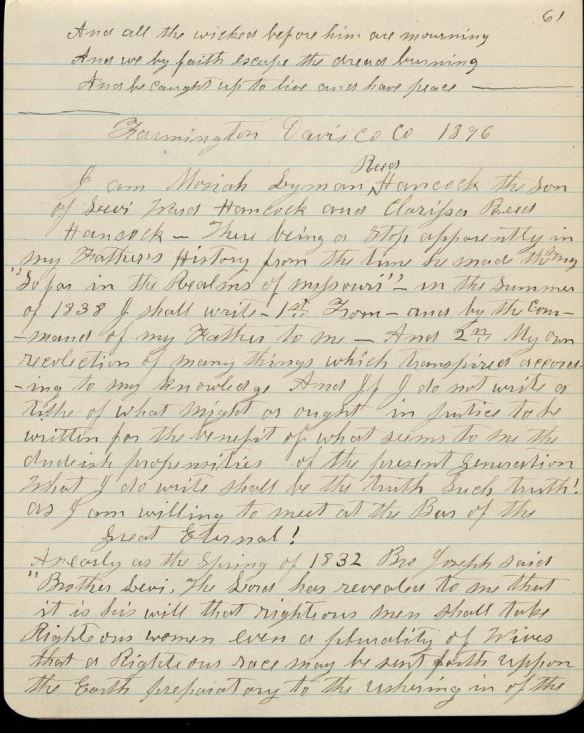
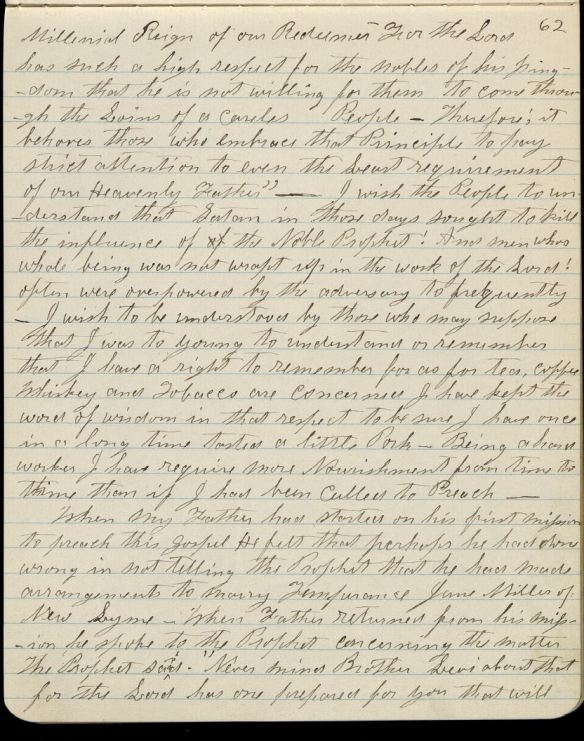
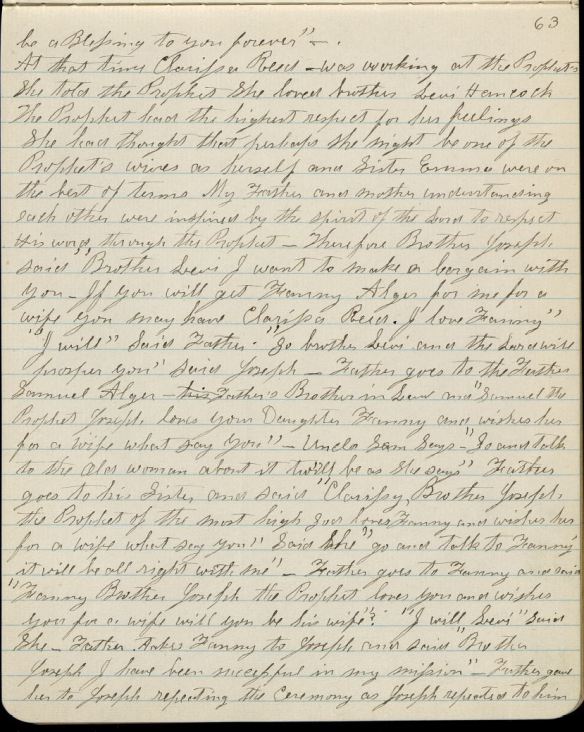
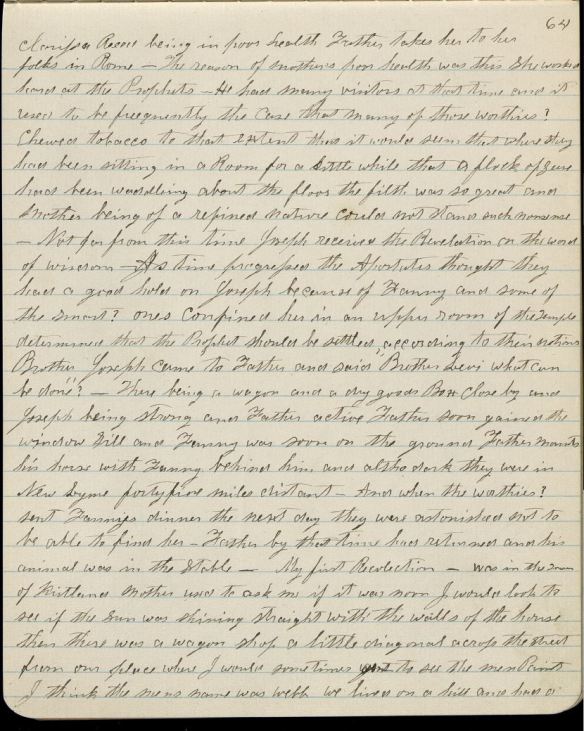
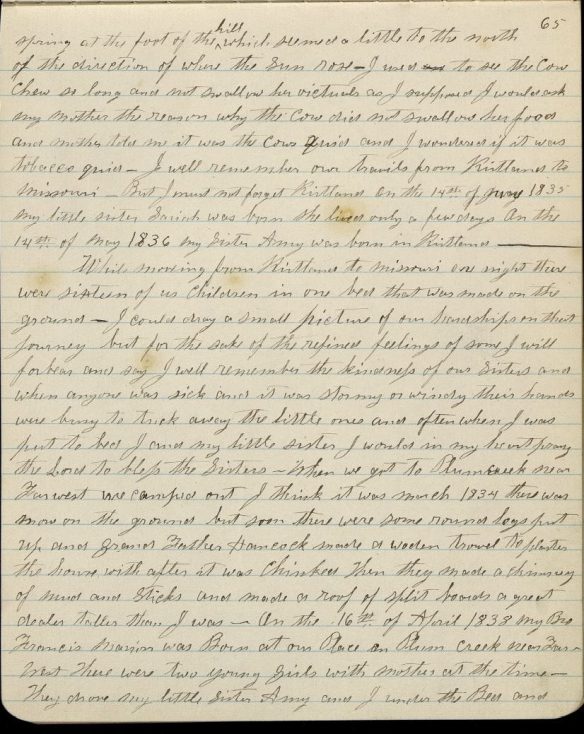 When my Father had started on his first mission to preach this Gospel He felt that perhaps he had done wrong in not telling the Prophet that he had made arrangements to marry Temperance Jane Miller of New Lyme—When Father returned from his miss-ion he spoke to the Prophet concerning the matter The Prophet said – “Never mind Brother Levi about that for the Lord has one prepared for you that will [page 63] be a Blessing to you forever!”—. At that time Clarissa Reed was working at the Prophet’s She told the Prophet She loved brother Levi Hancock The Prophet had the highest respect for her feelings She had thought that perhaps she might be one of the Prophet’s wives as herself and Sister Emma were on the best of terms My Father and Mother understanding each other were inspired by the spirit of the Lord to respect His word through the Prophet—Therefore Brother Joseph said “Brother Levi I want to make a bargain with you—If you will get Fanny Alger for me for a wife you may have Clarissa Reed [Hancock and Reed married March 29, 1833]. I love Fanny” “I will” Said Father — “Go brother Levi and the Lord will prosper you” Said Joseph–Father goes to the Father Samuel Alger—his Father’s Brother in Law and “Samuel the Prophet Joseph loves your Daughter Fanny and wishes her for a wife what say you”—Uncle Sam Says—“Go and talk to the old woman about it twi’ll be as She says” Father goes to his Sister and said “Clarissy, Brother Joseph the Prophet of the most high God loves Fanny and wishes her for a wife what say you” Said She “go and talk to Fanny it will be all right with me”—Father goes to Fanny and said “Fanny Brother Joseph the Prophet loves you and wishes you for a wife will you be his wife”? “I will Levi” Said She. Father takes Fanny to Joseph and said “Brother Joseph I have been successful in my mission”—Father gave her to Joseph repeating the Ceremony as Joseph repeated to him [page 64] Clarissa Reed being in poor health Father takes her to his folks in Rome—The reason of mother’s poor health was this She worked hard at the Prophets—He had many visitors at that time and it used to be frequently the Case that many of those worthies ? Chewed tobacco to that extent that it would seem that where they had been sitting in a Room for a little while that a flock of geese had been waddling about the floor the filth was so great and Mother being of a refined nature could not stand such nonsense —Not far from this time Joseph received the Revelation on the word [received February 27, 1833] of wisdom—As time progressed the Apostates thought they had a good hold on Joseph because of Fanny and some of the smart ? ones confined her in an upper room of the Temple [completed April 1836] determined that the Prophet should be settled according to their notions Brother Joseph came to Father and said “Brother Levi what can be done”?—There being a wagon and a dry goods Box close by and Joseph being strong and Father active Father soon gained the window Sill and Fanny was soon on the ground Father mounts his horse with Fanny behind him and altho dark they were in New Lyme forty five miles distant—And when the worthies ? sent Fannys dinner the next day they were astonished not to be able to find her—Father by that time had returned and his animal was in the Stable …On the 14th of June [over-writing May] 1835 my little sister Sariah was born She lived only a few days On the 14th of May 1836 my Sister Amy was born in Kirtland—
When my Father had started on his first mission to preach this Gospel He felt that perhaps he had done wrong in not telling the Prophet that he had made arrangements to marry Temperance Jane Miller of New Lyme—When Father returned from his miss-ion he spoke to the Prophet concerning the matter The Prophet said – “Never mind Brother Levi about that for the Lord has one prepared for you that will [page 63] be a Blessing to you forever!”—. At that time Clarissa Reed was working at the Prophet’s She told the Prophet She loved brother Levi Hancock The Prophet had the highest respect for her feelings She had thought that perhaps she might be one of the Prophet’s wives as herself and Sister Emma were on the best of terms My Father and Mother understanding each other were inspired by the spirit of the Lord to respect His word through the Prophet—Therefore Brother Joseph said “Brother Levi I want to make a bargain with you—If you will get Fanny Alger for me for a wife you may have Clarissa Reed [Hancock and Reed married March 29, 1833]. I love Fanny” “I will” Said Father — “Go brother Levi and the Lord will prosper you” Said Joseph–Father goes to the Father Samuel Alger—his Father’s Brother in Law and “Samuel the Prophet Joseph loves your Daughter Fanny and wishes her for a wife what say you”—Uncle Sam Says—“Go and talk to the old woman about it twi’ll be as She says” Father goes to his Sister and said “Clarissy, Brother Joseph the Prophet of the most high God loves Fanny and wishes her for a wife what say you” Said She “go and talk to Fanny it will be all right with me”—Father goes to Fanny and said “Fanny Brother Joseph the Prophet loves you and wishes you for a wife will you be his wife”? “I will Levi” Said She. Father takes Fanny to Joseph and said “Brother Joseph I have been successful in my mission”—Father gave her to Joseph repeating the Ceremony as Joseph repeated to him [page 64] Clarissa Reed being in poor health Father takes her to his folks in Rome—The reason of mother’s poor health was this She worked hard at the Prophets—He had many visitors at that time and it used to be frequently the Case that many of those worthies ? Chewed tobacco to that extent that it would seem that where they had been sitting in a Room for a little while that a flock of geese had been waddling about the floor the filth was so great and Mother being of a refined nature could not stand such nonsense —Not far from this time Joseph received the Revelation on the word [received February 27, 1833] of wisdom—As time progressed the Apostates thought they had a good hold on Joseph because of Fanny and some of the smart ? ones confined her in an upper room of the Temple [completed April 1836] determined that the Prophet should be settled according to their notions Brother Joseph came to Father and said “Brother Levi what can be done”?—There being a wagon and a dry goods Box close by and Joseph being strong and Father active Father soon gained the window Sill and Fanny was soon on the ground Father mounts his horse with Fanny behind him and altho dark they were in New Lyme forty five miles distant—And when the worthies ? sent Fannys dinner the next day they were astonished not to be able to find her—Father by that time had returned and his animal was in the Stable …On the 14th of June [over-writing May] 1835 my little sister Sariah was born She lived only a few days On the 14th of May 1836 my Sister Amy was born in Kirtland—
There are a few things that make it difficult not to believe that this was simply Mosiah Hancock repeating “faithful” stories and simply making things up as he went along. First, he claims that he remembers the events in Kirtland, even though he wasn’t even born when this all took place. (1832-33) He claims that Joseph “married” Fanny and everyone (even Emma it seems) simply said, ok. That Clarissa Reed thought she was going to be Smith’s plural wife, but then simply goes along with being married off to Levi Hancock. The idea of Joseph putting up Reed as a wife for Hancock in return for him persuading Fanny Alger to “marry” Joseph, makes little sense. Why would Joseph need to? All he had to do (since he was “the prophet” and according to Mosiah they believed everything Joseph told them) was ask Levi Hancock to speak with Fanny. But how could Smith explain replacing Clarissa with Fanny in his home to Emma?
What we suspect is that Smith was involved with Clarissa Reed (it was his M.O. to be involved with the young women living in his home) until he saw Fanny Alger. He needed a way to get her into the home and so proposed that Clarissa marry Hancock and that Fanny move into the Smith home to replace her.
[136] Nauvoo Relief Society Minute Book, Minutes of Preceedings of Second Meeting of the Society 1844, Room over Brick Store March 16th, 10 oclock A.M, 125-126, Online here, Accessed December 31, 2014). William Wines Phelps was a prolific ghostwriter for Smith. This was evident to the folks in Nauvoo from this letter, sent to Thomas Sharp and the Warsaw Signal in April, 1844:
For the Warsaw Signal.
Nauvoo, Ill., April 13, 1844.
Mr. Editor: —
Sir, as Gen. Joseph Smith is before the people as a candidate for the first office within their gift, we think it a privilege we have, (as is the case with every other candidate for so responsible an office) to examine his claims and qualifications for the same.
The readers of the “Nauvoo Neighbor” would suppose, from the articles which appear in that paper, that Joe was one of the greatest statesmen and scholars of the age. We do not know but such in the fact; but if men want evidence in regard to his statesmanship, let them but refer to the manner in which he conducts the affairs of the Holy City, as Mayor, and we think the public will be satisfied at once. I speak from personal knowledge, as I have been a citizen of the City of the Saints for several years past, and here stake my reputation as a writer, that there never was as much tyranny practised in any city or country since the days of Caligula and Nero.
For several months past; there has not been a criminal prosecution within the city, instituted before a Justice of the peace, but what, as soon as the accused was arrested by the constable a writ of Habeas Corpus has been granted by the Municipal Court of said City, and the prisoner arrested from the hands of the officer, and taken before that court for trial. We need hardly state here the prisoner is there disposed of, as it is a notorious fact, that there never has been a case of the kind before the Municipal Court, but what the prisoner has been discharged, and judgment rendered against the prosecution for costs — no matter what the crime may be — thus rendering it impossible for any man to be bound over from this place to stand a trial before a jury of his county. Joe himself says he will spill the last drop of blood in his veins before he will go to Carthage among the Carthagenian Mob (as he terms them,) for trial, and advises all his followers to do the same — saying that they have all power to try every offence committed within the limits of the city, and it is unnecessary for any one to go to the Circuit Court, among a set of Jack Asses (to use his own language, for trial. This is true Statesmanship, in the opinion of Joe’s followers.
In relation to Joe[‘s] Scholarship, we have only to Joe’s he is one of the greatest ignoramuses of this age; and has not even had the advantages of a common country schooling, as his time, in early life, was spent in money digging; and in more mature years, occupied principally in lying, blackguarding, swindling, and many other kinds of rascality, too numerous to mention.
All the articles to which Joe’s name has appeared of late, as well as his Statesman-like “Views of the Powers and Policy of the Government of the United States,” were written by the Immaculate William W. Phelps, Esq., the City Attorney for the Holy City, and Private secretary to his Holiness Joe, &c., &c., It will be noticed that this Phelps is the man whom Joe charged with having turned traitor, and sworn false, a few years since in Missouri.
We do not know whether Joe’s charge against Phelps is true or not. This much however, we do know — that Phelps did swear that Joe was guilty of some of the most diabolical crimes known to our laws. How is it, Joe? Did he swear false? or are you guilty? More anon.
Yours, &c.,
SKINIWAY.
[137] Gary James Bergera writes:
Before the end of the month, on February 26, 1844, Higbee again crossed paths with Smith. By now a practicing attorney, as was his brother Chauncey, Francis represented Orsimus F. Bostwick, whom Hyrum Smith had charged with slandering him in connection with “certain females of Nauvoo.” The mayor’s court found Bostwick guilty, and Francis informed the tribunal that he would appeal the decision to the circuit court, which he felt would be less biased, knowing the influence Joseph Smith wielded over the city’s legal system. Smith countered: “I told Higbee what I thought of him for trying to carry such a suit to Carthage [the county seat]—it was to stir up the mob and bring them upon us. (Bergera, op. cited above)
Bergera’s note reads:
Smith, History of the Church, 6:225. Bostwick’s allegations, although not specified in the official history, had to do with Hyrum’s and others’ polygamy. Bostwick allegedly bragged that he could “take a half bushel of meal, obtain his vile purpose, and get what accommodation he wanted with almost any woman in the city” ( in “Virtue Will Triumph,” Nauvoo Neighbor, Mar. 20, 1844, 2) (ibid.)
There is no credible evidence that Bostick did anything other than accuse Hyrum Smith of practicing Joseph’s spiritual wife doctrine. (See Note #137) As for trading sexual favors for food, William Smith made this proposal to some in 1842, but it was covered up by his brothers (See Note #135). A little more than a week later, Joseph Smith claimed that,
Those who complain of our rights and charters are wicked and corrupt, and the devil is in them.
The reason I called up this subject is, we have a gang of simple fellows here who do not know where their elbows or heads are. If you preach virtue to them, they will oppose that; or if you preach a Methodist God to them, they will oppose that; and the same if you preach anything else; and if there is any case tried by the authorities of Nauvoo, they want it appealed to Carthage to the circuit court. Mr. Orsimus F. Bostwick’s case had to go to Carthage. Our lawyers will appeal anything to the circuit court.
[p.238] I want the people to speak out and say whether such men should be tolerated and supported in our midst; and I want to know if the citizens will sustain me when my hands are raised to heaven for and in behalf of the people.
From this time I design to bring such characters who act against the interests of the city before a committee of the whole; and I will have the voice of the people, which is republican, and is likely to be the voice of God; and as long as I have a tongue to speak, I will expose the iniquity of the lawyers and wicked men.
I fear not their boiling over nor the boiling over of hell, their thunders, nor the lightning of their forked tongues.
If these things cannot be put a stop to, I will give such men into the hands of the Missouri mob. The hands of the officers of the city falter and are palsied by their conduct.
There is another person I will speak about. He is a Mormon—a certain man who lived here before we came here; the two first letters of his name are Hiram Kimball. When a man is baptized and becomes a member of the Church, I have a right to talk about him, and reprove him in public or private, whenever it is necessary, or he deserves it.
When the city passed an ordinance to collect wharfage from steamboats, he goes and tells the captains of the steamboats that he owned the landing, and that they need not pay wharfage.
I despise the man who will betray you with a kiss; and I am determined to use up these men, if they will not stop their operations. If this is not true, let him come forward and throw off the imputation.
When they appeal to Carthage, I will appeal to this people, which is the highest court. I despise the lawyers who haggle on lawsuits, and I would rather die a thousand deaths than appeal to Carthage,
Kimball and Morrison say they own the wharves; but the fact is, the city owns them, sixty-four feet from high water mark. From the printing office to the north limits of the city is public ground, as Water street runs along the beach, and the beach belongs to the city and not to individuals.
Another thing: I want to speak about the lawyers of this city. I have good feelings towards them; nevertheless I will reprove the lawyers and doctors anyhow. Jesus did, and every prophet has; and if I am a prophet, I shall do it: at any rate, I shall do it, for I profess to be a prophet.
The maritime laws of the United States have ceded up the right to regulate all tolls, wharfage, &c., to the respective corporations who have jurisdiction, and not to individuals.
Our lawyers have read so little that they are ignorant of this: they [p.239] have never stuck their roses into a book on maritime law in their lives, and, as Pope says:—
Shallow draughts intoxicate the brain;
Drink deep, or taste not the Pierian Spring.
Our city lawyers are fools to undertake to practice law when they know nothing about it.
I want from this time forth every fool to stay at home and let the steamboats and captains alone. No vessel could land anywhere, if subject to individual laws.
The corporation owns the streets of the city, and has as much right to tax the boats to make wharves as to tax citizens to make roads. Let every man in this city stay at home, and let the boat-captains, peace-officers and everybody alone.
How are we to keep peace in the city, defend ourselves against mobs, and keep innocent blood from being shed? By striking a blow at everything that rises up in disorder.
I will wage an eternal warfare with those that oppose me while I am laboring in behalf of the city. I will disgrace every man by publishing him on the house top, who will not be still and mind his own business. (History of the Church, Vol. 6, 237-238)
To “use up” means to kill someone. Joseph was serious about trying to “disgrace” anyone who opposed him, as they tried to do with Bostwick and later with other polygamy dissenters. Since Joseph had every reason to lie (since he was practicing his Spiritual Wife System in secret and denying it in public) it throws doubt on the truthfulness of any affidavits that were produced by Smith and those who he recruited to defend him.
[137] The Nauvoo Neighbor, Wednesday, March 20, 1844, Online here, Accessed November 15, 2014).
[138] Gary James Bergera, op. cited.
[139] The Boswick Trial held by Joseph Smith was a farce. Boswick did not testify. One of Smith’s Policemen & Danite, John Scott, (See Quinn, Origins of Power, page 180, and Appendix 3, Danites in 1838: A Partial List) supposedly was sworn by Willard Richards who wrote out a statement, but conveniently was “sick” and could not sign his name. Two months later, Scott would again be a “witness” at the illegal trial of William and Jane Law who also were not present and could not defend themselves. (See Note #212) Mayor Joseph Smith, based his decision on the testimony below:
John Scot sworn saith one day last week in co with defendants. Defendants said he was at the prophets, last week & the prophet asked him if he thought he had any spiritual wives? Defendant told no! did not know if he had any. but I know by God that your Brother Hyrum has. witness then turned to him not knowing his name & said do you believe that Hyrum has got any of these spiritual wives? Defendant said yes, by God I believe he has, and can sleep with three or four every night. witness insisted to know who they were as he could not fellowship such work. Said Defendant they are all over the city by God. Witness said he did not believe it. Defendant said he could take half a bushel of meat, and get what accommodation he wanted with almost any woman in the city. I know of one, a widow woman who had got her living that way for one or two years and had had no other way of getting her living. that there were a number of English women in the city beyond the temple who got their living in that way, and women of good standing in the church too. Witness invited to have him tell him where the women lived & said he would soon tell whether they were in good standing in the church or not. Defendant refused to tell the names of any woman but went on to tell of a young woman he knew in the east who joined the church and came on here, and was taken sick last summer or winter & Hyrum was sent for to lay hands on her. and since that time she was a damn whore that any man who would go there could be accommodated with whatever he wanted. that defendant had known her from a child and that she was a virtuous woman at the time that Hyrum administered to here and further saith not.
I hereby certify that John Scot was sworn by me that the foregoing testimony was written by myself in purvue of Council for both parties the 26 day of February, 1844 and that the witness is sick and unable to sign his name Willard Richards Recorder of the City of Nauvoo (City of Nauvoo vs O. J. Bostwick Deposition, MS 16800, Box 4, Folder 41, CHL, Online here, Accessed November 25, 2016).
He could not sign his name? Really? When Bostwick complained and got a lawyer to refute the Mayor’s ruling, (Francis Higbee), and had the appeal set to take place in Carthage, Smith complained that it was only to bring a mob down on him, something he also said of Sidney Rigdon, William Law and others.
Joseph and Hyrum were assassinated before this could go to trial in Carthage. Gary Bergera writes:
Unlike other municipal courts in Illinois, Nauvoo’s mayor automatically served as chief justice, the city’s aldermen as associate justices. “Thus,” write legal historians Edwin Brown Firmage and Richard Collin Mangrum, “the lawmaker was also the law interpreter, creating a concentration of power that was absent in the other cities [of Illinois].” Zion in the Courts: A Legal History of the Church of Jesus Christ of Latter-day Saints, 1830-1900 (Urbana: University of Illinois Press, 1988), 86-7; see also 92-105, added emphasis. (Bergera, op. cited above).
[140] The Revised Laws of Illinois, 1833, Greiner and Sherman, p. 198, online here, accessed November 5, 2014.
[141] ibid., emphasis added.
[142] ibid., 198-99.
[143] The Revised Code of Laws of Illinois: Enacted by the Fifth General Assembly, State of Illinois: Robert Blackwell, 1827, Online here, Accessed November 20, 2014.
[145] Times and Seasons, Nov. 15, 1844, Vol. 5, No. 21, 715, Online here, Accessed November 5, 2014.
[146] Again, whether or not Joseph Smith could have been “proven” to have lived in an “open state” of adultery can never be answered. To speculate that perhaps he could not have been convicted because of a lack of evidence or some loophole in the law, is simply a feeble attempt to bolster Smith’s already damaged reputation.
It is ultimately an exercise in futility because we know that Smith was committing Bigamy under Illinois Law, and we have documented evidence from many sources. Whether or not he (or his faithful followers) acknowledged it, or called it something else, or did so in earnest, is beside the point.
It is clear that what Joseph Smith, Brigham Young and many others committed was Bigamy and Adultery. For example, Emily Partridge’s claim that she and her sister Eliza simply “shook hands” with Joseph and their marriage was over because of Emma’s objections places little weight on the marriages, if this really happened. (See H. Michael Marquardt’s “Emily Dow Partridge Smith Young on the Witness Stand: Recollections of a Plural Wife,” 2001, Online here, Accessed December 5. 2014).
Emily claimed that one day (no date or timeframe was given by Emily, but this would have to have been in the Fall of 1843) Emma requested both Partridge sisters to come to her room and (as Emily later recollected):
When we went in Joseph was there, his countenance was the perfect picture of despair. I cannot remember all that passed at that time but [but] she insisted that we should promise to break our covenants, that we had made before God. Joseph asked her if we made her the promises she required, if she would cease to trouble us, and not persist in our marrying someone else. She made the promise. Joseph came to us and shook hands with us and the understanding was that all was ended between us. I for one meant to keep the promise I was forced to make. (Marquardt, 24, our emphasis).
Yet on August 13, 1843 Joseph told William Clayton that even though Emma had “resisted the P[riesthood] in toto & he had to tell her he would relinquish all for her sake” Smith still affirmed to Clayon that he “should not relinquish anything.” (Clayton Journal, 16 August, 1843)
Even though Marquardt speculates that this may have been said before Smith relinquished the Partridge sisters in front of Emma, this contradicts what Joseph told Clayton. And if it did happen the way that Emily Partridge states, what does that say about Joseph Smith?
It means that Joseph took the girls for wives, had sex with them for a few months and then cut them loose. Did the angel that supposedly appeared to him on multiple occasions command Joseph to practice this kind of polygamy? This is not any kind of a real marriage by any stretch of the imagination, so what was it? Adultery, (or nest-hiding as it was called) even if Emma gave her consent, which we feel is not supported by the evidence. (See Notes #45 & #53).
Erastus Snow declared in 1880:
We know full well that the old Puritan States of New England and the other commonwealths of America grew up under the monogamic system, and that their hearts have not become sufficiently enlarged to comprehend the final result of this tree of liberty which they planted in the land, they consequently retained in their new colonies and the States formed out of them, the old Roman system of monogamy that made laws against bigamy. But the bigamy which their laws contemplated and which the laws of England contemplated, after which they patterned, was not the plural marriage of the Latter-day Saints, regulated as it is under the sanction of religion, its duties and obligations, and religiously observed by the people. But their laws against bigamy were based upon the principle of fraud, fraud practised by a man or woman, who, believing in monogamy, enter into that relationship and then secretly violate the sacred covenants entered into with each other, and unbeknown to each other, contract a marriage with another and clandestinely carry it on. The crime in this instance was not in the religious doctrine of plural marriage, but in the fraudulent manner in which it is contracted and carried on and the violation of their covenants and the law of the land. (Erastus Snow, Conference Report, April 6, 1880, 60, Online here, Accessed November 20, 2014).
Yet Joseph kept the marriages secret from his first wife (like bigamy), did not announce this doctrine to the Church and have it approved by that law of “common consent” as he should have.
In 1830, when Hiram Page claimed to have “revelations” through a peep stone just as Joseph did, he was told by Smith that his revelations were to be rejected because they were “contrary to church covenants” and had not been “done by common consent in the church, by the prayer of faith, therefore they were “of Satan.” (See Doctrine and Covenants, Section 28). This is exactly what the Reorganized Church lawyers were claiming at the Temple Lot Trial, and what the Utah Mormons tried to avoid answering, or applying to Joseph Smith. Smith had entered into over two dozen bigamous marriages before he produced a “revelation”, and never presented that “revelation” to the church for a sustaining vote.
What Erastus Snow describes is exactly what Joseph Smith did with the Partridge sisters and others behind Emma’s back. (Secretly violate sacred monogamous covenants and unbeknown to Emma, contract multiple other marriages with others and clandestinely carry them on).
The reason that it was so important for the Utah Mormons to have had Emma consent to those “marriages” and provide some of her husband’s “wives” becomes quite apparent after reading this.
[147] Revised Law of Illinois, 1833, op. cited, Online here, Accessed November 5, 2014. In a new book titled, Sustaining the Law: Joseph Smith’s Legal Encounters, M. Scott Bradshaw writes,
Joseph Smith could not have been properly convicted of adultery under the law of Illinois in 1844. Illinois law only criminalized adultery or fornication if it was “open”. Had Joseph lived to face trial on this charge, he would have had good reason to expect acquittal because his relationships with his plural wives were not open, but were kept confidential and known by a relative few. Given a fair trial on this indictment, Joseph could have relied on several legal defenses.
The term “open” in [the Illinois Criminal Code of the day] is a key element of this crime. The meaning of this term was then and still today is generally understood in law to cover conduct that is “notorious,” “exposed to public view,” or “visible,” and which is “not clandestine.” Joseph’s relationships with his plural wives did not meet this definition. (M. Scott Bradshaw, “Defining Adultery under Illinois and Nauvoo Law,” in Sustaining the Law: Joseph Smith’s Legal Encounters, edited by Gordon A. Madsen, Jeffrey N. Walker, and John W. Welch (Provo, Utah: BYU Studies, 2014), 401–426).
Of course they are looking at this issue retrospectively and therefore this is simply speculation on their part. Adam Delderfield, an Assistant State’s Attorney at Cook County State’s Attorney’s Office in Illinois writes:
If you are reading this, then you likely have some notion of what “sexual intercourse” involves. However, the phrase “open and notorious” is not so clear. To begin with, it is important to stress that the behaviour must be both “open” and “notorious”. Courts have interpreted the “open” to refer to the actions of the offender, and the “notorious” to refer to the subsequent public knowledge. Importantly, that means it is not sufficient that the public merely know about the illicit relationship; rather, it must be shown that the offender flaunted the relationship (open), thus creating public knowledge (notorious).
In terms of applying the law to specific fact patterns, one can imagine countless ways in which an offender might carry out an open and notorious relationship. The Illinois Appellate Court has published a handful of opinions on the matter, but it will suffice for this article to examine the 1975 case of People v. Cessna. This case is instructive because it was decided under a statute closely resembling the current version, and it specifically involved the definition of “open and notorious”.
In Cessna, the defendant was charged with adultery, fornication, and contributing to the sexual delinquency of a child. The fornication charge was apparently dismissed short of trial, but defendant was convicted of the remaining two crimes. On appeal, defendant challenged in part whether the People had proven that his illicit relationship was “open and notorious”; the facts are as follows.
Defendant was a married 23 year old who separated from his wife. Defendant moved in with his mother in Illinois. During the month of October, 1974, a 17 year old woman met defendant, and on several occasions spent the night at his house. The 17 year old was between homes, variously living at her sister’s house, her aunt’s house, and a foster home. Defendant and the woman had sexual intercourse on several occasions, and the woman’s family saw the two of them in each other’s company. Defendant gave the woman an engagement ring, and the woman’s father heard from an attorney that defendant had discussed divorcing his wife and marrying the woman. The woman was apparently also pregnant.
According to the defendant and his family, the woman only slept over twice. Furthermore, they indicated that the defendant slept in a separate bedroom from the woman. The defendant denied having sexual intercourse with her. The court, however, found the woman’s testimony regarding the sexual intercourse to be “clear and convincing”.
The Illinois Appellate Court found that the above behavior was not open and notorious, because there was no showing that defendant’s behavior had created a public scandal. The evidence did not show that people outside of the two families knew about the relationship. While it was indeed a “situation of serious family concern”, the court stated that without the community being “debased or demoralized” there could be no conviction.
In rendering its decision, the court held that “[t]he prohibition of open and notorious adultery is meant to protect the public from conduct which disturbs the peace, tends to promote breaches of the peace, and openly flouts accepted standards of morality in the community. What is of marked interest is the scandalous effect of the behavior and its affront to public decency and the marital institution.” Had there been evidence of people outside the family circle being aware of this behaviour, the result may well have been different. (“Adultery and Fornication Laws in Illinois,” Adam Delderfield, Assistant State’s Attorney at Cook County State’s Attorney’s Office, online here, Accessed January 5, 2015, added emphasis).
Unlike the example above, in Joseph Smith’s case his polygamy was known and published by many newspapers during 1843 and 1844 therefore creating a public scandal. Many people outside of Smith’s family knew of his behavior. This was one reason why Joseph wanted the Expositor destroyed, he knew the ramifications of the paper publishing details of his Spiritual Wifeism.
Notice what Smith claims are the reasons for the destruction of the Expositor:
In the investigation it appeared evident to the council that the proprietors were a set of unprincipled men, lawless, debouchees, counterfeiters, Bogus Makers, gamblers, peace disturbers, and that the grand object of said proprietors was to destroy our constitutional rights and chartered privileges; to overthrow all good and wholesome regulations in society; to strengthen themselves against the municipality; to fortify themselves against the church of which I am a member, and destroy all our religious rights and privileges, by libels, slanders, falsehoods, perjury & sticking at no corruption to accomplish their hellish purposes. and that said paper of itself was libelous of the deepest dye, and very injurious as a vehicle of defamation,—tending to corrupt the morals, and disturb the peace, tranquillity and happiness of the whole community, and especially that of Nauvoo. (Letter from Joseph Smith to Thomas Ford (14 June 1844, added emphasis).
In that issue were the accusations that Joseph Smith was committing adultery.
Smith’s adultery was linked to his practice of polygamy, which clearly would have been an “affront to public decency and the marital institution”. Also, Smith’s practice of polygamy was rather well known in Nauvoo by then (1844), with accusations being made against Smith since 1842 by John C. Bennett and others. Smith’s polygamy by that time (June 1844) had become a “public scandal”. And there were many in the community who claimed they were “debased and demoralized” by Smith’s actions. Smith was also guilty of the crime of bigamy under Illinois law:
“Sec 121. Bigamy consists in the having of two wives or two husbands at one and the same time, knowing that the former husband or wife is still alive. If any person or persons within this State, being married, or who shall hereafter marry, do at any time marry any person or persons, the former husband or wife being alive, the person so offending shall, on conviction thereof, be punished by a fine, not exceeding one thousand dollars, and imprisoned in the penitentiary, not exceeding two years. It shall not be necessary to prove either of the said marriages by the register or certificate thereof, or other record evidence; but the same may be proved by such evidence as is admissible to prove a marriage in other cases, and when such second marriage shall have taken place without this state, cohabitation in this state after such second marriage shall be deemed the commission of the crime of bigamy, and the trial in such case may take place in the county where such cohabitation shall have occurred.” (Revised Laws of Illinois, 1833, 198-99).
Melissa Lott, the Lawrence sisters and others “co-habited” with Smith in the Nauvoo House. It was also known that Smith had some of his wives secreted in the Times and Seasons offices.
Nothing about Smith’s adultery could be considered normal as he was practicing a form of Spiritual Wifeism that would not have gone over well in the courts. (It did not for Jacob Cochran in the earlier part of the century who was also guilty of practicing Spiritual Wifery). Michael Quinn writes,
23 May. William Law files a formal complaint with the Hancock County circuit court charging Smith was living “in an open state of adultery” with Maria Lawrence, Smith’s foster daughter and polygamous wife. (D. Michael Quinn, The Mormon Hierarchy: Origins of Power, 645).
According to George D. Smith:
Maria Lawrence was a teenaged orphan who was living in the Smith household. In fact, Smith had secretly married both Maria, age 19 and her sister Sarah, age 17 on 11 May 1843 and was serving as executor of their $8,000 estate. William Law apparently hoped that disclosing Smith’s relationship with the young girls might lead him to abandon polygamy, but Smith immediately excommunicated Law, had himself appointed the girls’ legal guardian, and rejected the charge in front of a church congregation on 26 May 1844, denying that he had more than one wife.
Another indictment has been got up against me. . . I had not been married scarcely five minutes, and made one proclamation of the Gospel, before it was reported that I had seven wives . . . This new holy prophet [William Law] has gone to Carthage [county courthouse] and swore that I had told him that I was guilty of adultery . . . What a thing it is for a man to be accused of committing adultery, and having seven wives, when I can only find one.
The following month Law and other Mormon dissidents published the inaugural issue of the Nauvoo Expositor to reveal Smith’s “mormon seraglio, or Nauvoo harem; and his unparalled and unheard of attempts at seduction.” Declaring the Expositor a public nuisance, the Nauvoo City Council, led by Mayor Joseph Smith, ordered all copies of the paper to be burned and its printing press destroyed. These actions created an uproar throughout the state, where Smith’s growing political power–as well as his alleged immorality–were both feared and resented. When Governor Thomas Ford ordered Smith arrested, Joseph and his brother Hyrum were jailed at Carthage. On June 27, a large mob overpowered the guards and shot the brothers to death. (George D. Smith, Nauvoo Roots of Mormon Polygamy, op. cited, 7).
Smith himself made the case notorious with his own public denials. The worth of the Lawrence Estate has been contested as being substantially less than $8,000. (And we know where Law got that figure from, see below)
Still, Smith was on record for having denied that he was practicing polygamy. If no one was accusing him, why would he have to deny it? Smith gave gifts to his Spiritual Wives, like gold watches. Whether Law could have had the Lawrence sisters or any of his other “wives” subpoenaed is a matter of speculation, but was in the realm of possibility. Also, the “revelation” on polygamy, dictated by Joseph in 1843 had been shown to the Nauvoo High Council, and some of them, like Austin Cowles had rejected it. They also, would probably have been called as witnesses. We are also troubled by the May 11th “marriage” date for the Lawrence sisters, since there is absolutely no credible evidence to show that this happened then or that Emma was involved.
The public scandal was already in place by the time Law brought charges against Smith. To claim that “he would have had good reason to expect acquittal” is simply ignoring the evidence and what constituted “open and notorious”.
Another apologist argument that we ran across recently was this strange attempt by FAIRMORMON to try and claim that because Joseph carefully chose the words of his polygamy denials, he was actually innocent of committing adultery and that it could not be proven by William Law. They write,
The Laws sought to have Joseph indicted for adultery and perjury
This statement refers to Joseph’s well-known declaration on 26 May 1844 in his “Address of the Prophet—His Testimony Against the Dissenters at Nauvoo”. Significantly, this address was given the day after the Laws sought to have Joseph indicted for adultery in the case of Maria Lawrence. (They also sought to indict him on a charge of perjury.)
Many have criticized or been concerned by the secrecy with which Joseph instituted plural marriage without appreciating the realities of the dangers involved. Illinois law only criminalized adultery or fornication if it was “open”. Since Joseph was sealed to his plural wives for either eternity, or for time and eternity, he did not view these relationships as constituting adultery or fornication. Therefore, under Illinois law, as long as Joseph and his plural wives did not live in an “open,” or “public,” manner, they were not guilty of breaking any civil law then in force in Illinois. Furthermore, this reality explains some of Joseph’s public denials, since he could be truthfully said to not be guilty of the charges leveled against him: he was not committing adultery or fornication.
Joseph was refuting the charge of adultery, not the fact that he had “seven wives”
History of The Church Vol. 6, 410-411:
I had not been married scarcely five minutes, and made one proclamation of the Gospel, before it was reported that I had seven wives. I mean to live and proclaim the truth as long as I can.
This new holy prophet [William Law] has gone to Carthage and swore that I had told him that I was guilty of adultery. This spiritual wifeism! Why, a man dares not speak or wink, for fear of being accused of this. …
William Law testified before forty policemen, and the assembly room full of witnesses, that he testified under oath that he never had heard or seen or knew anything immoral or criminal against me. He testified under oath that he was my friend, and not the “Brutus.” There was a cogitation who was the “Brutus.” I had not prophesied against William Law. He swore under oath that he was satisfied that he was ready to lay down his life for me, and he swears that I have committed adultery. [This paragraph omitted by FAIRMORMON]
A man asked me whether the commandment was given that a man may have seven wives; and now the new prophet has charged me with adultery. I never had any fuss with these men until that Female Relief Society brought out the paper against adulterers and adulteresses.
Dr. Goforth was invited into the Laws’ clique, and Dr. Foster and the clique were dissatisfied with that document, and they rush away and leave the Church, and conspire to take away my life; and because I will not countenance such wickedness, they proclaim that I have been a true prophet, but that I am now a fallen prophet.
[Joseph H.] Jackson has committed murder, robbery, and perjury; and I can prove it by half-a-dozen witnesses. Jackson got up and said—”By God, he is innocent,” and now swears that I am guilty. He threatened my life.
There is another Law, not the prophet, who was cashiered for dishonesty and robbing the government. Wilson Law also swears that I told him I was guilty of adultery. Brother Jonathan Dunham can swear to the contrary. I have been chained. I have rattled chains before in a dungeon for the truth’s sake. I am innocent of all these charges, and you can bear witness of my innocence, for you know me yourselves.
When I love the poor, I ask no favors of the rich. I can go to the cross—I can lay down my life; but don’t forsake me. I want the friendship of my brethren.—Let us teach the things of Jesus Christ. Pride goes before destruction, and a haughty spirit before a downfall.
Be meek and lowly, upright and pure; render good for evil. If you bring on yourselves your own destruction, I will complain. It is not right for a man to bare down his neck to the oppressor always. Be humble and patient in all circumstances of life; we shall then triumph more gloriously. What a thing it is for a man to be accused of committing adultery, and having seven wives, when I can only find one.
I am the same man, and as innocent as I was fourteen years ago; and I can prove them all perjurers. I labored with these apostates myself until I was out of all manner of patience; and then I sent my brother Hyrum, whom they virtually kicked out of doors.
I then sent Mr. Backenstos, when they declared that they were my enemies. I told Mr. Backenstos that he might tell the Laws, if they had any cause against me I would go before the Church, and confess it to the world. He [Wm. Law] was summoned time and again, but refused to come. Dr. Bernhisel and Elder Rigdon know that I speak the truth. I cite you to Captain Dunham, Esquires Johnson and Wells, Brother Hatfield and others, for the truth of what I have said. I have said this to let my friends know that I am right. [This paragraph omitted by FAIRMORMON], History of the Church, 6:410-12, May 26, 1844, Color emphasis by FAIRMORMON]
FAIRMORMON continues,
Note the rejection of the term “spiritual wifeism”. Note that “spiritual wifeism” likely refers to John C. Bennett’s pattern of seduction and sexual license, which the Saints were always at pains to deny.
Joseph was not merely bluffing, nor was he lying—he literally could prove that the Laws were perjuring themselves on this point
In light of the circumstances under which they were spoken, Joseph’s words were carefully chosen. Joseph was not merely bluffing, nor was he lying—he literally could prove that the Laws were perjuring themselves on this point in the charges brought only the day before.
Bradshaw cites a portion of Joseph’s above statement, and then concludes:
A review of Joseph’s remarks in light of the circumstances under which they were spoken shows that Joseph’s words were carefully chosen. In this speech, Joseph was specifically reacting to the indictments for perjury and adultery that were presented by the grand jury the day earlier. Thus, when Joseph affirmed during the same speech: “I am innocent of all these charges,” he was in particular refuting a claim that he and Maria [Lawrence] had openly and notoriously cohabitated, thus committing the statutory offense of adultery. He was also refuting the perjury charge. While the overall tone of Joseph’s remarks may seem misleading, it is understandable that Joseph would have taken pains to dodge the plural marriage issue. By keeping his plural marriages in Nauvoo secret, Joseph effectively kept them legal, at least under the Illinois adultery statute. (FAIRMORMON, “Joseph Smith/Polygamy/Illegal/Illegal in Nauvoo”, Online here, Accessed January 5, 2015).
FAIRMORMON is claiming that the above (with the color coded sentences for emphasis) was Joseph refuting adultery, not polygamy! But Joseph complains right in the middle of the speech that it was about Spiritual Wifeism! The contention was that since it was illegal (polygamy/bigamy) then it was adultery! We are simply baffled at what FAIRMORMON’s point could be.
Joseph Smith claimed that his life was in danger, over polygamy. If Smith could have gotten off, (as FAIRMORMON claims) then why was he worried about danger? Either he was committing adultery and was afraid, or he was not and was innocent and could prove it. FAIRMORMON wants to have it both ways here (as we shall see below).
Smith here, claims that he sent J. Backenstos to visit Law, but that is not what happened. He sent Hyrum Smith, Sidney Ridgon and Almon Babbit to visit Law and sue for “peace”. William Law did reject these offers, only because he was told that Joseph would not own up to his “revelation” on polygamy (in public) and denounce the practice. Joseph never offered Law the chance to “go before the Church”. He was not summoned at all, he was asked to drop all hostilities against Joseph (Law’s opposition to Joseph’s Spiritual Wifeism), but Law refused to do so because Joseph would not admit they did have cause against him for practicing polygamy in secret. Joseph never confessed it “to the world”. So right here, we have Joseph lying and if he did so in court would have perjured himself or sworn a false affidavit. Hyrum himself admitted on the stand a month before this that there would be no “investigation before Conference”. They did not even inform Law of his excommunication trial which would have been the perfect opportunity to “summon him”. (See Note #212)
Joseph also claims that William Law was “satisfied” with Smith. Yes, he was satisfied at the time that Smith hadn’t been referring to Law when he told the police force of Nauvoo in December of 1843 that there were two traitors. (Dough Heads as Smith called them). The Police accused William Law and William Marks of being those traitors. Law did not tell Joseph at that time that he was satisfied with Smith’s adulterous actions. So Smith is again twisting the truth. (See Note #212)
There was absolutely no evidence that Joseph could prove that Joseph H. Jackson was a murderer or that he had committed robbery or perjury. Joseph never produced any witnesses to that effect. All he had to go on were second hand reports by questionable sources.
Foster himself refuted that he never spoke to Dr. Goforth, so it is his word against Foster’s and of course Joseph believed Goforth. This is not credible evidence of anything.
Actually, Joseph had all kinds of “fuss” with these men before A Voice of Innocence was published by the Relief Society. The record speaks for itself. (See Note #212)
FAIRMORMON then makes this fantastic claim, quoting Mormon Apologist M. Scott Bradshaw:
Although under law, Joseph Smith and Maria Lawrence were not guilty of adultery, this does not mean that they had not consummated their plural marriage
A side issue raised by some relates to what the legal strategy can tell us about the status of Joseph and Maria’s sealing. Under law, Joseph and Maria were clearly not guilty of adultery. This does not mean, however, that they had not consummated their plural marriage.
Most authors have concluded that their marriage was one which was consummated. This is due to relatively late, second-hand testimony, which Brian Hales has explored in detail.
Bradshaw suggests:
Joseph instructed John Taylor on June 4, [1844] to initiate legal action against the Laws and Foster for perjury and slander against Maria [for charging her and Joseph with adultery]. No such suit is known to have been filed, since Joseph was killed three weeks later; however, the mere fact that Joseph planned to bring such a suit suggests that, in Joseph’s mind, there was nothing to hide in his relationship with Maria. If there had been a sexual dimension to this particular plural marriage, it is almost unimaginable that Joseph would have wanted to file a lawsuit, knowing that Maria might be put on the witness stand—or even subjected to a gynecological examination [to determine whether or not she was a virgin]. The possibility that Joseph’s relationship with Maria Lawrence did not involve intimacy is also plausible given his comments regarding the publication of the Expositor: “They make it a criminality for a man to have one wife on earth while he has one wife in heaven.” Since the only specific allegation of “criminality” (the adultery indictment) with respect to Joseph’s plural marriages concerned Maria Lawrence, this statement by Joseph could be understood as a reference to his spiritual connection, or sealing, with Maria, but perhaps no more.
In the same vein, Madsen argues:
The consequences of such an indictment [for adultery with Maria] were both legally and socially scandalous. Maria Lawrence’s reputation would have been publicly damaged, independent of what the reputational consequences might have been to Joseph. She and her sister had been sealed to Joseph on May 11, 1843…with Emma’s initial consent but later repudiation. Even if this celestial marriage could have been made [publicly] known, it would not have alleviated the scandal—it would have just turned it to another, even more flamboyant, direction….
This plan to counter-sue against the Laws and others has some interesting legal aspects. William Law had supplied testimony under oath that led to Joseph’s indictment. If the adultery case had gone to trial and the jury had found Joseph not guilty, then Law would have been liable to a criminal charge of perjury and civil liability for slander. Possibly Joseph planned to prove his innocence, not only by his and Maria’s denial of sexual intercourse but also by the testimony of a reputable physician who had conducted a physical examination and found that Maria was still a virgin. It would have been both foolhardy and fruitless for Joseph to have even imagined countersuing without something of such weight to present at trial.
Hales, however, feels that the scenario offered by Madsen and Bradshaw is less likely:
This speculation is problematic because, since Maria was sealed to Joseph in a “time and eternity” sealing, then sexual relations would be permitted. In addition, virginity cannot always be proven by physical exam even if the woman has never experienced intercourse. (Brian Hales, “Maria Lawrence—Evidence of Sexuality,” Online here, Accessed December 5, 2014).
First of all, Madsen is simply making things up. (Hales rightly calls it speculating). He does not know when the Lawrence Sisters were sealed to Joseph, no one does. Notice that Hales also, without any evidence whatsoever, claims it is a “time and eternity” sealing. (They were all that, so Hales own speculation here is simply amusing).
If this is a lawyerly approach, then they desperately need another one. There is only the testimony of three people that claim that the Lawrence Sisters were married to Joseph with Emma’s consent, and these are all from 1869 affidavits that are full of problems. And even those affidavits do not give any date for the Lawrence sealings. (See Note #53) These are the kinds of weak arguments we have been witnessing for far too long in relation to the information provided by those suspect affidavits. This information is provided by Madsen apparently without equivocation, (if one trusts the FAIRMORMON quote which has multiple ellipses).
We simply do not know that Emma “facilitated those marriages” and there is good evidence that she did not which we discuss above. Benjamin Johnson’s recollection about Emma giving her consent was made in the 1880’s, long after these affidavits had been in circulation and he has been shown by us to have embellished his own history.
So Joseph was going to have women’s vagina’s examined by Doctors? This kind of speculation seems to be born out of desperation to vindicate Joseph at any cost. Madsen claims that it would have been “foolhardy and fruitless” for Joseph to countersue Law, but then this would not be the first time Joseph had done something foolhardy and fruitless. (Zion’s Camp and attacking State Militia comes to mind here, among other things, along with his suit against Chauncey Higbee in 1842 which he subsequently dropped). Was Smith being foolhardy and foolish to think that he would have been given authority to raise up 100,000 men and arm them by the U.S. Government? Win the Presidential election of 1844 as a polygamist? We think so. Also, in the same month Joseph “prophecied the entire overthrow of this nation in a few years.” (George D. Smith, An Intimate Chronicle; The Journals of William Clayton, 129, April 13, 1844) In 1843 he proclaimed:
I prophecy in the name of the Lord God [that] anguish and wrath and trembulity [trembling] and tribulation and the withdrawing of the spirit of God await this generation until they are visited with utter destruction. This generation is as corrupt as the generation of the Jews that crucified Christ and if he were here to day and should preach the same doctrine he did then, why they would crucify him. I defy all the world and I prophecy they will never overthrow me till I get ready. (Scott H. Faulring, An American Prophet’s Record, 421, October 15, 1843).
Two more foolish prophecies. Unless Joseph Smith was just going through the motions in 1844 of being elected President of the United States and filing lawsuits he wasn’t going to win because he was going to be “overthrown” in June of 1844. Also, if he was “ready” in June, 1844, why did he try to flee to the west, shortly before being talked into surrendering himself to the authorities?
FAIRMORMON makes one other fantastical claim via M. Scott Bradshaw:
Illinois law only criminalized adultery or fornication if it was “open”
It is vital to understand, however, that:
Joseph Smith could not have been properly convicted of adultery under the law of Illinois in 1844. Illinois law only criminalized adultery or fornication if it was “open”. Had Joseph lived to face trial on this charge, he would have had good reason to expect acquittal because his relationships with his plural wives were not open, but were kept confidential and known by a relative few. Given a fair trial on this indictment, Joseph could have relied on several legal defenses.[1]:402
Joseph’s relationships with his plural wives did not meet this definition
The same author emphasized:
The term “open” in [the Illinois Criminal Code of the day] is a key element of this crime. The meaning of this term was then and still today is generally understood in law to cover conduct that is “notorious,” “exposed to public view,” or “visible,” and which is “not clandestine.” Joseph’s relationships with his plural wives did not meet this definition.[1]:408
On the contrary, we think his relationships were “open and notorious”, which we have already discussed. By June, many were talking about this and writing letters to relatives living in the Eastern States. For example Sarah and Isaac Scott wrote on June 16, 1844:
But because of the things that are and have been taught in the Church of Latter Day Saints for two years past which now assume a portentous aspect, I say because of these things we are in trouble. And were it not that we wish to give you a fair unbiased statement of facts as they really exist, we perhaps would not have written you so soon. But we feel it to be our duty to let you know how things are going on in this land of boasted liberty, this Sanctum-Sanctorum of all the Earth, the City of Nauvoo. The elders will likely tell you a different tale from what I shall as they are positively instructed to deny these things abroad. But it matters not to us what they say; our object is to state to you the truth, for we do not want to be guilty of deceiving any one. We will now give you a correct statement of the doctrines that are taught and practised in the Church according to our own knowledge. We will mention three in particular.
A plurality of Gods. A plurality of living wives. And unconditional sealing up to eternal life against all sins save the shedding of innocent blood or consenting thereunto. These with many other things are taught by Joseph, which we consider are odious and doctrines of devils. Joseph says there are Gods above the God of this universe as far as he is above us, and if He should transgress the laws given to Him by those above Him, He would be hurled from his Throne to hell, as was Lucifer and all his creations with him. But God says there is no other God but himself. Moses says he is the Almighty God, and there is none other. David says he knows of no other God. The Apostles and Prophets almost all testify the same thing.
Joseph had a revelation last summer purporting to be from the Lord, allowing the saints the privilege of having ten living wives at one time, I mean certain conspicuous characters among them. They do not content themselves with young women, but have seduced married women. I believe hundreds have been deceived. Now should I yield up your daughter to such wretches?
Mr. Haven [Scott’s brother-in-law] knows these statements are correct, for they have been taught in the quorum to which he belongs by the highest authority in the Church. He has told me that he does not believe in these teachings but he does not come out and oppose them; he thinks that it will all come out right. But we think God never has nor never will sanction such proceedings, for we believe he has not changed; he says “I am God I change not.” These things we can not believe, and it is by Sarah’s repeated request thatI write this letter.
Those who can not swallow down these things and came out and opposed the doctrine publicly, have been cut off from the Church without any lawful process whatever. They were not notified to trial neither were they allowed the privilege of being present to defend themselves; neither was any one permitted to speak on their behalf. They did not know who was their judge or jury until it was all over and they delivered over to all the buffetings of Satan; although they lived only a few rods from the council room. These are some of their names: William Law, one of the first Presidency; Wilson Law, brigadier general; Austin Coles, president of the High Council; and Elder Blakesly, who has been the means of bringing upwards of one thousand members into the Church. He has been through nearly all the states in the Union, the Canadas, and England preaching the Gospel. Now look at the great sins they have committed, the Laws’ un-Christian-like conduct—Blakesly and others, Apostasy. If it is apostasy to oppose such doctrines and proceedings as I have just mentioned (which are only a few of the enormities taught and practised here), then we hope and pray that all the Church may apostatize.
After they had been thus shamefully treated and published to the world they went and bought a printing press determined to defend themselves against such unhallowed abuse. It cost them six hundred dollars. [They] commenced their paper, but Joseph and his clan could not bear the truth to come out; so after the first number came out Joseph called his Sanhedrin together; tried the press; condemned it as a nuisance and ordered the city marshal to take three hundred armed men and go and burn the press, and if any offered resistance, to rip them from the guts to the gizzard. These are his own words. They went and burnt the press, papers, and household furniture. The Laws, Fosters, Coles, Hickbies [Higbees], and others have had to leave the place to save their lives. Those who have been thus unlawfully cut off have called a conference; protested against these things; and reorganized the Church. William Law is chosen President; Charles Ivans [Ivins], bishop, with the other necessary officers. The Reformed Church believed that Joseph has transgressed in his priestly capacity and has given himself over to serve the devil, and his own lusts.
We will endeavor to send you a paper and you can then judge for yourselves. They had only commenced publishing the dark deeds of Nauvoo. A hundredth part has not been told yet. The people of the state will not suffer such things any longer. But I am sorry that the innocent must suffer with the guilty. I believe there are hundreds of honest hearted souls in Nauvoo, but none of them I think have forgotten what they were once taught: that cursed is he that putteth his trust in man. It would offend some of them more to speak irreverently of Joseph, than it would of God himself. Joseph says that he is a God to this generation, and I suppose they believe it. Any one needs a throat like an open sepulchre to swallow down all that is taught here. There was an elder once wrote in confidence to a friend in England; told him the state of the Church here, and they showed it to some of the elders there, and they wrote back to the heads of the Church, and it caused him a great deal of trouble. I think if you would once come here, you would not put so much confidence in all who go by the name of Mormons. ( Letter of Sarah and Isaac Scott to Sarah’s parents Jacob and Sarah Warnock, June 16, 1844, quoted in The Jacob and Sarah Warnock Scott Family, 1779-1910, by James Wesley Scott, June 2002, 59-60, Online here, Accessed January 15, 2015, emphasis ours).
FAIRMORMON also claims, via Madsen:
It was later realized that Illinois law would probably support the practice of Latter-day Saint plural marriage, so they changed the wording of the law
Even Joseph’s near-contemporaries would later realize that Illinois law would probably support the practice of Latter-day Saint plural marriage, perhaps even if done so openly.
Recognizing the breadth of [the] state constitutional provision [for religious freedom] as it stood in 1844, Illinois adopted a new constitution in 1869 that introduced a number of changes in the clause governing religious liberty, including wording specifically intended to give the state authority to prohibit Mormon polygamy or other religiously-based practices that might be deemed offensive. Comments by certain delegates to the 1869 Illinois Constitutional Convention show that [sic] there was a concern that the Mormon practice of plural marriage could be protected under the state constitution….
Severeal [sic] delegates expressed support for changes in the wording of the Illinois constitution in order to protect the state from what they viewed as extreme forms of worship, including Mormon polygamy. These delegates feared that the more liberal wording of the earlier constitution (in force in Joseph’s day) might actually protected practices such as polygamy. One such delegate was Thomas J. Turner…[who] stated:”…Mormonism is a form of religion ‘grant it, a false religion’ nevertheless, it claims to be the true Christian religion…[d]o we desire that the Mormons shall return to our State, and bring with them polygamy?” (FAIRMORMON, op. cited).
We find this claim very disingenuous. Turner’s complete testimony reads,
Mr. TURNER. Mr. President: This section secures the people of the State, in the free exercise of their religious professions and worship, without discrimination. It also provides that liberty of conscience shall not excuse acts of licentiousness or practices inconsistent with the peace, safety and morality of the State. The Pagan world is full of religion. There is the religion of Buddha, for instance, and there are various other forms of religion in the world, besides Christianity, which is the religion of the people of the United States. Mormonism is a form of religion—grant it, a false religion—nevertheless, it claims to be the true Christian religion.
Religion, true or false, has existed in the world ever since the dawn of history. And, sir, the Mormon sect is today a religious sect. A Christian sect we do not believe it to be, but a religious sect. Do we desire that the Mormons shall return to our State, and bring with them polygamy?
It is but a short time since a fanatical sect sprung up in New Jersey, claiming that they were sanctified—that men and women had become purified to such an extent that they could walk the streets naked, in open day. They claimed to be so pure, that to them all things were pure. Would we permit such exhibitions as these in the name of religion? And yet this was a religion, and claimed to be the true Christian religion.
I am very much gratified, indeed, that the committee has incorporated into this article this clause. Men assume all kinds of belief, and adopt all kinds of practices, in the name of religion, and we should, by all means, provide in this Constitution that men and women shall not, in the name of religion, rush into licentiousness, which will deprave and corrupt the morale of the community.
Our institutions and Constitutions are based upon and grow out of the pure principles of the Christian religion, and it is our duty to protect the purity and stability of our Christian liberty against Pagan idolatry and irreligious licentionsness. (Debates and Proceedings of the Constitutional Convention of the State of Illinois, Convened at the City of Springfield, Tuesday, December 13, 1869, Vol. II, Springfield, E. L. Merritt & Brothers, 1870, 1560, Online here, Accessed November 20, 2014, added emphasis).
Professor Michael P. Seng writes,
Supporters of the limitation on freedom of conscience argued that groups like the Mormons should not be permitted to come to Illinois to practice polygamy and other licentiousness. Delegates debated at length whether religion meant only the “Christian” religion and whether non-Christian religions were to be included and, if so, how the term “religion” was to be defined. The convention defeated a proposal to protect all opinion, not merely “religious” opinion. (Freedom of Speech, Press and Assembly, and Freedom of Religion Under the Illinois Constitution, Loyola University Chicago Law Journal, Vol. 21, Issue 1, Fall 1989, 100).
The statutes read,
1818: Article VIII:3. That all men have a natural and indefeasible right to worship Almighty God according to the dictates of their own consciences; that no man can of right be compelled to attend, erect, or support any place of worship, or to maintain any ministry against his consent; that no human authority can, in any case whatever, control or interfere with the rights of conscience; and that no preference shall ever be given by law to any religious establishments or modes of worship. (Online here, Accessed November 20, 2014).
1870: Article I:3. The free exercise and enjoyment of religious profession and worship, without discrimination shall for-ever be guaranteed; and no person shall be denied any civil or political right, privilege or capacity on account of his religious opinions; but the liberty of conscience hereby secured shall not be construed to dispense with oaths or affirmations, excuse acts of licentiousness, or justify practices inconsistent with the peace or safety of the State. No person shall be required to attend or support any ministry or place of worship against his consent, nor shall any preference be given by law to any religious denomination or mode of worship.(Online here, Accessed November 20, 2014).
Notice that they did not put the word “polygamy” after the word “licentiousness” as Mr. Mcdowell wanted done. They also did not strike the word “religious” before the word “opinion”. Even Turner voted not to do this. Though Mormon polygamy was used as an example, it does not mean that anyone could have gotten away with practicing it prior to the 1870 constitution. If an objection was made by Smith on the grounds of conscience, it would have gone to the Supreme Court of Illinois and Smith would have been charged under the Bigamy Laws as in the Reynolds case which the New York Times observed in 1879 “merely extended over the Territories the common law in relation to bigamy which exists in every State of the Union”. (New York Times, January 8, 1879, 4).
It eventually went to the Supreme Court and polygamy was banned by the Federal Government. Not one other State (except Utah for a time) allowed the practice of polygamy or bigamy under Constitutions similar to the one from 1818 Illinois. Though polygamy was used as an example by Turner, so were other religious practices that were deemed outlandish or licentious. (Like running around naked) To claim that Illinois would have “probably” supported the practice of polygamy under the 1818 Illinois Constitution is simply wishful thinking, not to mention foolish and disingenuous.
And now this… (preview)
Joseph Smith & The Lawrence Estate
Much ado has been made by FAIRMORMON (including Brian Hales) about how Joseph Smith didn’t mismanage the Lawrence Estate as he was accused of doing by William Law. Hales writes:
A second criticism regarding Joseph Smith and the Lawrence sisters stems from his purported mismanagement of the estate with accusations that he stole money from it. These allegations arise from an 1887 statement made by William Law when interviewed by exposé author Wilhelm Wyl:
Soon after my arrival in Nauvoo the two Lawrence girls came to the holy city, two very young girls, 15 to 17 years of age. They had been converted in Canada, were orphans and worth about $8000 in English gold. Joseph got to be appointed their guardian, probably with the help of Dr. Bennett. He naturally put the gold in his pocket and had the girls sealed to him. … After Joseph’s death, A. W. Babbitt became guardian of the two girls. He asked Emma for a settlement about the $8000. Emma said she had nothing to do with her husband’s debts. Now Babbitt asked for the books and she gave them to him. Babbitt found that Joseph had counted an expense of about $3000 for board and clothing of the girls. Now Babbitt wanted the $5000 that was to be paid Babbitt, who was a straight, good, honest, sincere man, set about to find out property to pay the $5000 with. He could find none.
LDS attorney and researcher Gordon Madsen reviewed surrounding documents and concluded that most of Law’s claims are “one-hundred eighty degrees off.”
Further research demonstrates the propriety of the Prophet’s financial decisions as guardian. The inheritance was not “$8000 in English gold,” but a farm in Lima, Illinois, possibly worth $1000, and a promissory note for $3000, if repaid in full.
Even at its most generous valuation, it was half of Law’s claimed value. Neither did the Prophet enrich himself by taking money from the estate. Gordon Madsen wrote: “Unlike Josiah Butterfield, who billed the [Lawrence] estate for boarding Edward’s [Lawrence] three youngest children, Joseph made no claim against the estate for boarding or supporting Sarah and Maria. . . . Furthermore, Joseph was entitled by statute to make a claim of 6 percent as compensation for acting as the children’s guardian, but he never did.”
Madsen concludes: “Contrary to the negative picture painted by the [William] Law-Wyl interview, the record shows that he [Joseph Smith] performed his duty honorably.”
Madsen and Hales could not be more wrong. (Imagine that!) When I (Johnny) researched this, I was astounded that a lawyer would make the gaffes that Madsen did in reaching his conclusion. And yes, William Law did make a mistake (forty years later) recalling the value of the estate. He was most likely recalling the amount of the surety bond, which was about double the value of the estate, and they (Law and Hyrum Smith, had to sign an affidavit that they were worth more than $8000).
Madsen claims that Smith did not “enrich himself” directly from the Estate, but my research indicates that he did, by using it as collateral for multiple investments, and selling off assets and using the money to purchase land, a newspaper and a steamboat. Thing is, it dissolved the estate, and it became tied up in Smith’s purchase of the Times and Seasons. And Smith never reported to Justice of the Peace Miller or the probate court that he had invested the entire estate (what was left of it) in his church newspaper.
But Smith didn’t stop there and also used it as collateral for the purchase of the steamboat, “Maid of Iowa”. Madsen’s conclusions reek of a predetermined outcome in Smith’s favor. Unfortunately this will only be one example, as I am submitting this research to a historical journal for publication.
In the article by Gordon Madsen that Hales quotes from he states:
Photo 4 lists, among the [Lawrence] estate’s assets, “house in Lima & a Farm” valued at $1,000. On April 1, 1842, Joseph sold the farm, but not the home to William Marks for $1,150, a profit to the estate. The deed was signed and acknowledged on April 1, 1842, but was not filed with the county recorder until October 17, 1853—eleven years later. This transaction is not listed in Photos 5–6. The reconstituted Butterfield household lived in the home until sometime in 1842, when they moved to Nauvoo. There is no record that Joseph sold, rented or otherwise disposed of the Lima home.
The deed was never filed in Smith’s lifetime? Why not? Perhaps because it was not a profit to the estate, because Smith doesn’t list it in his 1843 accounting. So what happened? One only has to read Smith’s 1842 journal to figure it out. The day after Smith sold the Lima Farm he made a payment on another farm, his own! Here is the entry from Smith’s journal:
1 April 1842 • Friday
April1 Friday 1 at the General Business office
2 April 1842 • Saturday
Saturday 2 Paid Hugh Rhodes $1150. for a Farm
3 April 1842 • Sunday
Sunday 3 [2 lines blank]
4 April 1842 • Monday
Monday 4 Transacted business at his house with Josiah Butterfie[l]d concerning the Lawrence estates. & closed a Settlement with Wm Marks in the counting Room.
At the Joseph Smith Papers they note concerning the payment to Hugh Rhodes:
Possibly the final payment for 153½ acres of land in the northeast quarter of Section 8 and northwest quarter of Section 9 within Township 6 North, Range 8 West, that JS contracted to buy from Erie Rhodes on 16 September 1841 for $3,000. Hugh Rhodes was the administrator for the estate of Erie Rhodes, who died October 1841. (Hancock Co., IL, Bonds and Mortgages, vol. 1, pp. 228–229, microfilm 954,776, U.S. and Canada Record Collection, FHL; Hancock Co., IL, Probate Record, vol. A, p. 119, microfilm 954,481, U.S. and Canada Record Collection, FHL.)
So Joseph Smith sold the Lima farmland for $1150 and made a payment on his own farm with the money. He did not report the transaction (the selling of the farm) to the Justice, nor did he even bother to record the deed (the selling of the property). At the Church History Library there is a document titled “Erie Rhodes Bond to Joseph Smith, 1841 September 16”. The description reads:
Bond for sale of land in Hancock County. Verso includes signature of Joseph Smith and assignments of the bond to the trustee in trust of the Church and then to William Clayton. Court file date of 19 October 1843.
Here is the verso of the document:
The circled text reads:
Received Nauvoo April 2, 1842
on the within bond eleven hundred & twelve dollars & fifteen cents in full for said bond Last note mentioned within not being given up but paid,
HJ Rhodes
I am incredulous that Madsen would write that Smith’s selling of the Lima farmland was a profit to the Lawrence estate when there is no documentation that Smith ever reported the sale to Justice Miller. As Madsen notes, Smith wrote down that there was a farm and the value of it:
But when Joseph voluntarily submitted an accounting of the Lawrence Estate and it’s assets for Judge there was nothing mentioned about selling the farm, or buying the Times and Seasons, using the estate for collateral. Madsen writes,
Without being ordered to do so, Joseph rendered an accounting to the court on June 3, 1843, which showed receipts, expenses, and status of the estate to that date. Photo 5 shows a list of expenses for June 1841-June 1842. The first three items show efforts to collect the Canadian notes. The first item establishes that “W.& W. Law” collected a note for $705, for which they received a fee of $14.00. “W. & W. Law” were William Law and his brother Wilson. The second item is a note from a J. Campbell for $500.00 on which no interest could be collected for one year. Joseph therefore took an expense of $30.00. A corroborating receipt reads: “Rec’d. of Joseph Smith a note on J. Campbell of upper Canada for five hundred dollars payable next July, without interest, which when collected we promise to pay to said Joseph Smith or order Nauvoo Ill. Jan. 24th, 1842. W & W. Law.”
The third item is a $597.50 note also collected by the Laws (Photo 5). A second receipt likewise confirms that the Law brothers were assigned to collect this note: “Received of Wilson Law Four Hundred and fifty Dollars in part payment of monies collected by said Wilson Law in Canada for which I have claim on said Law. Joseph Smith.”
This particular receipt apparently refers to item 3, since items 1 through 3 are the only debts in Photo 5 connected to “W & W Law,” and would suggest that, of the original $597.50, $450.00 had been collected and paid to Joseph, leaving $147.50 still due. Those entries also indicate that Edward Lawrence’s brother John did not act as collector in Canada after all. As discussed below, the remaining $147.50 of this debt was likely never collected in full. The document trail concerning the Canadian collections stops with this itemized list in Photo 5.
However, as Photo 6 shows, Joseph increased the value of the estate annually at the statutorily required rate of 6 percent and paid Margaret Lawrence Butterfield her share as though he had possession and use of all the Lawrence assets.
The fourth item in Photo 5 shows that Joseph paid a fee pursuant to an order of Judge Miller, and item 5 is the payment of Josiah Butterfield’s bill. The next item documents Joseph’s payment to Margaret of her annual statutory interest. The remaining entries are for items of clothing from Joseph’s Nauvoo store for all of the Law rence children except daughter Margaret, who was three in 1843.
Because Nelson appears on this list, he was presumably living in or near Nauvoo. Photo 6 further details Joseph’s expenses in behalf of the Lawrence children, as well as his summary of the fluctuations in the estate for the previous two years (1841–43). The sum of $3,831.54 was the estate’s value when Joseph Smith was appointed guardian. Those entries read:
1841 To Recei[p]t filed in the papers to this amount $3,831.54
To the interest for one year 229.89$4,061.43
As by Guardian acct. for 1841 404.62
In the hands of the Guardian $3,656.81
June 3 Interest for 1842 to 18 June 1843 219.40¾
1843 In the hands of the Guardian $3,876.21¾
1843
June 3 By Guardians account herein in 85.32In the hands of the Guardian $3,790.89¾
These numbers show how a guardian rendered an accounting to the probate court. The estate is enlarged by 6 percent (the legal rate of interest) at the beginning of each year ($229.89 is 6 percent of $3,831.54; $219.40¾ is 6 percent of $3,656.81). The expenses (the sums underlined) are then deducted, and the net remaining value of the estate is then used to compute the chargeable interest or enlargement for the following year. Joseph charged himself 6 percent of the full stated value of the estate, even though its assets (the Canadian notes, originally totaling $1,784) had not been fully collected and likely never were.
With this document, which was endorsed by Justice Miller, Joseph could claim that he had control of a 4,000 estate. In the 1843 accounting, Smith doesn’t itemize the assets of the estate, we see no sale of land or that the estate was used to buy a newspaper, the Times and Seasons. Madsen writes:
The Times and Seasons, the Church’s official newspaper in Nauvoo, was initially a monthly periodical. It first appeared in November 1839 published by Don Carlos Smith, Joseph’s youngest brother, and Ebenezer Robinson, both of whom had learned the printing business under Oliver Cowdery in the Church’s printing office at Kirtland. Don Carlos died August 7, 1841, at age twenty-five, and Robinson continued printing until February 4, 1842. In addition to the Times and Seasons Robinson also produced the Nauvoo edition of the Book of Mormon. Then Willard Richards, acting as Joseph’s agent, contracted to purchase the printing establishment from Robinson for $6,600. John Taylor and Wilford Woodruff were appointed the new editors, under Joseph’s supervision; and over the ensuing months, or perhaps years, Smith paid Robinson in full.
While the paper trail is incomplete, Smith invested whatever Lawrence estate funds he ultimately obtained, together with some of his own capital, to finally pay the $6,600.00 as discussed below. He treated the printing operation as the corpus (body) of the Lawrence estate. By December of 1842, Smith signed a formal five-year lease with Taylor and Woodruff for the printing establishment including the building in which it was housed. Since the estate’s value was $3,790 in June 1843, the difference of $2,810 to make up the $6,600 purchase price of the print shop came from Joseph’s personal assets.
There simply is no paper trail. There is no accounting to the court of this transaction, or that the corpus of the Lawrence Estate was used to purchase Joseph’s newspaper! It seems that Madsen simply ignored the implications of all this evidence. He even writes:
James Kent’s influential Commentaries on American Law (1844 edition), notes:
The guardian’s trust is one of obligation and duty, and not of speculation and profit. He cannot reap any benefit from the use of the ward’s money. He cannot act for his own benefit in any contract, or purchase, or sale, as to the subject of the trust. If he settles a debt upon beneficial terms, or purchases it at a discount, the advantage is to accrue entirely to the infant’s benefit. He is liable to an action of account at common law, by the infant, after he comes of age; and the infant, while under age, may, by his next friend [a relative who is of legal age], call the guardian to account by a bill in chancery. . . . Every general guardian, whether testamentary or appointed, is bound to keep safely the real and personal estate of his ward, and to account for the personal estate, and the issues and profits of the real estate, and if he make or suffers any waste, sale, or destruction of the inheritance, he is liable to be removed, and to answer in treble damages.
Kent then treats the general statutory prohibition against selling any of the ward’s real property, unless authorized by the court and concludes:
And if the guardian puts the ward’s money in trade, the ward will be equally entitled to elect to take the profits of the trade, or the principal, with compound interest, to meet those profits when the guardian will not disclose them. So, if he neglects to put the ward’s money at interest, but negligently, and for an unreasonable time, suffers it to lie idle, or mingles it with his own, the court will charge him with simple interest, and in cases of gross delinquency, with compound interest.
These principles are understood to be well established in the English equity system, and they apply to trustees of every kind; and the principal authorities upon which they rest were collected and reviewed in the chancery decisions of New York, to which it will be sufficient to refer, as they have recognized the same doctrine. Those doctrines, with some exceptions, pervade the jurisprudence of the United States.
In short, guardians were prohibited from profiting from the wards’ estates and could be removed and/or slapped with treble damages if they did. They were also enjoined from leaving the estate idle or intermingling it with their own unproductive assets, a lack of action for which they would also be charged with simple or compound interest or the profits attributable to the estate assets. In other words, the sanctions against guardians’ self-enrichment or idleness were removal and/or imposition of interest—simple, compound, or treble— depending on the severity of the misconduct or neglect. Those sums would be collected from the bonds posted by the guardians and their sureties at the times of their appointment to serve. (added emphasis)
There is no evidence that Smith had permission of the court to sell the Lawrence farm, or to invest in a newspaper that was worth about half of what he paid for it. There is much more to this story, and it was the Lawrence children (and Margaret Lawrence) who suffered because of Smith’s mismanagement of their estate.
[148] Temple Lot, Lorenzo Snow, op. cited, 126.
[149] “What is Mormon Doctrine?”, FAIRMORMON, PDF, online here, accessed November 5, 2014. Ash references J. Reuben Clark, Jr., “When are the Writings or Sermons of Church Leaders Entitled to the Claim of Scripture?” speech given at BYU, July 7, 1954, published in the Church News, July 31, 1954; reprinted in Dialogue, 12:2, p. 68–69; Joseph Fielding Smith, Doctrines of Salvation 3 vols. (Salt Lake City: Bookcraft, 1955), 3:203; John A. Tvedtnes, “The Nature of Prophets and Prophecy.” (Unpublished, 1999); Stephen E. Robinson, Are Mormons Christian? (Salt Lake City: Bookcraft, 1992), 15.
We must emphasize here that for Hales’ interpretation of Joseph Smith’s theology to work, it must be consistent with itself. Claiming “line upon line” does not work if later “revelations” contradict former ones. This was David Whitmer’s assertion in the 1880’s, for which he makes a good case in “An Address To All Believers In Christ,” Online here, Accessed December 5, 2014. As Michael R. Ash has written for FAIRMORMON in the Essay cited above:
…the Prophet could bring forth new doctrine, but “when he does, [he] will declare it as revelation from God,” after which it will be sustained by the body of Church. … Until such doctrines or opinions are sustained by vote in conference, however, they are “neither binding nor the official doctrine of the Church.(op. cited, emphasis ours)
Critics have always affirmed that doctrines like Adam-God, though not brought before the body of the Church for a vote, were indeed “revelations” as they were proclaimed so by Mormon “prophets”. The same is true with polygamy. Though it might have been declared a “revelation” by Joseph in private, he did not have the right to claim it was binding upon individuals without going through the proper steps revealed in Mormon scripture and as was done by Joseph over and over again.
This is the problem that Lorenzo Snow had, and that he would not admit under oath. He [Joseph] claimed that it was binding upon individuals immediately (as they heard it) and even threatened some with church discipline if they did not obey him. As Apologist Ash writes:
How can we know if teachings, which have not been voted upon, are true? J. Reuben Clark explains that when “we, ourselves, are ‘moved by the Holy Ghost,’” then we know that the speakers are teaching true doctrine. “In a way, this completely shifts the responsibility from them to us to determine when they so speak.” It is likely that the Lord has allowed (and will continue to allow) his servants to make mistakes—it’s all part of progression and the growing process. We are not forced to accept teachings with which we disagree. We’re supposed to receive confirmation from the spirit if what is taught is the doctrine of God, and of course we’re the one who put ourselves in jeopardy if we fail to accept things which will bless us. (ibid.)
With polygamy, some claimed to have received confirmation from the “Holy Ghost”, and some did not. The same is true with doctrines like Adam-God. Even though a “prophet” may claim that it is a “revelation” from God, according to Mormon “Authorities” above, it cannot be binding upon anyone until they present it to the Church. If this truly was a revelation from God, Joseph should have obeyed Church Law in how he presented it. The fact that he had to lie about it to so many and command many to break already binding scripture to obey him throws doubt on Smith’s motives.
Why have safeguards in place if they can be ignored at will by the “prophet” who put them there—or subsequent “prophets”? Just like with Lorenzo Snow’s Testimony, Mormon Apologists like Brian Hales and those at FAIRMORMON have not satisfactorily addressed this question. For example, FAIRMORMON writes in defense of Joseph’s constant lying about polygamy:
A review of Joseph’s remarks in light of the circumstances under which they were spoken shows that Joseph’s words were carefully chosen. In this speech, Joseph was specifically reacting to the indictments for perjury and adultery that were presented by the grand jury the day earlier. Thus, when Joseph affirmed during the same speech: “I am innocent of all these charges,” he was in particular refuting a claim that he and Maria [Lawrence] had openly and notoriously cohabitated, thus committing the statutory offense of adultery. He was also refuting the perjury charge. While the overall tone of Joseph’s remarks may seem misleading, it is understandable that Joseph would have taken pains to dodge the plural marriage issue. By keeping his plural marriages in Nauvoo secret, Joseph effectively kept them legal, at least under the Illinois adultery statute. (FAIRMORMON, “Joseph Smith/Polygamy/Illegal/Illegal in Nauvoo”, Online here, accessed December 20, 2014)
This is simply silly stuff, dear reader. It’s a fantasy. What is the difference between a carefully crafted lie from a lie? So, because Joseph broke the law in secret, he is innocent and that is legal to do? If someone commits murder, they are also innocent until proven guilty. But what if they actually committed the murder, but there was not enough evidence to convict them? Are they still “innocent”? What if they had really good lawyers like O. J. Simpson, who was convicted in a Civil Court? Would OJ be lying when he said before he was convicted in Civil Court that he was not guilty of murder? He could simply carefully craft his answer and say he was not guilty of being convicted of murder. Is that ok? Not according to Mormon Scriptures and the teachings of its “prophets”.
Are we speaking of some Joe-schmoe who has no reason to care if he is truly guilty or innocent, or are we speaking of a supposed prophet of God?
Joseph Smith was committing adultery with all of his wives (except Emma) according to Illinois State Law because bigamy and polygamy were illegal. Joseph was also committing bigamy, which had a much lower standard of proof. The statute reads:
If any person or persons within this State, being married, or who shall hereafter marry, do at any time marry any person or persons, the former husband or wife being alive, the person so offending shall, on conviction thereof, be punished by a fine, not exceeding one thousand dollars, and imprisoned in the penitentiary, not exceeding two years. It shall not be necessary to prove either of the said marriages by the register or certificate threreof, or other record evidence; but the same may be proved by such evidence as is admissible to prove a marriage in other cases… (Revised Laws of the State of Illinois, op. cited.)
See if you can follow Hales logic here. He writes:
Despite criticisms charging that Joseph lied when denying polygamy, the fact is that under Illinois statute, he could truthfully answer negatively because state laws prevented any person from entering into more than one marriage. A second (or third or forth) marriage could not be certified with any legal document. Hence practicing legal polygamy was an impossibility. The historical record supports that Joseph Smith sought to keep the commandments including “Thou shalt not lie” (D&C 42:21). Antagonists have exaggerated and embellished the denials of polygamy issued by Joseph Smith in order to disparage him. However, their extreme interpretations do not adequately portray the challenges facing the Nauvoo Saints, the Prophet’s revelations, or the behaviors of Church members.
The 1827 Illinois State anti-bigamy law reads: “All marriages, where either of the parties had a former husband or wife living at the time of solemnizing the last marriage, shall be void”[.]
In other words, any person with a legal spouse could not be married to another according to state statute. Any subsequent ceremonies would be “void” from a civil perspective. A man or woman could never be legally married to two spouses. Consequently, legally speaking it was impossible for Joseph Smith or any other Nauvoo pluralist to truthfully answer “yes” to the question: “Do you have more than one wife?” (Hales, “Joseph Smith’s Polygamy Denials,” Online here, Accessed December 1, 2014).
This argument by Hales doesn’t really make much sense. He is quoting from the Divorce act, not the anti-bigamy law. This argument is based upon semantics or word play, not on whether by the evidence we have, whether Joseph Smith was truly guilty of the charges or not. The argument is basically—just because he didn’t get caught, he wasn’t really committing adultery. We find such arguments truly offensive and disingenuous.
Hales also claims,
One of the more bothersome aspects of Joseph Smith’s polygamy are the public denials that seem to contradict private practices. In reality, Joseph Smith could truthfully deny John C. Bennett’s debaucheries because Bennett was simply continuing his pre-Nauvoo adulterous behavior when he arrive [sic] with the Saints. Evidence show [sic] he was never a polygamy insider and only heard rumors he recruited in his seductions.
Still, later denials were couched in language that tried to avoid overt lying (see D&C 42:21 [“Thou shalt not lie; he that lieth and will not repent shall be cast out.”]). Danel Bachman observed: ‘Most of these denials stressed semantical and theological technicalities. That is, the language of the defense was carefully chosen to disavow practices that did not accurately represent Church doctrines.” Todd Compton concurred: “Faced with the necessity of keeping polygamy secret, the Mormon authorities generally chose to disavow the practice, sometimes using language with coded double meanings.” Lawrence Foster wrote: “Smith himself most characteristically made indirect denials of polygamy in which he said simply that such statements were too ridiculous to be believed. But he always carefully refrained from saying that such statements weren’t true.” Fawn Brodie agreed: “The denials of polygamy uttered by the Mormon leaders between 1835 and 1852, when it was finally admitted, are a remarkable series of evasions and circumlocutions involving all sorts of verbal gymnastics.”
Many of the disavowals of the practice of polygamy were sometimes based upon doctrinal hair-splitting that contrasted gentile “polygamy” with celestial plural marriage. John L. Brook concluded: “A deceptive code developed, allowing the leadership to condemn ‘polygamy, in the ordinary and Asiatic sense of the term,’ while defending ‘the Holy order of celestial marriage,’ ‘the true and divine order,’ and the ‘new and everlasting covenant,’” Others were carefully worded statements like the Prophet’s comments in May of 1844: “What a thing it is for a man to be accused of committing adultery, and having seven wives, when I can only find one.”
Scriptural examples exist where deception was permitted or required in order to serve God’s purposes. Abraham introduced his wife Sarah as his “sister” to King Abimelech, not disclosing she was his wife (Genesis 20:1-7), a tactic he had implemented earlier in Egypt:
And it came to pass when I was come near to enter into Egypt, the Lord said unto me: Behold, Sarai, thy wife, is a very fair woman to look upon; Therefore it shall come to pass, when the Egyptians shall see her, they will say–She is his wife; and they will kill you, but they will save her alive; therefore see that ye do on this wise: Let her say unto the Egyptians, she is thy sister, and thy soul shall live. And it came to pass that I, Abraham, told Sarai, my wife, all that the Lord had said unto me–Therefore say unto them, I pray thee, thou art my sister, that it may be well with me for thy sake, and my soul shall live because of thee. (Abr. 2:22-25; see also Genesis 12:10-20.)
LDS polygamists who used subterfuge to hide compliance with divine mandates undoubtedly felt inner conflict that was not completely assuaged by the belief that their deceptions were designed to allow them to obey God’s laws. Despite their periodic successes to secretly comply with the need for plurality, few participants and onlookers would argue that the strategy was very effective. However, the alternatives for the Nauvoo polygamists were probably worse. Open admission would have brought an onslaught of prosecutions and perhaps even military intervention to quell resistance to court actions, if such were required. (ibid.)
Yet Hales’ source (Brook) does not quote Joseph Smith in full context. Smith said:
What a thing it is for a man to be accused of committing adultery, and having seven wives, when I can only find one. I am the same man, and as innocent as I was fourteen years ago; and I can prove them all perjurers. (Joseph Smith, History of the Church, Vol. 6, 411, added emphasis)
Joseph absolutely was not “innocent”. How could Joseph Smith prove William Law a perjurer, when Law was telling the truth that Smith had more than one wife and was committing adultery under Illinois law? And how does committing sin to avoid the penalties of it, justify it? This is simply an apologist tactic to try and justify lying to cover up what was a clear violation of church law and binding scripture. It is hard to even fathom how Brian Hales can justify this argument given Mormonism’s clear official teachings on lying. As we read in Gospel Principles:
Lying is intentionally deceiving others. Bearing false witness is one form of lying. The Lord gave this commandment to the children of Israel: “Thou shalt not bear false witness against thy neighbour” (Exodus 20:16). Jesus also taught this when He was on earth (see Matthew 19:18). There are many other forms of lying. When we speak untruths, we are guilty of lying. We can also intentionally deceive others by a gesture or a look, by silence, or by telling only part of the truth. Whenever we lead people in any way to believe something that is not true, we are not being honest.
The Lord is not pleased with such dishonesty, and we will have to account for our lies. Satan would have us believe it is all right to lie. He says, “Yea, lie a little; … there is no harm in this” (2 Nephi 28:8). Satan encourages us to justify our lies to ourselves. Honest people will recognize Satan’s temptations and will speak the whole truth, even if it seems to be to their disadvantage.
………
People use many excuses for being dishonest. People lie to protect themselves and to have others think well of them. Some excuse themselves for stealing, thinking they deserve what they took, intend to return it, or need it more than the owner. Some cheat to get better grades in school or because “everyone else does it” or to get even.
These excuses and many more are given as reasons for dishonesty. To the Lord, there are no acceptable reasons. When we excuse ourselves, we cheat ourselves and the Spirit of God ceases to be with us. We become more and more unrighteous. (Gospel Principles, (2011), 179–83, added emphasis).
Hales argument throws out the “spirit” of the law, and contradicts established Mormon teachings. Why would he do that? The answer is obvious. What did Jesus and his Apostles say about that? This is all about intent. Joseph’s intent was to purposefully violate the law that stated he could not be married to more than one wife at the same time. He then purposefully lied about it to protect himself and cover up what others like his brother William were doing. Hales claims that because he may have found a loophole in the law that Joseph was innocent of doing what he was in reality doing! This is simply disingenuous, irrational apologetics. What does it say about Brian Hales that he would also lie about this (that God justifies it)? What does it say about Mr. Hales that in all his volumes about Joseph Smith’s Polygamy and his many, many articles he never reveals to his readers William Smith the Apostle (and brother of the prophet’s) own practice of Spiritual Wifeism!
But what did Joseph Smith say in his denial? He said that,
This new holy prophet [William Law] has gone to Carthage and swore that I had told him that I was guilty of adultery. This spiritual wifeism! Why, a man dares not speak or wink, for fear of being accused of this.
Smith was denying he told Law he was practicing “spiritual wifeism” and therefore committing adultery. Yet, we know that Smith made a proposal to Law’s wife. He was practicing this very thing, as admitted by Emily Partridge:
Mrs. Durfee invited my sister Eliza and I to her house, to spend the afternoon. She introduced the subject of spiritual wives as they called it in those days. She wondered if there was any truth in the report we heard. I thought I could tell her something that would make her open her eyes if I chose, but I did not choose to, so I kept my own council and said nothing, but going home I felt impressed to tell Eliza. I knew she would not betray me. She felt very bad indeed for a short time, but it served to prepare her to receive the principles that were revealed to her
soon after….. I learned afterward that Mrs. D. was a friend to plurality and knew all about it…“ (Emily Partridge, Undated Statement, Ms d 2845 fd 1, CHL, added emphasis).
Durfee called it Spiritual Wifeism, which meant the same thing as “plurality”, or polygamy. They all called it that, and that is where Bennett got the term from. He also was a polygamy insider. He did not know about Joseph’s “eternal marriage” doctrine because Joseph did not begin teaching this until right about the time that Bennett left Nauvoo. (1842)
When Brian Hales mentions at various times that a source is questionable because they would not call it this, (Spiritual Wifeism) he is wrong every time. For example Hales claims:
[Alex] Beam quotes Don Carlos Smith as saying: “Any man who will teach and practice the doctrine of spiritual wifery will go to hell: I don’t care if it is my brother Joseph” (89). The quote is from a 1890 recollection from apostate Ebenezer Robinson and contradicts an account from Mary Ann West, who lived with Don Carlos’ wife Agnes after his August 7, 1841, death in Nauvoo. West recalled in 1892: “She [Agnes] told me herself she was [married to Joseph Smith]. . . . She said it was the wish of her husband Don Carlos that she should marry him [Joseph].” Either Beam’s research was inadequate to uncover this additional credible and pertinent evidence, or he knew of it and his biases prompted him to not include it. Regardless, “spiritual wifery” was not a term Joseph used to refer to plural marriage. (Hales, op. cited).
Yes it is a term that Joseph used, because we see above that he did so. So did Emily Partridge and Mrs. Durfee according to Partridge. She claimed that is what they called it in those days. Joseph Smith also spoke on his own “spiritual wife system” at a City Council meeting in Nauvoo where many referred to it in those terms. (See Note #212 and #46) So did John Taylor and Brigham Young and Joseph’s other apostles. So did Helen Kimball and the rest of the women and girls that Smith was involved with. The evidence that they all did so is overwhelming, yet Hales continues to irrationally deny it.
Hales claims to be familiar with all of these documents which is odd, because he claims that Joseph would not use the term. In the first few years after Joseph’s death, Brigham Young used this term to describe what subsequently became known as “plural” or “celestial” marriage. In 1845 Young addressed the “Saints” on Joseph’s “spiritual wife system” as he called it:
I would now call your attention to some of the saying[s] of the apostle Paul. I hope you will not stumble at them. Paul says, “nevertheless, neither is the man without the woman. neither the woman without the man, in the Lord, for as the woman is of the man, even so is the man also by the women, but all things of God.” The same Apostle also says, “The woman is the glory of the man.” Now brethren, these are Paul’s sayings, not Joseph Smith’s spiritual wife system sayings. And I would say, as no man can be perfect without the woman, so no woman can be perfect without a man to lead her, I tell you the truth as it is in the bosom of eternity; and I say so to every man upon the face of the earth; if he wishes to be saved he cannot be saved without a woman by his side. This is spiritual wifeism, that is, the doctrine of spiritual wives. (Richard S. Van Wagoner, Complete Discourses of Brigham Young, 78, April 6, 1845, added emphasis)
It was simply a ploy in 1842 to attribute the term to John C. Bennett, one that was used over and over again, even after Joseph’s death. In 1847 Young was still referring to Plurality of Wives as the “Spiritual Wife Doctrine”:
There is a general feeling in this church with regard to the doctrine called spiritual wife doctrine. The Lord is [-] in the last struggle between [-]. God the Father will put forth his hand and conquer a [-] of [-] a godly people. The wicked and rebellious will be swallowed by the earth and the substance will be given to the [-] the [-] of staying at home will carry thousands to the devil. I’ve done as I was told, there is not a man have twenty to twenty-five but I can get five wives to his one, who gave me that power, I got it by being faithful, there is not a girl[,] etc[.] [T]ake all you can get and see what you can do go a preach[ing]? that I may gather thousands they want to give? that [-] of [-] they must take what’s behind because they have gone? [-] have brought? it in when my train and his train filled the temple, they want to drive and command and tell me its the duty to be sealed to me and then they can come trailing behind you, its your works will follow you to glory or misery – let the word come now, I never was more willing to go than tonight. I’m going right into the world and deal unrightly. I cant do this because I have a wife the Lord will raise up a hold seed. is it right? wait, that’s enough for me when a man has proved himself. I say go it, the young elders out to preach 10 or 15 years. Erastus Snow you go strait ahead – he’s preached about sixteen years – every man ought to do that to receive confidence – a man who will believe that he will give wrong council – we have confidence if you do the best you can – and all [-] that sin will be washed out. I’m just a man to give council – I am as up and down as any man but don’t want to hurt any mans feelings, men forget God what they have denied what they have seen and heard and feel and now to be truth – he’ll never be [- -] the spirit of God, I could have told a company many things but they did not thing of it, I think of enough but don’t want to talk much – we’ll have a hall where we can receive and bestow the ordinances – this church has no business to do heal nor do anything of the kind – men go and do what they think I forget, but I don’t [-] judgment is mine etc and he’ll take his time for it – when the prophet says go and heal then its right – I never [- -] from my birth to this time but when the time comes I shall be on hand if we take a judicious course and be ready for judgment hell cant prevail against us, some would chastise worse, are self righteous, I believe the tares and wheat ought to grow together. I thank the Lord there is a devil, we cannot get on without one. (ibid., 230 18 June, 1847, Greasewood Creek, Wyoming).
In 1849 Young reminisced about when he first learned of the Spiritual Wife Doctrine, as it was then called:
Brother Lorenzo Snow made some remarks on the character of Jesus Christ, and asked for light. I replied: While on a mission to England, the following came forcibly to my mind—“As God was, so are we now; as he now is, so we shall be.” Our Father was once born of parents, having a father and mother the same as we have. He is the very eternal Father, because of the creation of God. He is the Savior of the world, the root of spirit and the offspring of flesh, the Only Begotten of the Father in the flesh. The Father came down and begat him, the same as we do now, and Jesus was the only one. Moses was as God to the children of Israel, so was Joseph to us, and no man could love God without loving Joseph. In him centered the revelations of God. The Spirit went right to him and told him. The spiritual wife doctrine came upon me while abroad, in such a manner that I never forget. Particular things belong to one blood, but, after all, we are of one blood and one flesh, all the nations of the earth. Joseph said to me—“I command you to go and get another wife.” I felt as if the grave was better for me than anything, but I was filled with the Holy Ghost, so that my wife and Brother Kimball’s wife would upbraid me for lightness in those days. I could jump up and hollow. [holler] My blood was as clear as West India rum, and my flesh was clear. I said to Joseph, “Suppose I should apostatize, after taking another wife, would not my family be worse off?” Joseph answered—“There are certain bounds set to men, and if a man is faithful and pure to these bounds, God will take him out of the world; if he sees him falter, he will take him to himself. You are past these bounds, Brigham, and you have this consolation.” But I never had any fears of not being saved. Then I said to Joseph, I was ready to go ahead. He passed certain bounds before certain revelations were given. (Richard S. VanWagoner, The Complete Discourses of Brigham Young, 321, February 16, 1849).
Notice that it is from Joseph that the teaching about infallibility of prophets first comes, that God would take such men to himself instead of allowing them to fall.
The comments about Spiritual Wives show that Joseph’s doctrine was referred to in the same way that John C. Bennett’s system was. It was not until much later that the appellation “Spiritual Wife Doctrine” fell out of favor with the “Saints”. This is what Smith was denying in public, [Spiritual Wifeism/Plurality of Wives] because he had gone to Law and admitted practicing it and tried to convert him to it as he did with his brother Hyrum. So saying that Joseph wasn’t lying about it in public is simply an irrational response. John Taylor also claimed the same thing, that it was Spiritual Wifeism in a speech he gave on June 27, 1854 (the ten year anniversary of Smith’s murder):
In relation to some of these events, [that led to Joseph Smith’s death] I can relate some of the outlines of these things. There was a time, some time, little time before these persecutions commenced; there was a time that was particularly trying to the people—new doctrine of what is called what used to be called then “spiritual wifery” (and the doctrine was first introduced of men having more wives than one). It was a thing new to the whole of us. Yet it was a thing that was substantiated by scripture and made manifest also by revelation, and it only needed men to have the spirit of God or women to know and to understand the principles that Joseph communicated unto them. I remember being with President Young and Kimball and I think one or two others with Brother Joseph soon after we had returned from England. He talked with us on these principles and laid them before us. It tried our minds and feelings. We saw it was something going to be heavy upon us. It was not that very nice, pleasing thing some people thought about it. It is something that harried up our feelings. Did we believe it? Yes, we did. I did. The whole rest of the brethren did. But still we should have been glad to push it off a little further.
We [would have] been glad if it hadn’t come in our day; but that somebody else had something to do with it instead of us. But then at the same time, if we was called upon we felt to do what God required of us. I know what my feelings were and thought thought I understand what some of the rest of the brethren’s feelings were.
About this time John C. Bennett commenced some of his operations. He made use of some of those principles to corrupt to destroy not only himself but others. And as it was impossible almost together to come out and teach correct principles before the public in those days, some of those men got an inkling of these things and corrupted themselves—were full of <lasciviousness> and abomination, and corrupted their own bodies—and sought to destroy others. And they succeeded in great measure with many.
I could name the names of many: John C. Bennett, the two Higbees, and some others I could name [but] do not feel disposed [to do so]. But they had to be handled and brought before the high council and the council had to sit with closed doors because of the corruptions there manifested. It was pretty generally known the course that was pursued. Joseph came out strongly against John C. Bennett. He was naturally a corrupt man and given to it. The first trouble that ever we met with was in the city council. I was present [in] the city council of Nauvoo and Joseph wished an ordinances ordinance to be introduced there upon adulterous practices. This militated so much against John C. Bennett, he began to go away from that time and to be Joseph’s enemy. and He then began to publish and circulate. And finally those other men associated with them—there were [a] number of them, and some perhaps who didn’t know the iniquity of the parties. They asserted, “We believe Bennett’s stories about the ladies, that white veil, black veil story.” They joined with him and purchased a press; called it the Nauvoo Expositor
This press went to work to defame the character of the sisters of Nauvoo and of the brethren. And there were some of the most scandalous things published in it that was ever published in any paper, having a tendency to abominably defame, and destroy the character of the females of [the] City of Nauvoo. And at the same time there was not a more Zion, pure, and honorable community in the world, with some few exceptions, of course. There were some exceptions, but those were not the exceptions they made; they were the things they called honorable, that is, they loved corruption and hated correct principles. And that when they found they could not carry out their design, which was tending to destroy and contaminate society, then they went to work with all the power and venom of the devil to suffocate and berate and destroy and truly to obliterate, if possible, the Latter-day Saints. The thing was brought before the a city council.
Some people thought that that council acted improperly, that they did that which they had no right to do, namely, to pass a law to destroy the press—that is this Expositor. It may be well here perhaps for me to give an explanation of some matters in relation to that matter. It may be of use to elders abroad, as I was on that council and I believe made perhaps the first move towards the destruction of it. It may be well to give [the] reasons why here. But as it regards the legality of things is a question some people may not fully understand. We possessed in the city of Nauvoo a city charter, and there was embedded in it an article like this—it gave us power to declare what is a nuisance and to remove that nuisance. (John Taylor, June 27, 1854, unpublished discourse transcribed by LaJean Purcell Carruth, PhD, BYU Studies 50, no. 3 (2011), 43-44).
Taylor also added:
You recollect, many of you, that the brethren would complain of Joseph that he was rude, wild; he was not as sober, gracious, so dead-long-faced, and religious as he ought to be. [A] great many used to complain of him because he was cheerful. Yet Joseph took his own course. You recollect what he used to tell the people once? “Why,” says he, “brethren and sisters if I was as pure, as holy, and sanctified as you wish me to be (have you not got light enough in you to see?), I could not be in your society. The Lord would not let me stay here. If I was as pure and holy as you demand at my hands (do not you see?), I must be one with you. And, if you can produce a man or woman that has got more righteousness than I, that is [as] sanctified as you wish me to be, let me have that person here before you to show up his iniquity. (ibid, 39)
Joseph’s Spiritual Wifery marriages were considered illegal marriages under the law. If one commits bigamy, are they going to do so and then claim in defense to the Court that because the subsequent marriage is automatically voided by the State that one is not really committing bigamy? How silly this argument is. The bigamy law states (again):
If any person or persons within this State, being married, or who shall hereafter marry, do at any time marry any person or persons, the former husband or wife being alive, the person so offending shall, on conviction thereof, be punished by a fine, not exceeding one thousand dollars, and imprisoned in the penitentiary, not exceeding two years. It shall not be necessary to prove either of the said marriages by the register or certificate threreof, or other record evidence; but the same may be proved by such evidence as is admissible to prove a marriage in other cases. (Revised Laws of the State of Illinois, op. cited, added emphasis).
Just because the State does not recognize the subsequent “marriages” as legal ones, does not mean that Smith was not breaking the law and therefore lying. Bigamy is committed when a second marriage is performed and the first marriage is not terminated. We know that Smith was still having sex with Emma and that he did not consider that marriage terminated up to the time of his death. The statute was written in a way that it was discretionary as to what evidence would be admitted to prove a second marriage, which meant that although a lawful canonical marriage need not be proved, yet a marriage in fact, whether regular or not must be shown. Whether William Law could prove this or not we will never know. Thing is, it doesn’t matter.
It is claimed that Smith “solemnized” all his subsequent “marriages” after Emma, by the power of the Priesthood and performed a “marriage” ceremony for each one of them. If Hales wants to claim that this doesn’t count as solemnizing the marriages, then he must also claim this for the Fanny Alger marriage and therefore admit that Smith committed adultery with her. Either way, Joseph Smith is guilty of adultery, and this was admitted by John Taylor in 1845:
The law of the land and the rules of the church do not allow one man to have more than one wife alive at once, but if any man’s wife die, he has a right to marry another, and to be sealed to both for eternity; to the living and the dead! there is no law of God or man against it! This is all the spiritual wife system that ever was tolerated in the church, and they know it. (Times and Seasons, op. cited above).
This is the same line that Joseph told Hyrum in 1843, and then subsequently revealed to him that yes they were also practicing said “sealings” on earth. Notice though, that ten years later Taylor has proved himself to be a liar. Smith had more than one “wife”, because he declared in a “revelation” the words of the ceremony that was to be performed at those “marriages”:
Verily, thus saith the Lord unto my servant N. K. Whitney, the thing that my servant Joseph Smith has made known unto you and your family and which you have agreed upon is right in mine eyes and shall be rewarded upon your heads with honor and immortality and eternal life to all your house, both old and young because of the lineage of my Priesthood, saith the Lord, it shall be upon you and upon your children after you from generation to generation, by virtue of the holy promise which I now make unto you, saith the Lord.
These are the words which you shall pronounce upon my servant Joseph and your daughter S. A. Whitney. They shall take each other by the hand and you shall say,
You both mutually agree, calling them by name, to be each other’s companion so long as you both shall live, preserving yourselves for each other and from all others and also throughout eternity, reserving only those rights which have been given to my servant Joseph by revelation and commandment and by legal authority in times passed. If you both agree to covenant and do this, I then give you, S.[arah] A.[nn] Whitney, my daughter, to Joseph Smith, to be his wife, to observe all the rights between you both that belong to that condition. I do it in my own name and in the name of my wife, your mother, and in the name of my holy progenitors, by the right of birth which is of priesthood, vested in me by revelation and commandment and promise of the living God, obtained by the Holy Melchisedeck Gethrow [Jethro] and others of the Holy Fathers, commanding in the name of the Lord all those powers to concentrate in you and through you to your posterity forever. All these things I do in the name of the Lord Jesus Christ, that through this order he may be glorified and that through the power of anointing David may reign King over Israel, which shall hereafter be revealed. Let immortality and eternal life hereafter be sealed upon your heads forever and ever. (“Revelation” to Newel K. Whitney, July 27, 1842. The complete document with footnotes can be found in H. Michael Marquardt, The Joseph Smith Revelations: Text and Commentary (Salt Lake City: Signature Books, 1999), 315-16).
This blessing was given to Sarah Ann Whitney by Joseph Smith on March 23, 1843:
Oh Lord my God thou that dwellest on high bless I beseach of thee the one into whose hands this may fall and crown her with a diadem of glory in the Eternal worlds. Oh let it be sealed this day on high that she shall come forth in the first reserrection to recieve the same and verily it shall be so saith the Lord if she remain in the Everlasting covenant to the end as also all her Fathers house shall be saved in the same Eternal glory and if any of them shall wander from the foald of the Lord they shall not perish but shall return saith the Lord and be saived in and by repentance be crowned with all the fullness of the glory of the Everlasting Gospel. These promises I seal upon all of their heads in the name of Jesus Christ by the Law of the Holy Priesthood even so Amen. (“Blessing Given to Sarah Ann Whitney by Joseph Smith. Nauvoo City, March 23, 1843,” typescript of holograph, LDS CHL. See also “Illicit Intercourse,” Plural Marriage, and the Nauvoo Stake High Council, 1840—1844, by Gary James Bergera, The John Whitmer Historical Journal, Vol. 23, (2003): 60-61, added emphasis).
The bottom line is, If Smith was guilty of bigamy, he was guilty of adultery. Unfortunately we will never know if William Law could have proved in court that Joseph was specifically guilty of adultery, because Smith was murdered before it could come to trial, and therefore Hales argument is a red herring. But this is what Mormon Apologists must resort to, to try and defend Smith’s adultery. As for Hales claiming that Smith was somehow innocent because of religious grounds, that is also a problem because in the Times and Seasons they declare that the rules of the Church did not allow it.
Yet this will not stop Hales from irrationally claiming that what Smith did was somehow legal under church law. It absolutely was not, so do not allow yourself to be snowed by his fallacious arguments.
[150] Temple Lot, Lorenzo Snow, op. cited, 126-27.
[151] Richard S. Van Wagoner, The Lectures on Faith: A Case Study in De-canonization, Dialogue, 1987, vol. 20, no. 3, 74.
[152]Wilford Woodruff, Temple Lot Suit, Ms d 1160, Box 1, fd 10, 24.
[153] ibid.
[154] ibid.
[155] ibid., 24-25.
[156] ibid., 25.
[157] ibid.
[158] ibid.
[159] ibid.
[160] Richard S. Van Wagoner et al, The Lectures on Faith: A Case Study in De-canonization, Dialogue, 1987, vol. 20, no. 3, 74.
[161] Runnells, Debunking Fair, op. cited.
[162] Temple Lot Case, 298-299 (RLDS Transcript). Christ gave this advice about those who don’t obey their own laws, and preach one thing but do something else:
Jesus said to the crowds and to his disciples: The Pharisees and the teachers of the Law are experts in the Law of Moses. So obey everything they teach you, but don’t do as they do. After all, they say one thing and do something else. (Matthew 23:1-3)
[163] Wilford Woodruff, Temple Lot Case Transcript, op. cited, 44.
[164] It was chaos under Smith. The lying shows it, the problems with Emma show it, and the fact that Smith’s behavior inspired those like John C. Bennett and others to also be a law unto themselves shows it. This is not how the Church was to operate and Smith lost his life because of it, and even that was blamed on innocent men like William Law and William Marks.
[165] Van Wagoner, option cited, pg.
[166] Lorenzo Snow, Temple Lot Case Transcript, op. cited, 127.
[167] Orson F. Whitney, Conference Report, October 1906, 73, Online here, Accessed November 22, 2014).
[168] Theodore M. Burton, Conference Report, October 1964, 34, Online here, Accessed November 22, 2014).
[169] Brigham Henry Roberts, Conference Report, October 1909, 108, Online here, Accessed November 22, 2014.
[170] Lorenzo Snow , Journal of Discourses, Vol. 19, 345-46, April 21, 1878 Online here, Accessed November 30, 2014.
[171] Lorenzo Snow, Temple Lot Case Transcript, 127-128.
[172] Hales, “Rational Faiths”, op. cited.
[173] ibid.
[174] Lorenzo Snow, Temple Lot Case Transcript, 128.
[175] Lorenzo Snow, Journal of Discourses, op. cited, 345.
[176] In 1875 Wilford Woodruff declared to the Church in a General Conference Address:
I see in my mind’s eye forty thousand men in these mountains bearing the Holy Priesthood, foreordained to come forth in this dispensation. Then I see in the vision of my mind’s eye forty million devils gathered to make war against these forty thousand priests of the Lord. We have many Bishops and Elders who have but one wife. They are abundantly qualified to enter the higher law and take more, but their wives will not let them. Any man who will permit a woman to lead him and bind him down is but little account in the Church and Kingdom of God. The law of Patriarchal marriage and plurality of wives is a revelation and commandment of God to us, and we should obey it; but one says, ‘If you do, Judge McKean will be after you.’ What has given us a future in these Valleys of the Mountains? it is because we have obeyed this part of the Celestial Law of God. (Wilford Woodruff, Fourth President of the Church of Jesus Christ of Latter-Day Saints, History of His Life and Labors as Recorded in his Daily Journals, 489-490, Online here, Accessed December 2, 2014, added emphasis).
Yet only 15 years later Woodruff would be singing another tune, that Spiritual Wifeism was toxic to the Church and must be put aside.
This also clearly shows that the Patriararchal Order of Marriage is the “higher law” of Marriage, not Monogamous “time and all eternity sealings”. Hales claims that Monogamy is God’s true pattern, (The “zenith doctrine” restored through Joseph Smith was eternal marriage, not plural marriage.) but that is not what these men taught. Woodruff even calls it (taking more wives) “the higher law”. What does “zenith” mean? It means “high point”. Once again, Hales is mistaken.
Hales then tries to employ quotes by Brigham Young to support this. Hales writes:
President Brigham Young acknowledged that monogamy could be the only acceptable practice: “If it is wrong for a man to have more than one wife at a time, the Lord will reveal it by and by, and he will put it away that it will not be known in the Church.”
“If it is necessary to have two wives, take them. If it is right, reasonable and proper and the Lord permits a man to take half a dozen wives, take them; but if the Lord says let them alone, let them alone. How long? Until we go down to the grave, if the Lord demand it.”
“If we could make every man upon the earth get him a wife, live righteously and serve God, we would not be under the necessity, perhaps, of taking more than one wife. But they will not do this; the people of God, therefore, have been commanded to take more wives.” (Brian Hales, “Did Joseph Smith Teach Exaltation Requires Plural Marriage?”, Online here, Accessed December 2, 2014).
Of course Hales cites a hypothetical by Young. This is all he can find to cite. Gee, if men were righteous, then perhaps, perhaps, we might all only have one wife! But they will not do this!!! So, of course, Young knew it was never going to be like that. Gee, if everyone would just accept the gospel, we wouldn’t need missionaries! Gee, if everyone would live the law of consecration, we wouldn’t need to pay tithing!
The first quote that Hales employs above is from a discourse by Young titled “Beneficial Effects of Polygamy”. Hales rips this quote right out of its context to make it appear that Monogamy would be acceptable to God over polygamy. What Young really meant is something quite different:
It is not polygamy that men fight against when they persecute this people; but, still, if we continue to be faithful to our God, he will defend us in doing what is right. If it is wrong for a man to have more than one wife at a time, the Lord will reveal it by and by, and he will put it away that it will not be known in the Church. I did not ask Him for the revelation upon this subject. When that revelation was first read to me by Joseph Smith, I plainly saw the great trials and the abuse of it that would be made by many of the Elders, and the trouble and the persecution that it would bring upon this whole people. But the Lord revealed it, and it was my business to accept it.
Now, we as Christians desire to be saved in the kingdom of God. We desire to attain to the possession of all the blessings there are for the most faithful man or people that ever lived upon the face of the earth, even him who is said to be the father of the faithful, Abraham of old. We wish to obtain all that father Abraham obtained. I wish here to say to the Elders of Israel, and to all the members of this Church and kingdom, that it is in the hearts of many of them to wish that the doctrine of polygamy was not taught and practiced by us. It may be hard for many, and especially for the ladies, yet it is no harder for them than it is for the gentlemen. It is the word of the Lord, and I wish to say to you, and all the world, that if you desire with all your hearts to obtain the blessings which Abraham obtained, you will be polygamists at least in your faith, or you will come short of enjoying the salvation and the glory which Abraham has obtained. This is as true as that God lives. You who wish that there were no such thing in existence, if you have in your hearts to say: “We will pass along in the Church without obeying or submitting to it in our faith or believing this order, because, for aught that we know, this community may be broken up yet, and we may have lucrative offices offered to us; we will not, therefore, be polygamists lest we should fail in obtaining some earthly honor, character, and office, etc.” The man that has that in his heart, and will continue to persist in pursuing that policy, will come short of dwelling in the presence of the Father and the Son, in celestial glory. The only men who become Gods, even the Sons of God, are those who enter into polygamy. Others attain unto a glory and may even be permitted to come into the presence of the Father and the Son; but they cannot reign as kings in glory, because they had blessings offered unto them, and they refused to accept them. (Brigham Young, Journal Of Discourses, Vol. 11, 268-69, August 19, 1866, Online here, Accessed November 22, 2014, added emphasis).
Young was claiming that if the Mormons were wrong in practicing polygamy God would let it be known, he was not saying that “monogamy could be the only acceptable practice”. Young says exactly the opposite by claiming that the only men who become Gods, even the Sons of God, are those who enter into polygamy. How Hales can justify his interpretation is baffling. Hales keeps up the disingenuous quoting with his next example by giving (again) just a small sample of what Young was trying to convey. In this instance Young was speaking about Gentiles prying into his personal affairs, like how many wives he had instead of asking legitimate questions about the Gospel. He was being extremely sarcastic here. Young states:
My objection to their creeds and systems was that they talked about things they did not understand and could not tell a word about; consequently I was called an infidel. We say, give us the truth; but when strangers come to see me their first reflection is, “I would like to ask him a question if I dare.” What is it? It is all about wives. My conscience! What a generation of gentlemen and ladies we have! Their thoughts and reflections are continually about wives and husbands. Why the mind of a pure Saint and Christian is above such things. If it is necessary to take a wife, take one; if it is necessary to have a husband, have one. If it is necessary to have two wives, take them. If it is right, reasonable and proper and the Lord permits a man to take half a dozen wives, take them; but if the Lord says let them alone, let them alone. How long? Until we go down to the grave, if the Lord demand it. If he require an Elder or Elders to take their valise and travel and preach the Gospel until the day of their death, they should do it; and if they are not happy in so doing, it would prove that they do not possess the spirit of their religion. (ibid.)
To make his point Young also gives the analogy of having an Elder preach the Gospel until he drops dead. Young was making the point that whatever God requires, do it, if he commands polygamy, live it. If he tells you no, you can’t do that, you don’t. This is not about Young claiming that God would command Monogamy and discontinue polygamy in the Last Dispensation. Young’s first quote above makes that clear. Young also adds:
But, instead of such principles as these occupying people’s minds now-a-days, it is, “How many wives have you, Mr. Young? Oh, I do want to ask Mr. Young how many wives he has.” Ladies who come into my office very frequently say, “I wonder if it would hurt his feelings if I were to ask him how many wives he has?” Let me say to all creation that I would as lief they should ask me that question as any other; but I would rather see them anxious to learn about the Gospel. Having wives is a secondary consideration; it is within the pale of duty, and consequently, it is all right. But to preach the Gospel, save the children of men, build up the kingdom of God, produce righteousness in the midst of the people; govern and control ourselves and our families and all we have influence over; make us of one heart and one mind; to clear the world from wickedness—this fighting and slaying, this mischievous spirit now so general, and to subdue and drive it from the face of the earth, and to usher in and establish the reign of universal peace, is our business, no matter how many wives a man has got, that makes no difference here or there. I want to say, and I wish you to publish it, that I would as soon be asked how many wives I have got as any other question, just as soon; but I would rather see something else in their minds, instead of all the time thinking “How many wives have you; or I wonder whom he slept with last night.” (ibid., 161-2).
The point Young was trying to make that if God gives you a wife, be thankful for her and live right. Hales is simply picking out sentences that seem to support his narrative and being highly disingenuous to boot.
To take a sentence from this sarcastic rambling of Young and try and apply it as a doctrinal teaching reeks of desperation. For the last quote we have Young saying that if things were perfect, no one would have to take a second wife here on earth. Right. But did he expect that to ever happen? No. This is a ridiculous attempt by Hales to try and make Young say something he did not say. Here is the quote in context:
After this doctrine was received, Joseph received a revelation on celestial marriage. You will recollect, brethren and sisters, that it was in July, 1843, that he received this revelation concerning celestial marriage. This doctrine was explained and many received it as far as they could understand it. Some apostatized on account of it; but others did not, and received it in their faith. This, also, is a great and noble doctrine. I have not time to give you many items upon the subject, but there are a few hints that I can throw in here that perhaps may be interesting. As far as this pertains to our natural lives here, there are some who say it is very hard. They say, “This is rather a hard business; I don’t like my husband to take a plurality of wives in the flesh.” Just a few words upon this. We would believe this doctrine entirely different from what it is presented to us, if we could do so. If we could make every man upon the earth get him a wife, live righteously and serve God, we would not be under the necessity, perhaps, of taking more than one wife. But they will not do this; the people of God, therefore, have been commanded to take more wives. The women are entitled to salvation if they live according to the word that is given to them; and if their husbands are good men, and they are obedient to them, they are entitled to certain blessings, and they will have the privilege of receiving certain blessings that they cannot receive unless they are sealed to men who will be exalted. Now, where a man in this Church says, “I don’t want but one wife, I will live my religion with one,” he will perhaps be saved in the celestial kingdom; but when he gets there he will not find himself in possession of any wife at all. He has had a talent that he has hid up. He will come forward and say, “Here is that which thou gavest me, I have not wasted it, and here is the one talent,” [Monogamy] and he will not enjoy it, but it will be taken and given to those who have improved the talents they received, and he will find himself without any wife, and he will remain single forever and ever. But if the woman is determined not to enter into a plural-marriage, that woman when she comes forth will have the privilege of living in single blessedness through all eternity.
Well, that is very good, a very nice place to be a minister to the wants of others. I recollect a sister conversing with Joseph Smith on this subject. She told him: “Now, don’t talk to me; when I get into the celestial kingdom, if I ever do get there, I shall request the privilege of being a ministering angel; that is the labor that I wish to perform. I don’t want any companion in that world; and if the Lord will make me a ministering angel, it is all I want.” Joseph said, “Sister, you talk very foolishly, you do not know what you will want.” He then said to me: “Here, brother Brigham, you seal this lady to me.” I sealed her to him. This was my own sister according to the flesh. Now, sisters, do not say, “I do not want a husband when I get up in the resurrection.” You do not know what you will want. I tell this so that you can get the idea. If in the resurrection you really want to be single and alone, and live so forever and ever, and be made servants, while others receive the highest order of intelligence and are bringing worlds into existence, you can have the privilege. They who will be exalted cannot perform all the labor, they must have servants and you can be servants to them. (Brigham Young, Journal of Discourses, Vol. 16, 166-167, Online here, Accessed November 30, 2014, added emphasis).
Young is simply providing a scenario that perhaps could happen, but the likelihood is that this is never going to happen. Taking this and trying to make it seem as if it were a serious option is ridiculous. Young actually says that “where a man in this Church says, “I don’t want but one wife, I will live my religion with one,” he will perhaps be saved in the celestial kingdom; but when he gets there he will not find himself in possession of any wife at all. He has had a talent that he has hid up.” This is a far cry from acknowledging monogamy could be an acceptable practice. That was never the point that Young was trying to make, not in any of these discourses.
Some maintain that because Mormons were law abiding they gave up plural marriage after the Supreme Court declared the anti-polygamy acts constitutional. But long after the 1879 Reynolds decision, Church members brought to the bar for sentencing told federal judges that the law of God was higher than the law of the land and deserved prior obedience. The Manifesto officially ending polygamy as Church practice was not issued until 1890, and excommunication for practicing plural marriage did not come until 1904. After 1891, however, the Church did cease to demand adherence to the political policy announced by Church leaders and, as a sign of good faith, broke up the People’s Party and adopted the two-party system.
As an historian, I see the problems of the 1870’s and 1880’s as a conflict of two systems of law, tradition, and morality, which, because they were mutually incompatible, had to be reconciled in some way. As a devoted member of the Church, however, I see in the action of the federal government a manifestation of God’s will. The Constitution, which the Church holds to be divinely inspired, demands the separation of church and state. The power exercised before 1890 to compel adherence to the Church’s political and economical policies infringed upon that separation. The two principles, which were self-contradictory, could not both stand; and the Lord chose to have the Church abide by the Constitution. (Thomas G. Alexander, “The Church and the Law”, Dialogue, Vol.1, No.2, 128, Summer 1966, added emphasis).
It would be like someone saying you must accept the new and everlasting covenant of baptism at least in your faith or you cannot enter the Celestial Kingdom. What Young meant was if you accept it (at least in your faith), then you will obey the commandment and be baptized. It’s as simple as that. If you accept polygamy at least in your faith, you will then practice it. Why would Young say this if it was ok to only accept polygamy, but only be married to just one wife:
“Now, where a man in this Church says, “I don’t want but one wife, I will live my religion with one,” he will perhaps be saved in the celestial kingdom; but when he gets there he will not find himself in possession of any wife at all.”
It makes no sense for Young to tell his audience that those who want to live monogamously will not inherit the blessings of Abraham. Why, they could simply say that they believe in polygamy but don’t want to practice it. This just would not work, according to Young.
Again, Young stresses: “The only men who become Gods, even the Sons of God, are those who enter into polygamy. Others attain unto a glory and may even be permitted to come into the presence of the Father and the Son; but they cannot reign as kings in glory, because they had blessings offered unto them, and they refused to accept them.”
So, if you believe in Baptism (by priesthood authority) in your faith and you are offered that blessing, is it enough to simply claim you believe in it? Would you would get entrance to the Celestial Kingdom along with all the others who actually submitted and went into the water? No, not at all! This was Young’s point with polygamy. The “Hales interpretation” of Young’s remarks is (as usual) simply irrational.
[177] Lorenzo Snow, Temple Lot Case Transcript, 124, Question 258.
[178] ibid., Question 260.
[179] Lorenzo Snow, Temple Lot Case Transcript, 136.
[180] Robert Herold, “Mormonism and Required Acceptance”, Dialogue, Vol.4, No.2, 127, Online here, Accessed December 2, 2014).
[181] John Taylor, Journal of Discourses Vol. 22, 201-202, July 18, 1880, Online here, Accessed December 5, 2014).
[182] Of course, this quote was given at a time when Smith was trying to downplay many “revelations” and theological teachings that were seemingly contradictory to established scripture, like Brigham Young’s Adam God teachings. In relation to this, Young once told this story:
President Young said I will tell you how I got along with Joseph. I found out that God Called Joseph to be a Prophet. I did not do it. I then said I will leave the Prophet in the hands of that God who called and ordained him to be a Prophet. He is not responsible to me and it is none of my business what He does. It is for me to follow & obey him.
I once was ashamed of one thing which I did while in Missouri in Zions Camp. I got a revelation that God excepted our offering. I had the same thing revealed to me twice & that we should not go into Jackson Co. I named this to some of the Brethren a day or two before Joseph got a Revelation upon the same subject. I felt ashamed that I named it first. I knew whare we were going and I now know that when we go to Jackson County we shall go from the west. And I will now tell you all and you may right it down that all my preaching by the Holy Ghost is revelation.
I told Brother Joseph that he had given us revelation enough to last us 20 years. When that time is out I can give as good revelation as their is in the Doctrine & Covenants.
“Elder Taylor said in one of his sermons that if we walk in the light of the Lord we should have revelations all the time.” It is the light that is within you. No man Can live his religion without living in Revelation but I would never tell a revelation to the Church untill Joseph told it first.
Joseph Once told me to go to his own house to attend a meeting with him. He said that He would not go without me. I went and Hiram Preached upon the Bible Book of Mormon & Covenants and said we must take them as our guide alone. He preached vary lengthy untill he nearly wearied the people out. When he Closed Joseph told me to get up. I did so. I took the Books and piled them all up on top of Each other. I then said that I would not give the ashes of a rye straw for all those books for my salvation without the living oracles. I should follow and obey the living oracles for my salvation instead of any thing Els. When I got through Hyrum got up and made a Confession for not including the living Oracles. (Wilford Woodruff’s Journal, Vol. 5, p. 429, January 27, 1860).
This meeting was attended by almost all of the Quorum of the Twelve, and much of the rest of the Hierarchy of the Church and was called to deal with Orson Pratt’s refusal to accept Young’s Adam God teachings and his stance on the progression of God (after he became a god). Wilford Woodruff stated in that meeting:
Brother Orson Pratt I wish to ask you one or two questions. You see that the spirit and doctrin which you possess is entirely in a oposition to the First Presidency The Quorum of the Twelve, and all who are present this evening and it Chills the Blood in our veins to hear your words & feel your spirit. Should not this be an Evidence to you that you are wrong? What would become of the Quorum of the Twelve if we all felt as you do? We should all go to Hell in a pile to gether.
You say you are honest in the Course you are pursueing. I wish to ask you if you was honest when you said that if you had known that President Young worshiped a God without life or Attributes that you would not have written what you did. (O Pratt said I will recall that.) It was an insult to President Young and the Holy Priesthood which he holds. Evry man in this room who has a particle of the spirit of God knows that President Young is a Prophet of God and that God sustains him and He has the Holy Spirit and his doctrins are true. and that he is qualifyed to lead the people and he has explained evry thing so plain this evening that a Child Can understand [p.428] it and yet it is no evidence to you. Nothing Can make an impression upon you. No argument can reach your understanding.
But Brother Orson I have seen the day when you was in sorrow. It was when you was Cast out of your Quorum and out of the Church and that to in Consequence of pursueing the Same Course you are this evening. Then you Could both see feel & understand. Then argument Could reach you when you saw your glory and Crown departing from you. I beg of you to reflect and not let your will Carry you to Far in these things.
It would be better for us not to be able to Cast up a single sum in adition and be humble before the Lord than to have ever so much knowledge & permit that knowledge to lead us to destruction. There are but few men upon Earth upon whom God has bestowed such gifts, qualifications and reasoning powers as he has upon you, and he will hold you responsible for the use you make of them, and you should not make a wreck of your salvation for Contending for things which you do not understand. And I do feel at this advanced state of the Church and late day and with the information which you possess that neither you nor your Brethren ought to be troubled with Fals doctrin. Neither should you Cause your Brethren to listen to such a scene of things as we have herd to night or to insult the presidet of this church as you have done. Although you are unbending in your will to night the day is not far distant when you will be glad to bend to the presidet of this Church and make reconciliation. (ibid, 427, added emphasis).
Who was present and affirmed Young and his Adam God doctrine? Woodruff claims that “There were Present President Young President Kimball (D H Wells sick) All of the Twelve except A. Lyman & G. A. Smith who was sick. The Presidency of the Seventies Bishop Hunter & many others.” (ibid., 426)
Two days later, Orson Pratt affirmed before the entire Church that,
There is one thing I will assure you of—God will never reveal anything to me, or to any other man, which will come in contact with the views and revelations which he gives to the man who holds the keys. We never need expect such a thing.
“But,” inquires one, “have you not felt anxious that the Church should follow your ideas as laid down in the Seer?” I have not. If I had, I should have preached them; I should have tried to reason with you to convince you of their apparent truth.
I have always been anxious the Church should be governed by him who has the right to govern it, to receive revelations, and to give counsel for its guidance, through whom correct doctrine comes and is unfolded to the children of men. (Journal of Discourses, Vol. 7, 375, Online here, Accessed December 2, 2014).
[183] “What is Official Doctrine”, PDF, FAIRMORMON, online here, Accessed December 2, 2014.
[184] Orson Pratt, Journal of Discourses Vol. 19, 118-119, October 5, 1877, Online here, Accessed December 2, 2014.
[185] Todd Compton, “Non-Hierarchical Revelation,” in Maxine Hanks, Women and Authority, Ch.7, 190.
[186] Lorenzo Snow, Temple Lot Case Transcript, 139-40.
[187] ibid., 114. Concerning Lorenzo Snow’s knowledge about the Law of Adoption, Jonathan Stapley wrote:
[President John]Taylor consciously limited the number of recommends for adoptions at the Logan Temple. This shift in policy had a dramatic effect on adoption rates, which did not rise with the Logan Temple dedication. (See Figures 2 and 4.) For the next decade, the Logan Temple maintained a lowrelative rate of adoptions performed for the living and the dead compared to the number of rituals in other temples.
Still, after laboring for several years in the Logan Temple, Zina D. H. Young wrote: “I have stood for the dead in sealing and adoption for many[,] these are blessings that no value of earth can compare.”
The period after Taylor’s death in July 1887 appears to have been one of continued confusion regarding the law of adoption. Two months later in September 1887, John M. Whitaker, John Taylor’s son-in-law, wrote:
I went back to the office where I found [Apostle] Brother Lorenzo Snow and [First Council of the Seventy member] Jacob Gates. They conversed a long time. He finally entered into a deep subject on “The Law of Adoption.” Brother Gates said he didn’t believe in it as did also Brother Snow. He [?] referenced back to the time that Brigham Young was in Kirtland[;] he had a person asked him about it and he said “I know nothing about it.” President Taylor on one different occasion had a letter written to him for the following reason: it was [two undecipherable words] of Prophet J Smith or rather Sister Eliza R. Snow Smith (Brother Gates didn’t know which)[;] a about [sic] 70 persons were adopted into President J Smith’s [family;] Sister Snow Smith said “she didn’t understand the law” but had no objections to them being sealed to her husband. And this led Brother Gates to write to President Taylor asking him if he knew anything about it.He never answered the letter. But on another occasion Brother Gates saw him and asked him plainly. President Taylor said he knew nothing about it. And also just lately when asked by Brother Snow, President WilfordWoodruff knew nothing about it. [“]It hadn’t been revealed to him.” I know this at this time to say [or show] a prevailing feeling among the Twelve that they don’t understand it.George [undecipherable]Cannon also said he didn’t understand it.
Whitaker’s experience with Church leaders is not completely consistent with other documentation, and this diary entry includes some historical errata. Still, it is clear that many Church leaders and those close to them struggled to understand adoption. (Jonathan A. Stapley, Adoptive Sealing Ritual in Mormonism, The Journal of Mormon History, Volume 37, No. 3, Summer 2011, 101-102, added emphasis).
Regardless of whether or not Snow believed in the doctrine or not, it is obvious that he knew all about it and was talking about it only five years earlier, and so perjured himself at the Temple Lot Trial. Joseph F. Smith would do the same at the Reed Smoot hearings a decade later.
[188] Wilford Woodruff’s Journal, Vol. 3, 117-118, Jan. 16, 1847.
[189] See Brigham Young, Journal of Discourses, Vol. 16, 187, Online here, Accessed December 2, 2014. After 1893: Wilford Woodruff, Collected Discourses Vol. 4, 67; George Q. Cannon, Collected Discourses Vol. 4, 76. As Todd Compton explained:
The importance of the size of one’s eternal family, and the necessity of building it up on this earth, is shown by the custom of adoption practiced in the late Nauvoo period by Brigham Young and other Mormon leaders, who would have grown men, with their families, sealed to them as “sons”; these sons would even sign their name with their “father’s” last name. In the late Nauvoo period, among the elite Mormon leadership, there reportedly was competition to add new members, “sons,” to their adoptive families. Young had a number of “children” in his adoptive family; one of his adoptive sons, John D. Lee, in turn, had his own sizeable adoptive family. This is explainable in light of the principle of degree of one’s salvation according to the size of one’s earthly “kingdom.” Marrying plural wives was a comparable method of extending one’s family in this life so as to increase one’s power, dominion, exaltation in the next. Marriage, sealing, and adoption, in fact, were nearly interchangeable concepts. When John D. Lee married two women in 1845, he wrote in his diary, “About this time my family began to increase by the Law of Adoption. Feb 5, 1844 [1845] Nancy Bean was adopted into my family April 19, 1845 Louisa Free was also admitted—taking upon her my name.”
In Helen Mar Kimball’s marriage to Joseph Smith, Joseph and Heber C. Kimball, Helen’s father, desired the marriage so that Heber’s family would be linked eternally to Joseph, thus assuring their salvation. Michael Quinn, with his interest in prosopography, emphasizes the fact that Joseph’s plural marriages linked him with important men in the church. This would have given the two connected parties both earthly and eschatological advantages.
When Jedediah Grant preached on the subject of Joseph’s plural marriages, he referred to them in terms of Joseph “adding to his family”: “When the family organization was revealed from heaven—the patriarchal order of God, and Joseph began, on the right and the left, to add to his family, what a quaking there was in Israel. (Todd Compton, “A Trajectory of Plurality”, op. cited above, Dialogue, Vol.29, No.2, 14, Online here, (PDF) Accessed December 2, 2014, added emphasis).
Notice that Grant affirms that the “family organization” is the “Patriarchal Order of God”, or polygamy. Claiming that monogamous marriage for time and eternity is the main focus of D&C 132 is a modern interpretation of that “revelation”, because the sealing power was already in place and the concepts spoken of in Section 132 had already been revealed in public by Joseph in relation to Baptism for the Dead. In its totality, Joseph’s evolved theology from the Nauvoo period centered on the enlargement of family, with those sealing to themselves the largest number having the greatest “kingdom”. The way to do this was by having many wives. This was the Patriarchal Order Marriage that was practiced in the highest degree of the Celestial Kingdom by all the gods, according to Joseph Smith and his chosen apostles. In 1884 Abraham H. Cannon wrote these two entries in his diary:
Sunday, April 6th, 1884–Last day of Gen. Conf. “At a Priesthood meeting held in the evening (after the Hall was cleared of all those who were not worthy of being present by arranging the brethren according to wards and stakes) the strongest language in regard to Plural Marriage was used that I ever heard, and among other things it was stated that all men in positions who would not observe and fulfill that law should be removed from their places. The Spirit of the Lord rested powerfully upon the First Presidency each of whom addressed the meeting. All present felt the force of the remarks made.”
Mon. April 7th, 1884–At Social Hall, a mtg. of all Stake Presidents. “The revelation on Celestial Marriage was read and explained by Pres. Taylor in a clear and forcible manner, so that none could mistake its meaning. All were enjoined to observe this law.” (Abraham H. Cannon Diary, under dates listed, Online here, Accessed December 2, 2014, our emphasis).
Taylor wasn’t advocating for them to go and be sealed to only one women and practice monogamy in time and eternity. And why in the world would Taylor have to forcibly explain simple monogamous marriage for eternity?
[190] Diary of L. John Nuttall, May 22, 1884.
[191] Wilford Woodruff, Brain Stuy, Collected Discourses Vol. 4, p.74. April 8, 1894. Sealing men to men was a natural progression of the Patriarchal Order of God. Though Woodruff claimed that Joseph Smith, Brigham Young and John Taylor “were not satisfied” with what had been revealed about the “Law of Adoption”, Taylor specifically said in 1874 that he “had the matter and the Keys thereof before him” and that he would “make it plain to all” so there could be no misunderstanding. Taylor did not say that there were any problems or that he “was not satisfied” with the doctrine itself. What is very interesting is that Woodruff decided to discontinue the sealing of men to men who were not directly related after the Temple Lot Suit and the questions it obviously raised. This was also done in relation to Re-baptism and later; Polygamy and the Adam-God Doctrine; all points of doctrine that those from the Reorganized Church used in their attacks on the validity of the Utah Branch of the Mormon Church.
What Woodruff doesn’t mention here, is that Lee was adopted to Brigham Young, and therefore according to Joseph Smith, his salvation was assured. Remember, Joseph claimed that one could,
“…use a little Craftiness & seal all you can & when you get to heaven tell your father that what you seal on earth should be sealed in heaven. I will walk through the gate of heaven and Claim what I seal & those that follow me & my Council. (Wilford Woodruff’s Journal, Vol. 2, 1841–1845, p.365, March 10, 1844, added emphasis. See Note #32).
Woodruff knew this and hence his warning :
You come and be adopted to me, and I shall stand at the head of the kingdom, and you will be there with me.” Now, what is the truth about this? Those who were adopted to that man, [John D. Lee] if they go with him, will have to go where he is. (Woodruff, op. cited above).
But since Lee was adopted to Young, he would (and everyone adopted to him) go where Young went. It is interesting that Brigham Young paid for John D. Lee’s defense at the first Mountain Meadows Massacre trial, but when that ended in a hung jury and the Federal Government needed a scapegoat Young withdrew his support. As Lee’s lawyer put it:
I claim that Brigham Young is the real criminal, and that John D. Lee was an instrument in his hands. That Brigham Young used John Lee, as the assassin uses the dagger to strike down his unsuspecting victim; as as the assassin throws away the dagger, to avoid the bloody blade leading to his detection, so Brigham Young used John Lee to do his horrid work; and when the discovery becomes unavoidable, he hurls Lee from him, cuts him away from the Church, and casts him far out into the whirlpool of destruction. (William Bishop, May 17, 1877, from the “Introductory”, in Mormonism Unveiled: Including the Life and Confessions of the Late Mormon Bishop, John D. Lee, Sun Publishing Company, 1882, 19).
Lee was shot by a firing squad on March 23, 1877, and therefore “blood atoned” for any sins he may have committed. John D. Lee was posthumously reinstated to membership and all former blessings restored according to Juanita Brooks:
Through all the eighty-four years which have elapsed since the execution of John D. Lee, the dearest hope of his many descendants has been that his name should some day be cleared. An action taken on Thursday, April 20, 1961, has made that hope a reality for them.
On that day the First Presidency and Quorum of the Twelve of the Mormon Church met in a joint session and “It was the action of the Council after considering all the facts available that authorization be given for the re-instatement to membership and former blessings to John D. Lee.”
On May 8 and 9 following, the necessary ordinances were performed in the Salt Lake Temple. (The Mountain Meadows Massacre, 376, Juanita Brooks).
[192] Woodruff proclaimed to the “saints” in 1894:
When you get to the last man in the lineage, as I said before, we will adopt: that man to the Prophet Joseph, and then the Prophet Joseph will take care of himself with regard to where he goes. A man may say, “I am an Apostle, or I am a High Priest, or I am an Elder in Israel, and if I am adopted to my father, will it take any honor from me?” I would say not. If Joseph Smith was sealed to his father, with whom many of you were acquainted, what effect will that have upon his exaltation and glory? None at all. Joseph Smith will hold the keys of this dispensation to the endless ages of eternity. It is the greatest dispensation God ever gave to man, and he was ordained before the world was to stand in the flesh and organize this work. He was martyred for the word of God and testimony of Jesus, and when he comes in the clouds of heaven he will wear a martyr’s crown. Those of you who stand here—I do not care whether you are Apostles or what you are—by honoring your fathers you will not take any honor from your heads; you will hold the keys of the salvation of your father’s house, as Joseph Smith does. You will lose nothing by honoring your fathers and redeeming your dead. It is a glorious work. When I returned from England in 1841 and heard Joseph Smith give this revelation, that we had power to redeem our dead, one of the first things I thought was, “I have a mother in the spirit world.” My father was in the flesh. I baptized and ordained him and brought him up to Zion where he is buried. But I never saw my mother to know her. She died when I was an infant. I had power to seal my mother to my father. Was not that a satisfaction? It was to me. I have gone to work with the assistance of my friends and redeemed my father’s and my mother’s house. When I inquired of the Lord how I could redeem my dead, while I was in St. George, not having any of my family there, the Lord told me to call upon the Saints in St. George and let them officiate for me in that temple, and it should be acceptable unto Him. Brother McAllister and the brethren and sisters there have assisted me in this work, and I felt to bless them with every feeling of my heart. This is a revelation to us. We can help one another in these matters, if we have not relatives sufficient to carry this on, and it will be acceptable unto the Lord. (Brain Stuy, Collected Discourses Vol. 4, 75, April 8, 1894, added emphasis).
And yet a month before this Abraham H. Cannon writes that,
I (Pres. Woodruff) was sealed to my father, and then had him sealed to the Prophet Joseph. Erastus Snow was sealed to his father though the latter was not baptized after having heard the Gospel. He was, however, kind to the Prophet, and was a Saint in everything except baptism. The Lord has told me that it is right for children to be sealed to their parents, and they to their parents just as far back as we can possibly obtain the records; and then have the last obtainable member sealed to the Prophet Joseph, who stands at the head of this dispensation. It is also right for wives whose husbands never heard the Gospel to be sealed to those husbands, providing they are will to run the risk of their receiving the Gospel in the Spirit world. There is yet very much for us to learn concerning the temple ordinances, and God will make it known as we prove ourselves ready to receive it. In searching out my genealogy I found about four hundred of my female kindred who were never married. I asked Pres. Young what I should do with them. He said for me to have them sealed to me unless there were more than 999 of them. The doctrine startled me, but I had it done. (Diary of Abraham H. Cannon, March 28, 1894, added emphasis).
Why didn’t Woodruff try to “get to the last man in the lineage”? Woodruff wrote in July, 1838:
My father Aphek Woodruff, the Son of Eldad Woodruff, which was the Son of Josiah Woodruff, is a man that hath been seeking religion & the favor of God & light & truth for many years at times, & for more than 20 years have a numerous Circle of friends made his Case a subject of Prayer & pied with God in his behalf. But as oft as my father hath strugled for a victory over sin & its influence heretofore Satan hath tempted him & hindered him from gaining the victory. (Wilford Woodruff’s Journal, Vol. 1, 1833–1840, 264, added emphasis).
John Taylor, it seems did not view things the same way that Woodruff did. As Abraham Cannon also wrote:
Thursday, Dec. 18th, 1890: . . .Father [George Q. Cannon] holds that we who live on the earth now and are faithful, will stand at the head of our lineage and will thus become Saviors as has been promised us. Pres. John Taylor was not sealed to his parents though they died in the Church, as he felt that it was rather lowering himself to be thus sealed when he was an apostle and his father was a high priest; but this is rather a questionable proceeding. (Diary of Abraham H. Cannon, December 18, 1890).
Yet, Taylor “had the keys” and said that he understood the law of adoption. John Taylor also received a “revelation” in 1886 that God would never revoke polygamy:
John Taylor, 26-27 September 1886
“My Son John: You have asked me concerning the New and Everlasting Covenant and how far it is binding upon my people; thus saith the Lord: All commandments that I give must be obeyed by those calling themselves by my name, unless they are revoked by me or by my authority, and how can I revoke an everlasting covenant; for I the Lord am everlasting and my everlasting covenants cannot be abrogated nor done away with, but they stand forever.
Have I not given my word in great plainness on this subject? Yet have not great numbers of my people been negligent in the observance of my laws and the keeping of my commandments, and yet have I borne with them these many years; and this because of their weakness, because of the perilous times, and furthermore, it is more pleasing to me that men should use their free agency in regards to these matters. Nevertheless, I the Lord do not change and my word and my covenants and my law do not.
And as I have heretofore said by my servant Joseph: All those who would enter into my glory must and shall obey my law. And have I not commanded men that if they were Abraham’s seed and would enter into my glory, they must do the works of Abraham?
I have not revoked this law, nor will I, for it is everlasting, and those who will enter into my glory must obey the conditions thereof; Even so Amen.” (Unpublished Revelations, 1:88. Musser, Four Hidden Revelations, 15, online here, PDF, Accessed December 2, 2014; For more background and the connection to Lorin Wolly, see also Fred W. Collier, Doctrine of the Priesthood, Vol. 13, No. 1, 16ff, Online here, Accessed December 2, 2014).
Apostle John W. Taylor knew his father had penned this “revelation”, and so would not give up the practice and was excommunicated for it in 1911. As Abraham H. Cannon wrote on March 29, 1892:
We continued our meeting. Pres. Snow said he felt that when any question came up among us on which the majority were clear, should there be one who did not see as the others, that one should be willing to yield his views to those of the majority, and leave the responsibility of the course pursued with them. –John W. Taylor spoke in relation to the Manifesto: “I do not know that that thing was right, though I voted to sustain it, and will assist to maintain it; but among my father’s papers I found a revelation given him of the Lord, and which is now in my possession, in which the Lord told him that the principle of plural marriage would never be overcome. Pres. Taylor desired to have it suspended, but the Lord would not permit it to be done. At the close of John W.’s remarks our meeting adjourned till tomorrow at 10 o’clock. I closed with prayer. (Diary of Abraham H. Cannon, March 29, 1892, added emphasis).
[193] Diaries of John D. Lee, 89, as quoted in Gerald & Sandra Tanner, “Sealing of Men to Men: and Early Mormon Doctrine,” SLC Messenger, Issue No. 92, April, 1997, online here, Accessed December 5, 2014.
[194] The entry reads:
Thursday, October 5[th] Morning rode out with Esqu[ire] Butterfield to farm &c. P.M. rode on prairie to shew some brethren some land. Eve[ning] at home. Walked up and down St[reet] with Scribe and gave instructions to try those who were preaching, teaching, or practicing the doctrine of plurality of wives on this Law. Joseph forbids it and the practice thereof. No man shall have but one wife. (Scott H. Faulring, An American Prophet’s Record, 417, October 5, 1843, added emphasis).
[195] Times and Seasons, Nov. 15, 1844, Vol. 5, 715, Online here, Accessed December 5, 2014.
[196] This is evident in the testimony of Lorenzo Snow and Wilford Woodruff during the Temple Lot case and of Joseph F. Smith during the Reed Smoot Hearings. See the Essay, “Mormon Secrets and Perjuring Prophets”, online here, accessed December 31, 2014). What trouble could be caused by writing down what transpired in Church Council meetings that would engender this discussion and admonition?
Pres. [Joseph F.] Smith said that he wanted to refer to a matter that had given him much concern—namely, the private journals of the brethren of the council. Many things were written in them which, if they were to fall into the hands of the enemy, might bring trouble upon the church. After the death of the brethren, you cannot tell what may become of their journals, and even now the brethren felt an anxiety in relation to Pres. Geo. Q. Cannon’s journal, who made a pretty full account of everything that transpired in the councils of the brethren; the same with Abram Cannon and others. Elder Jno. H. Smith said that he was very much concerned about this matter and had been for a long time and felt ‘that some action should be taken in the premises. Pres. Winder said that it was very unsafe and risky for the brethren to write down that which occurred in these meetings. This duty belonged to the clerk of the council and nobody else. Pres. Winder moved that it be the sense and feeling of the council that the brethren should not write in their journals that which took place in the council meetings. Carried by unanimous vote. Meeting adjourned. Benediction by Elder Jno. H. Smith. (Stan Larson, A Ministry of Meetings, The Apostolic Diaries of Rudger Clawson, October 5, 1904, Signature Books, 777-778, emphasis ours).
End of Pt. III

